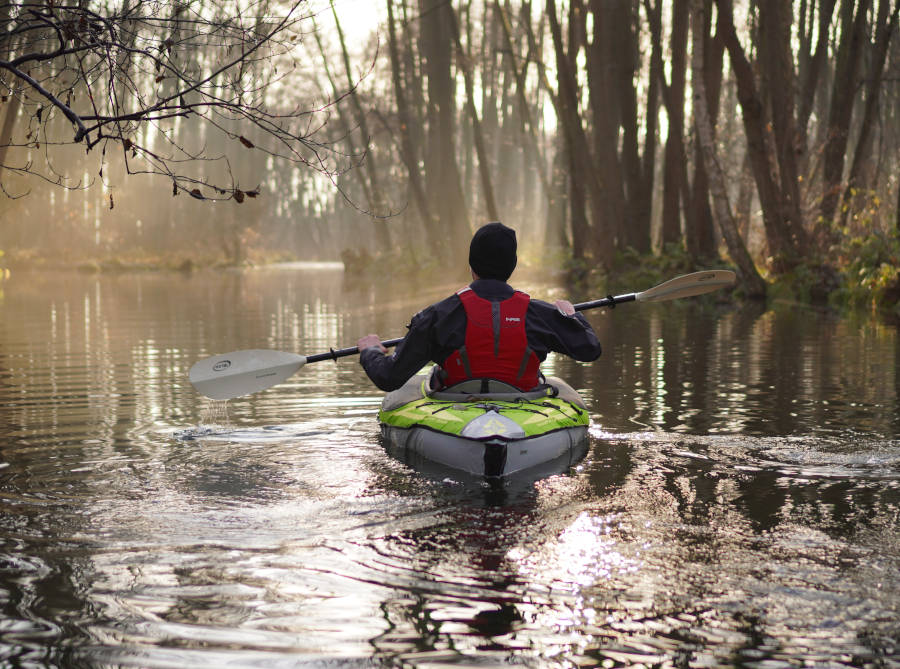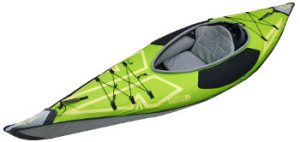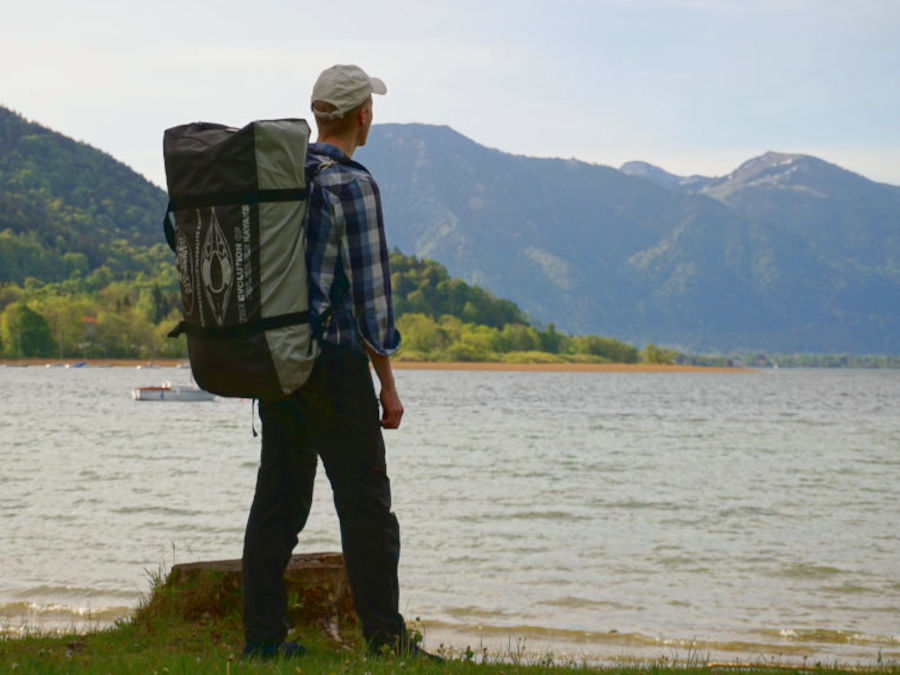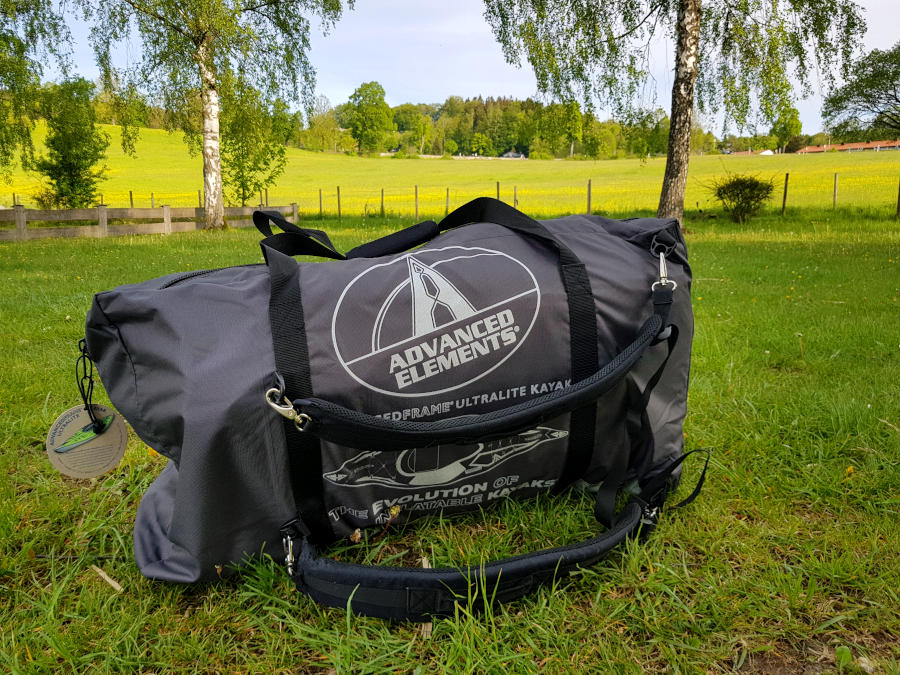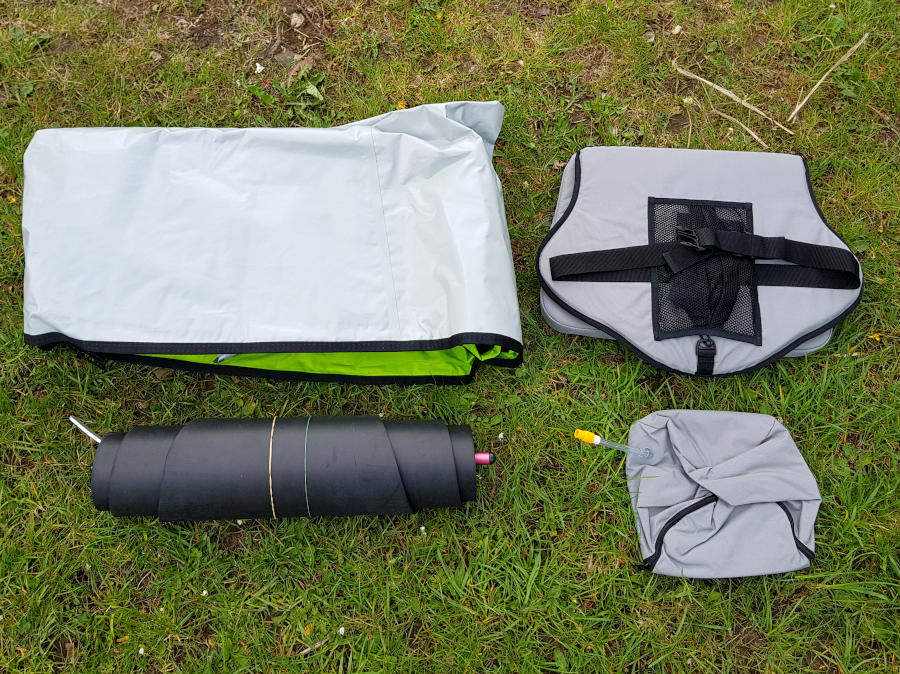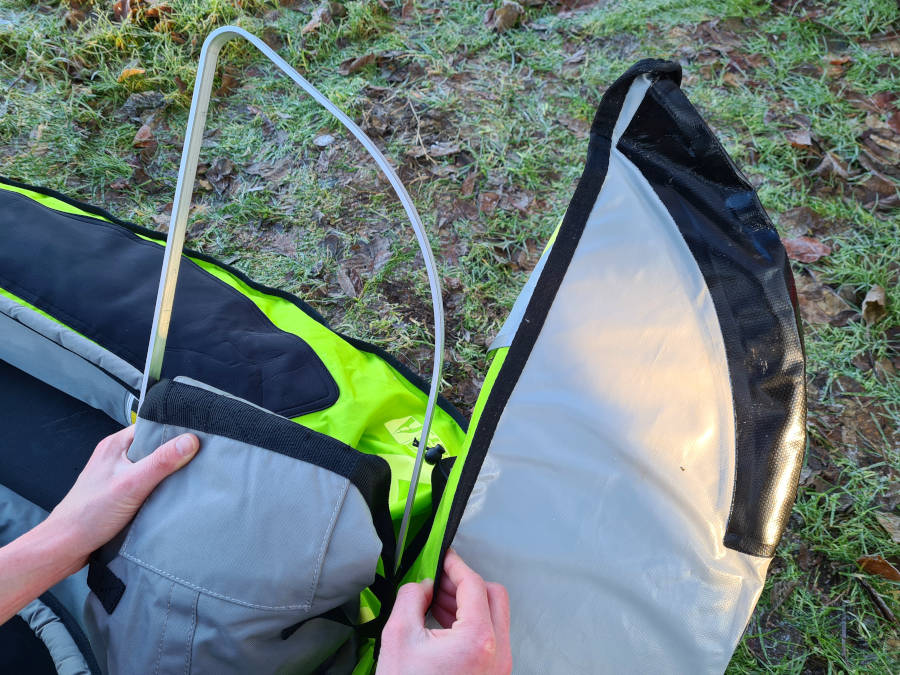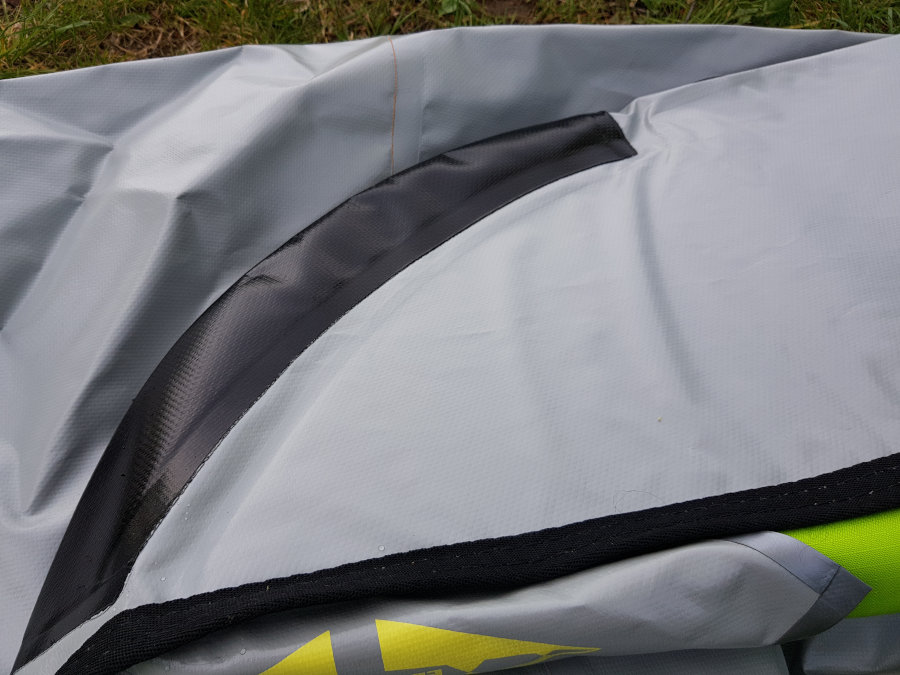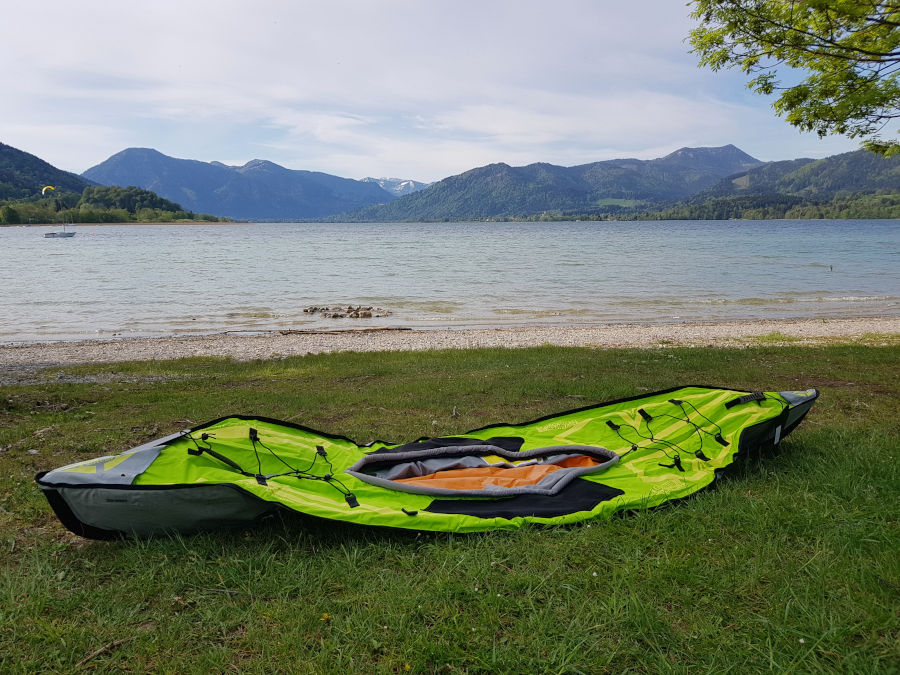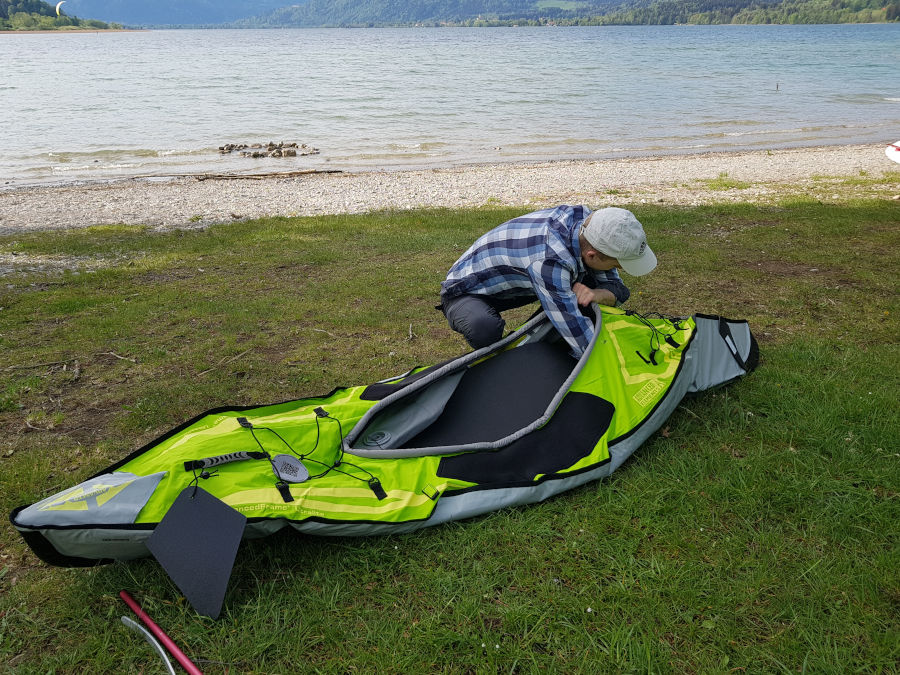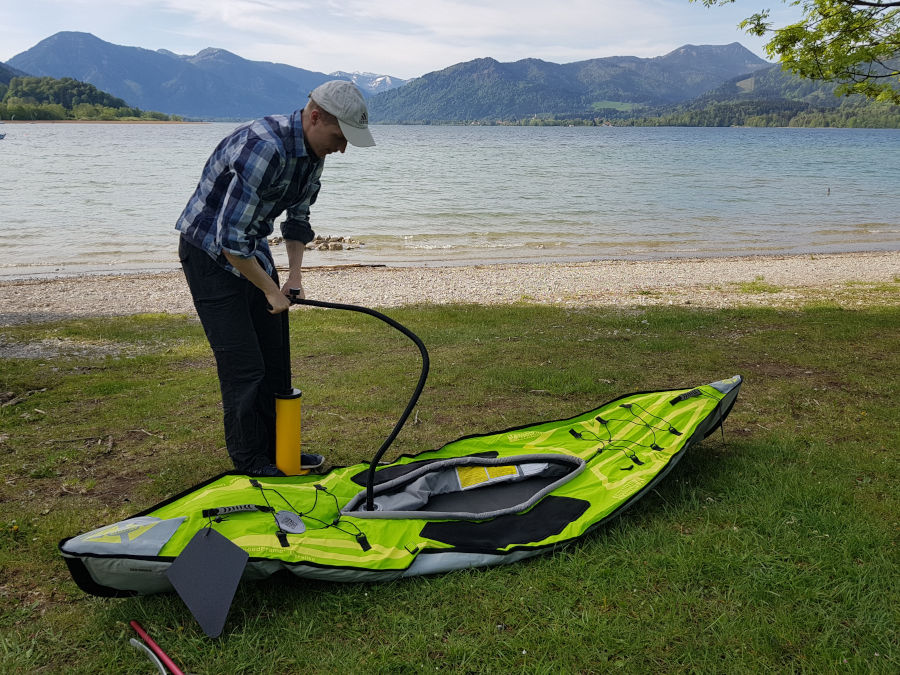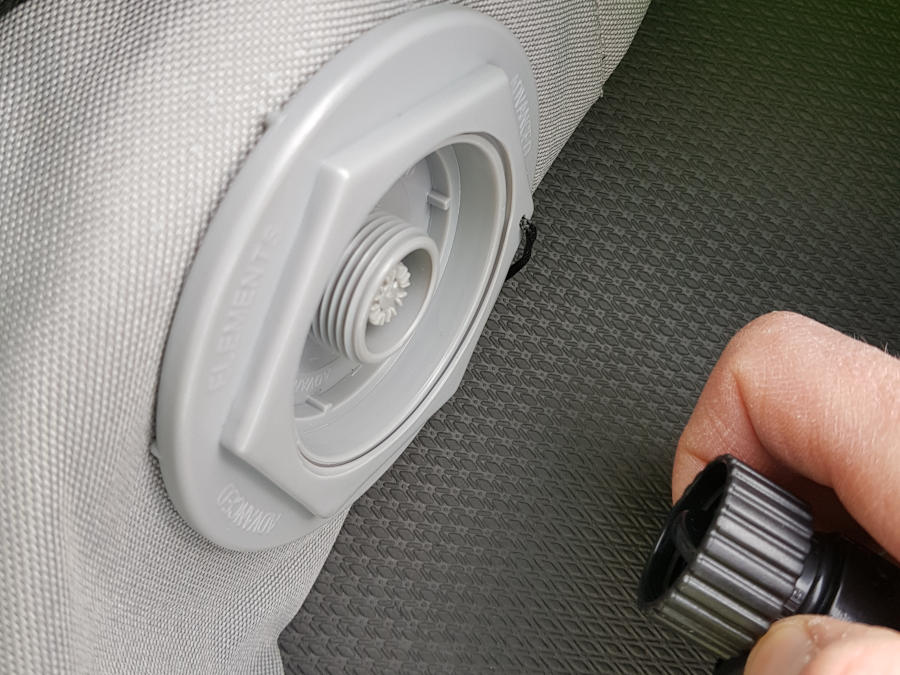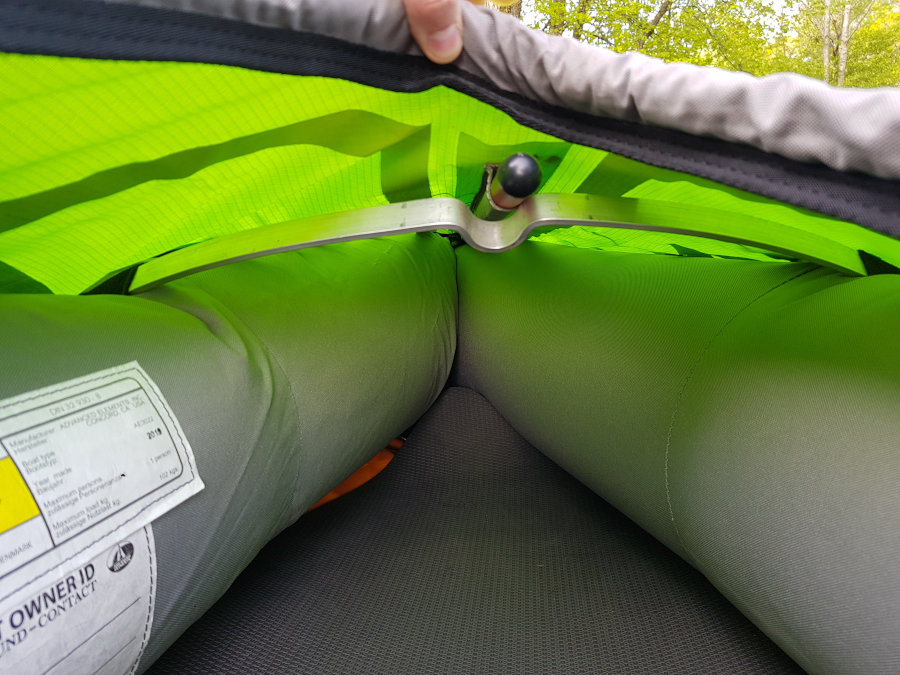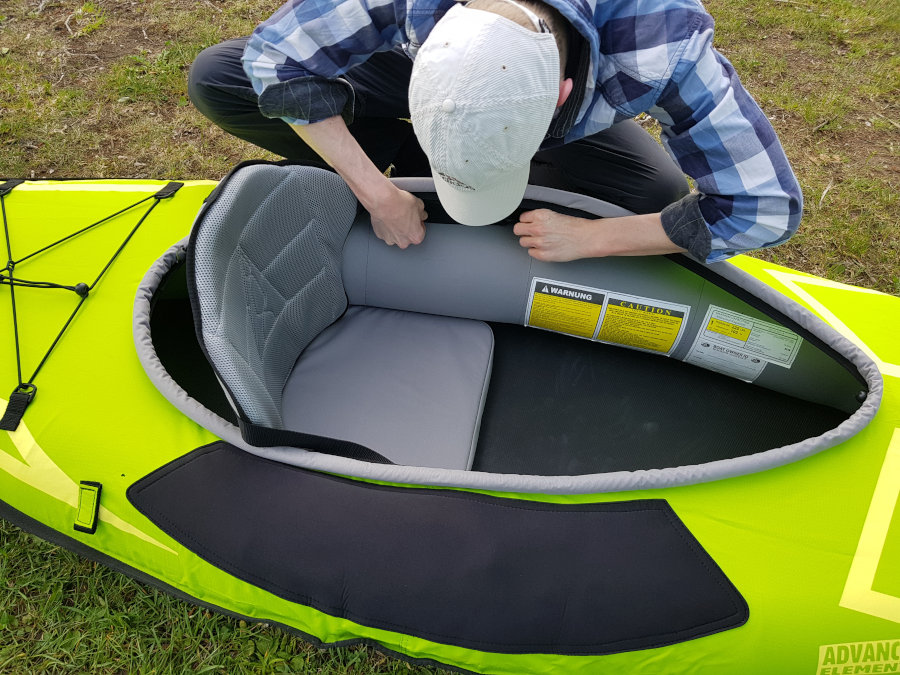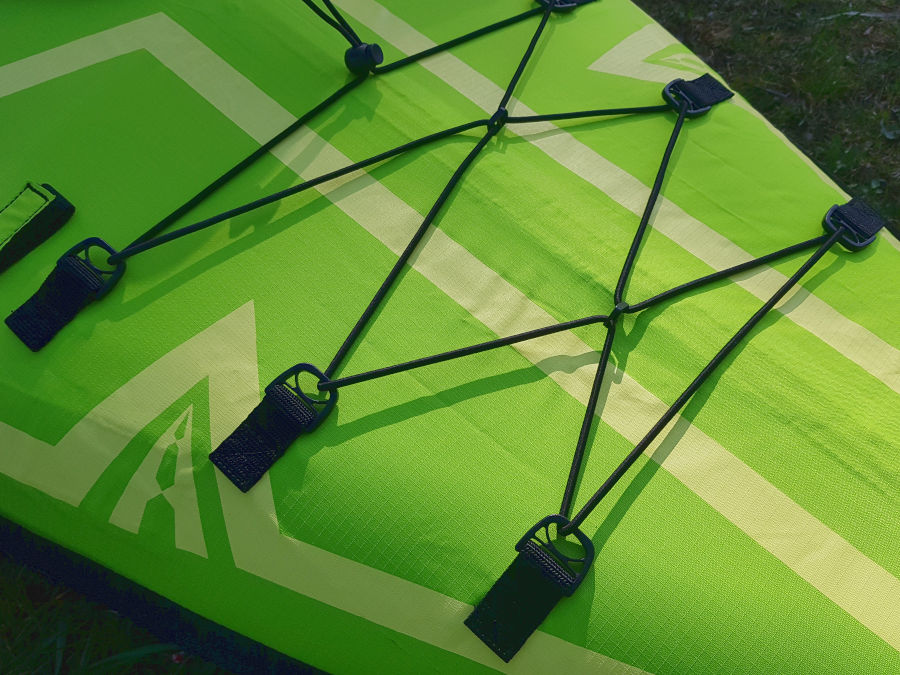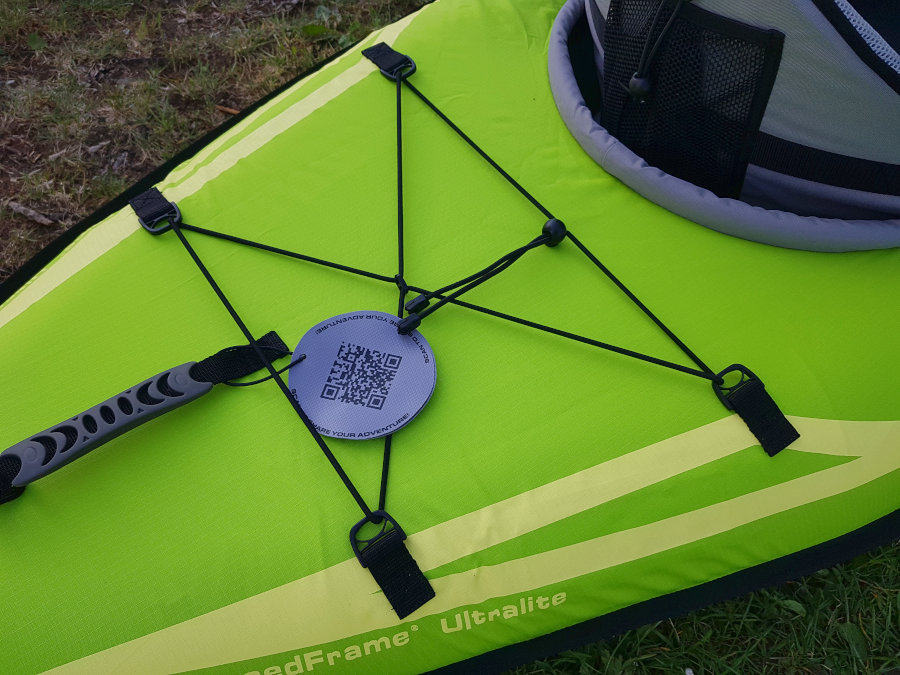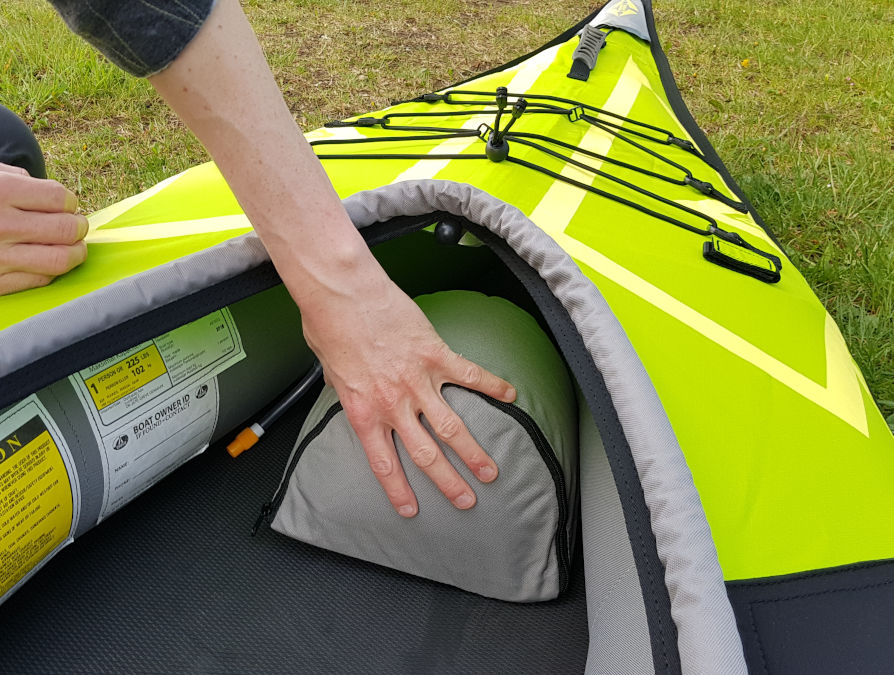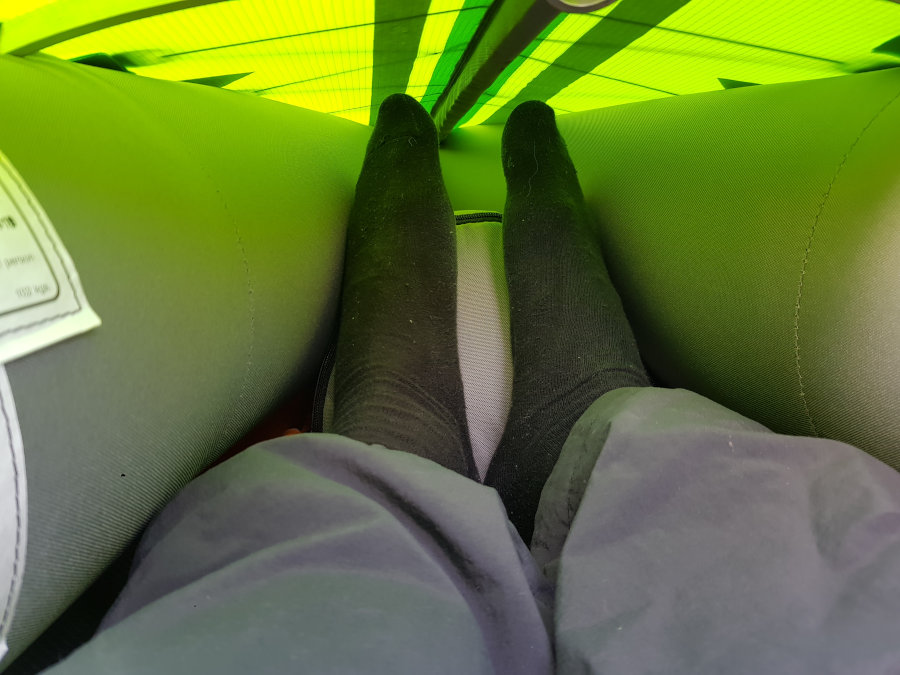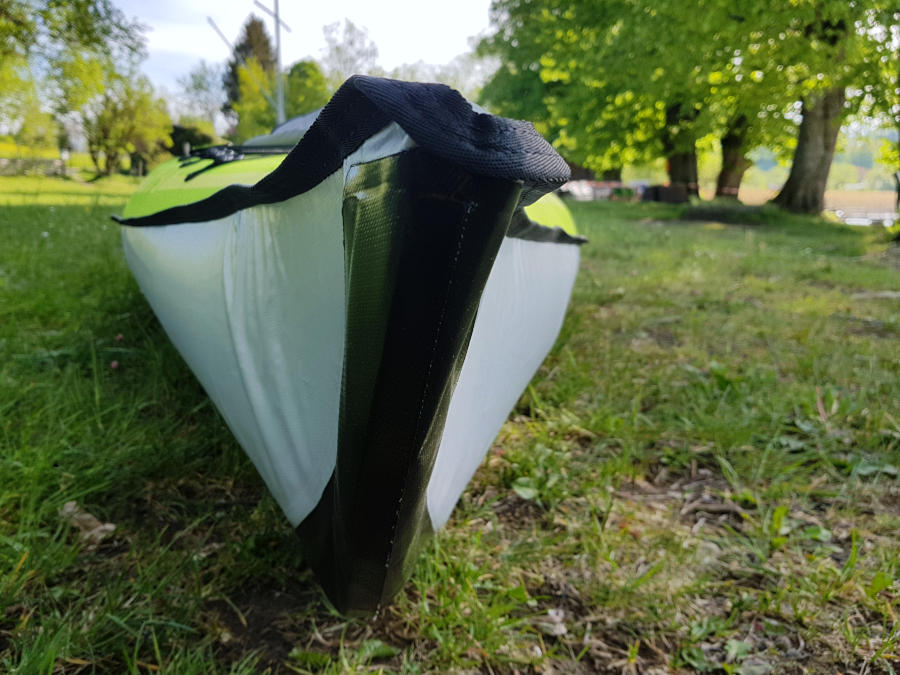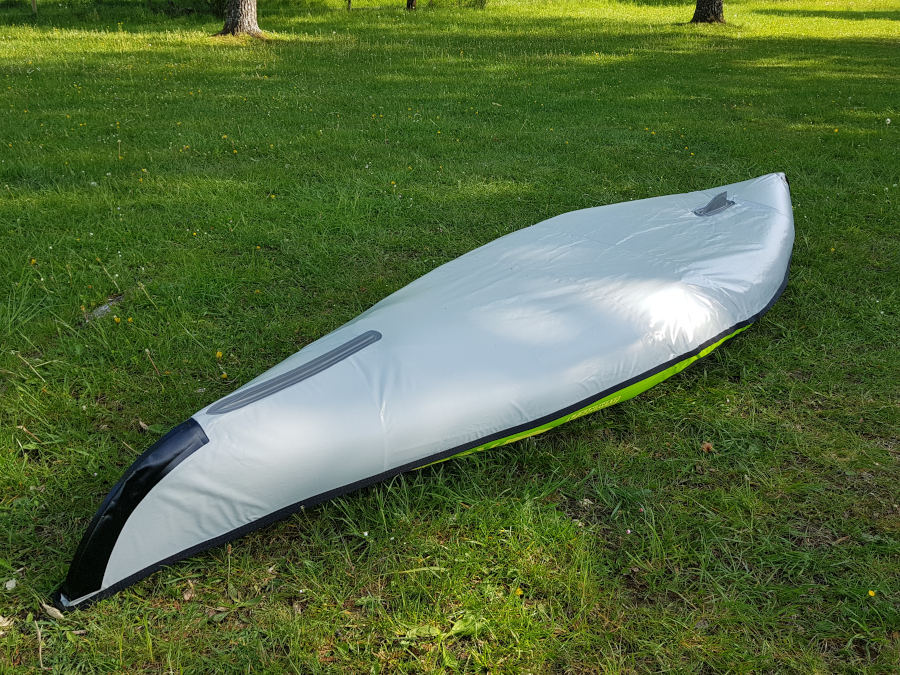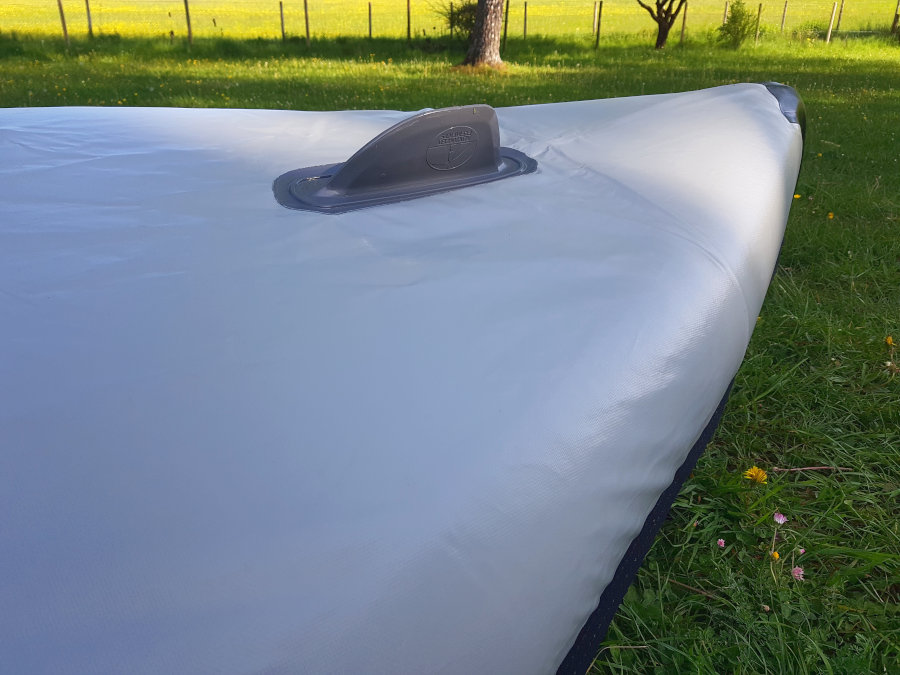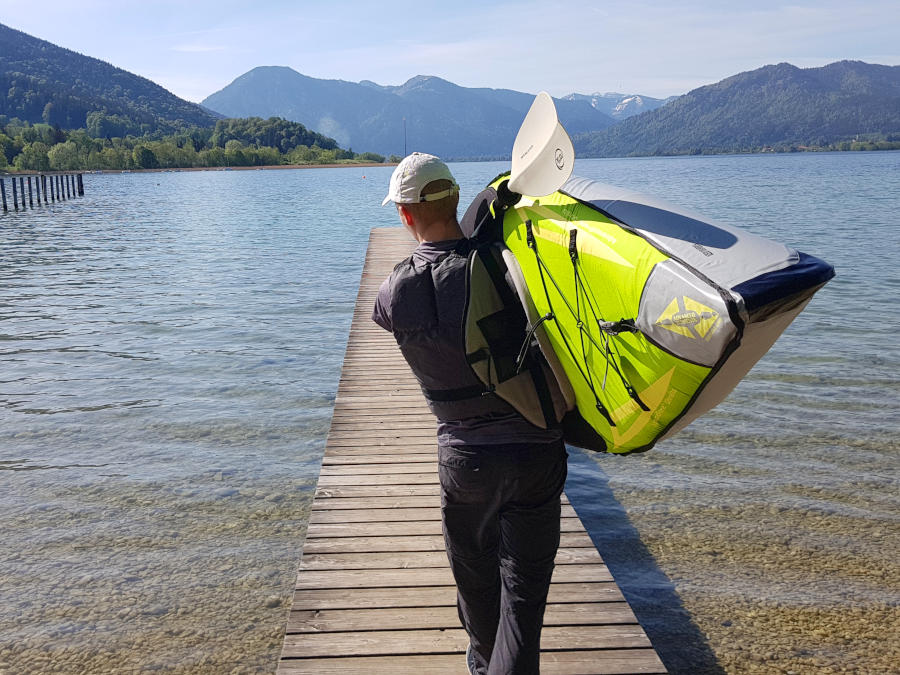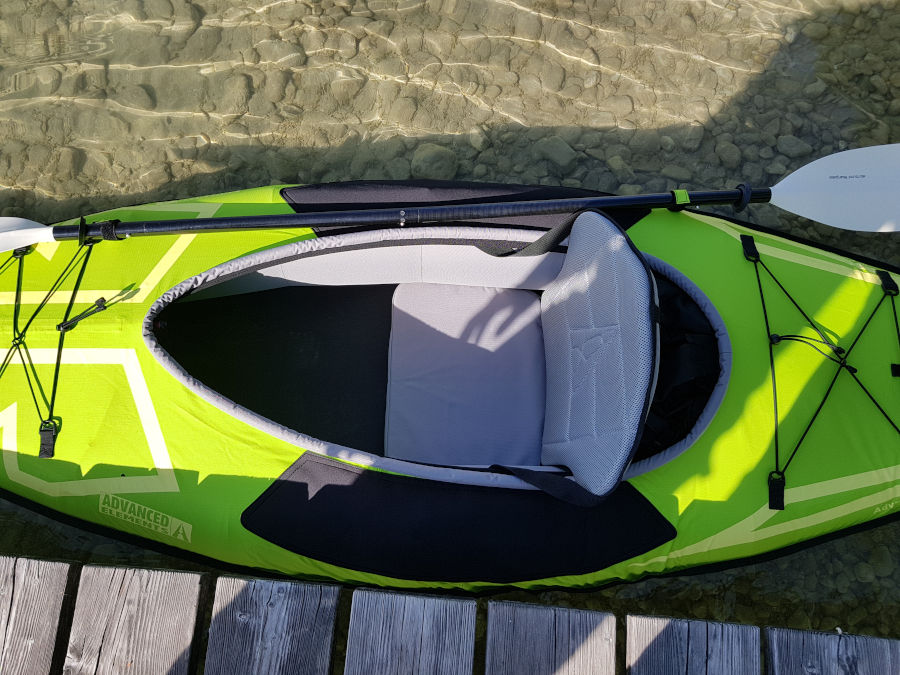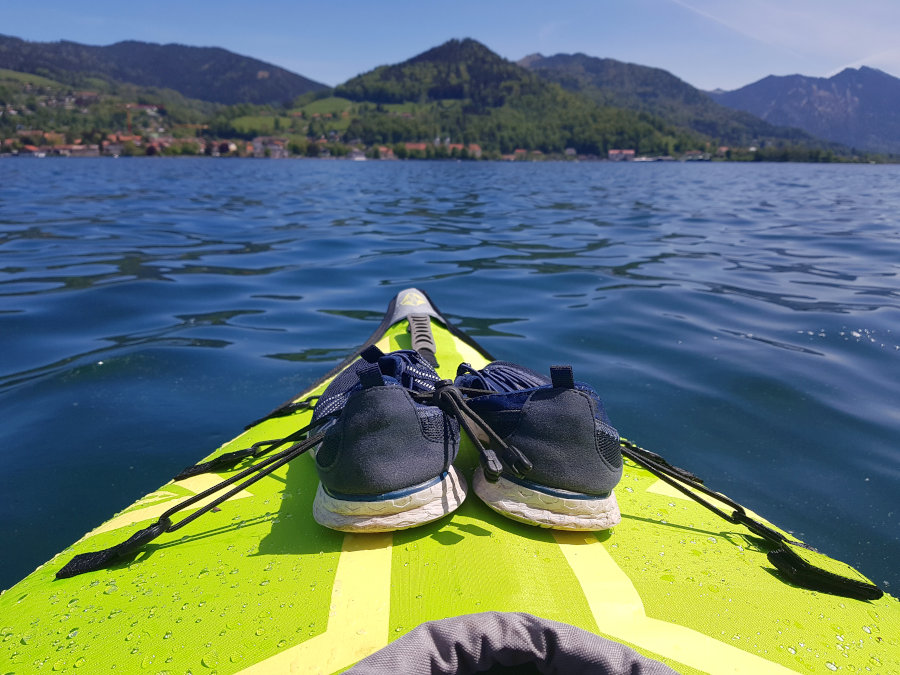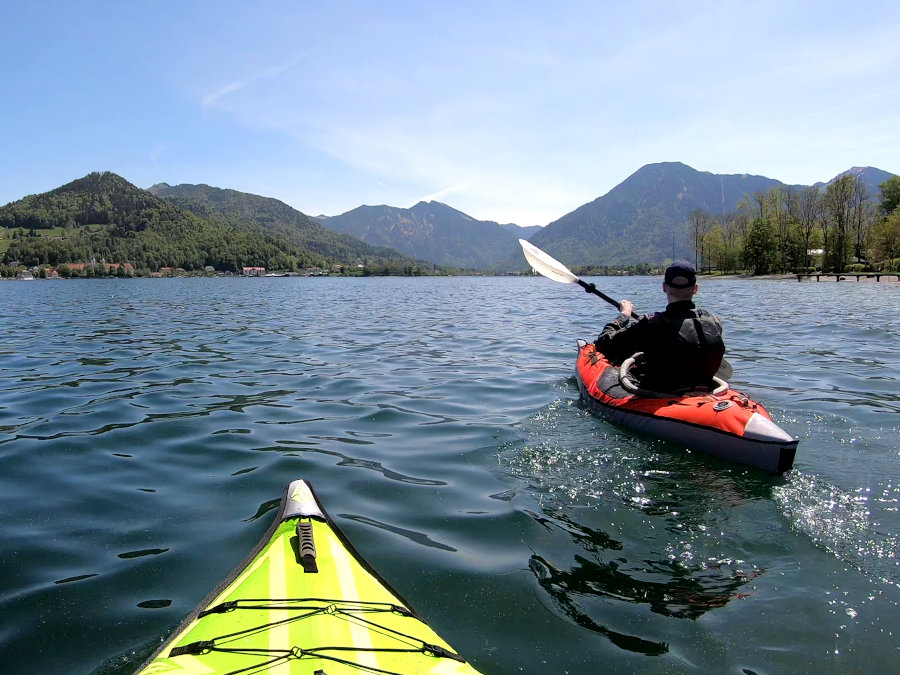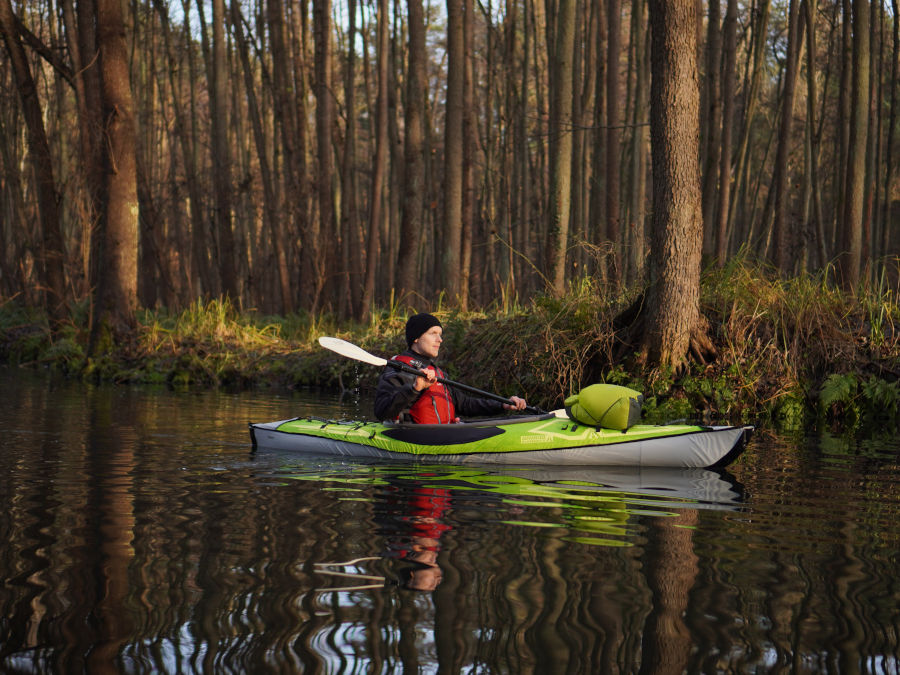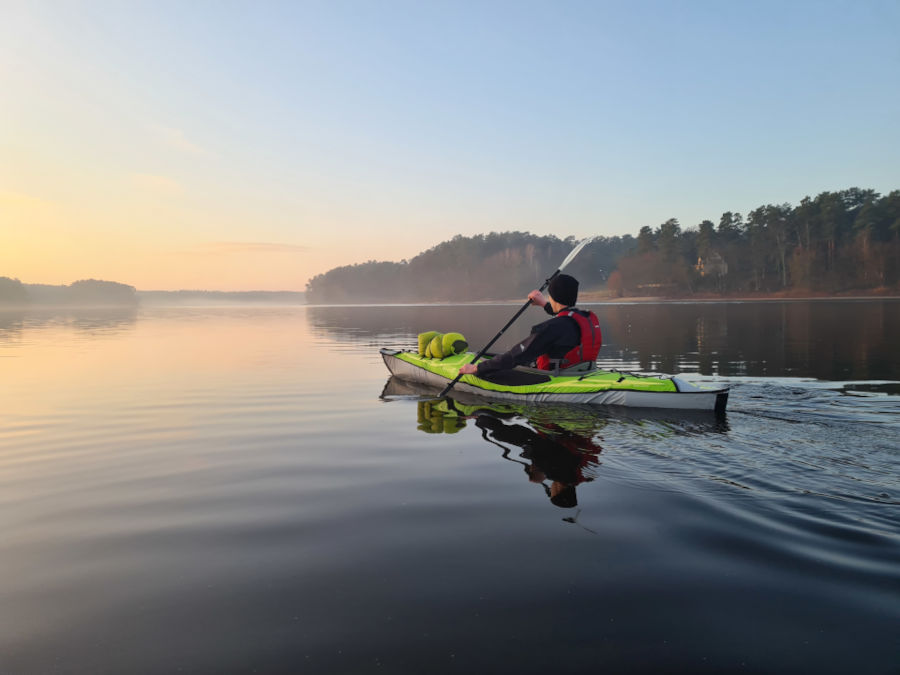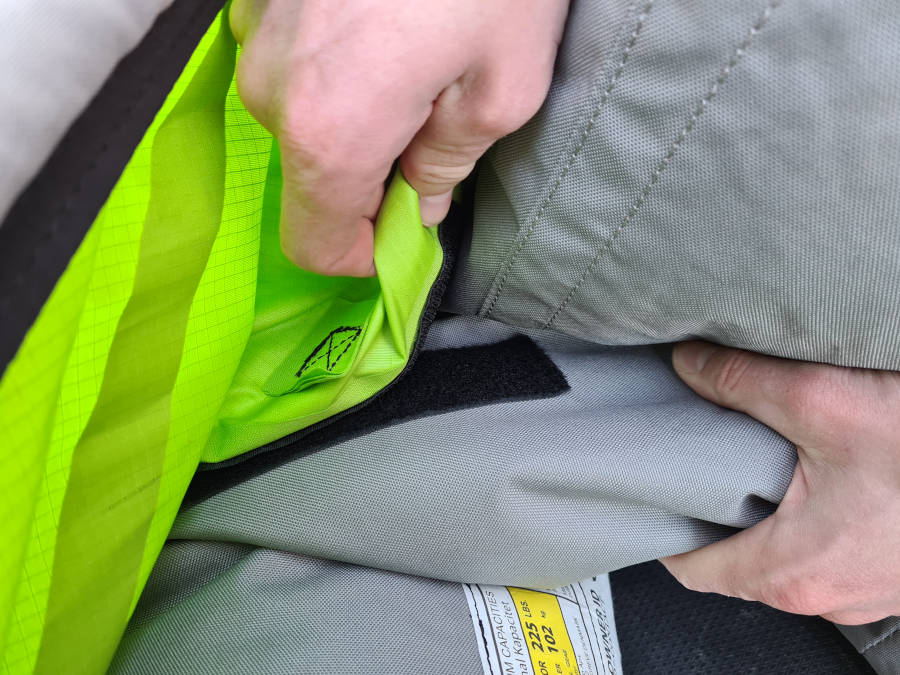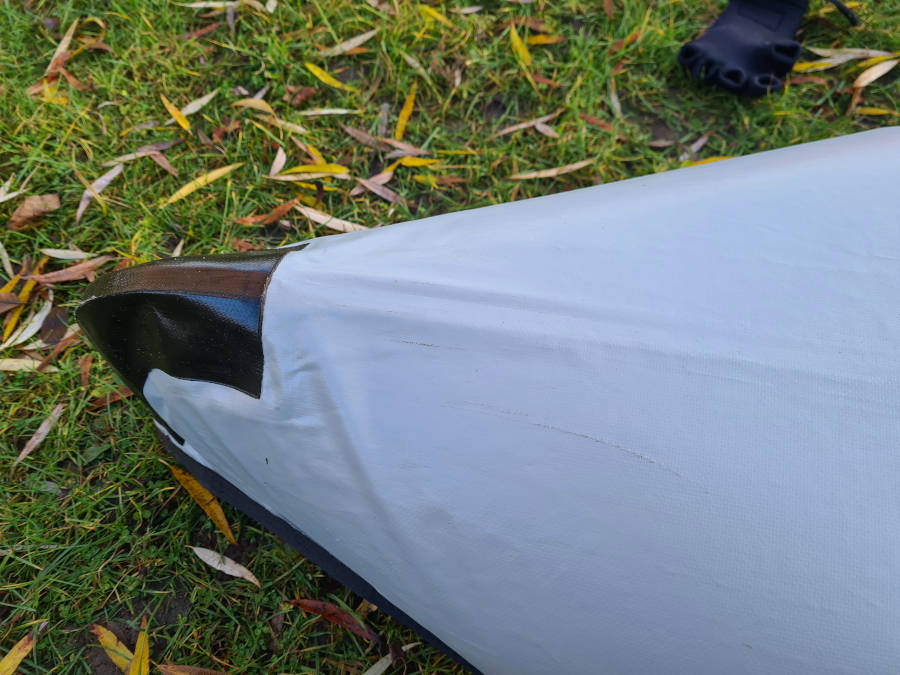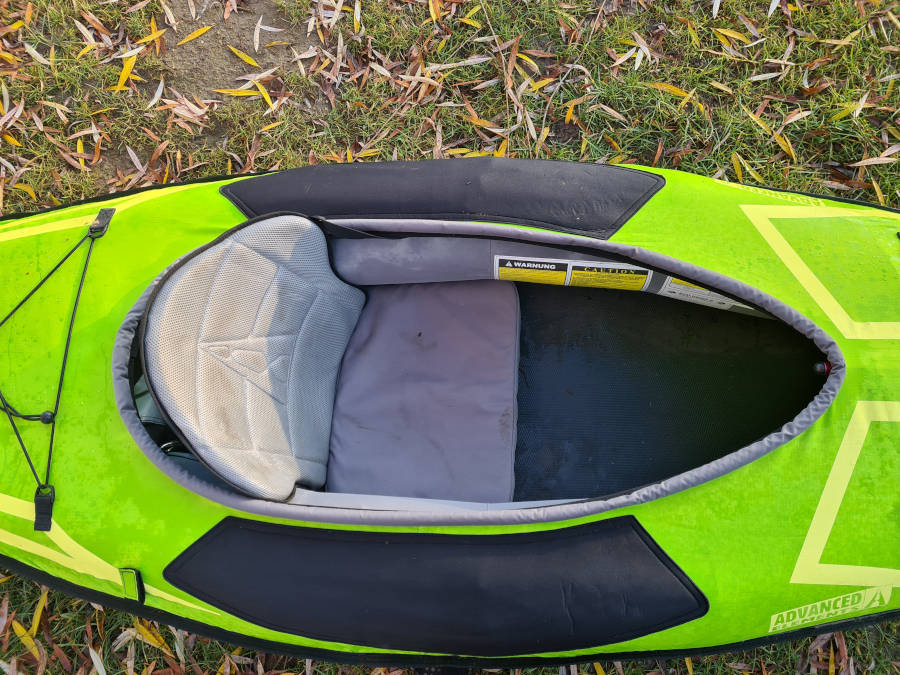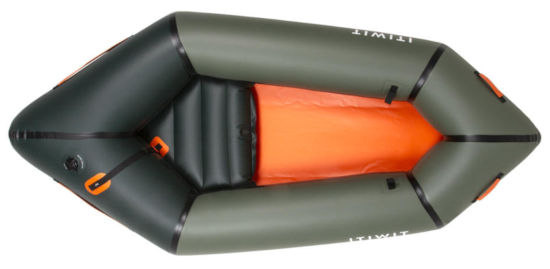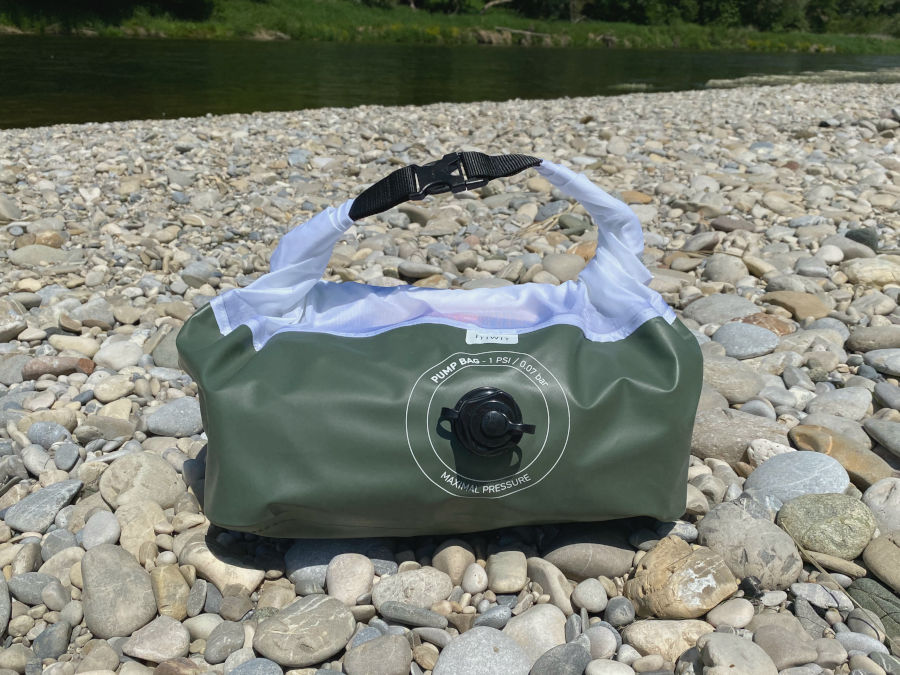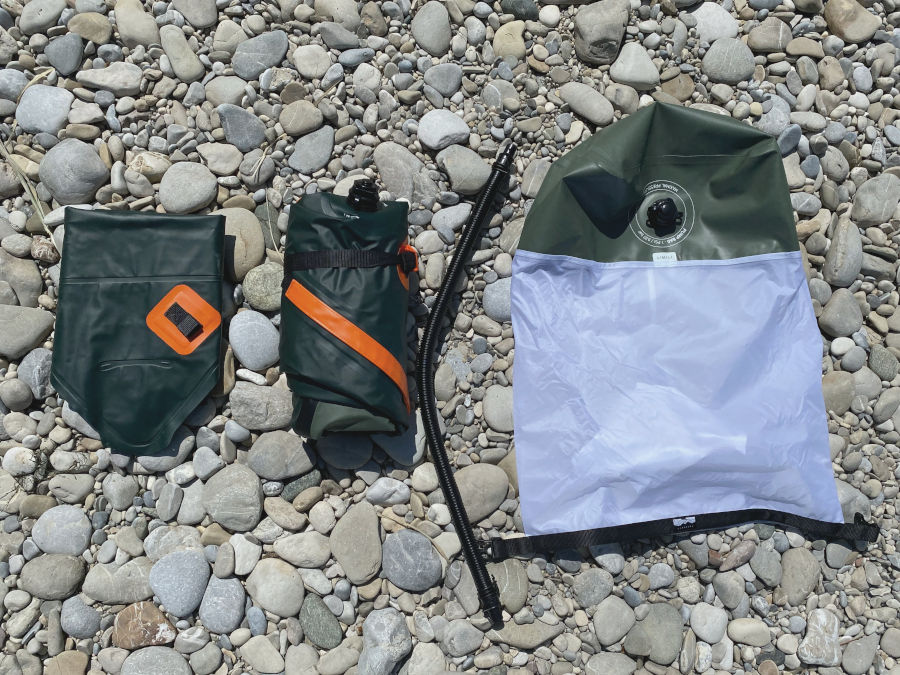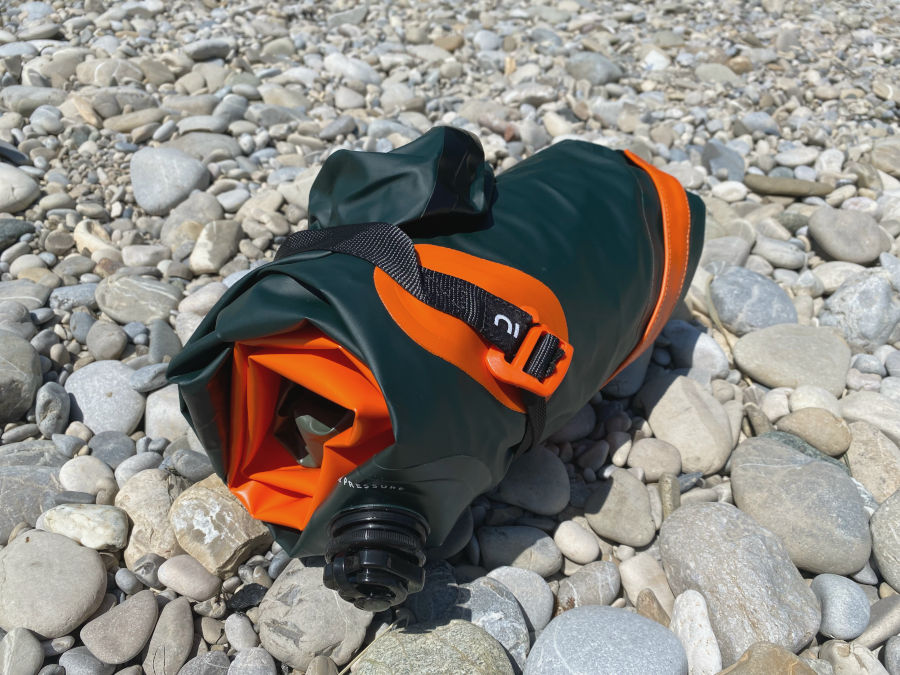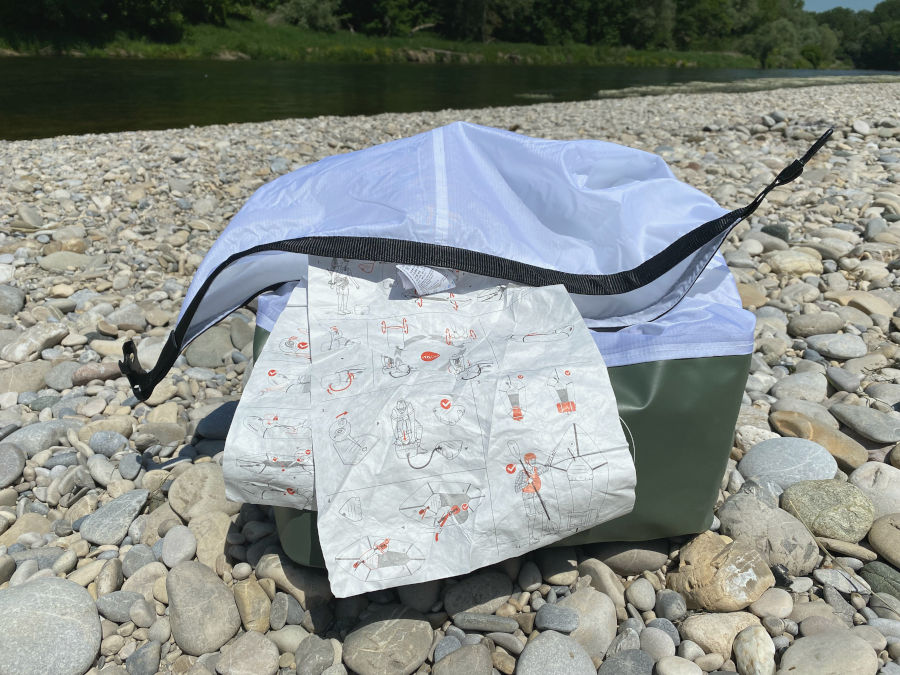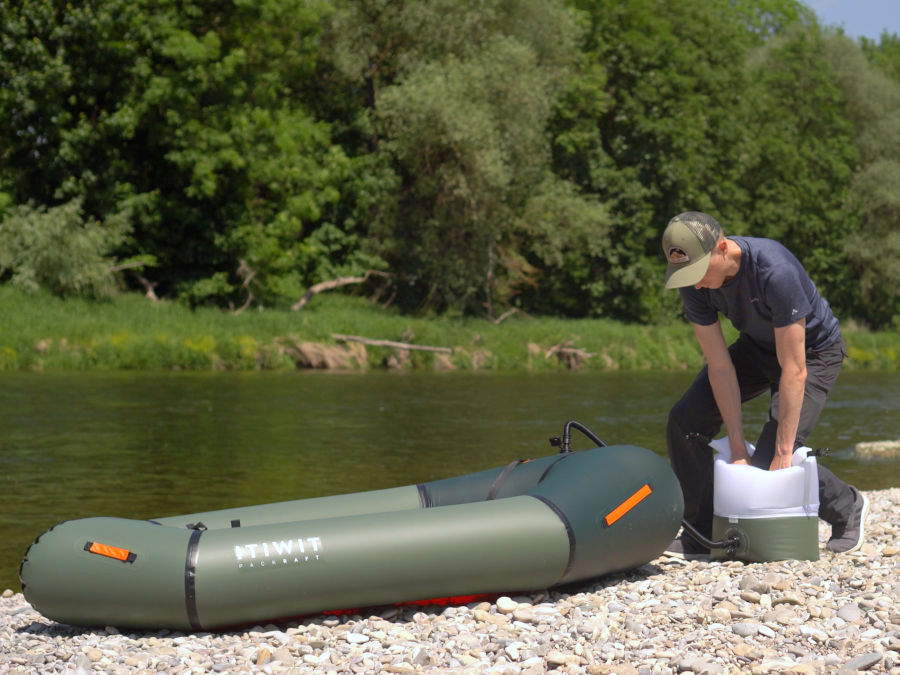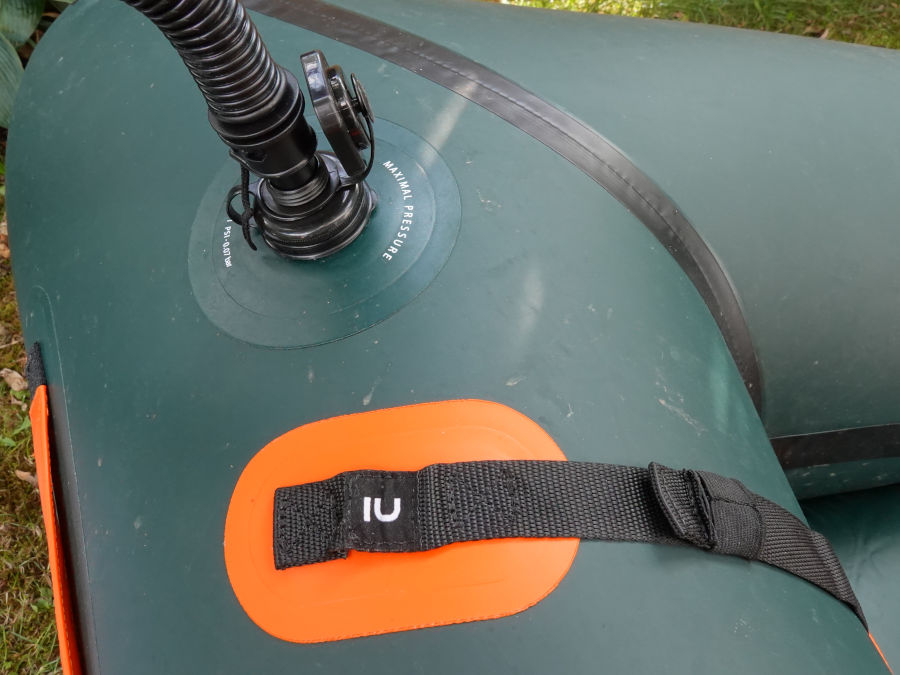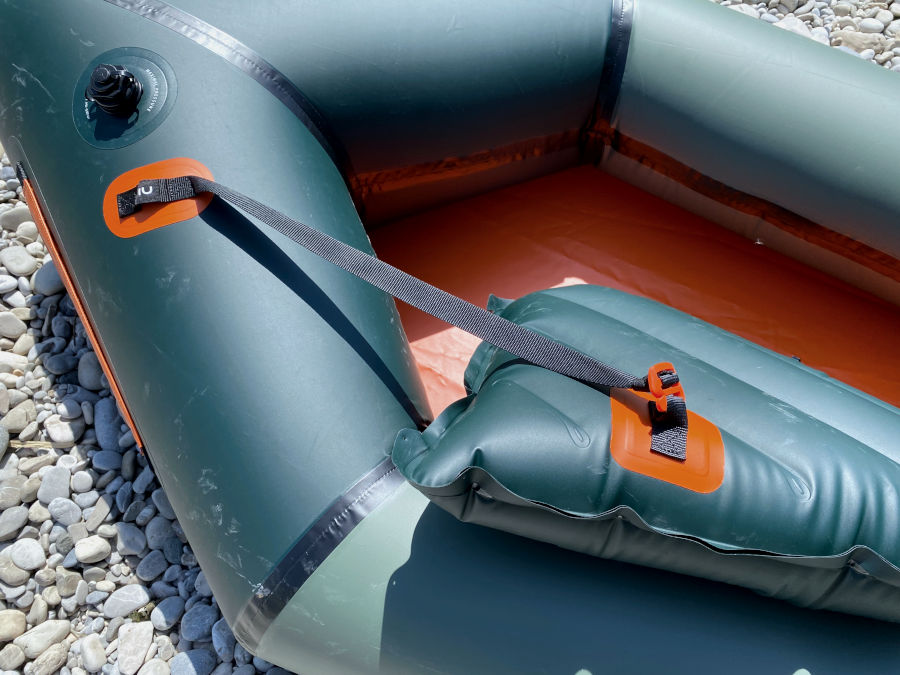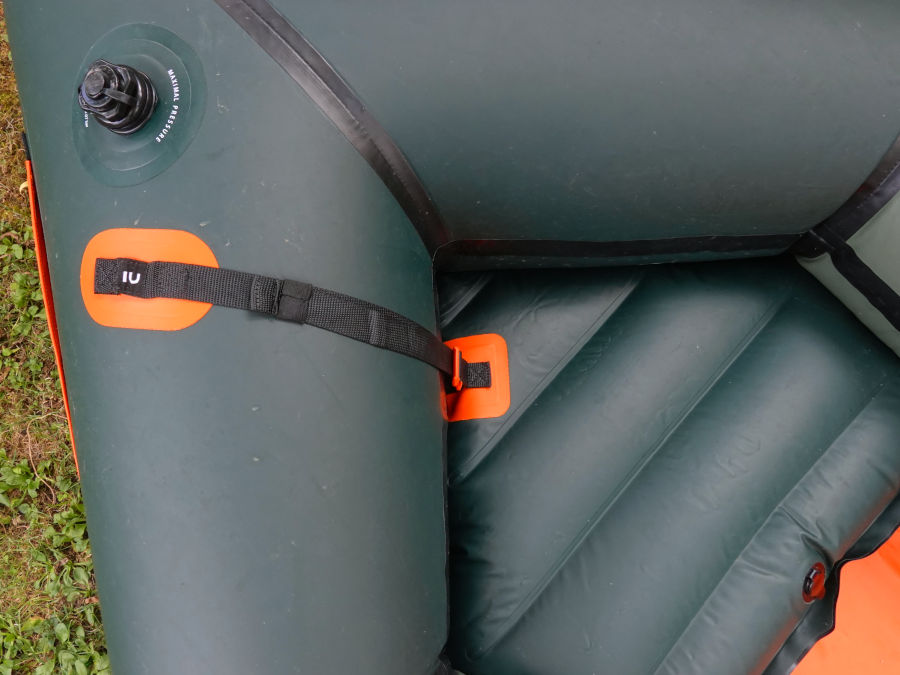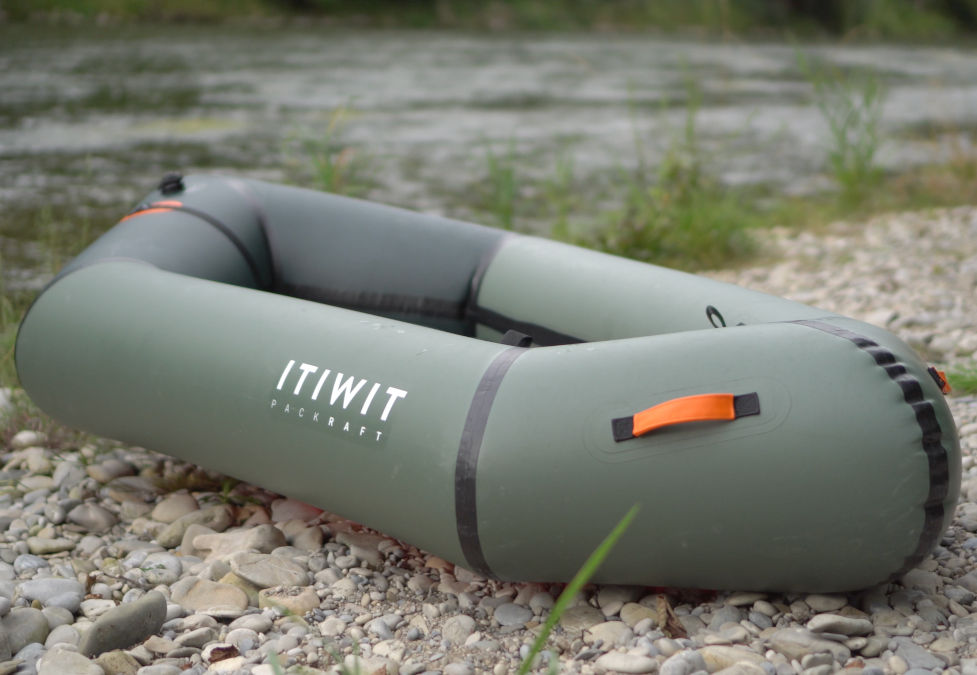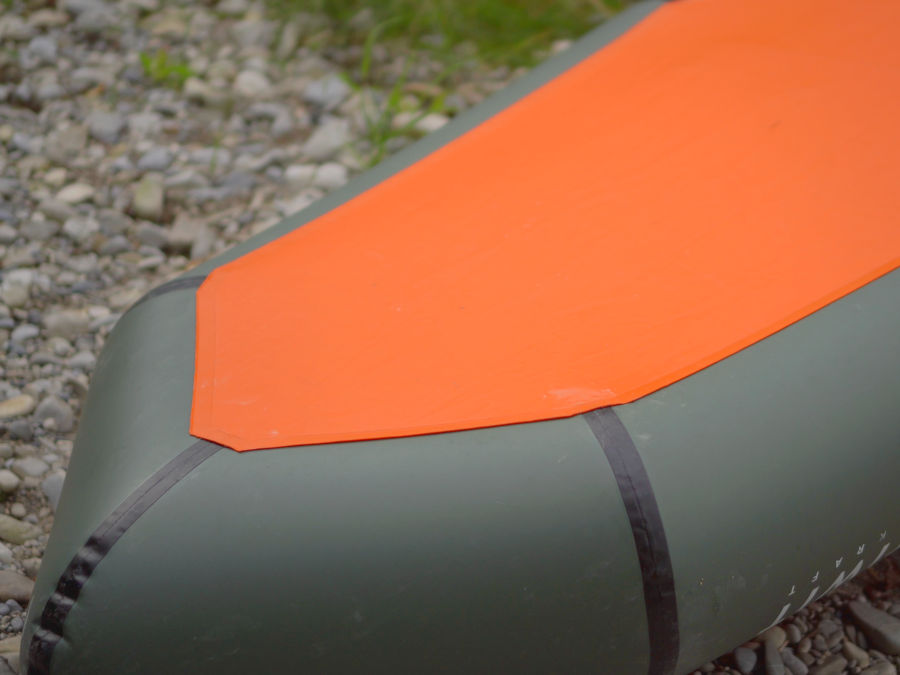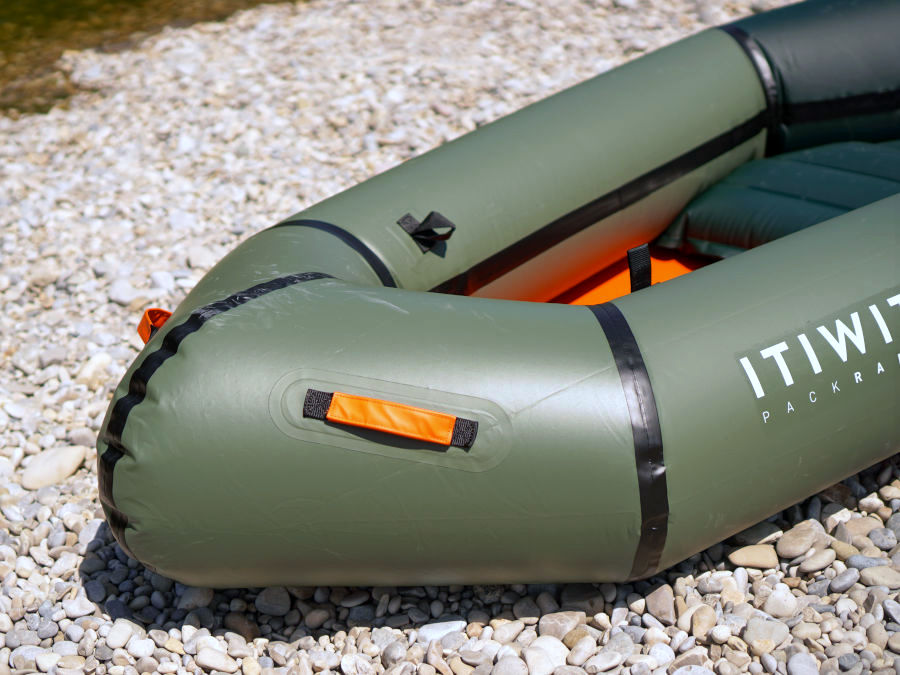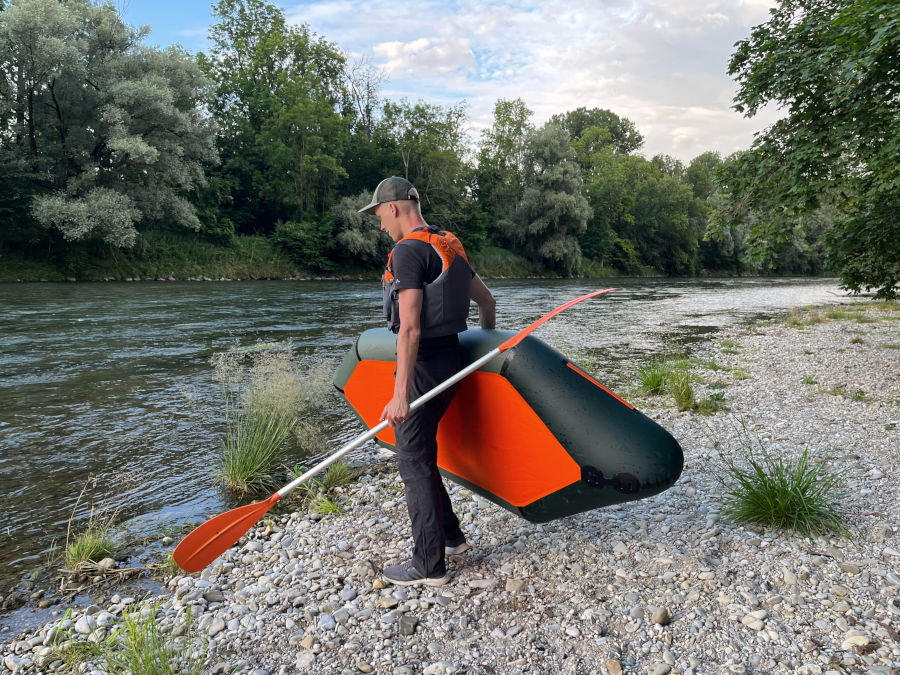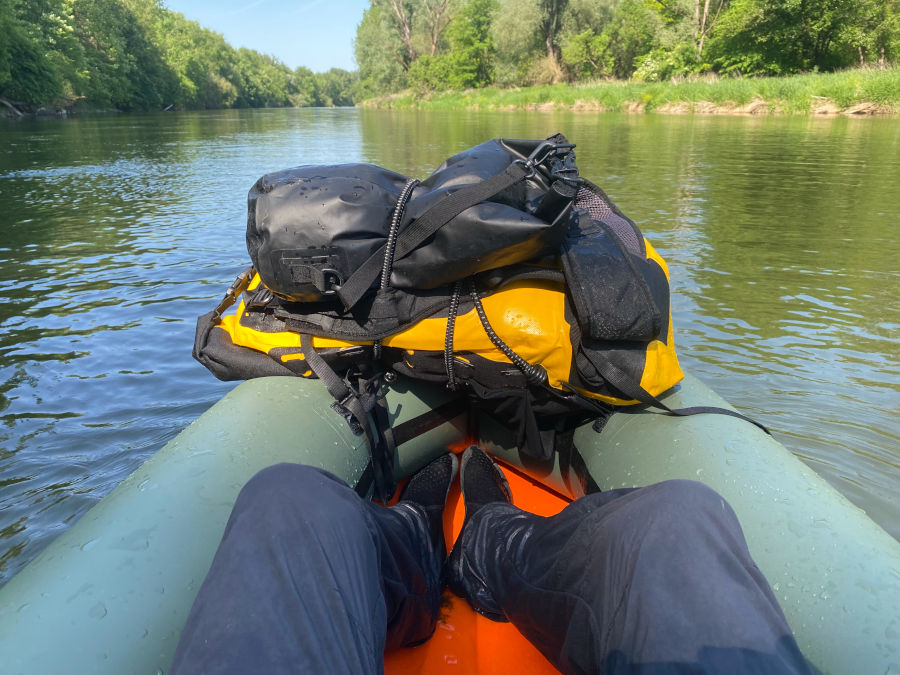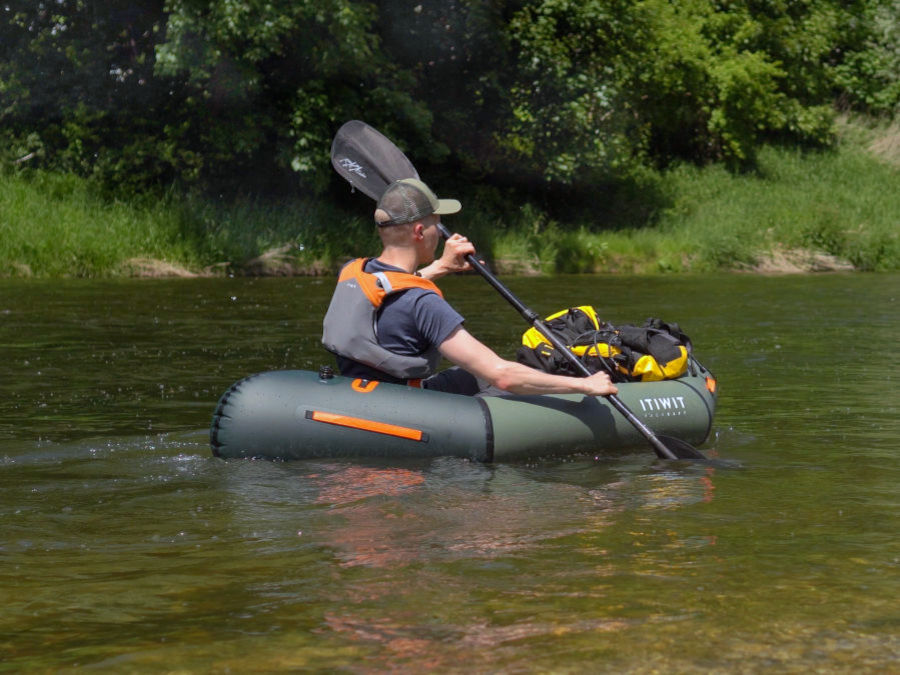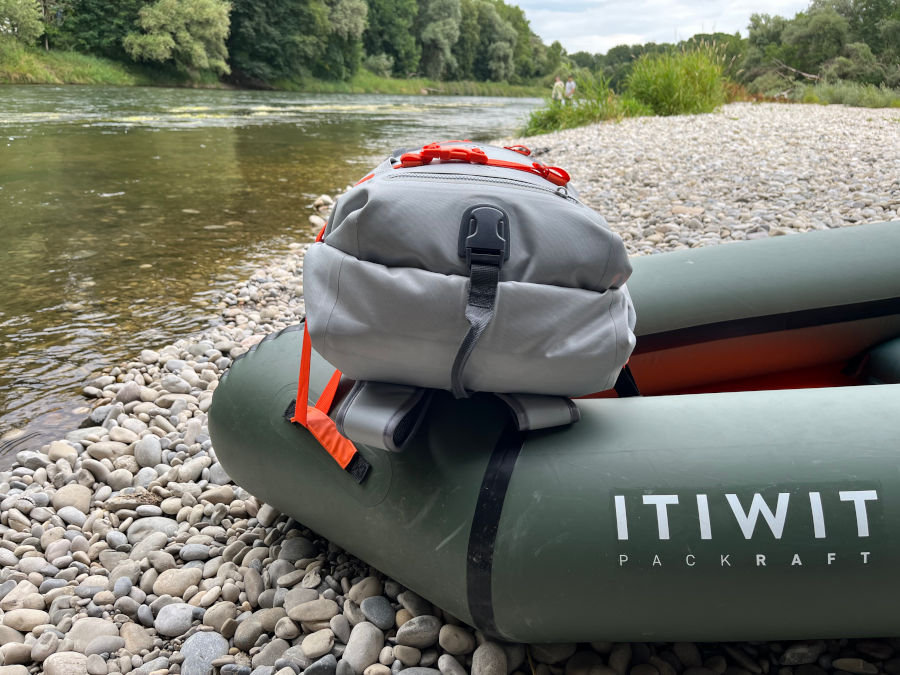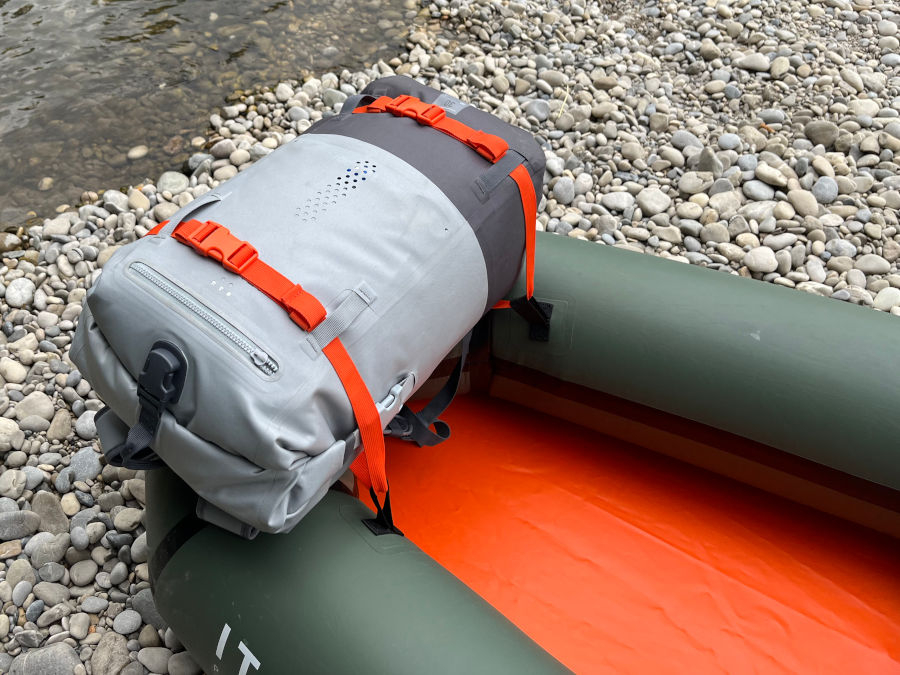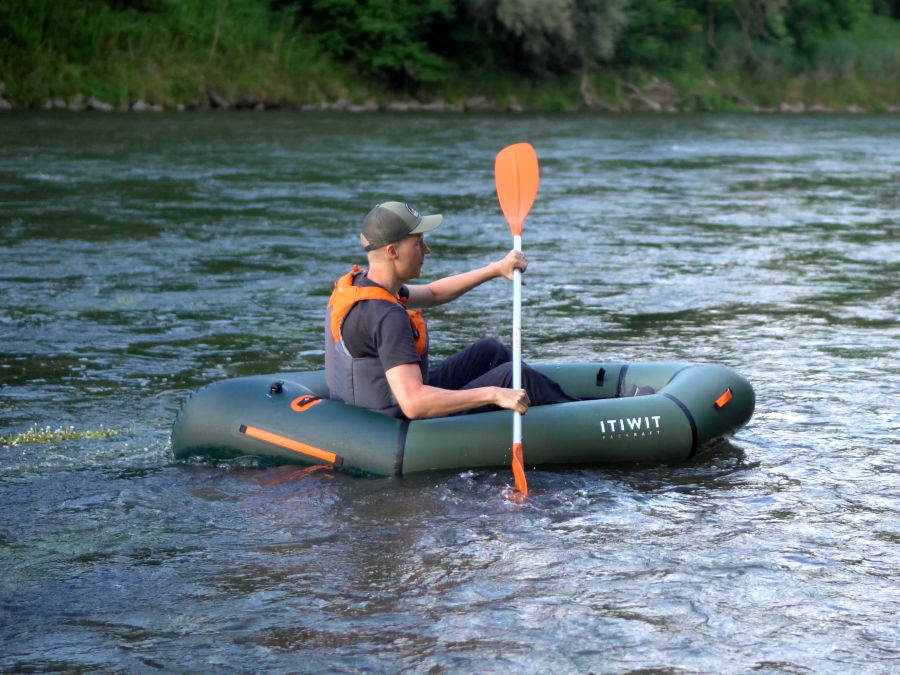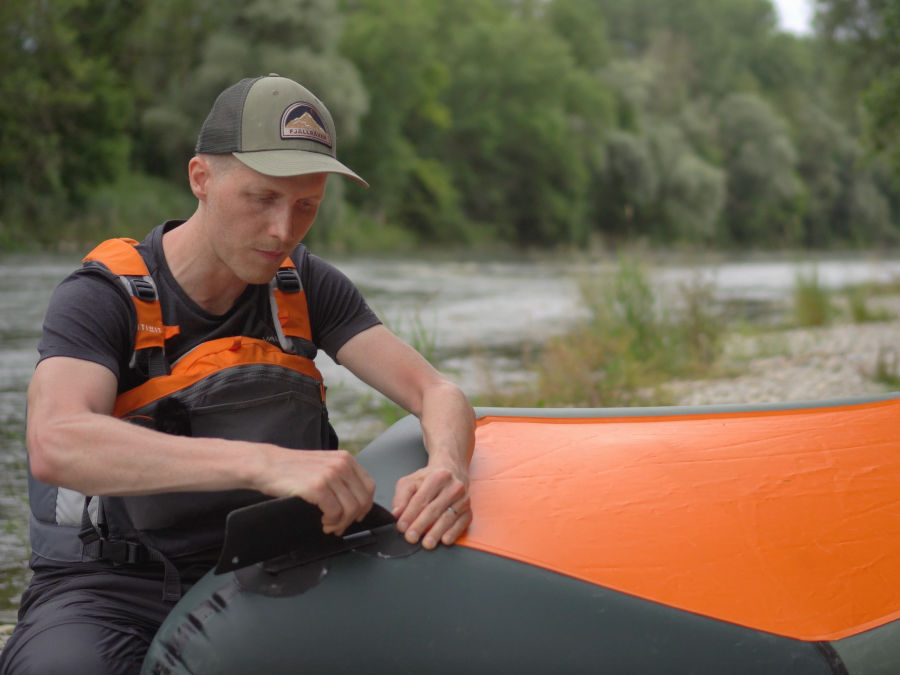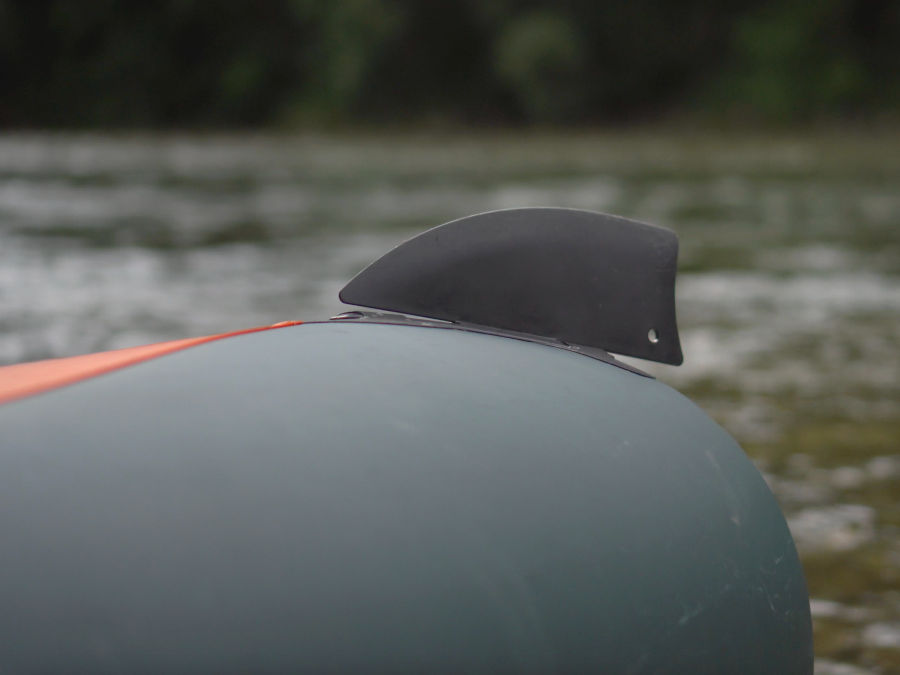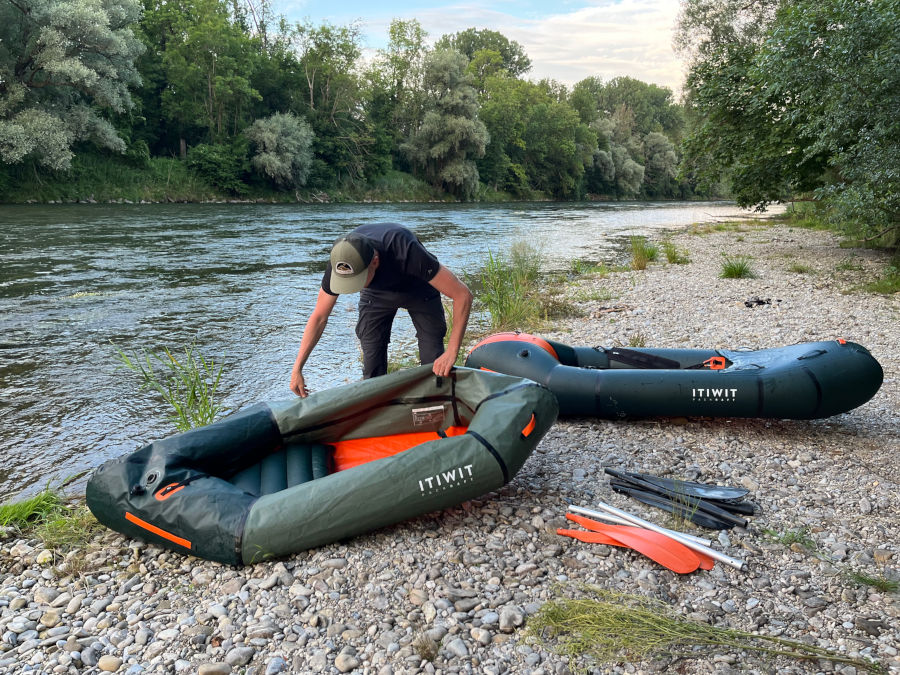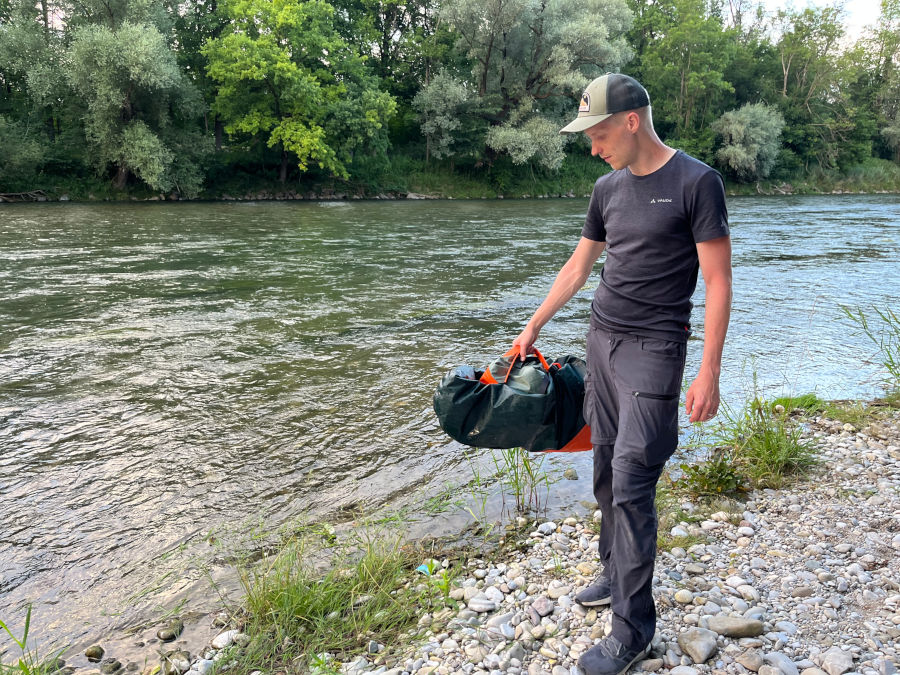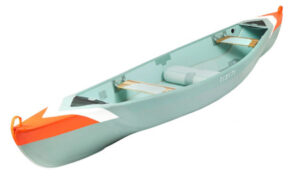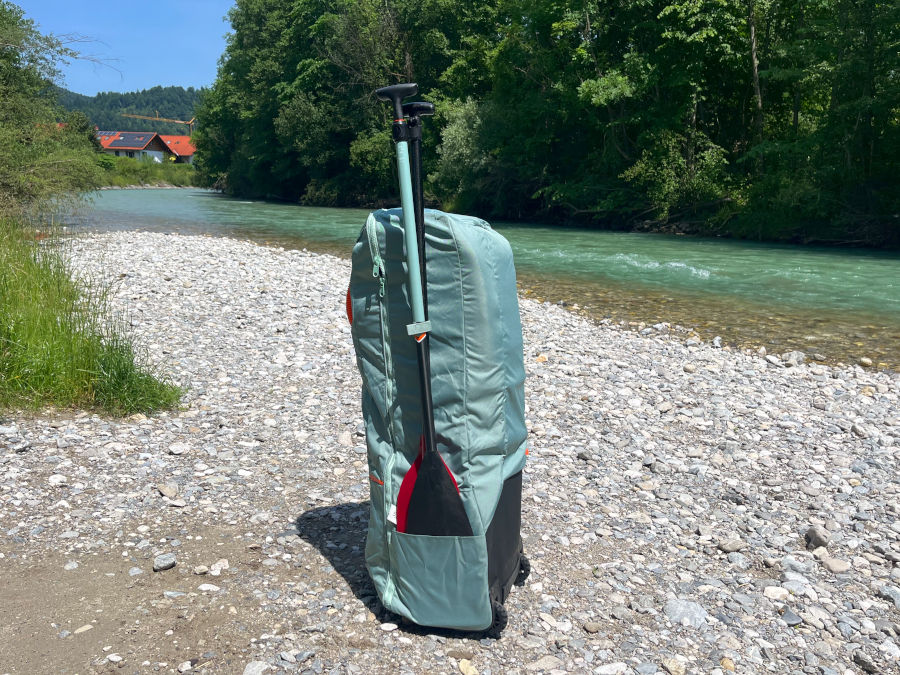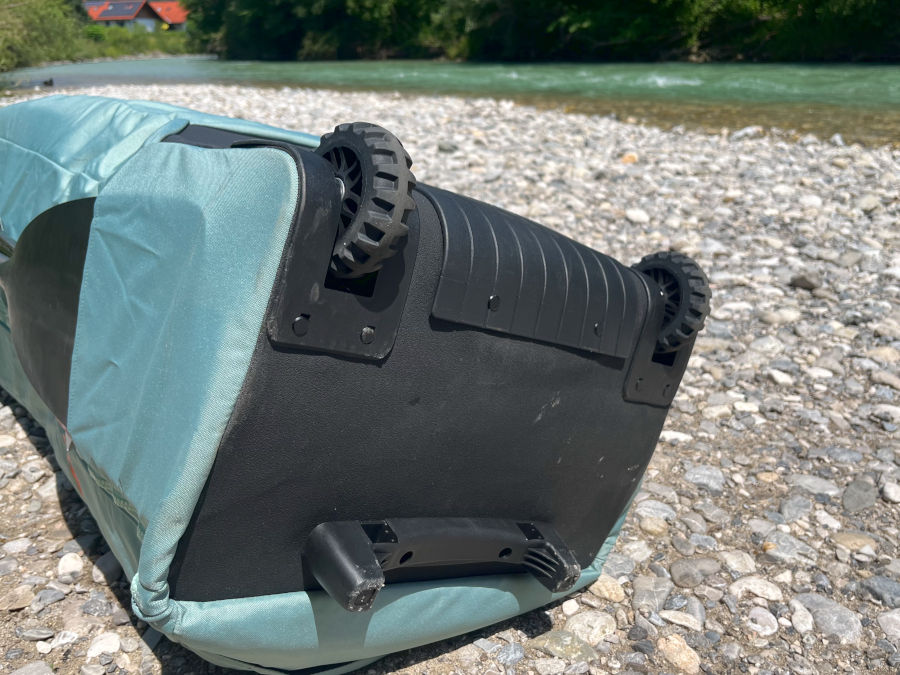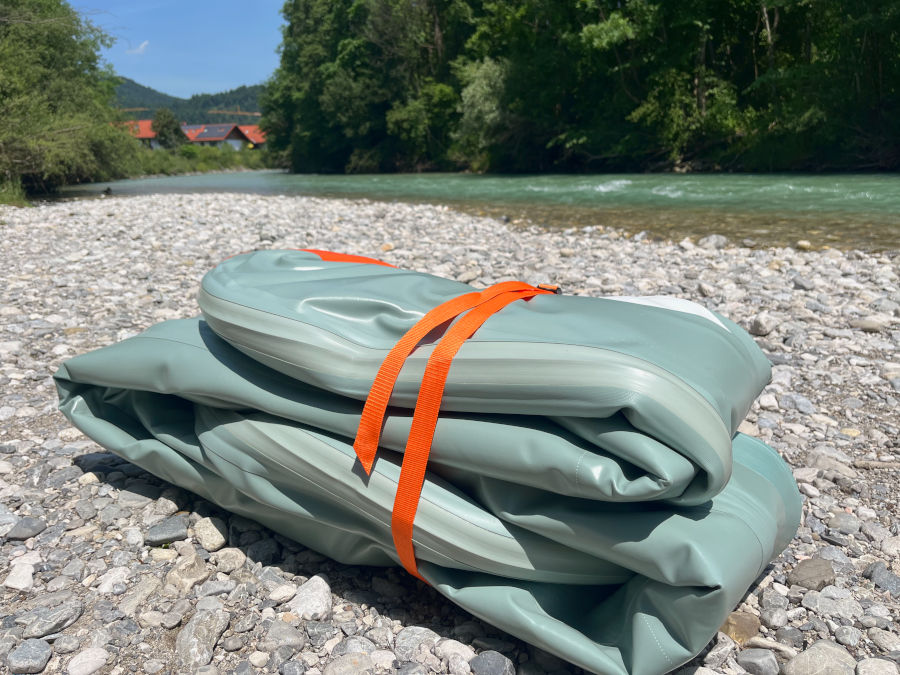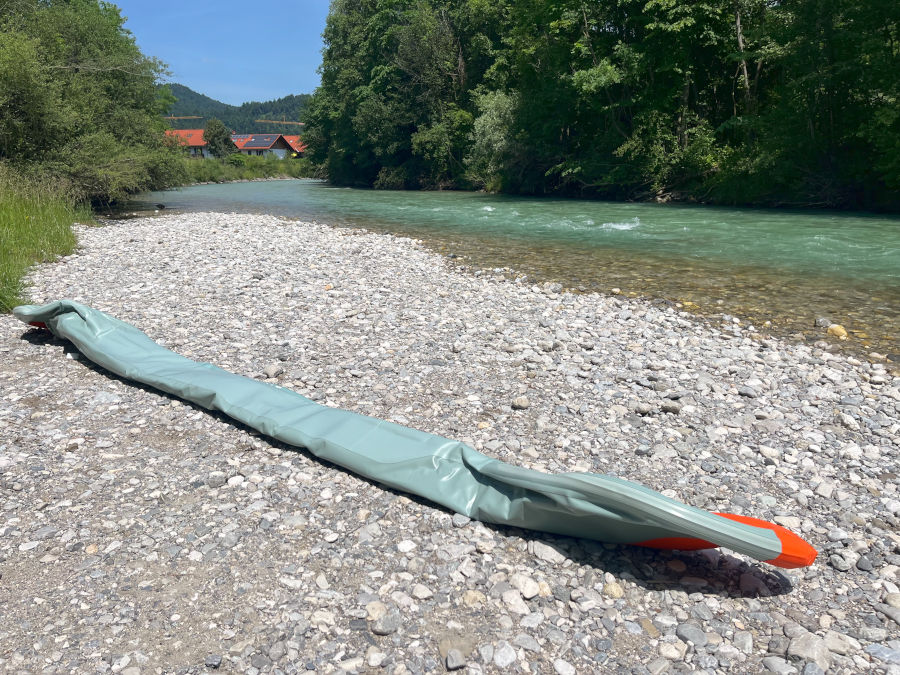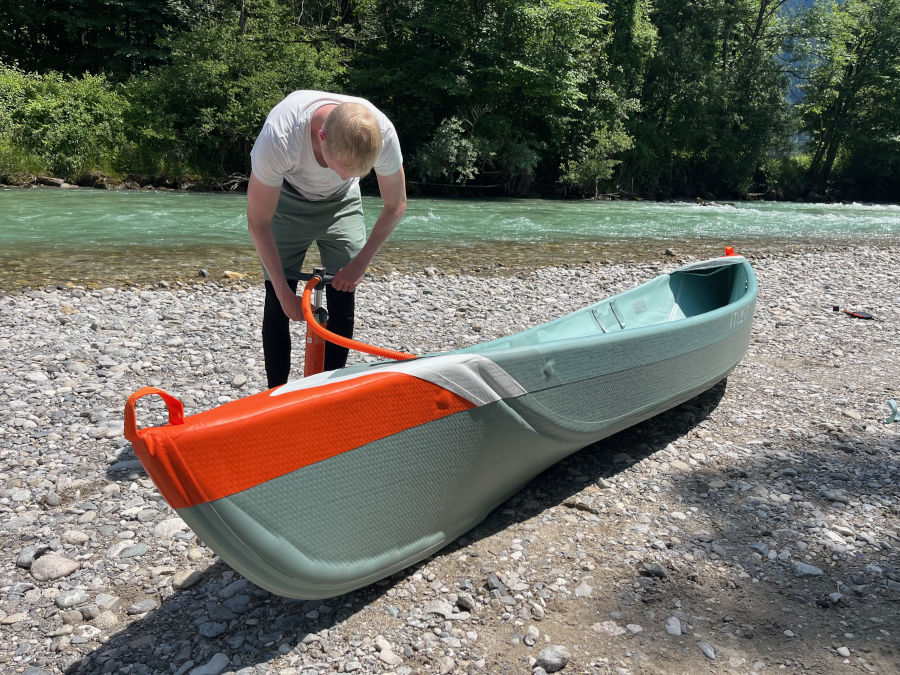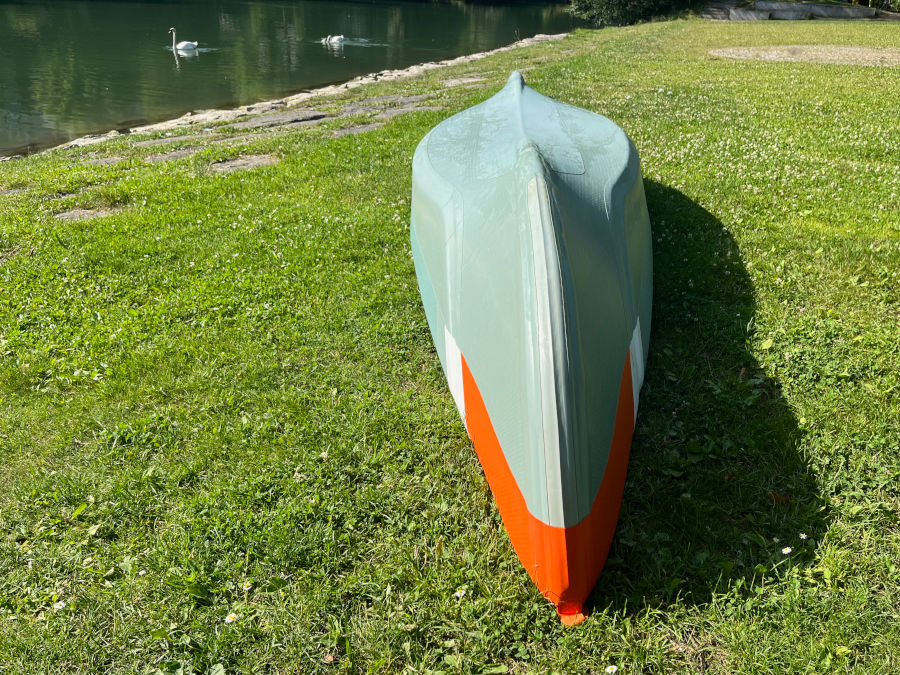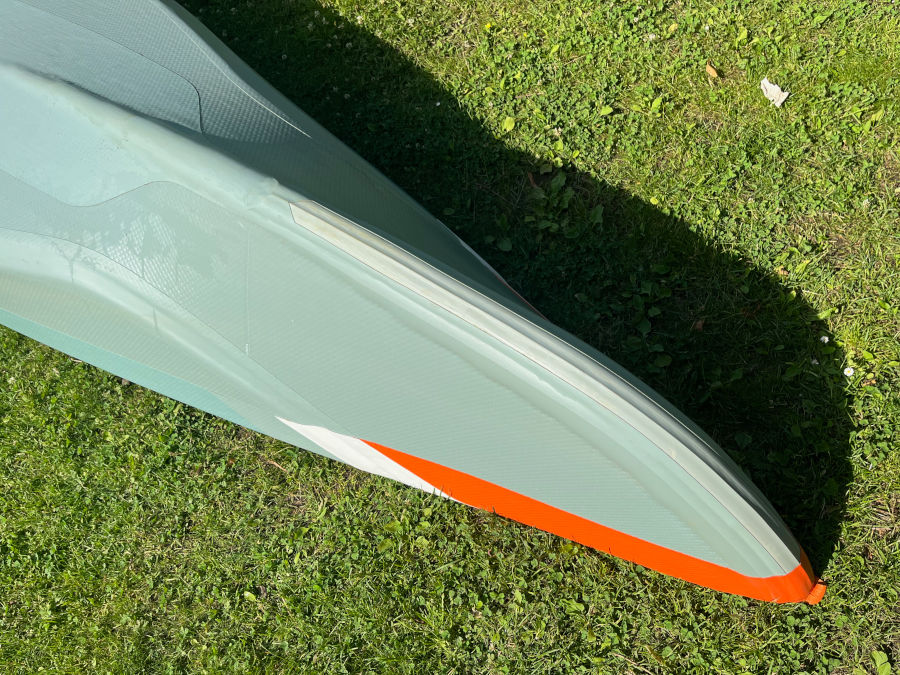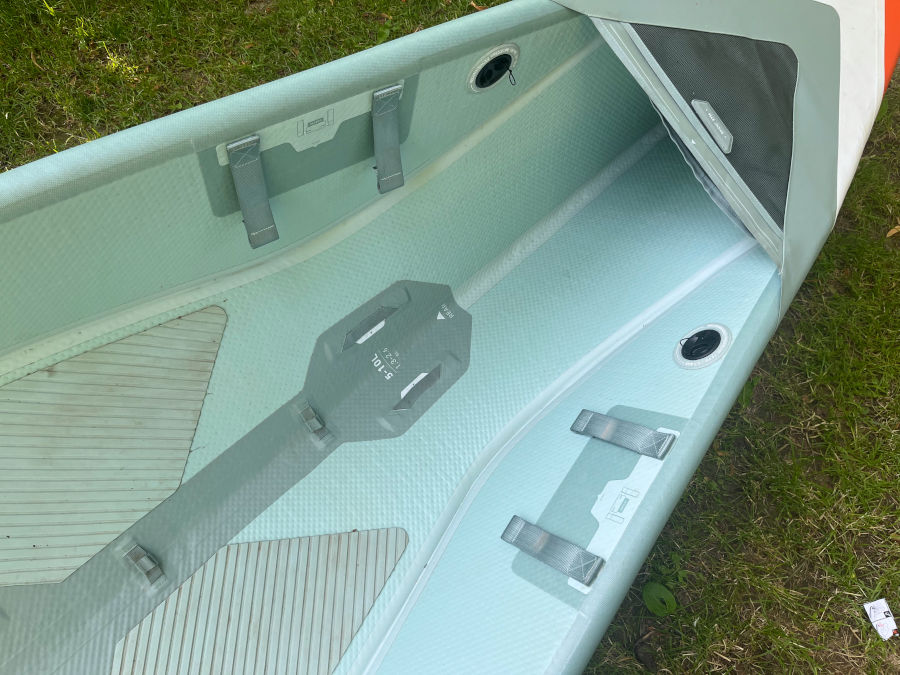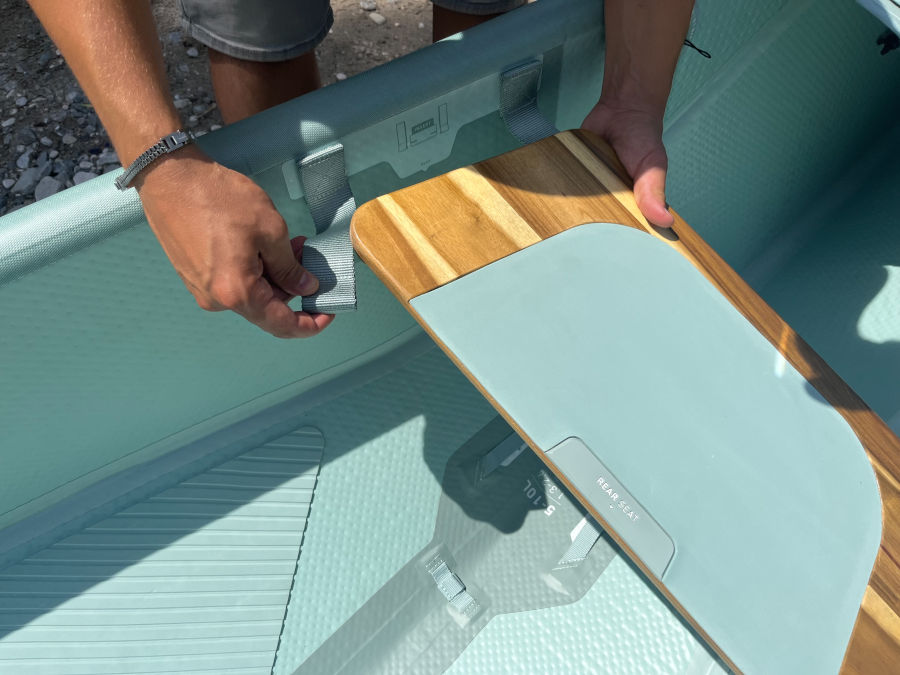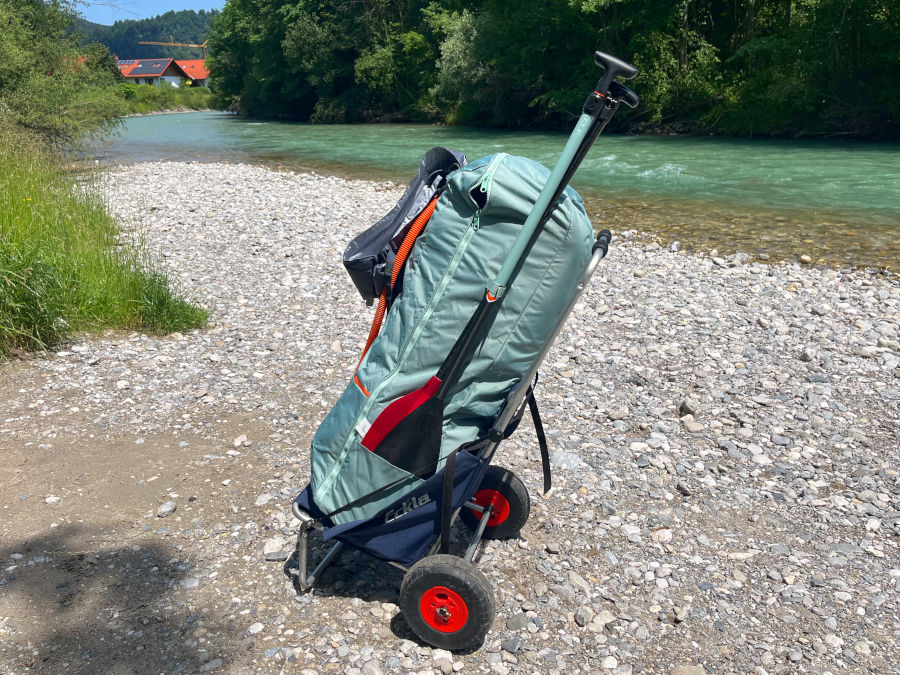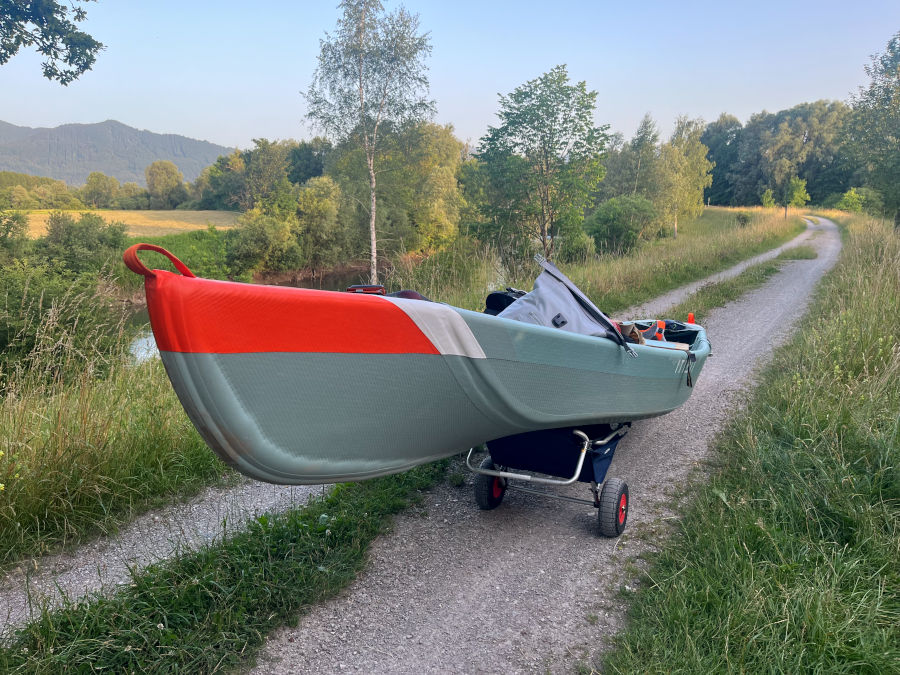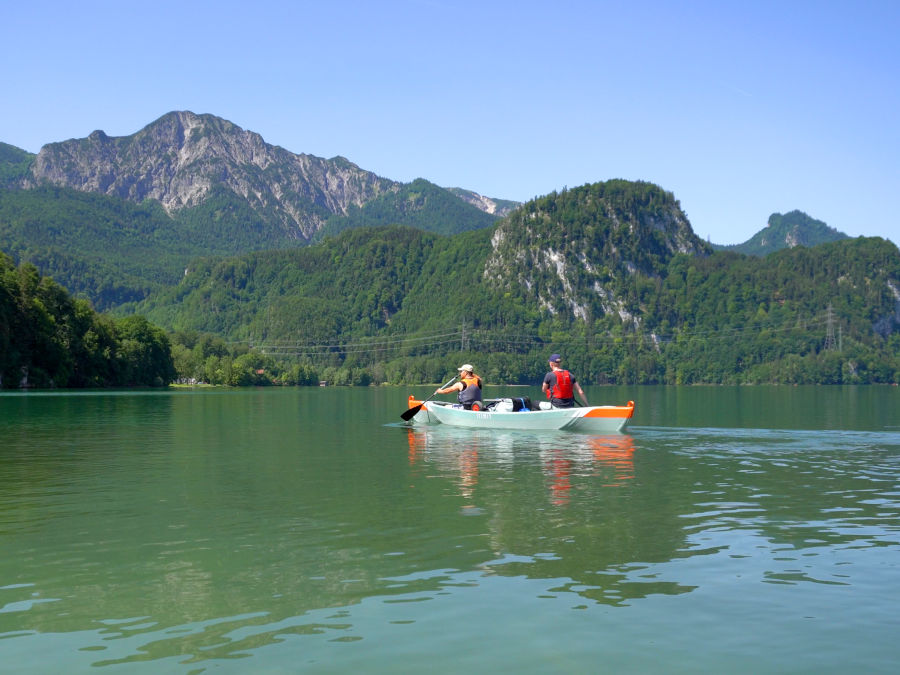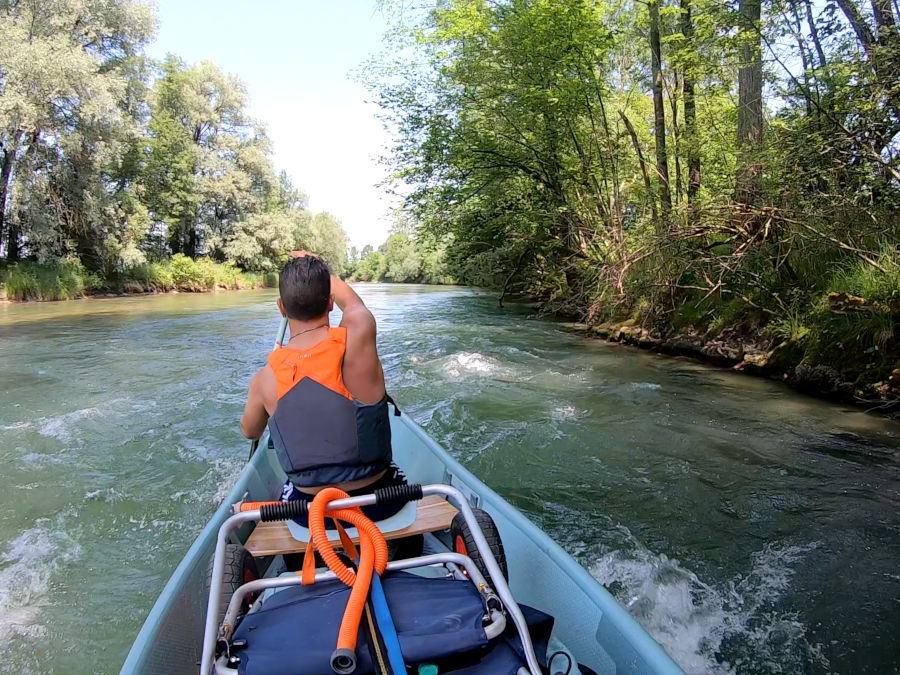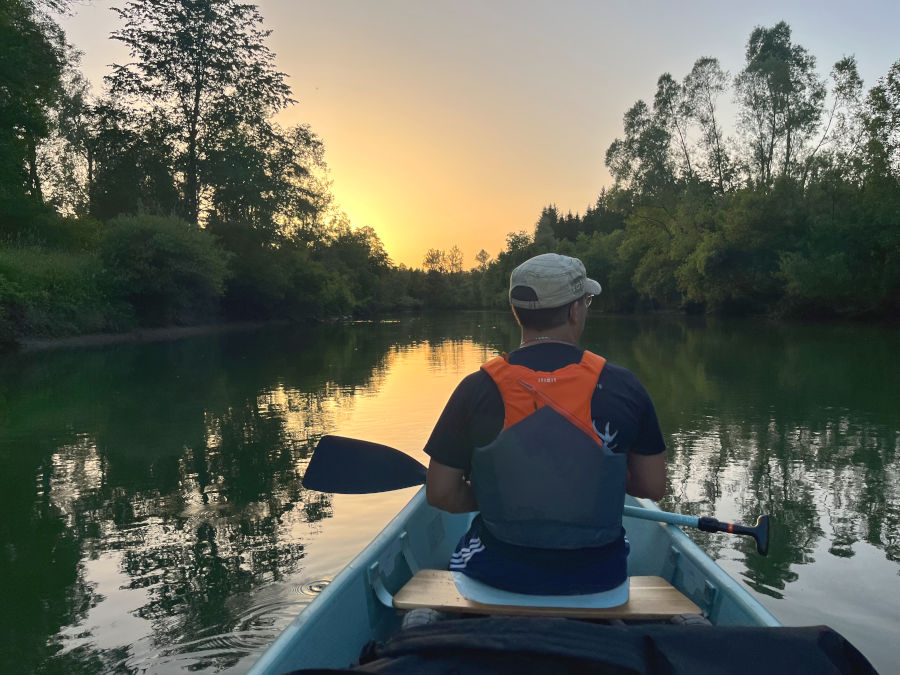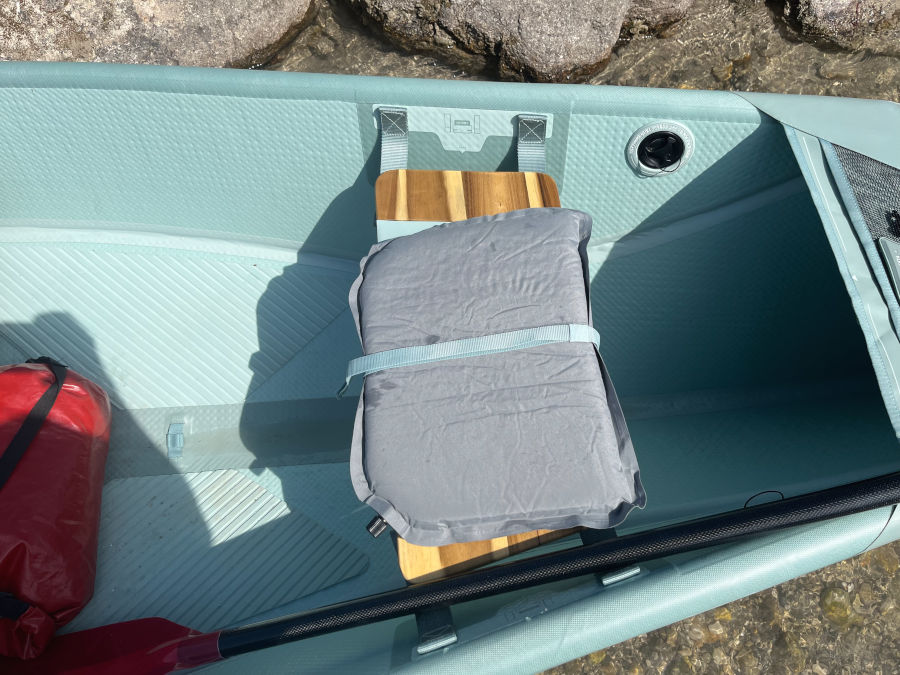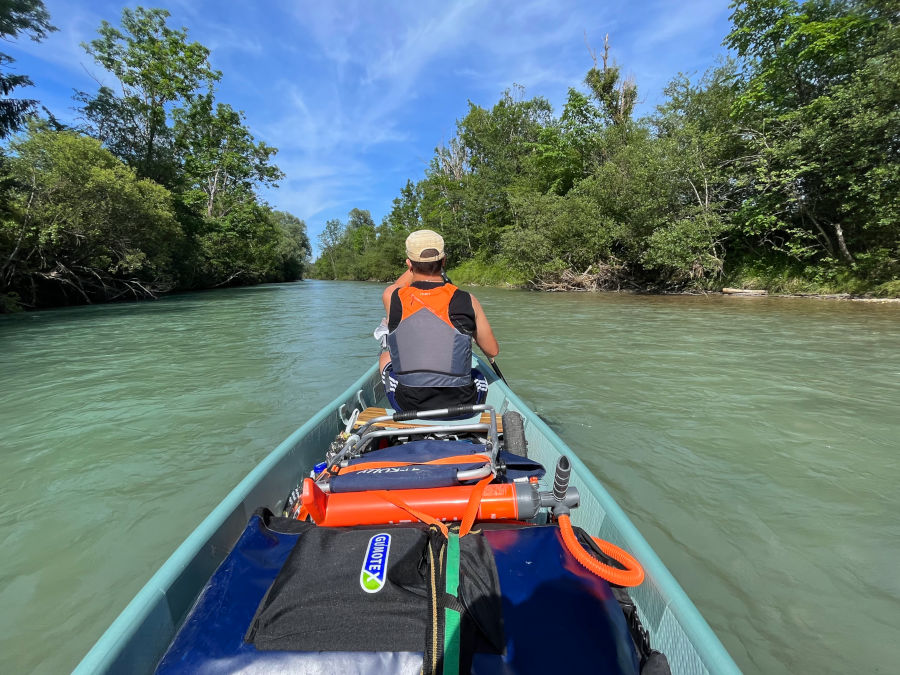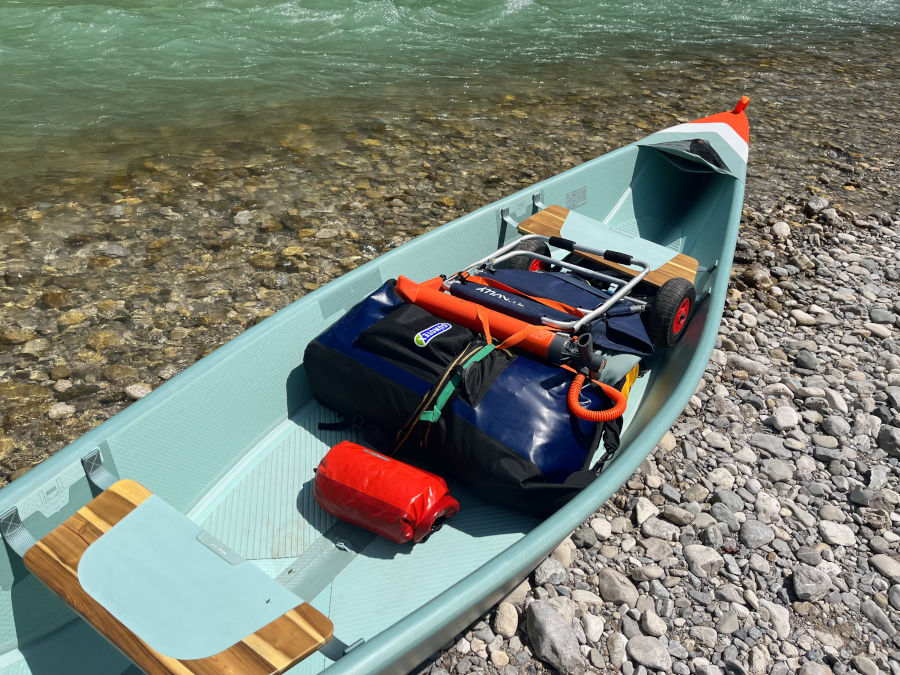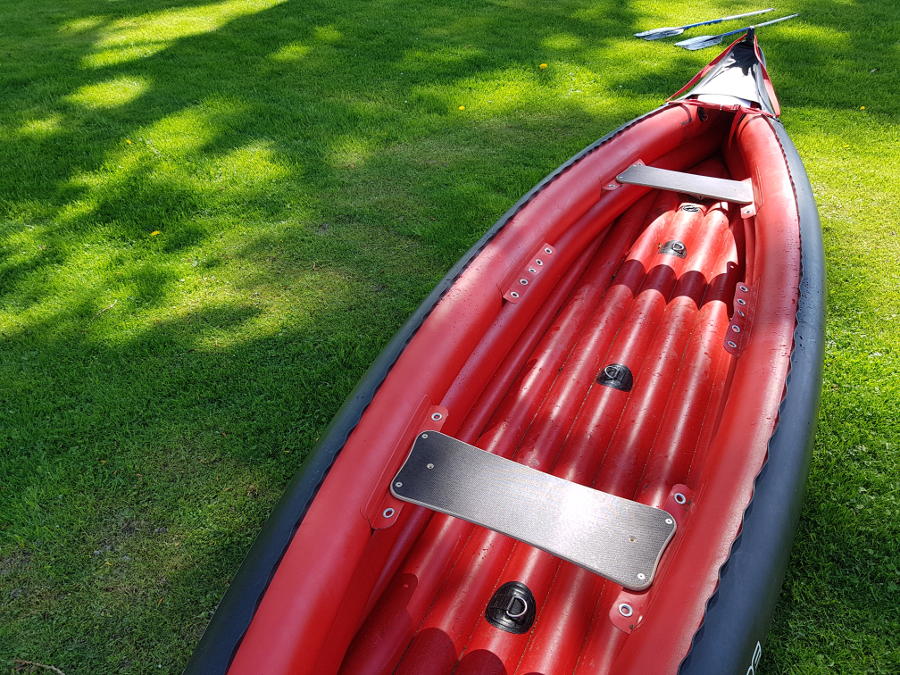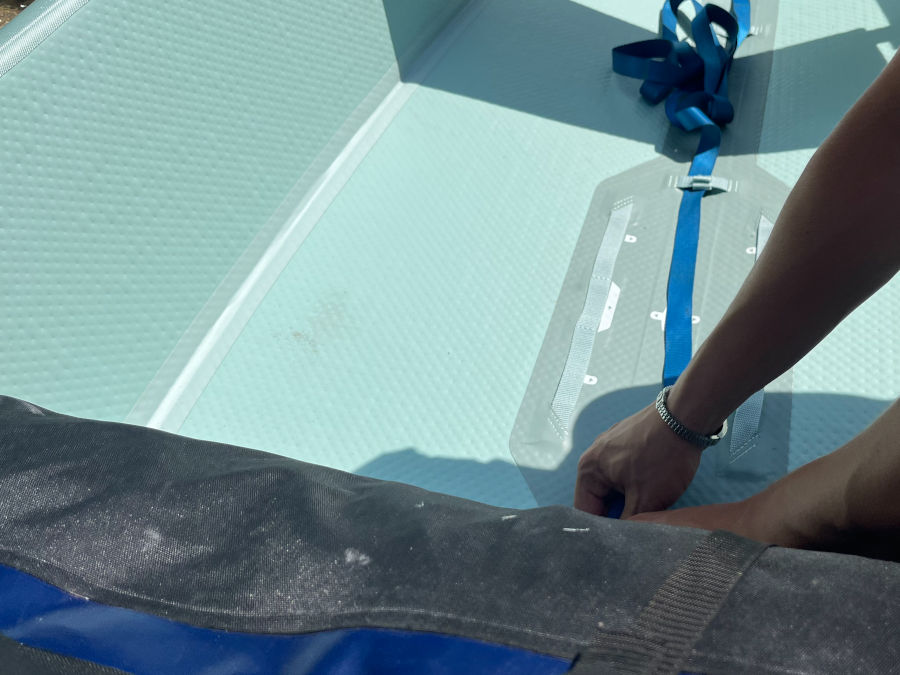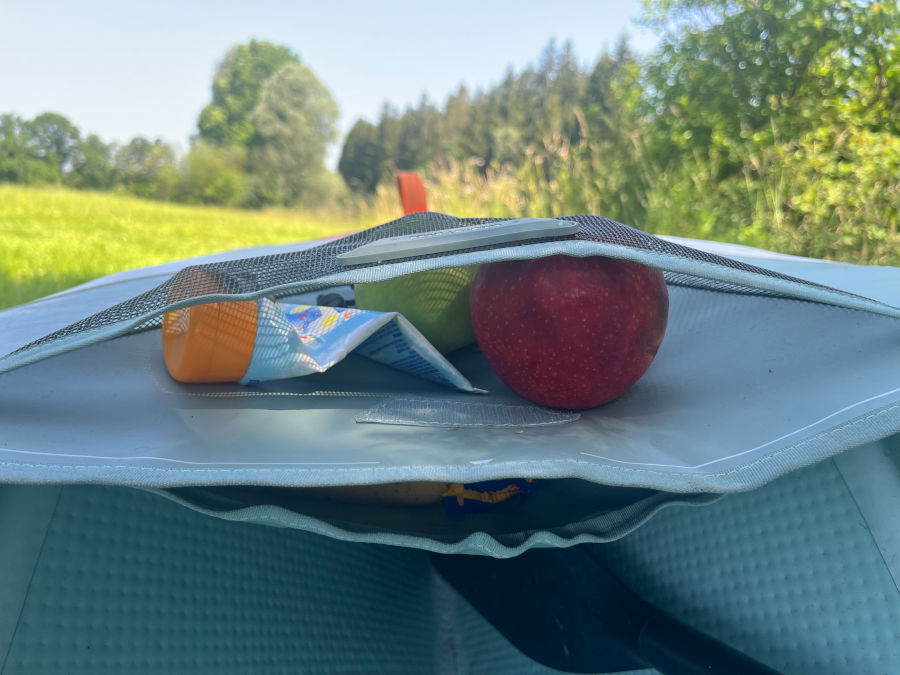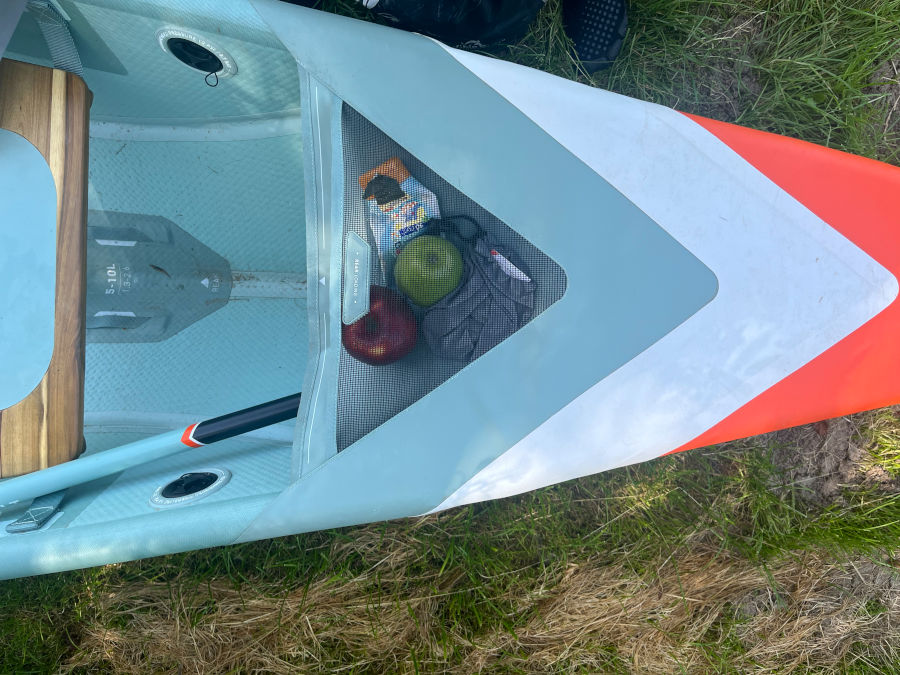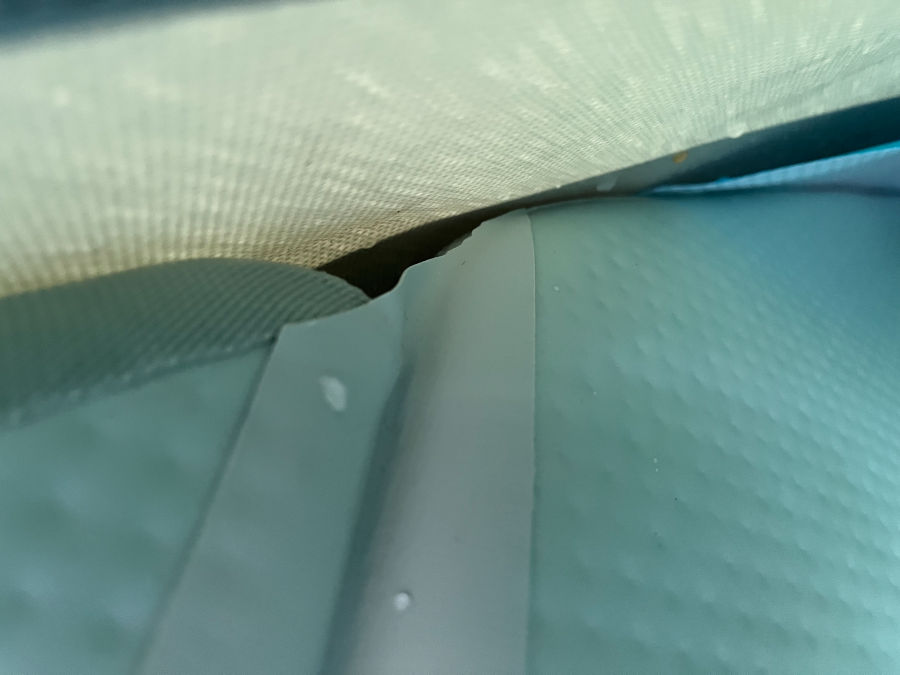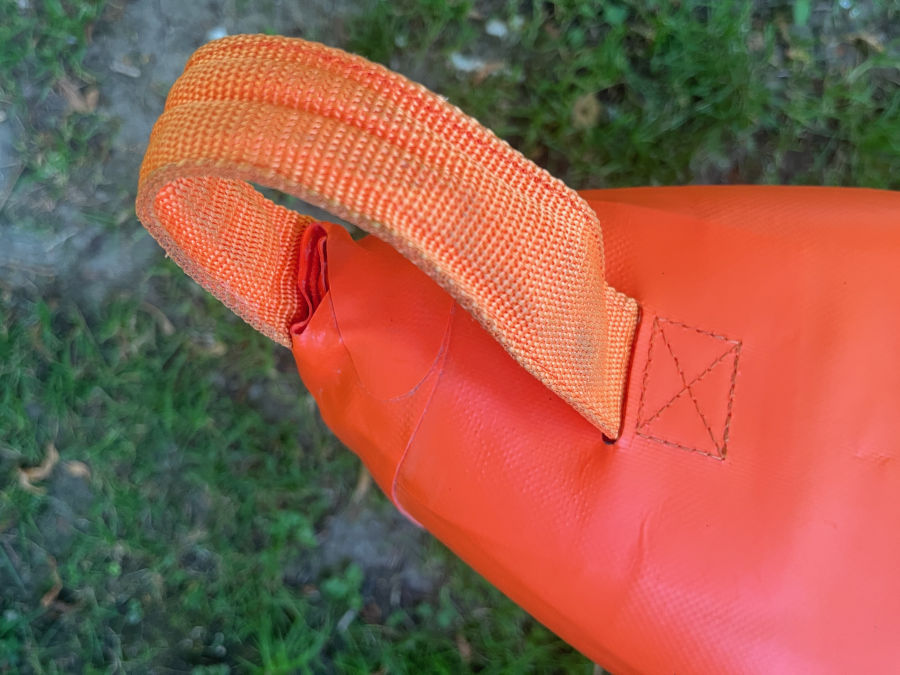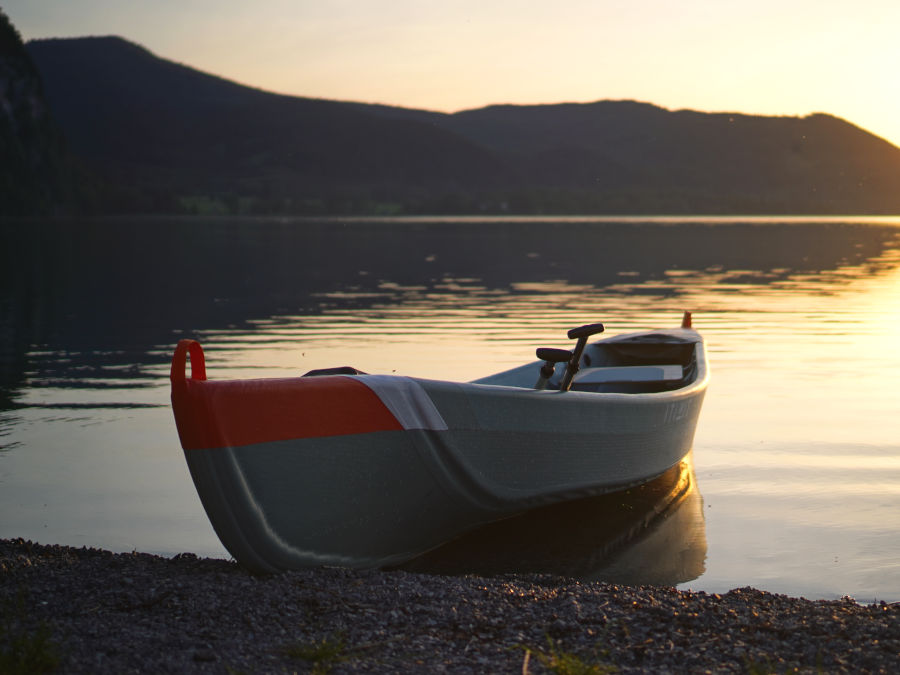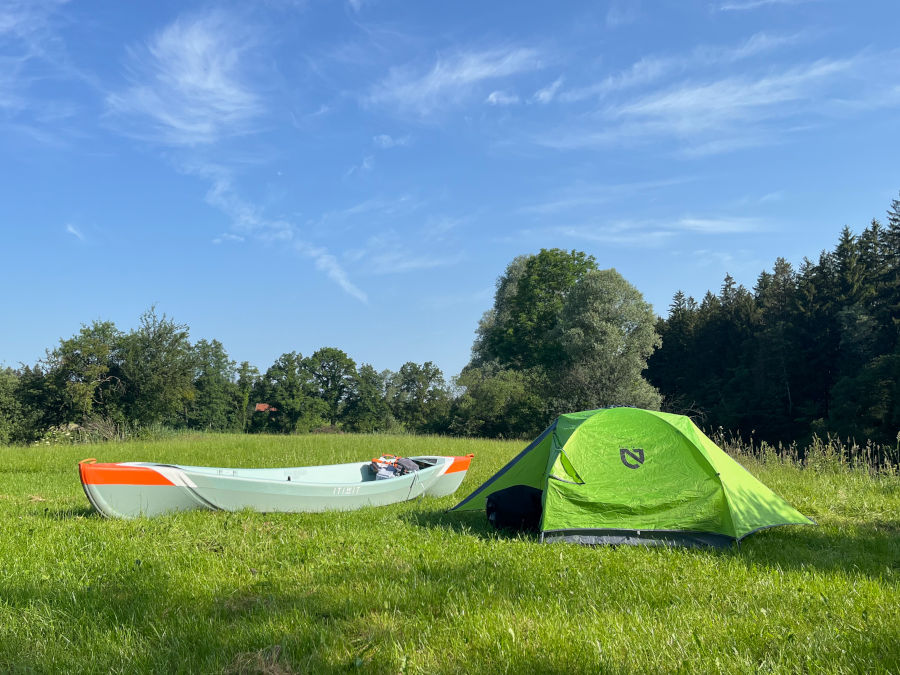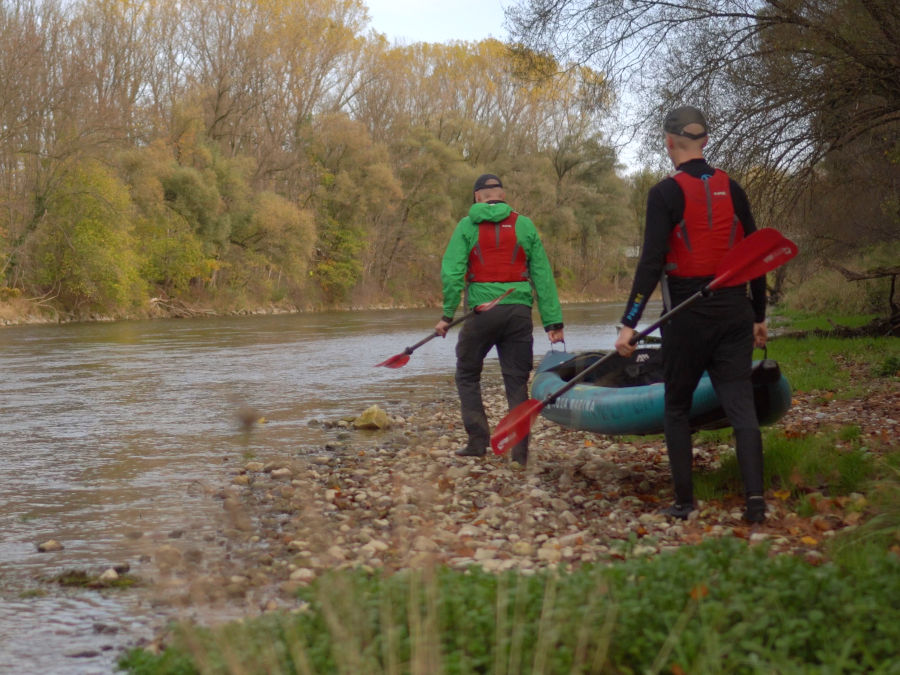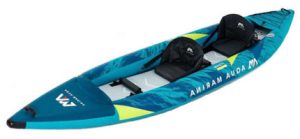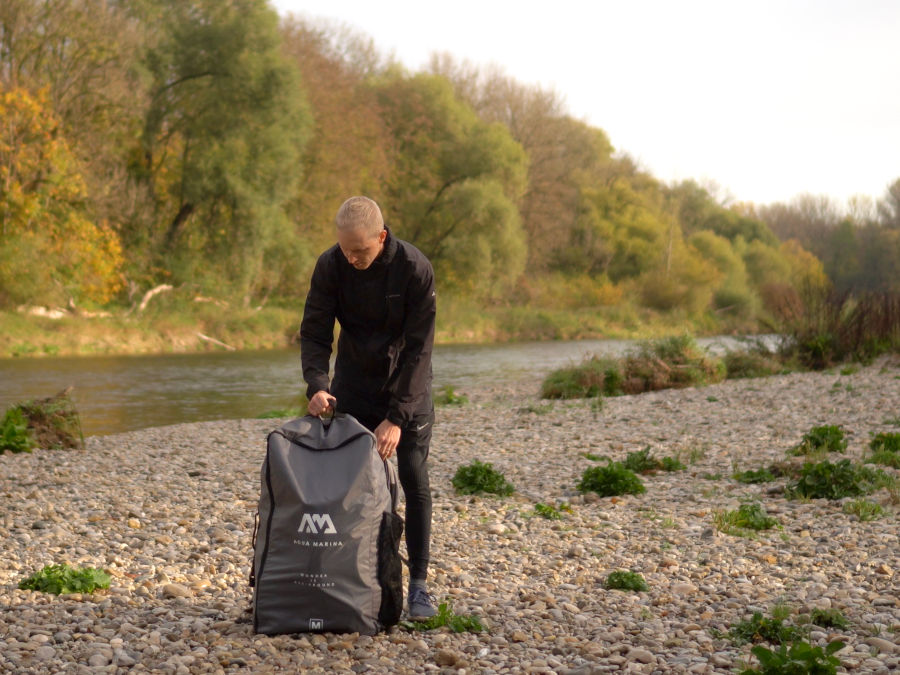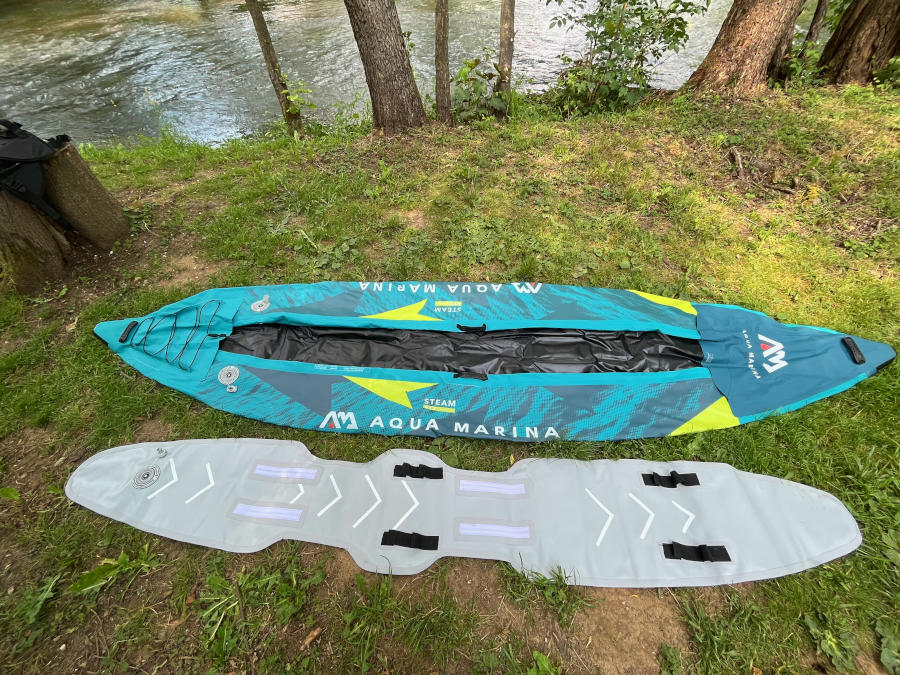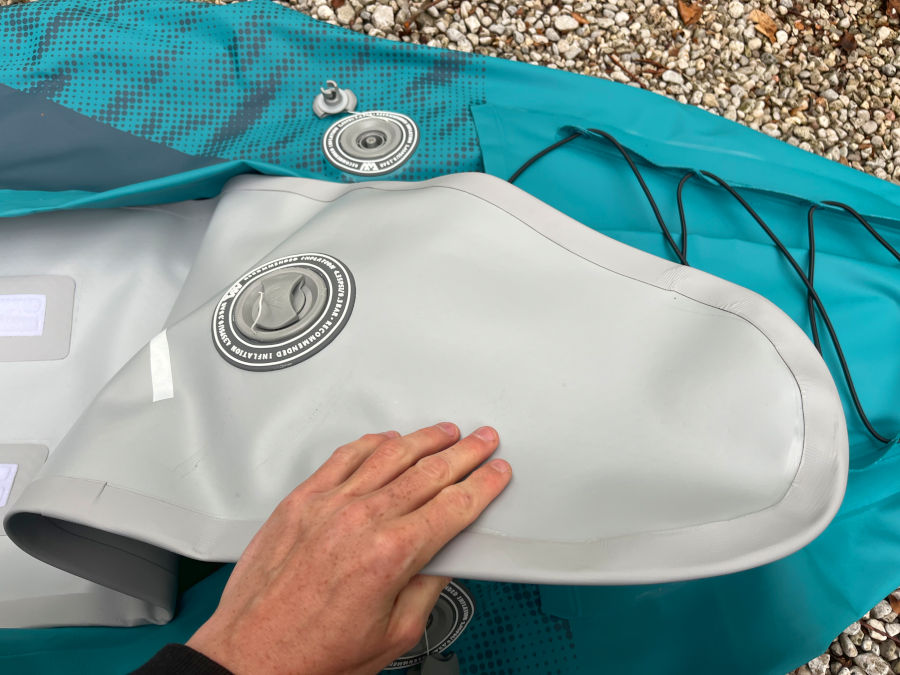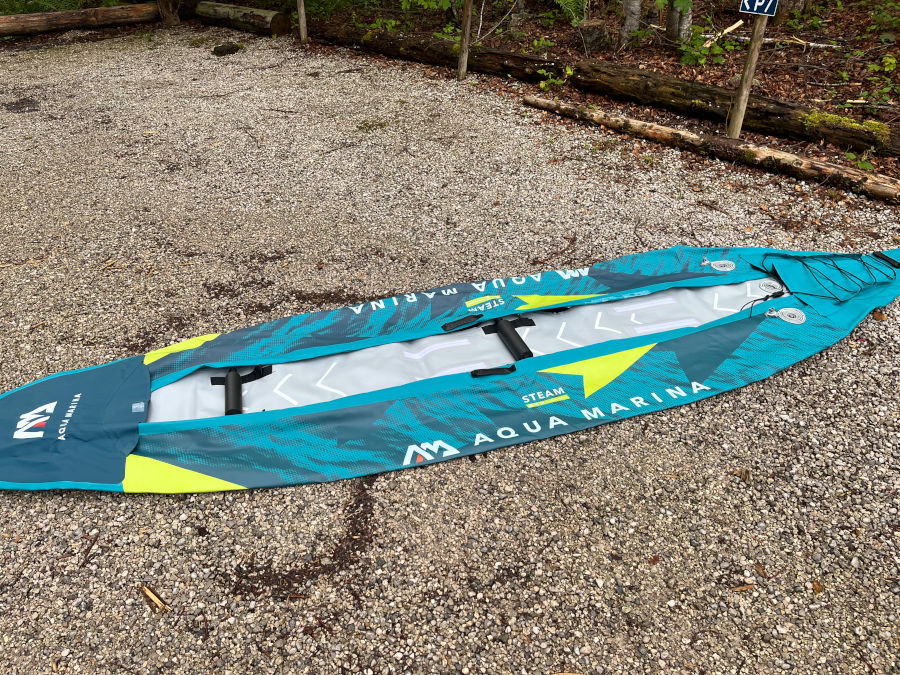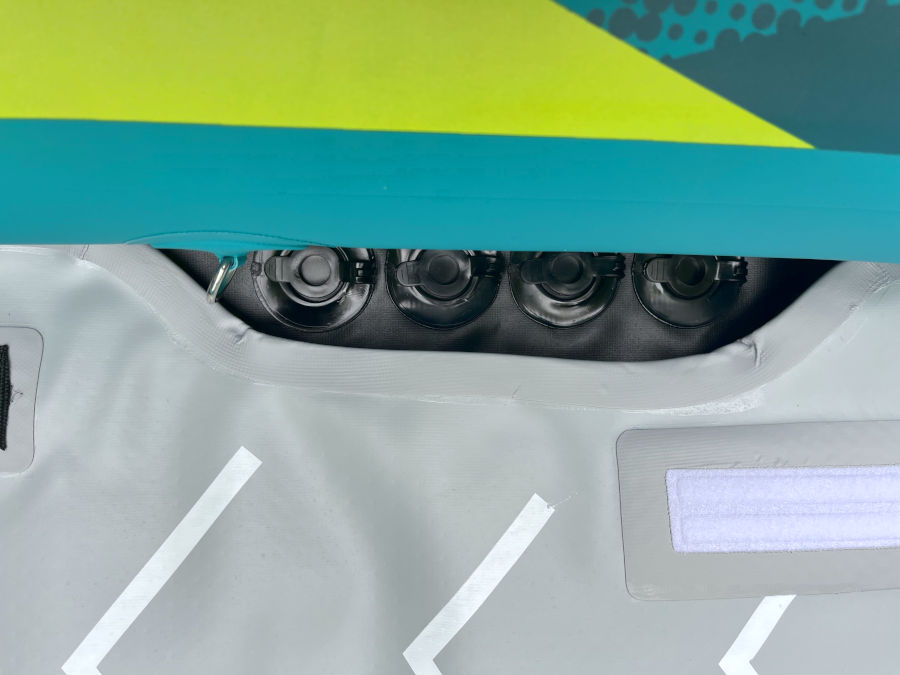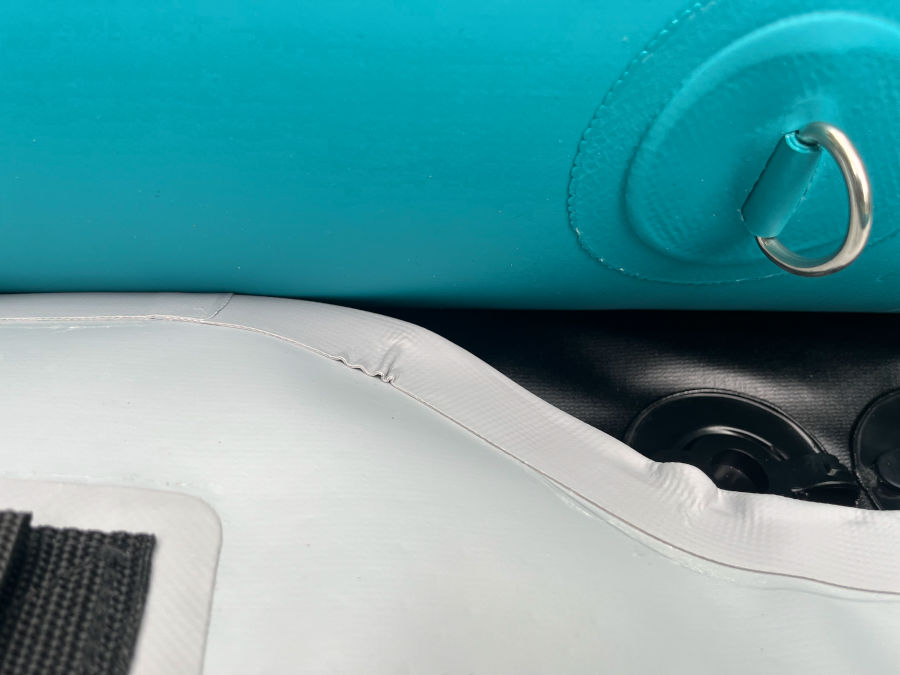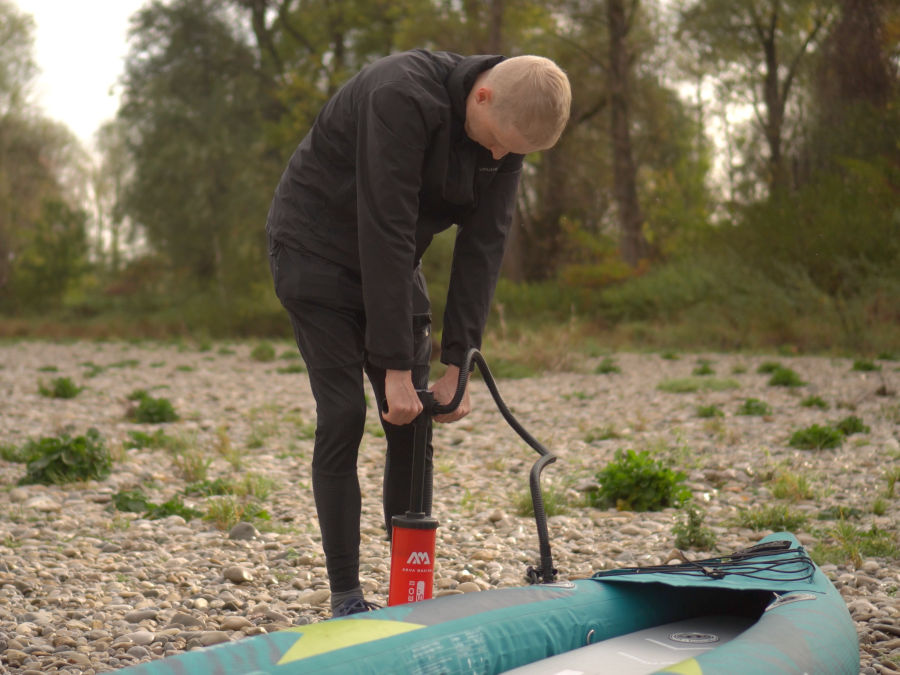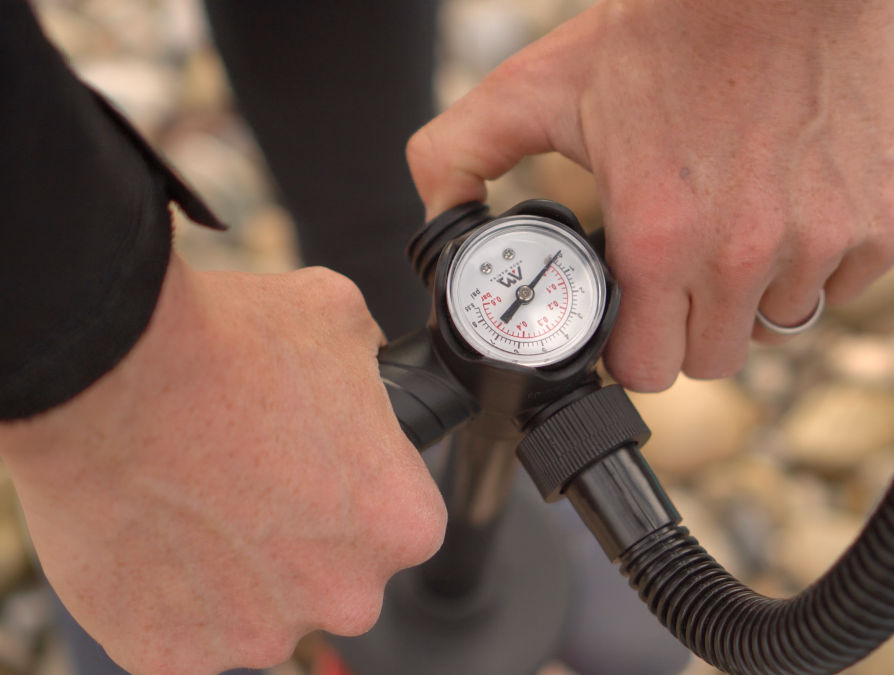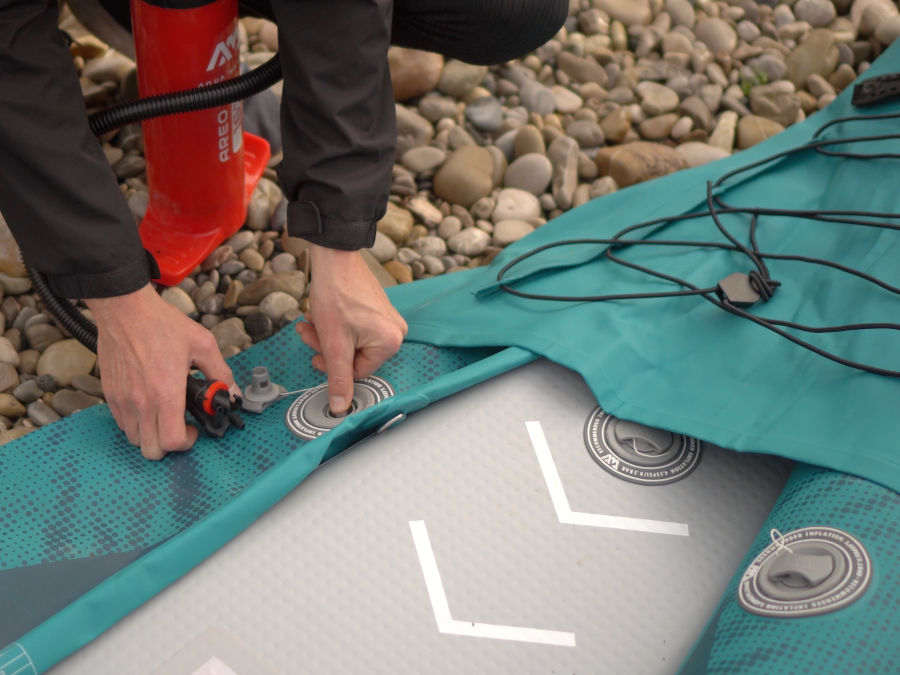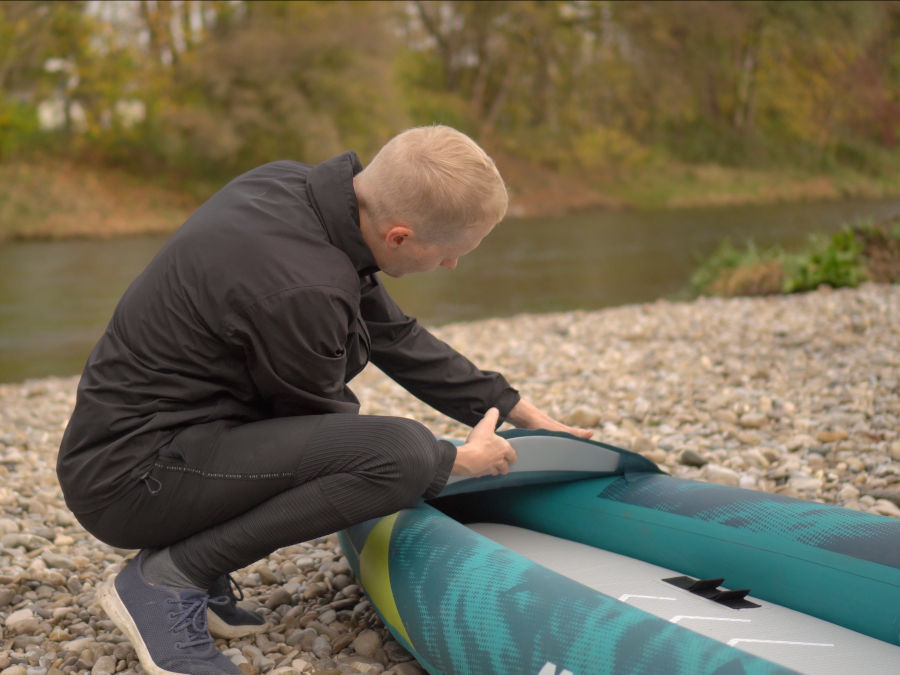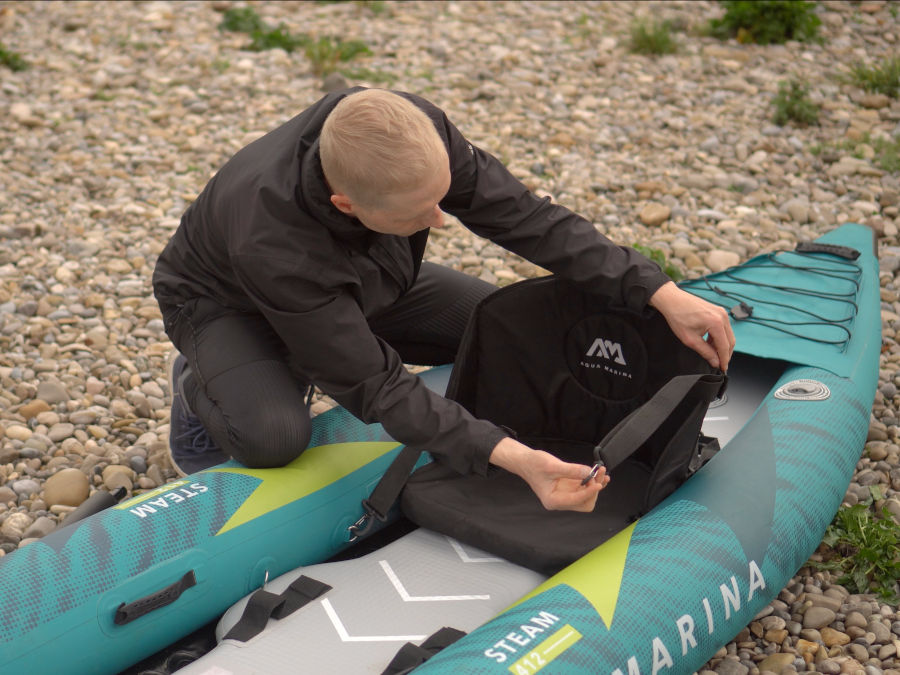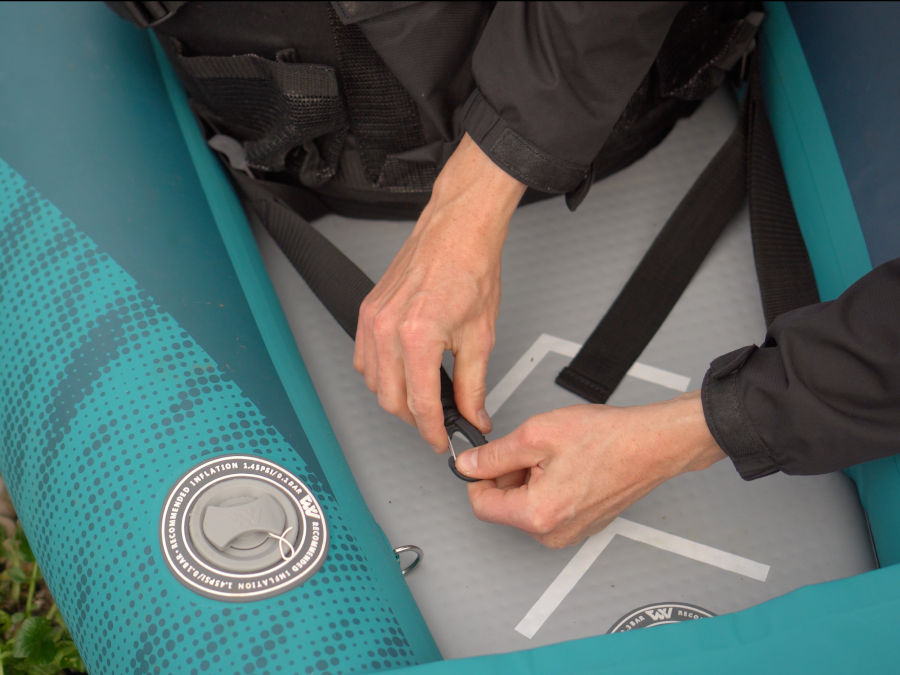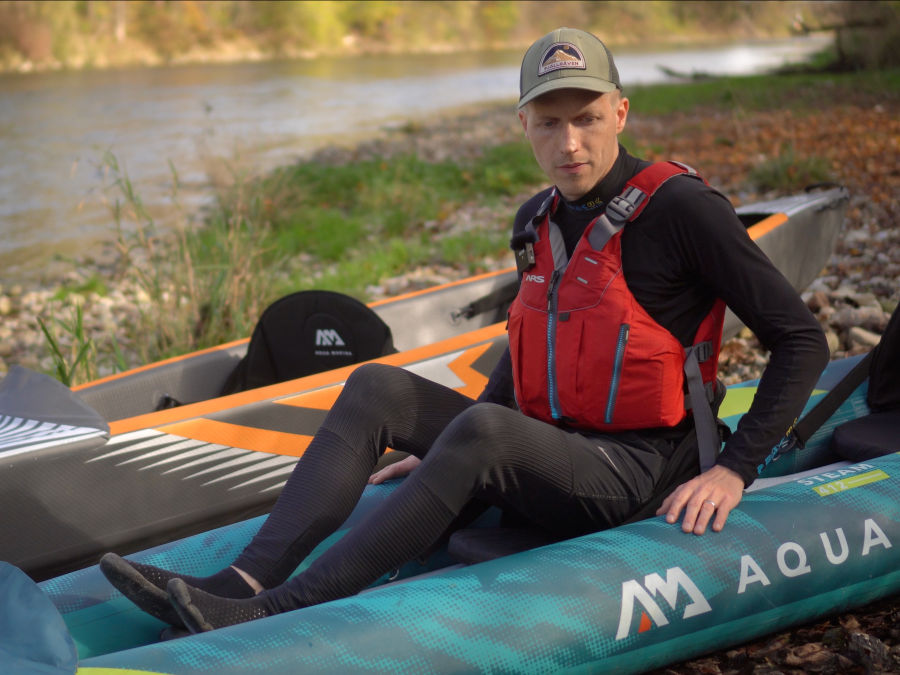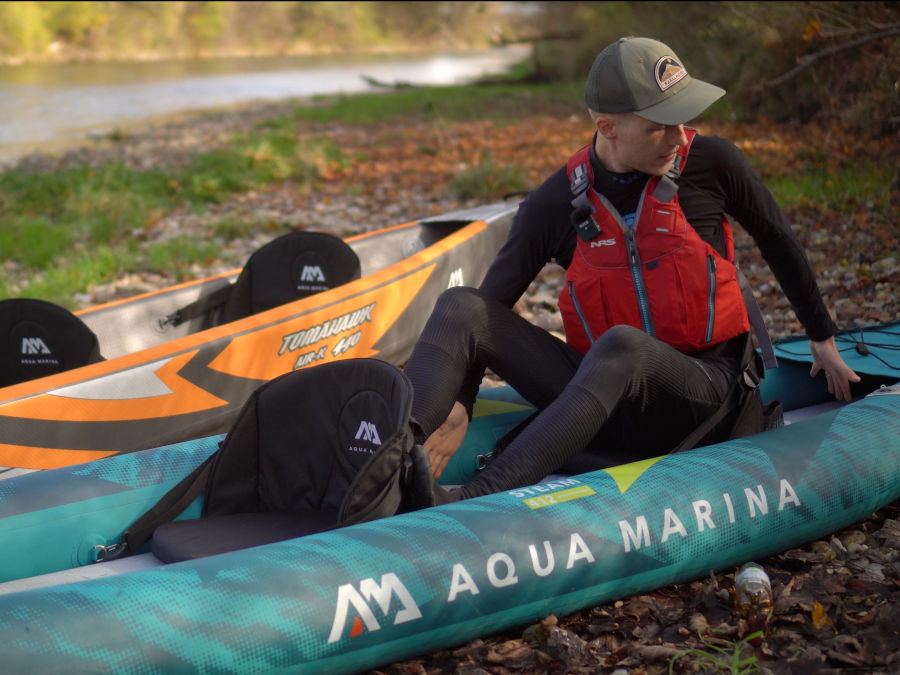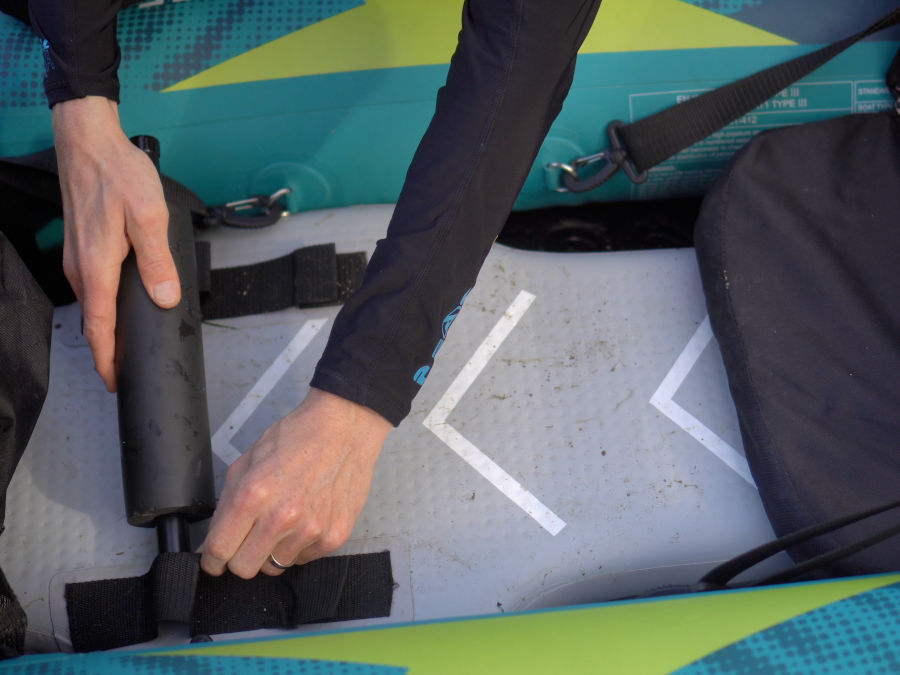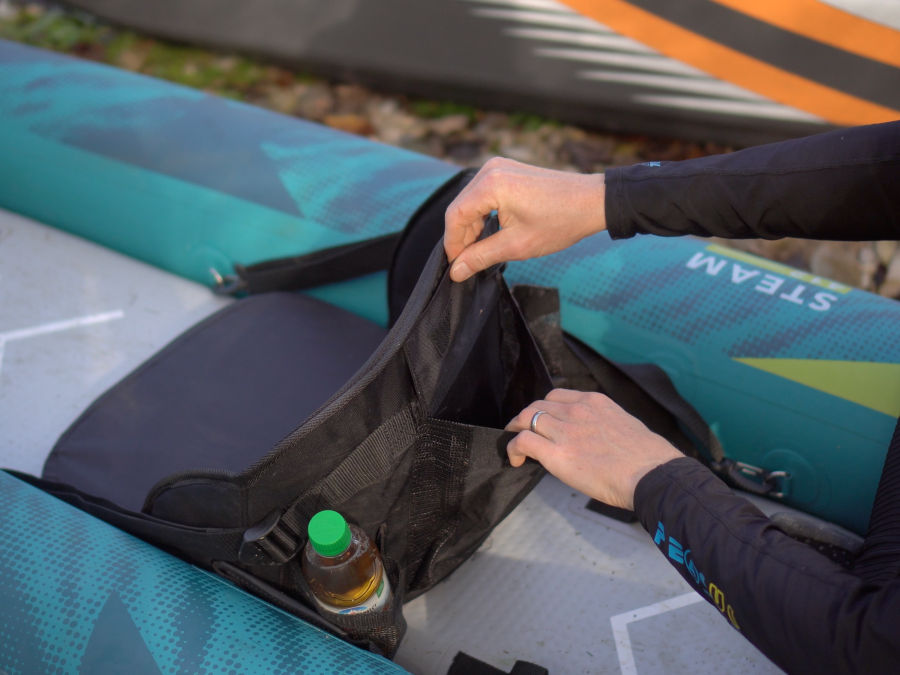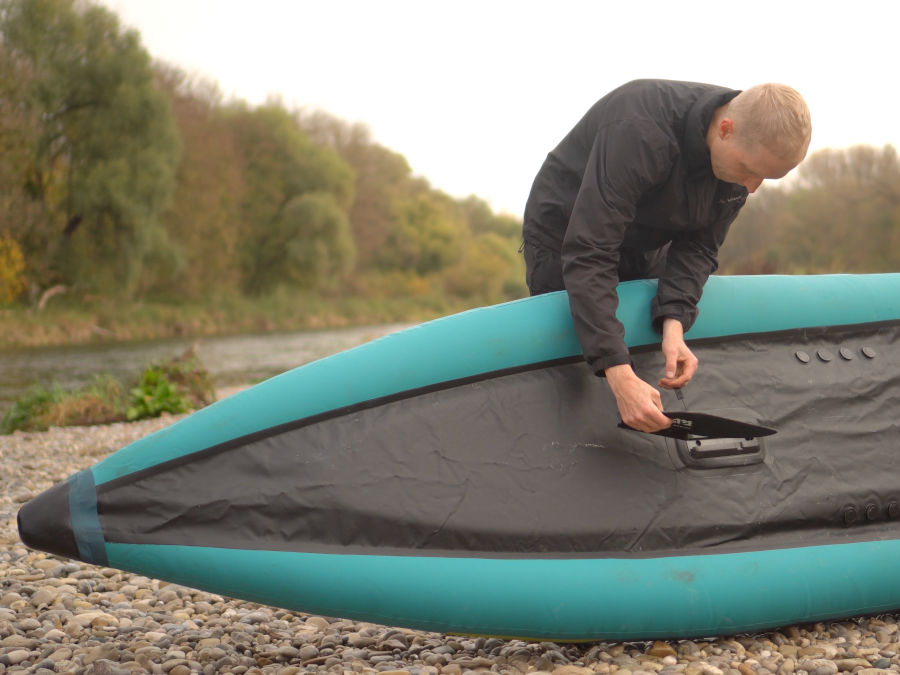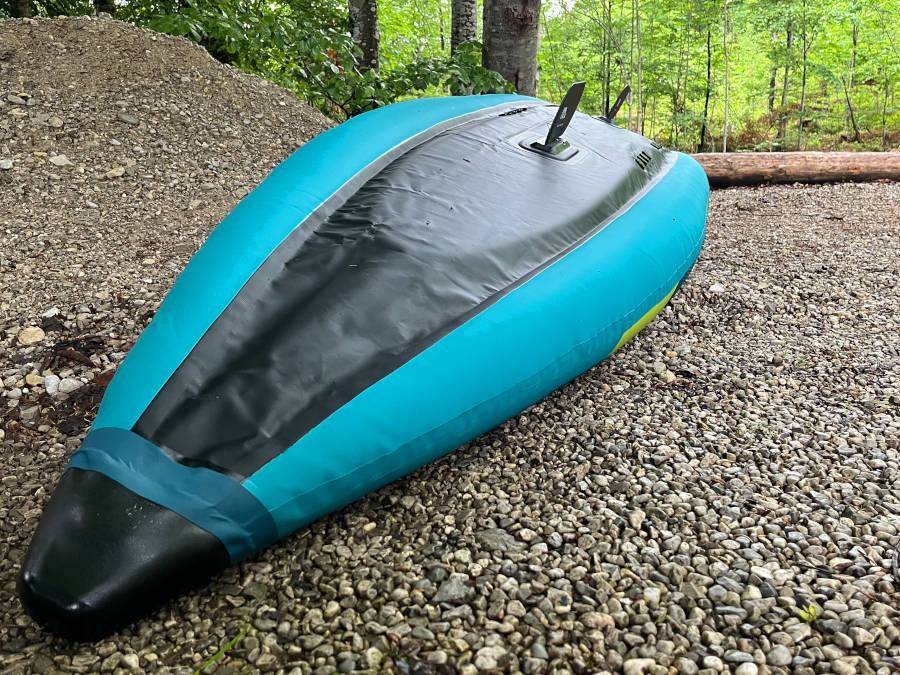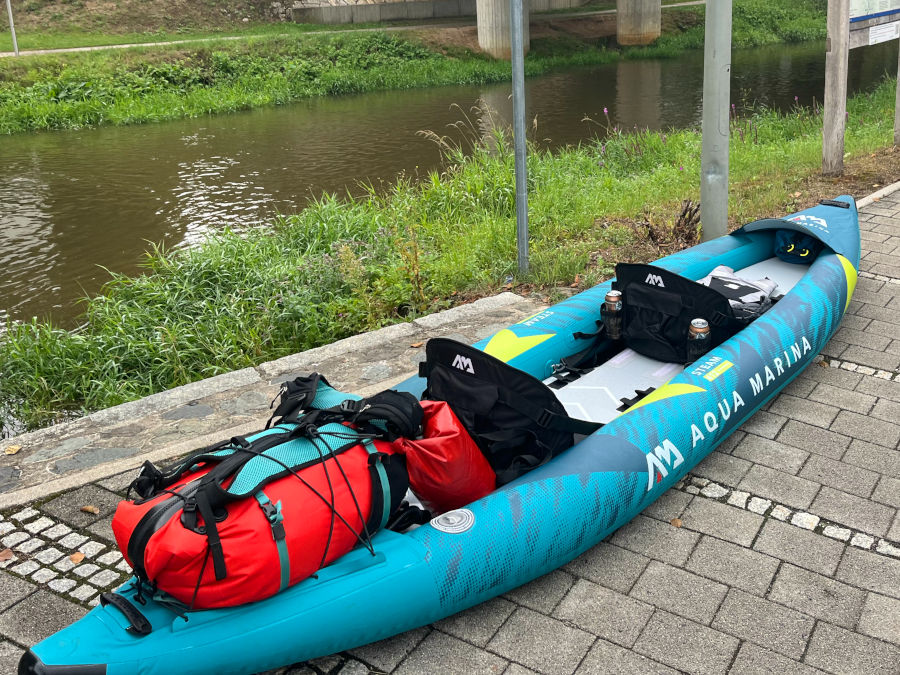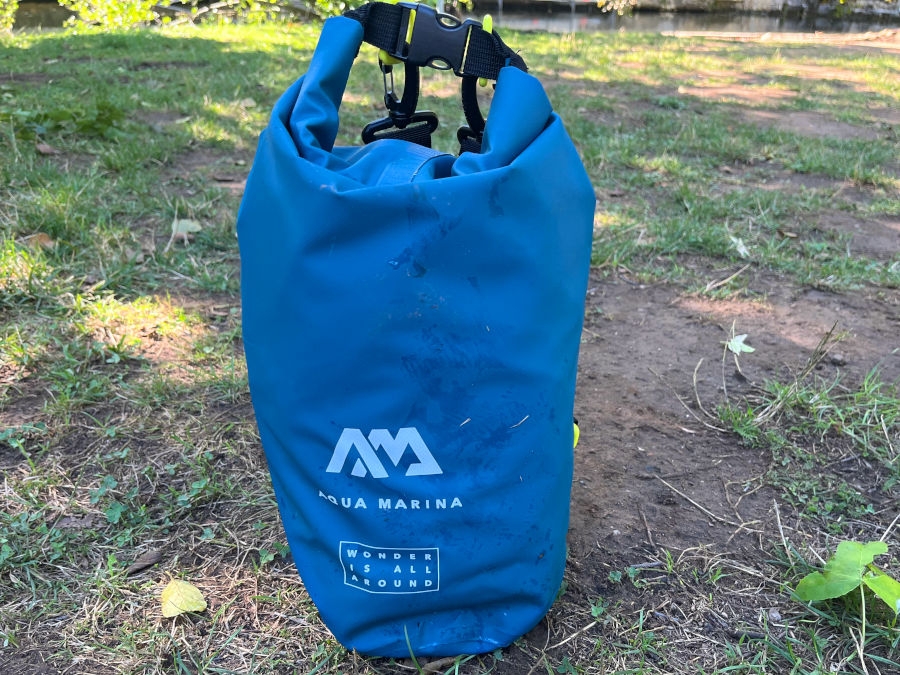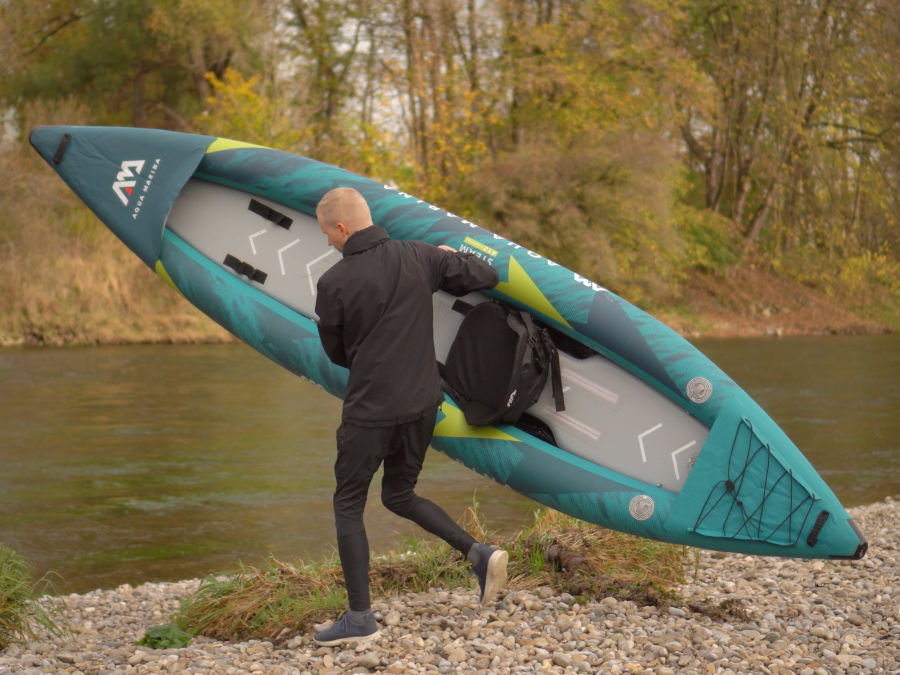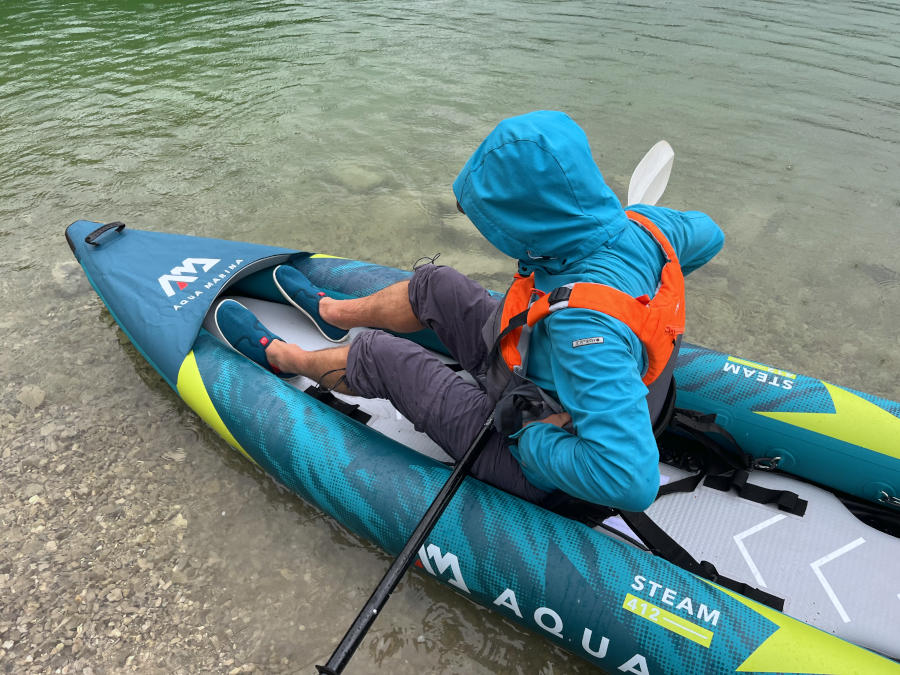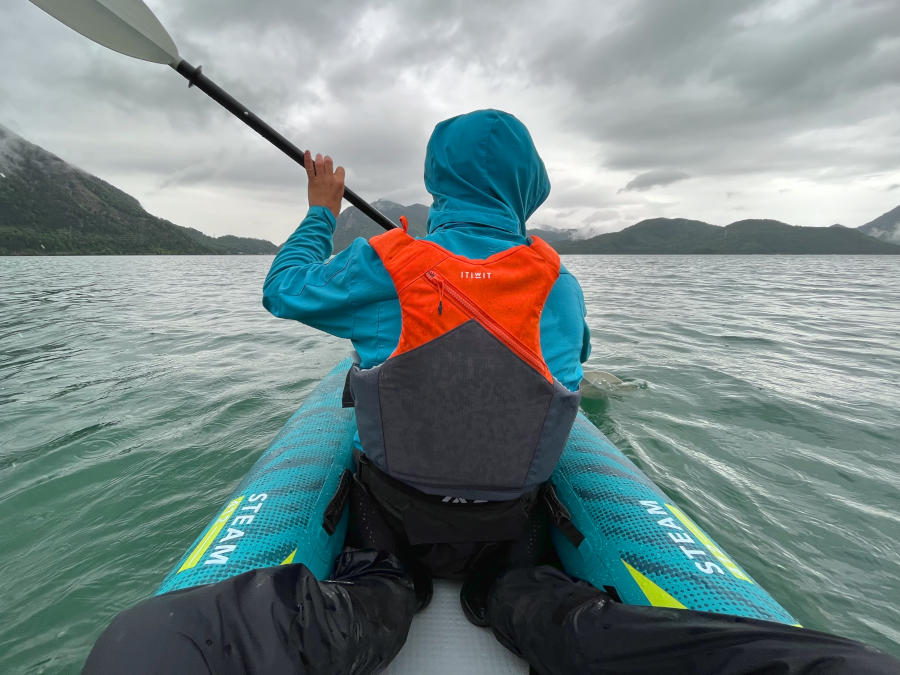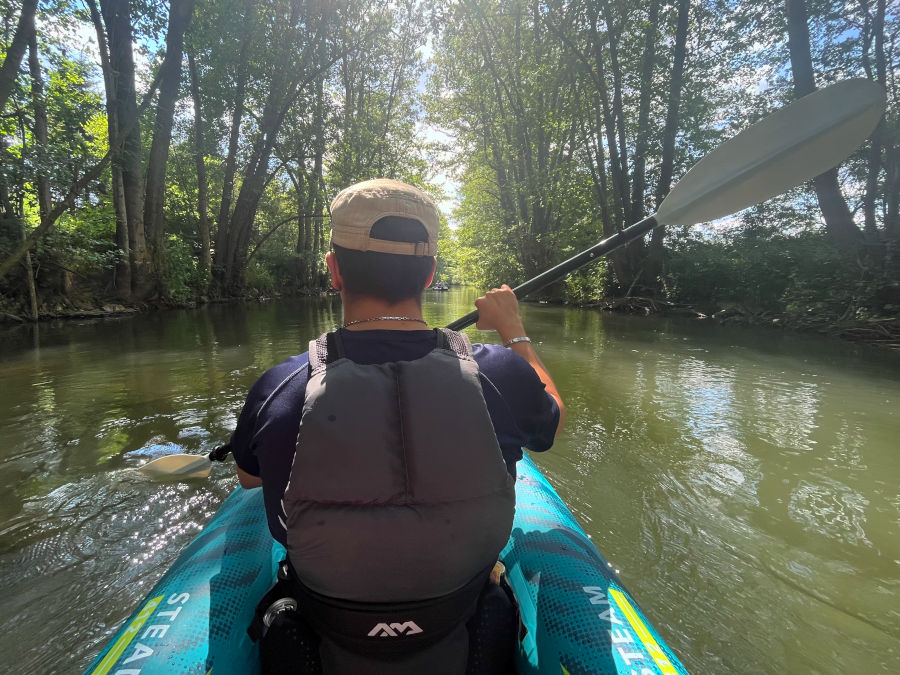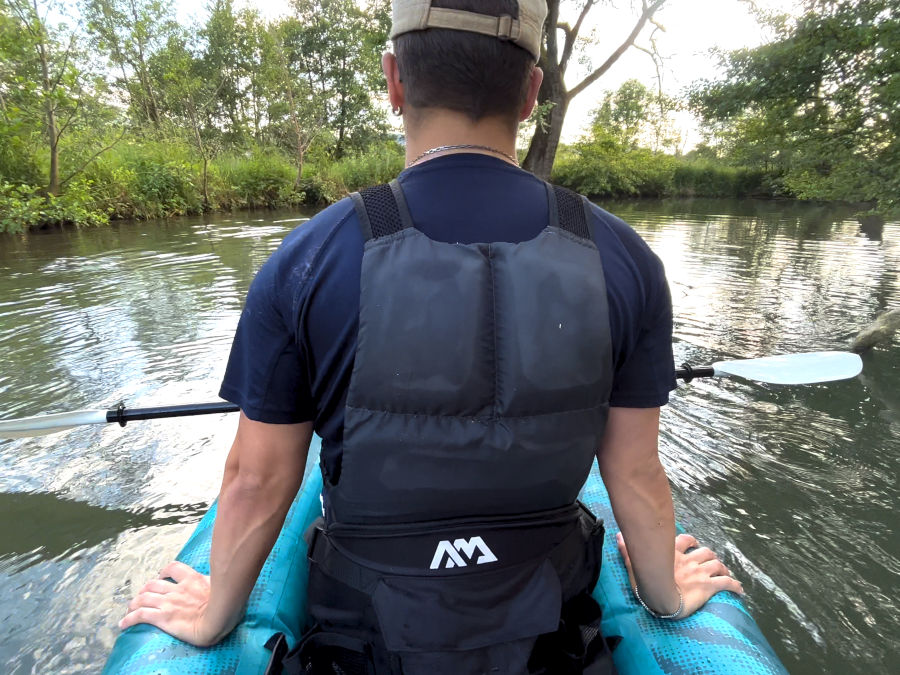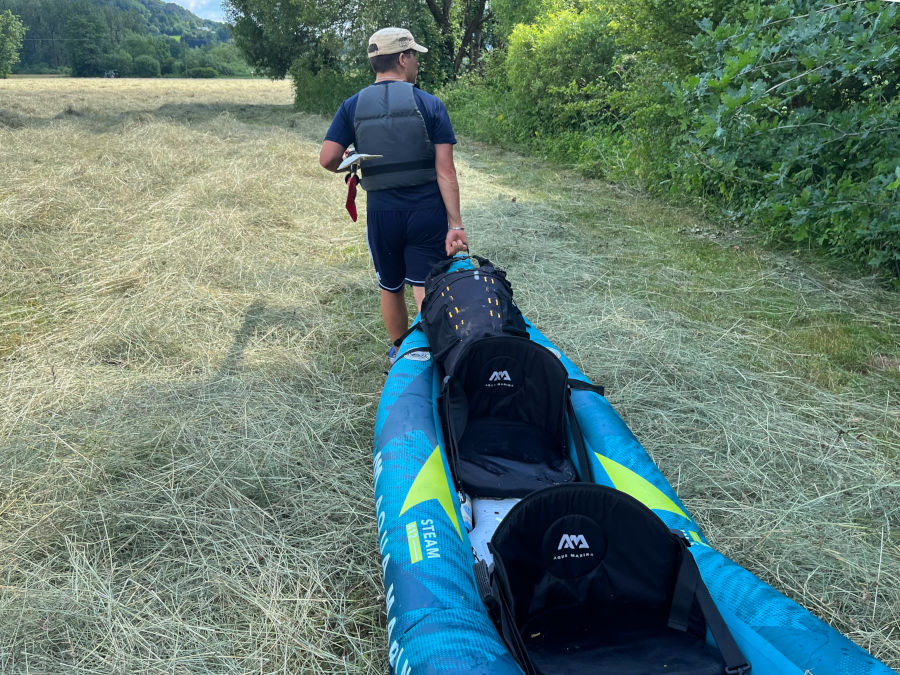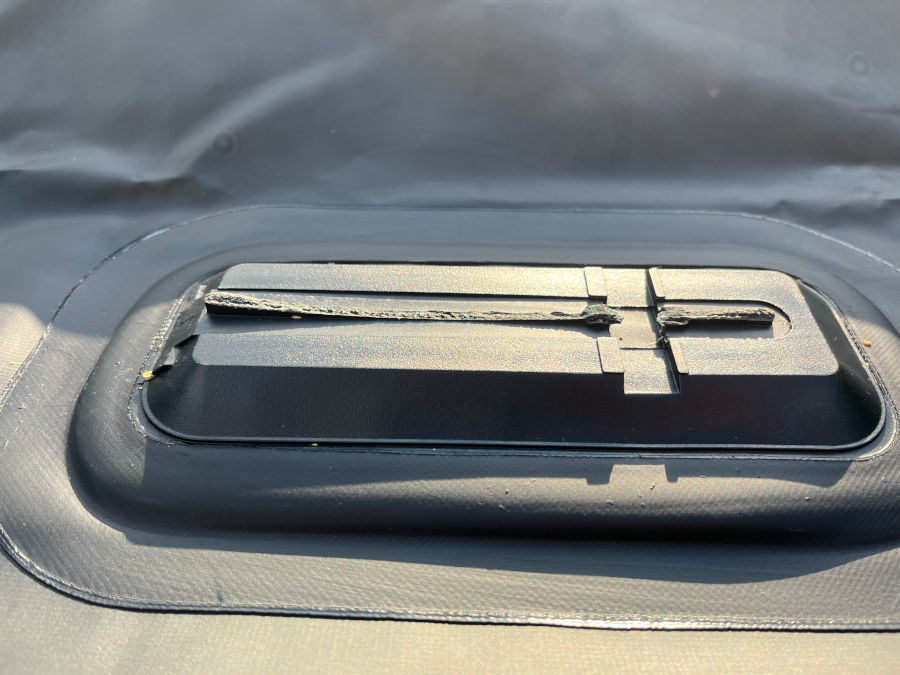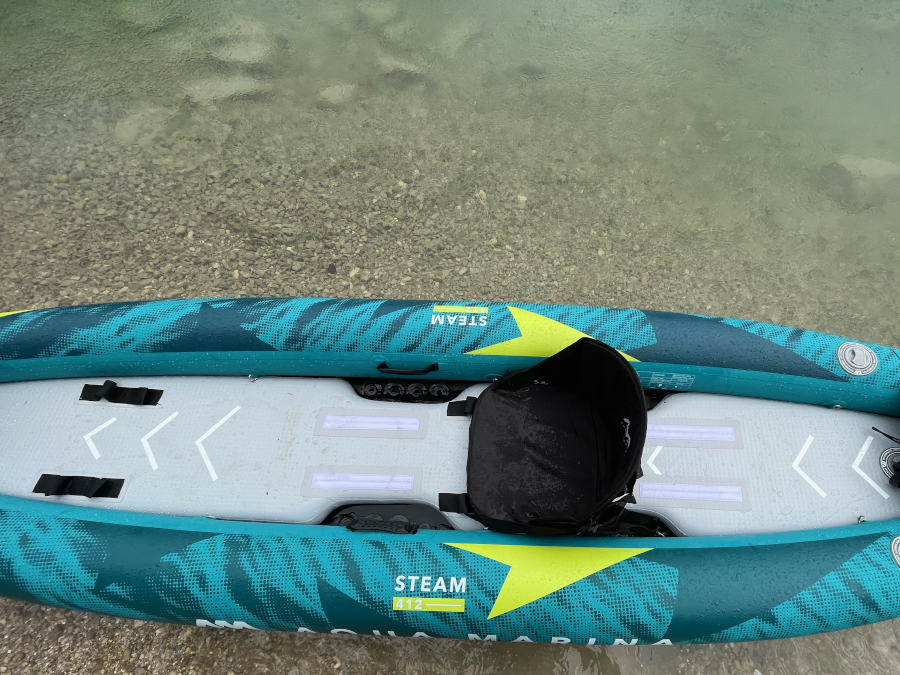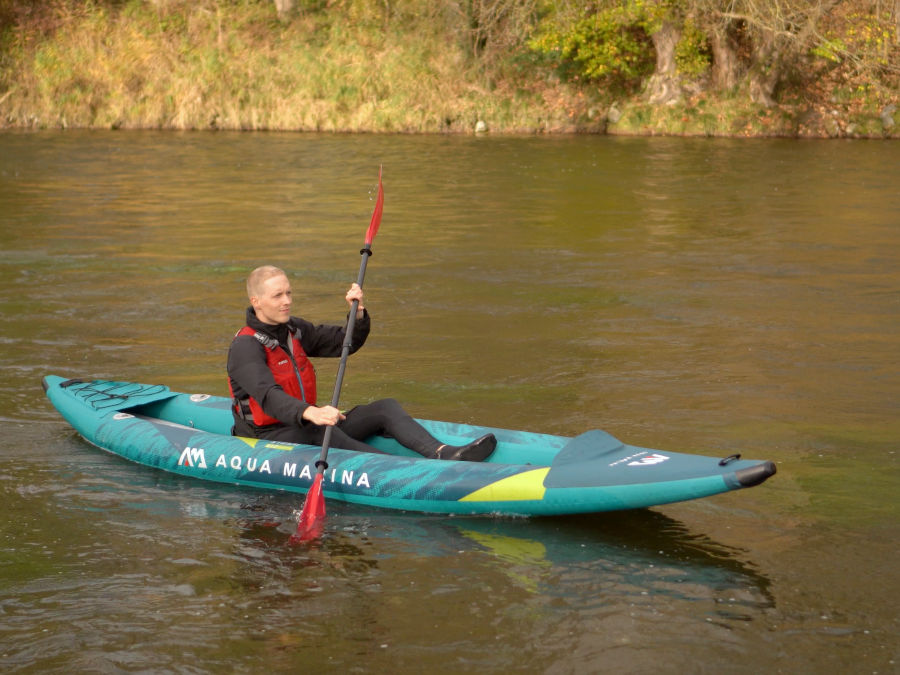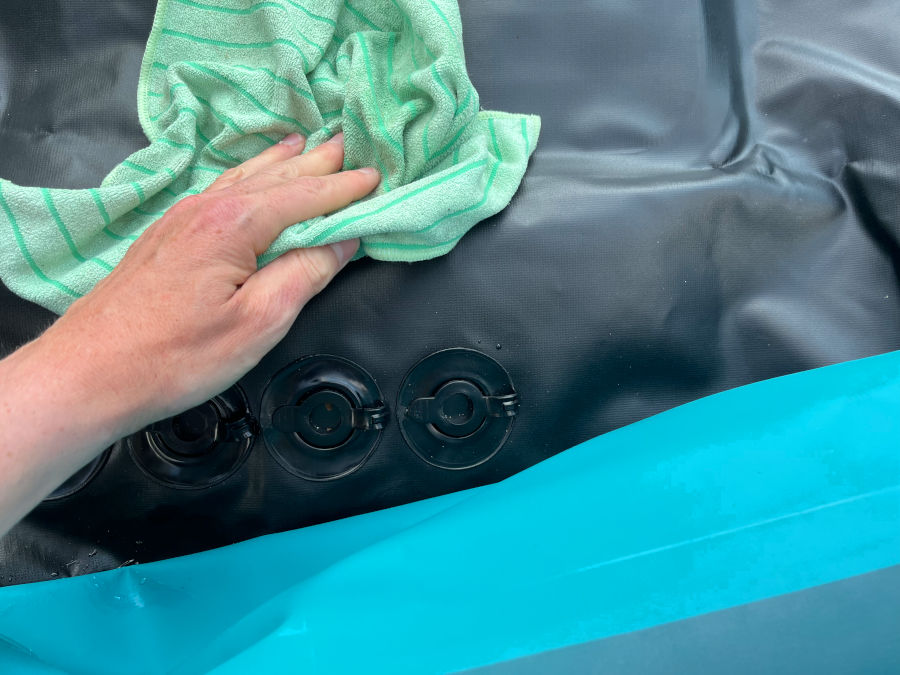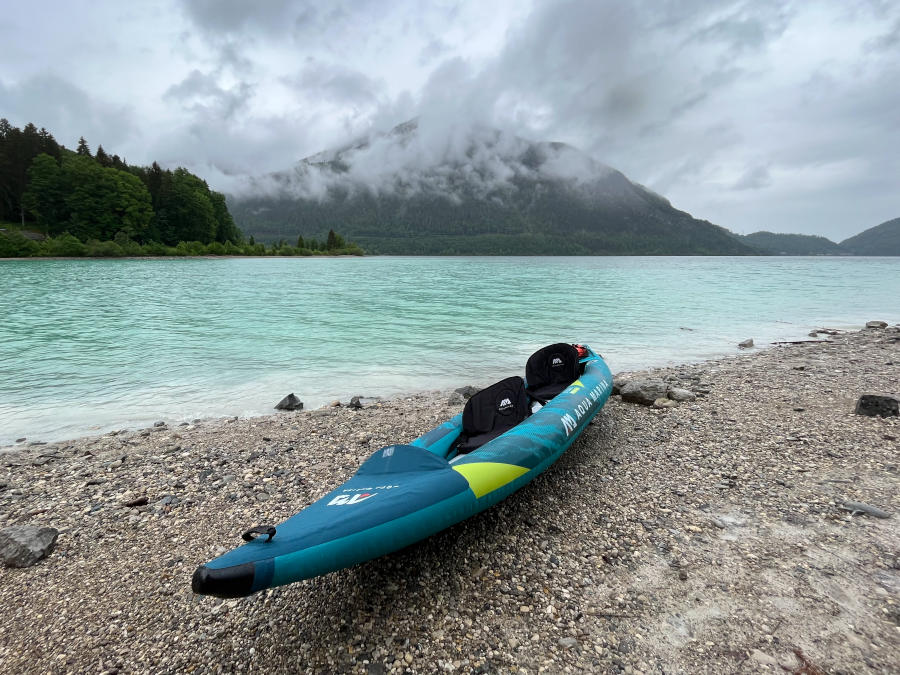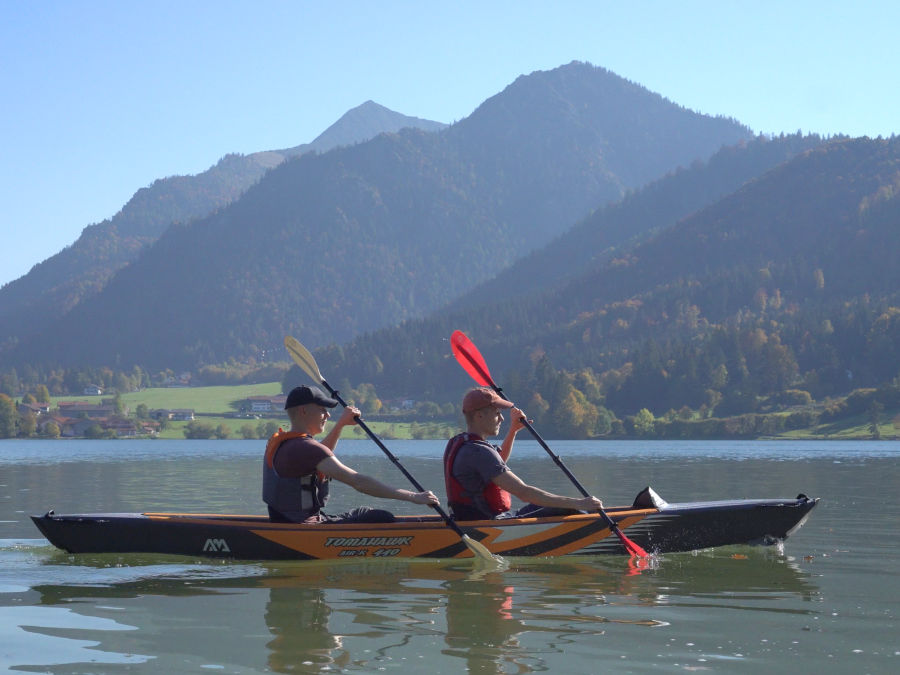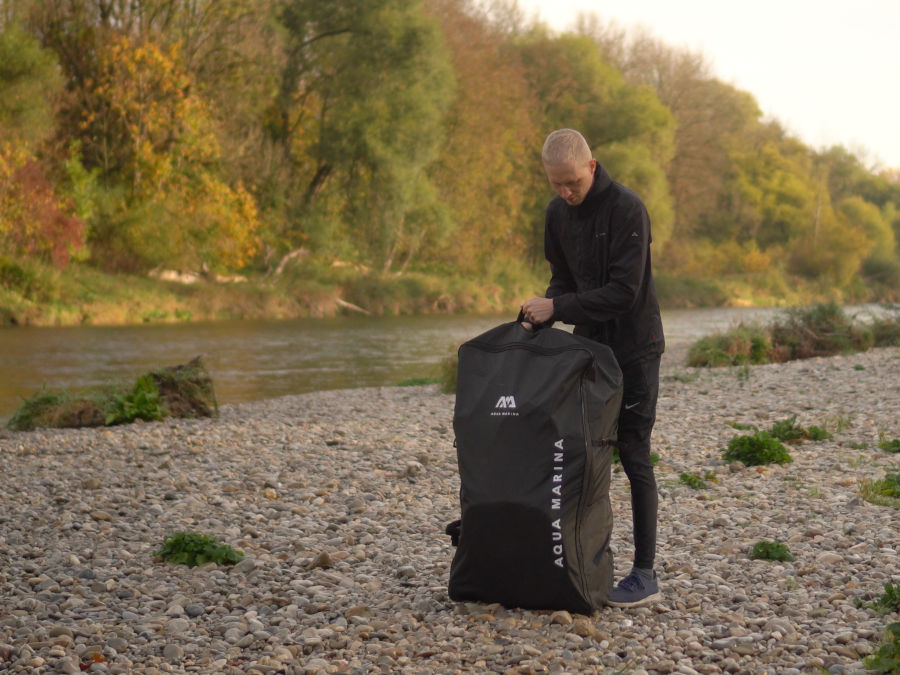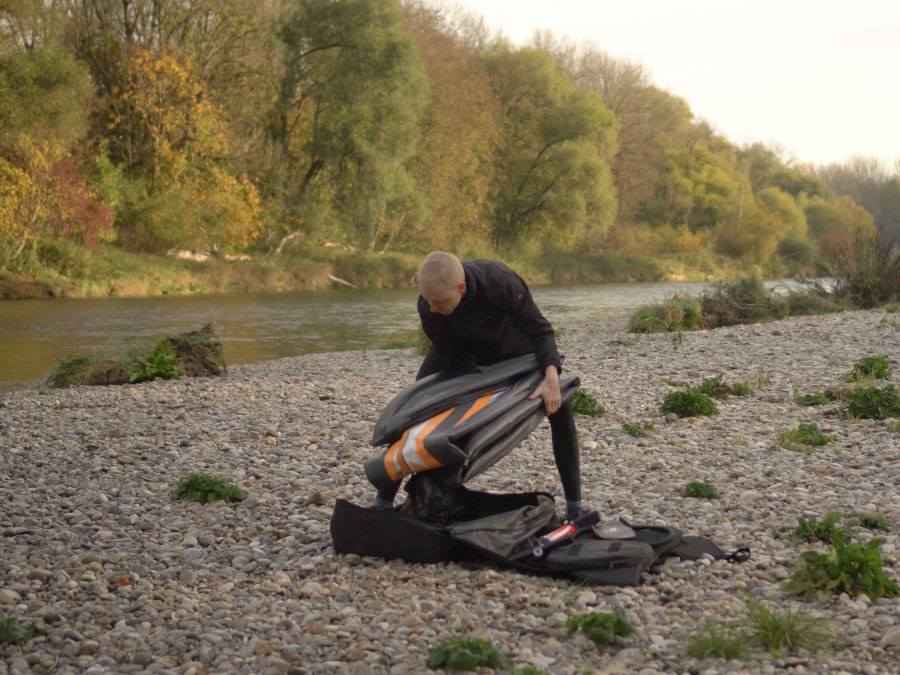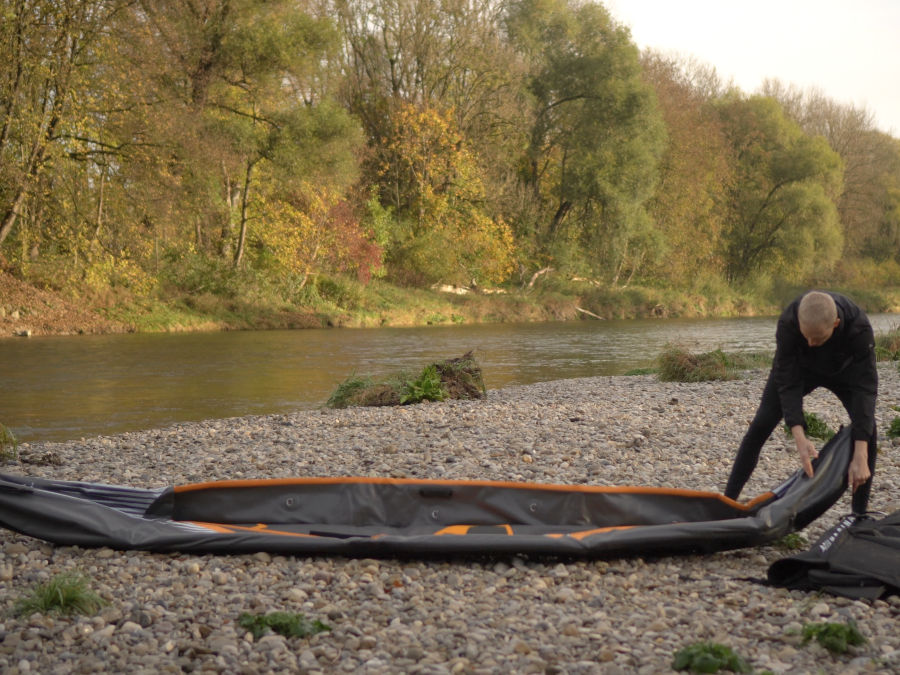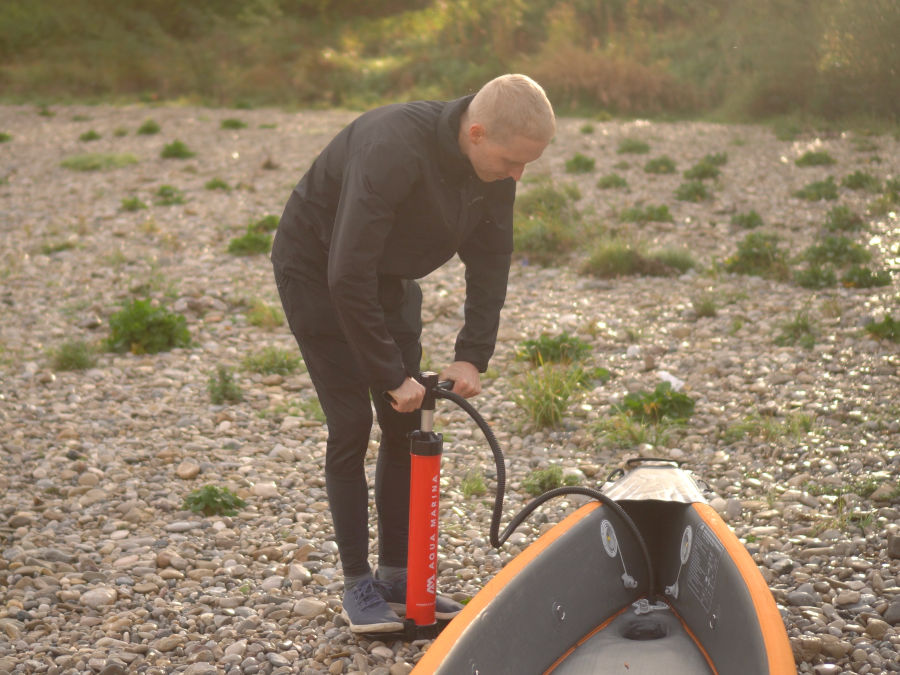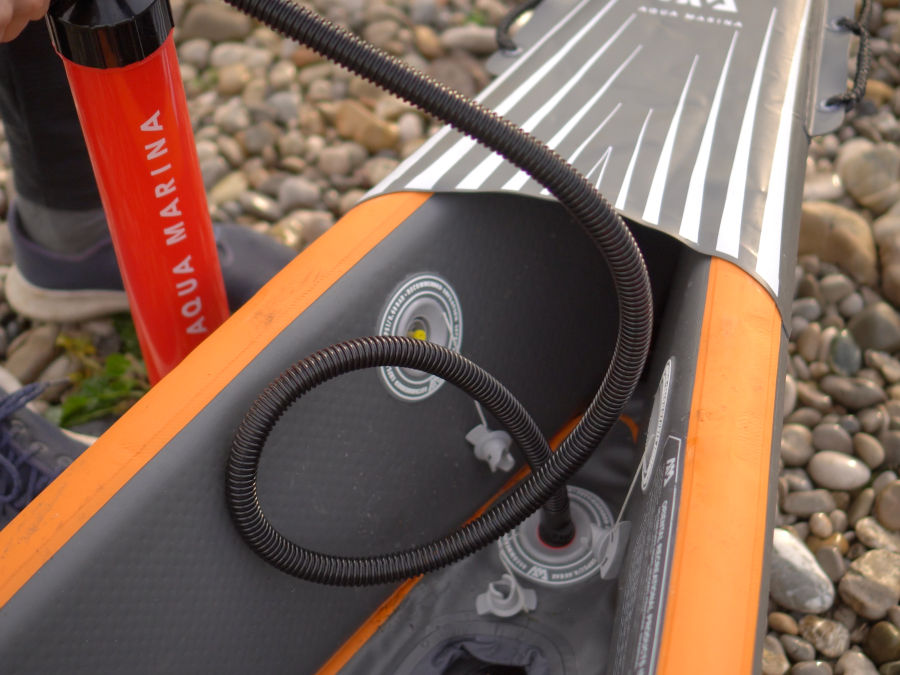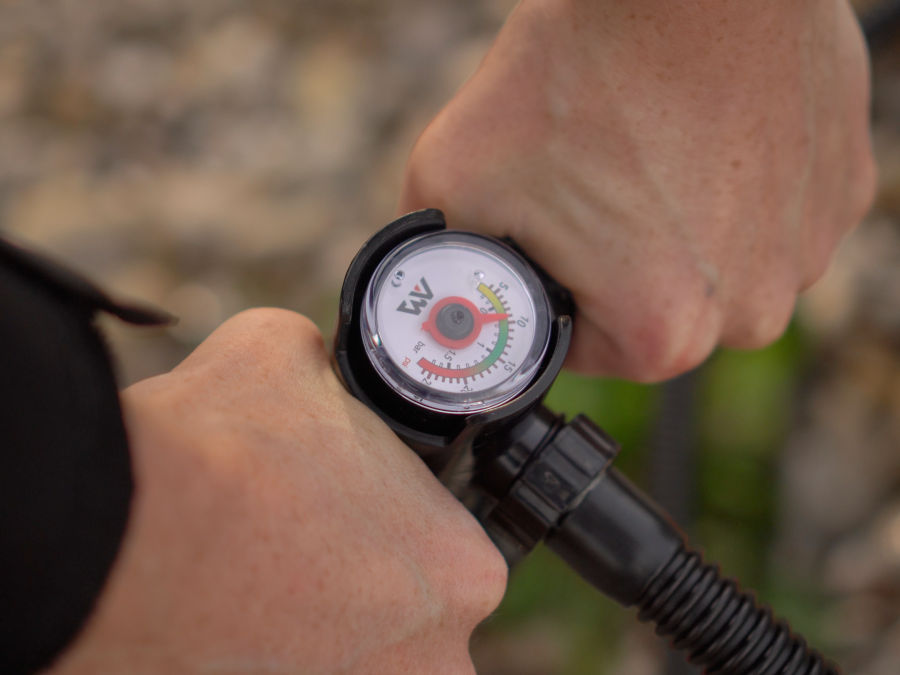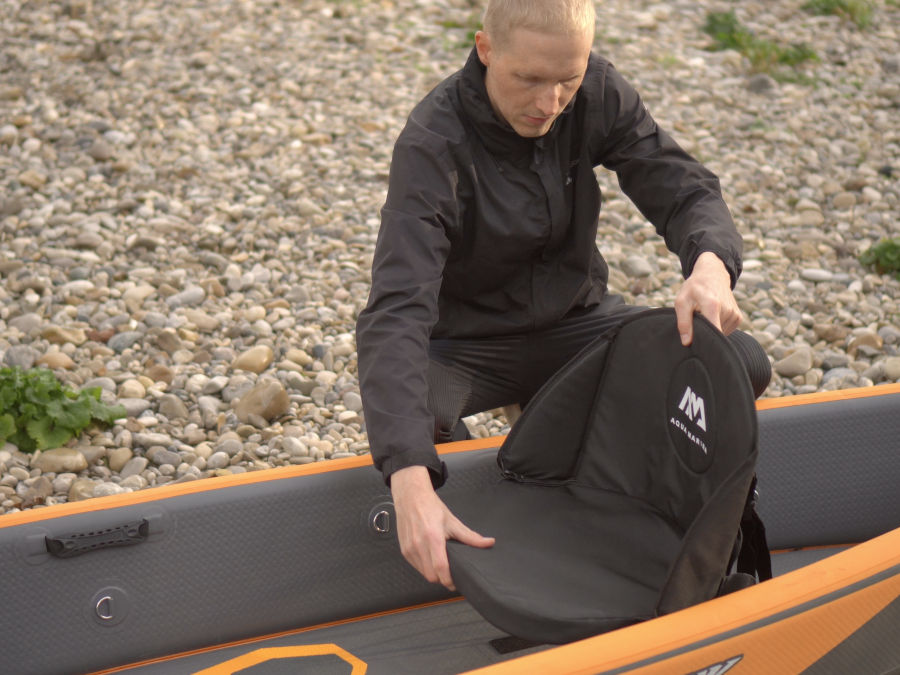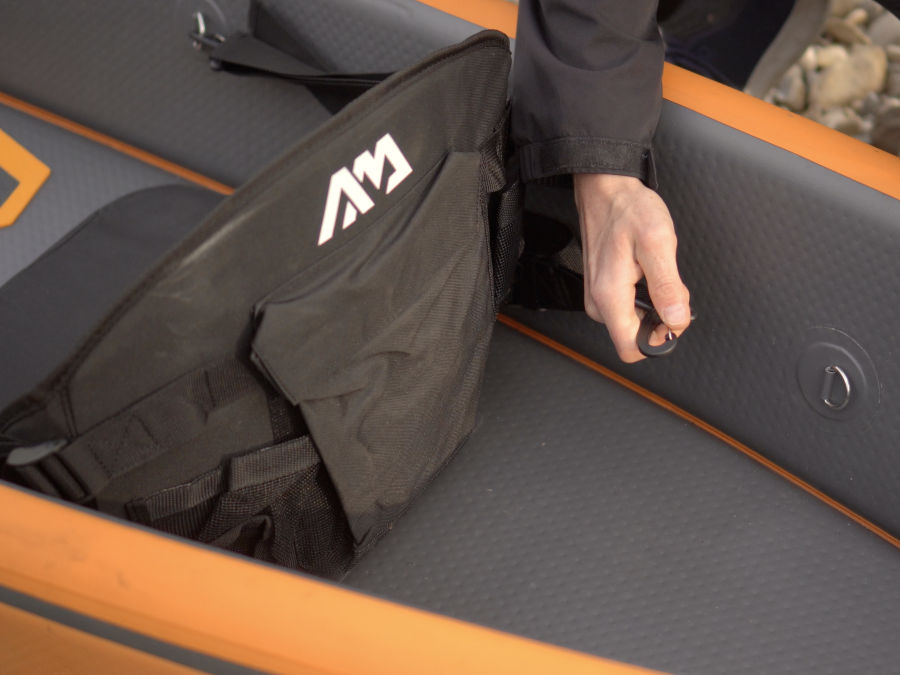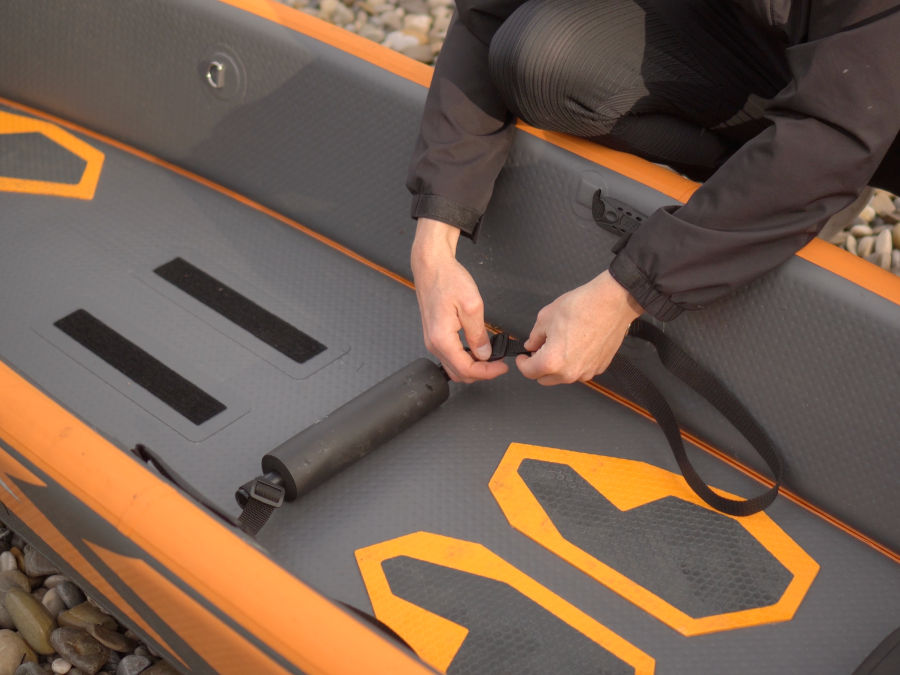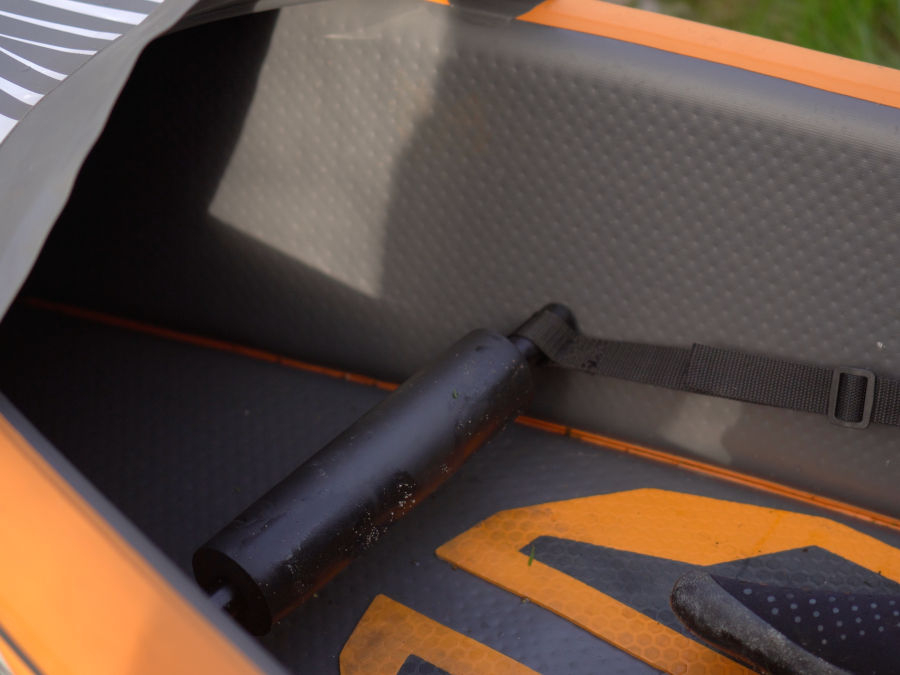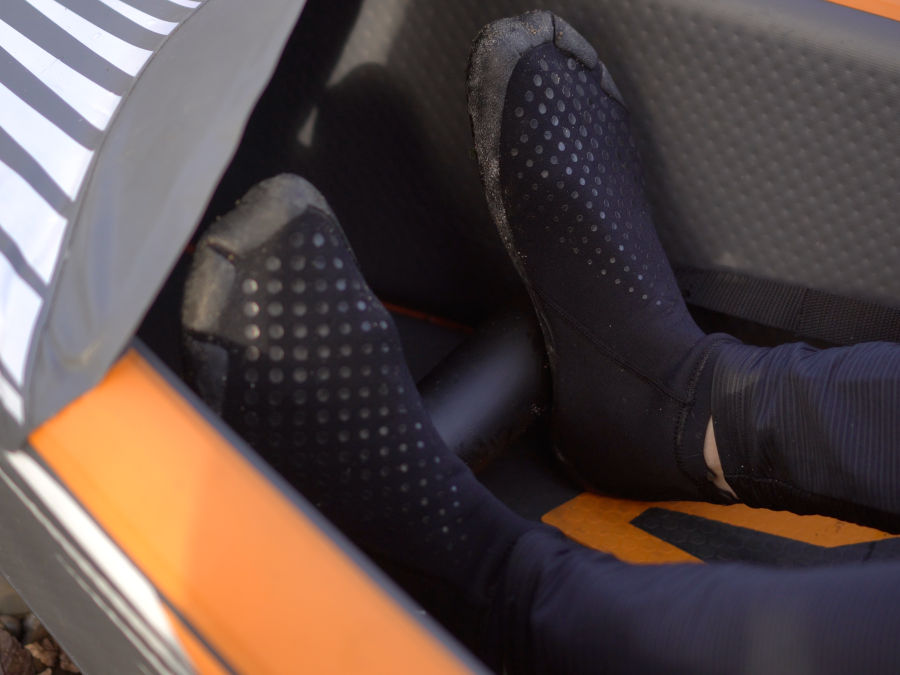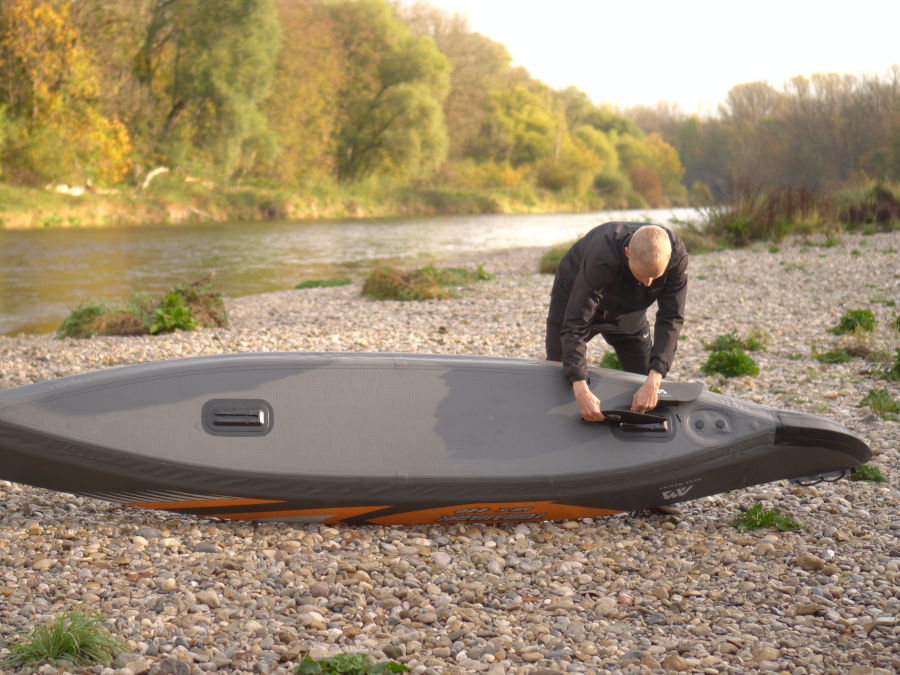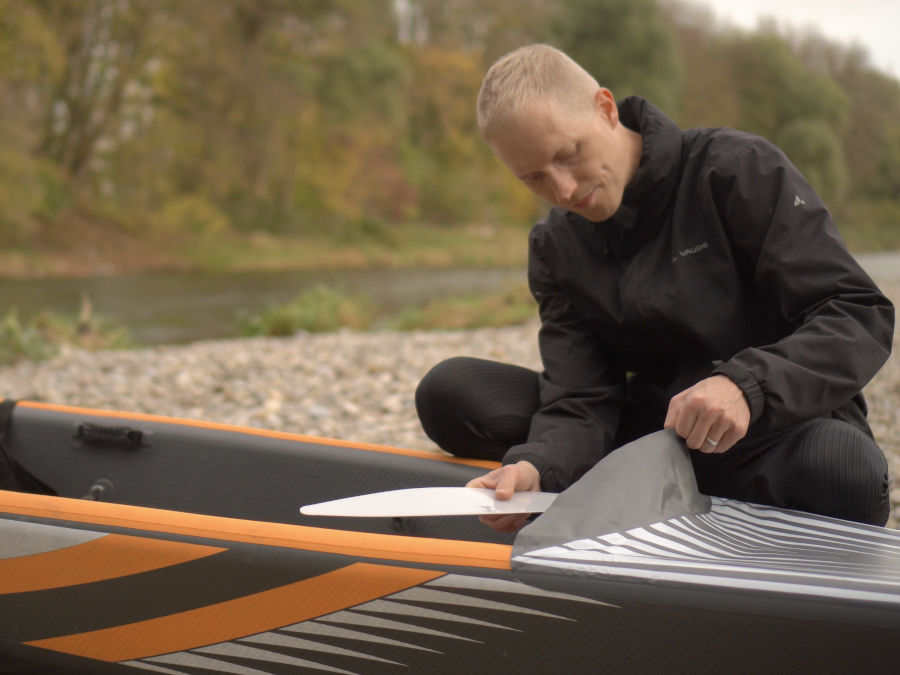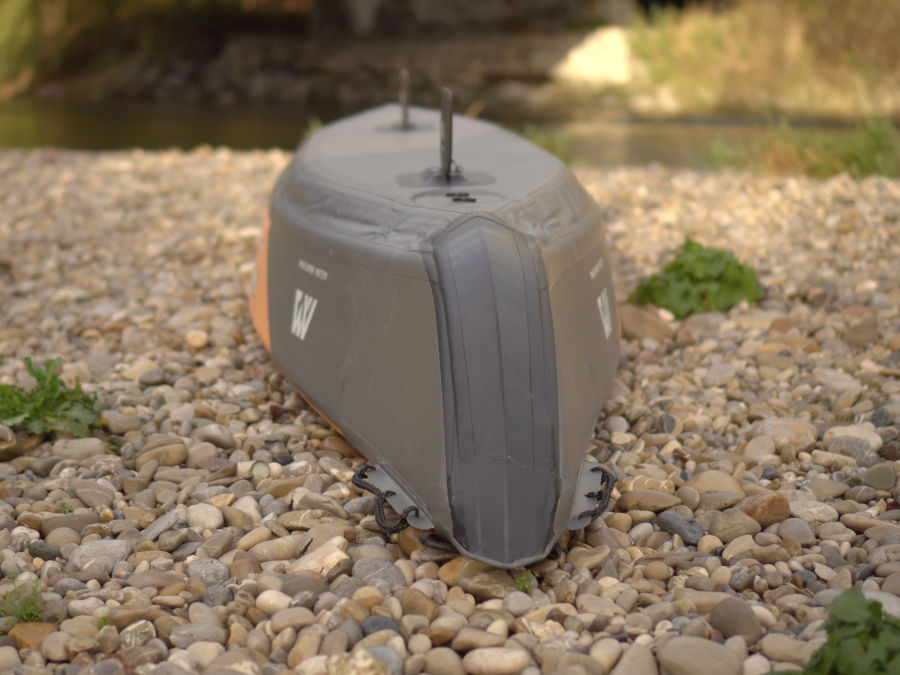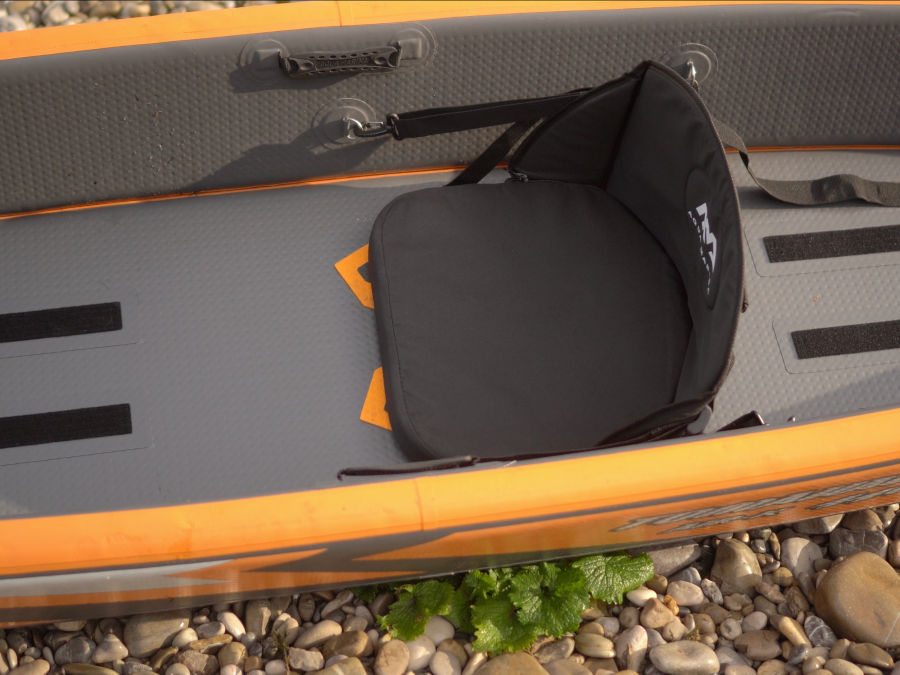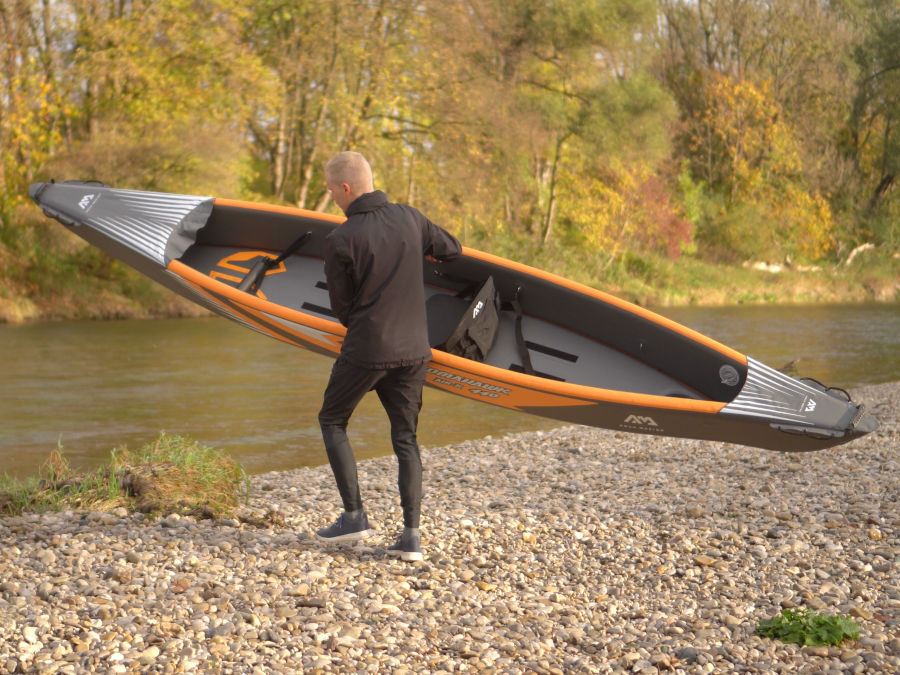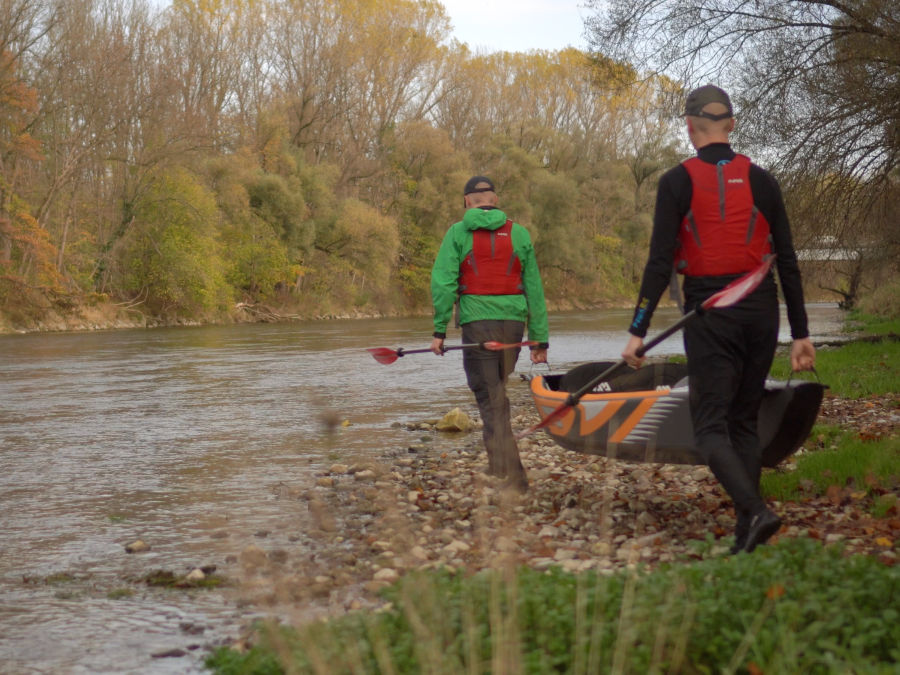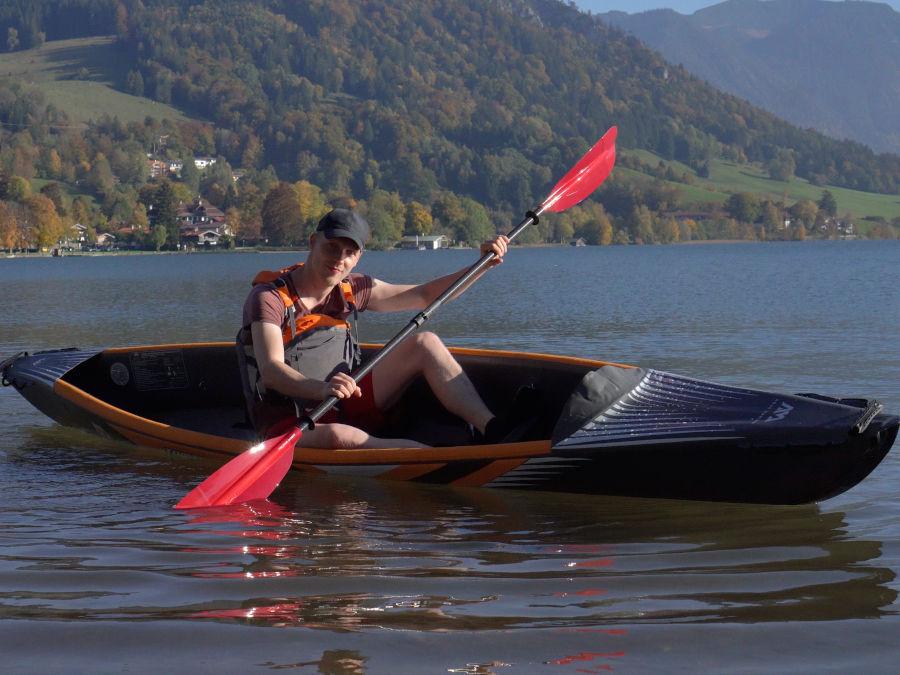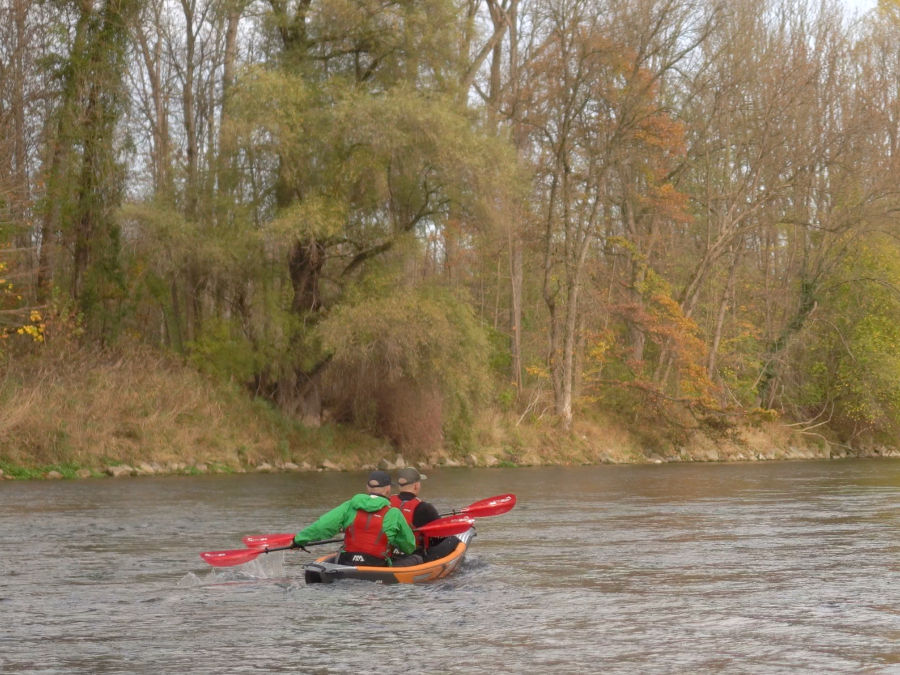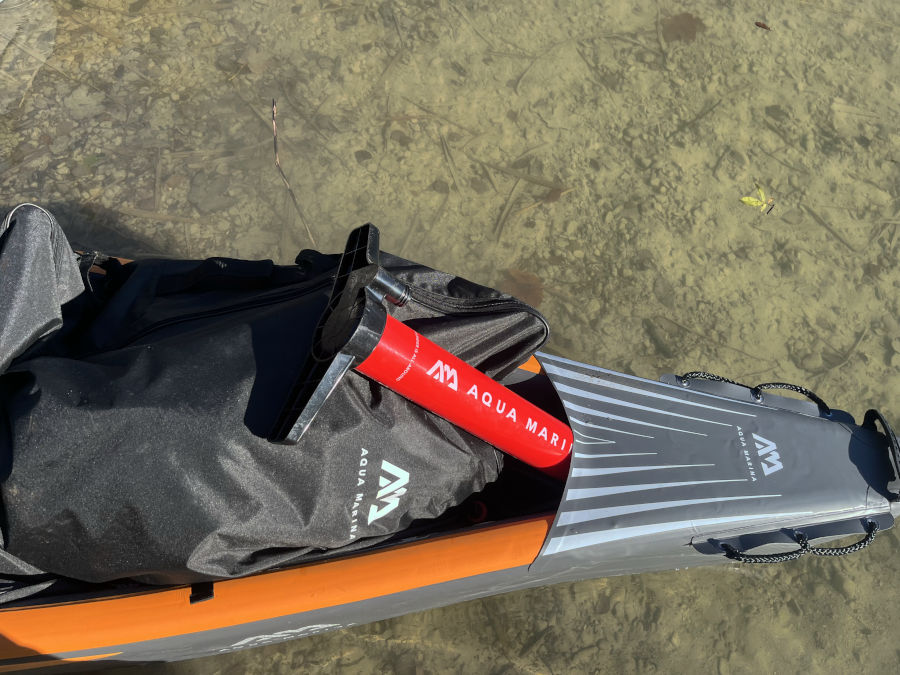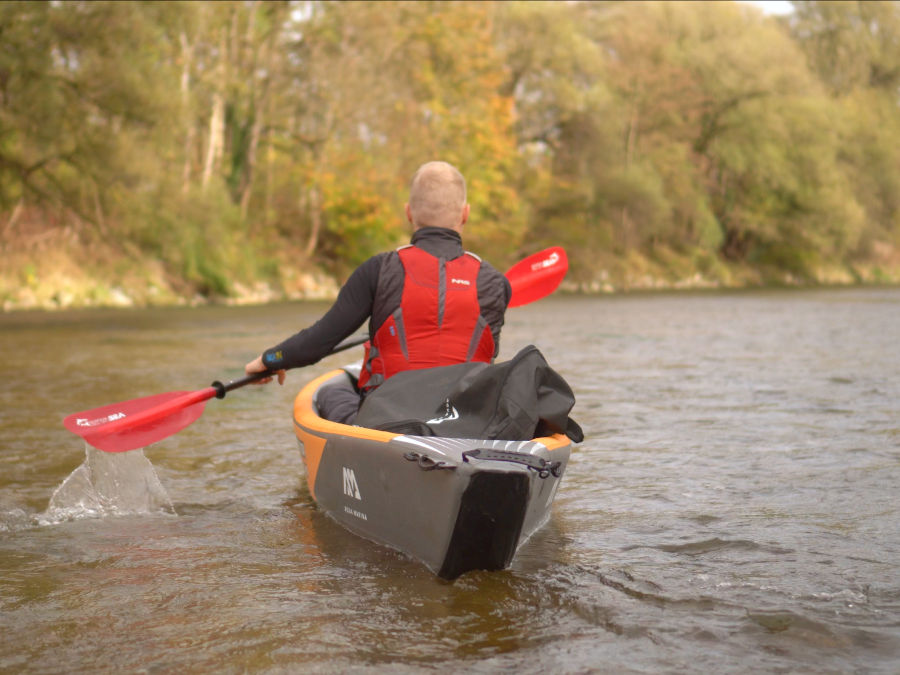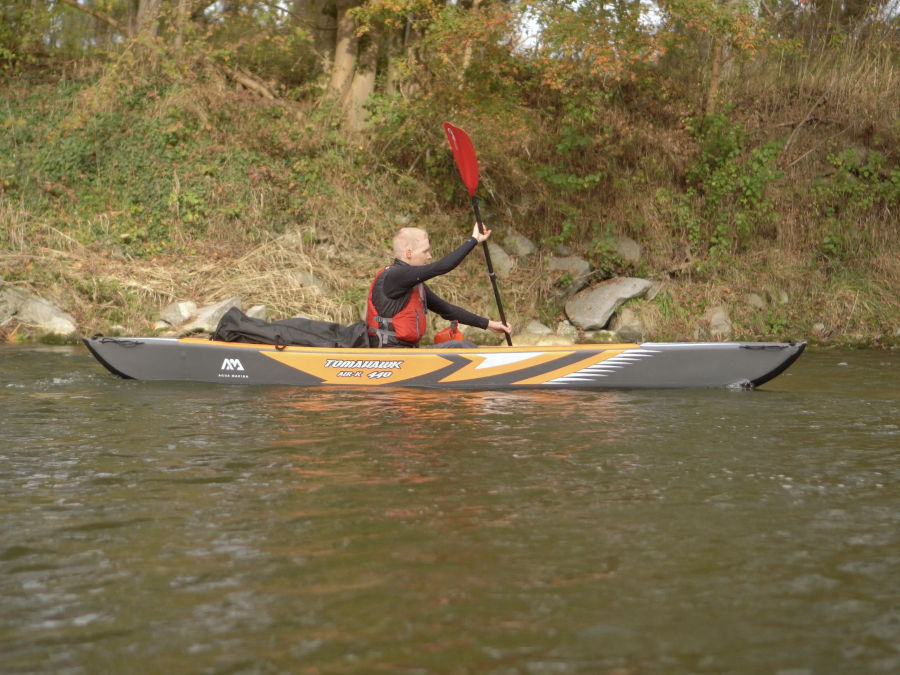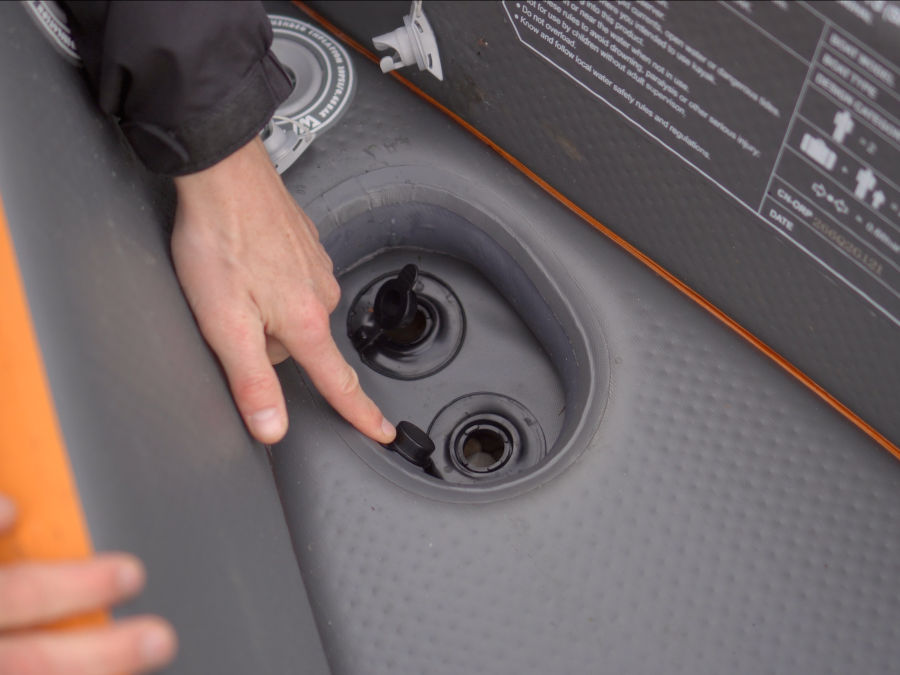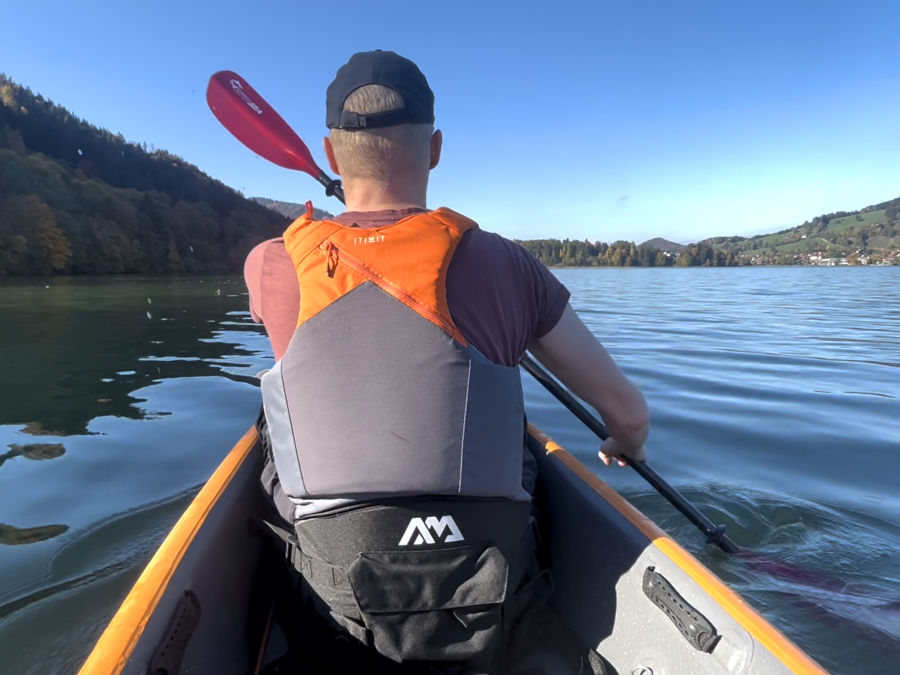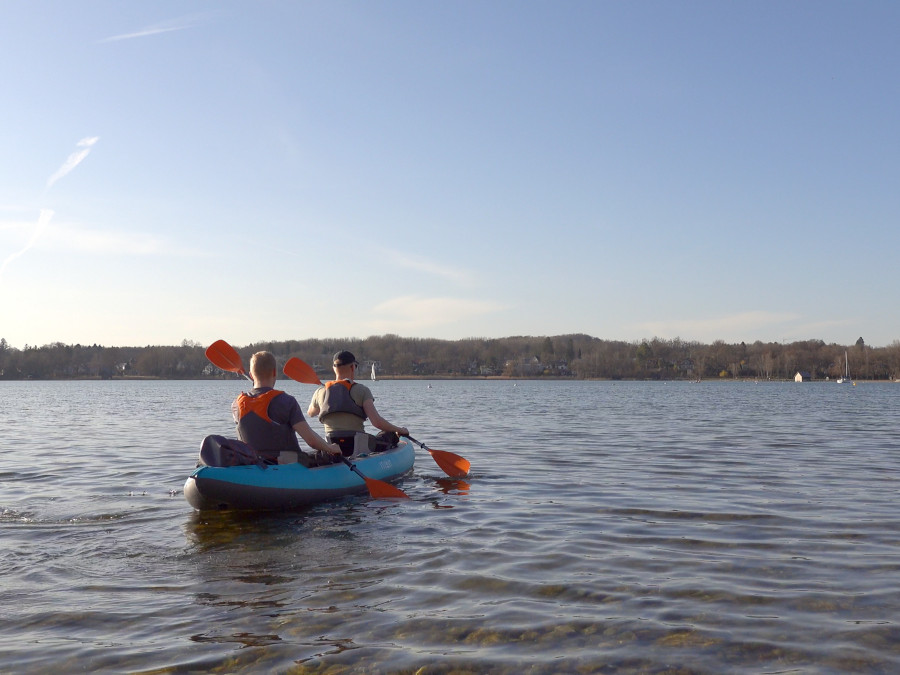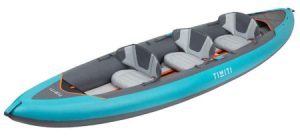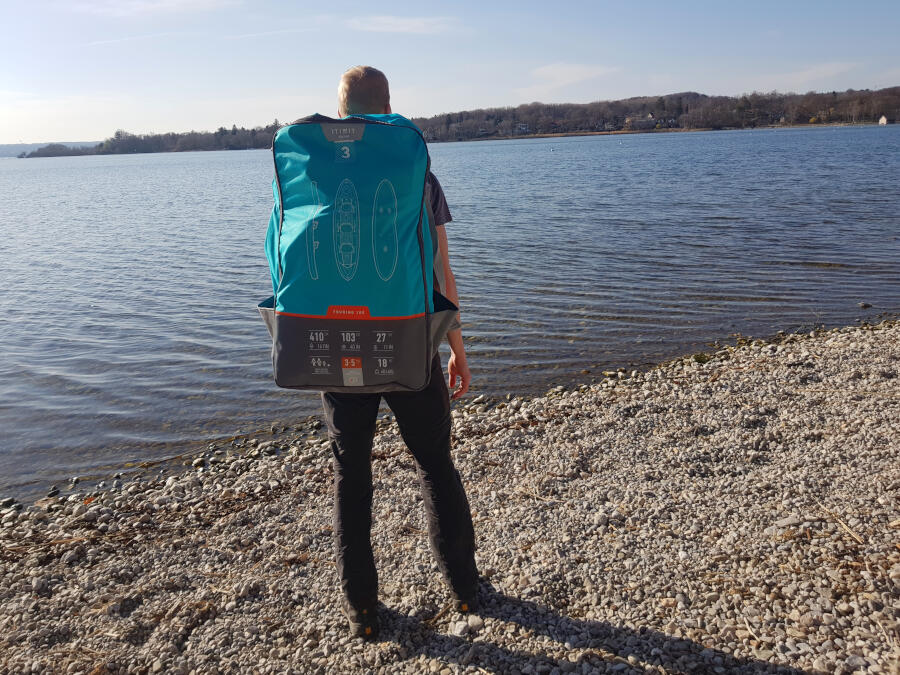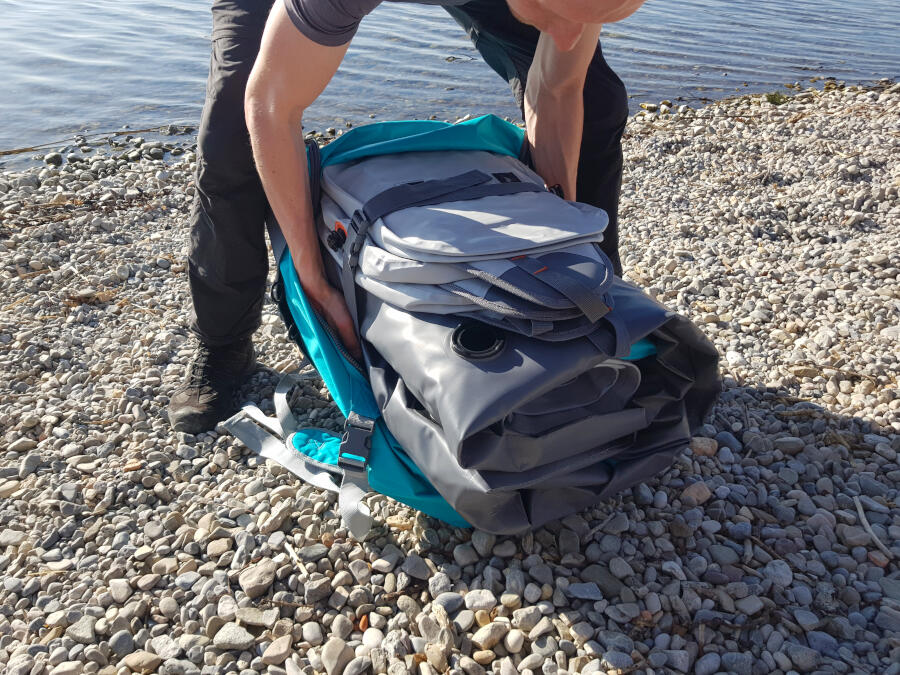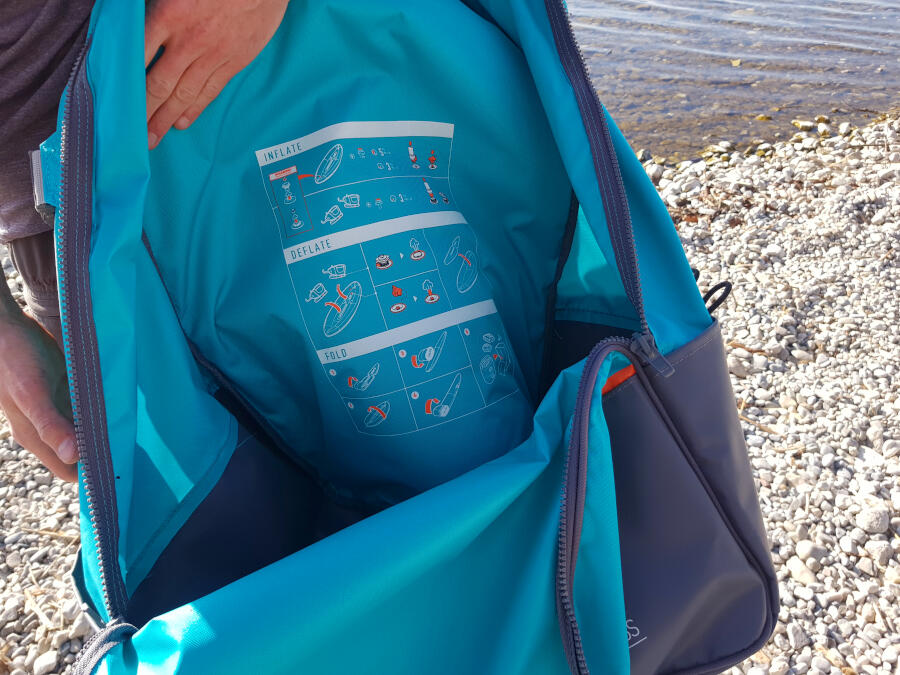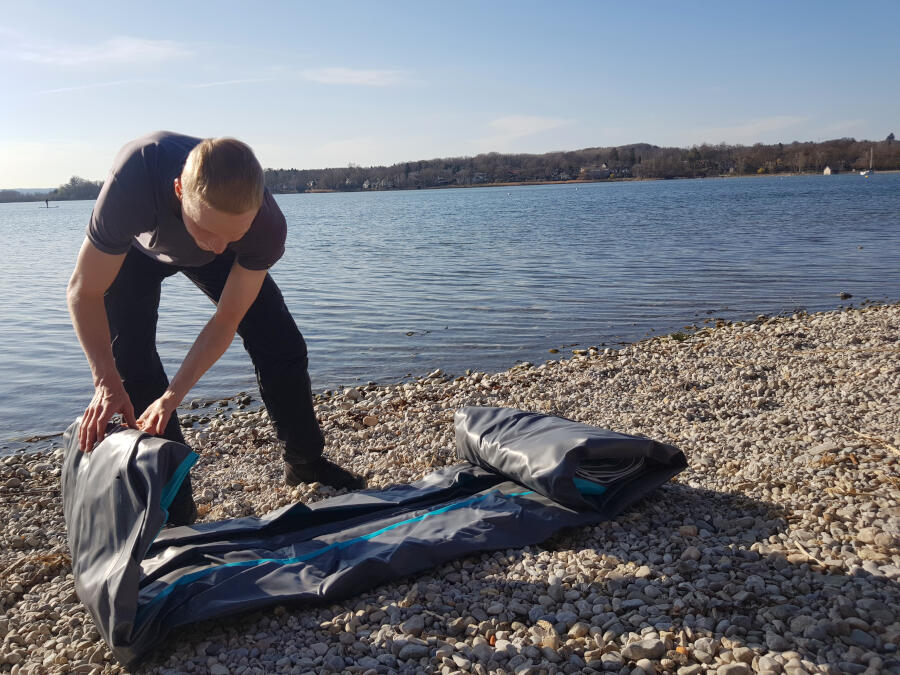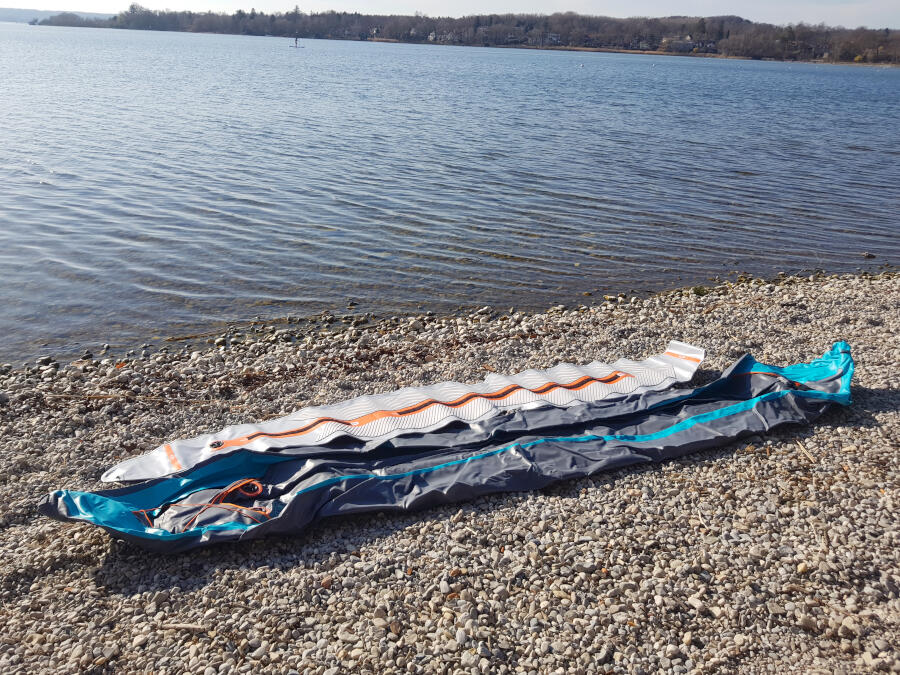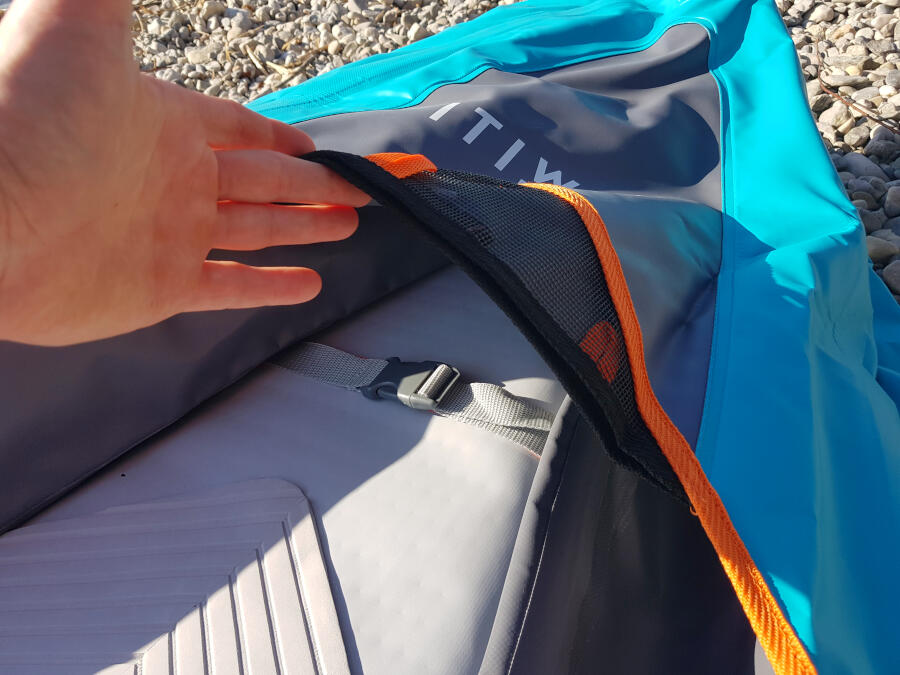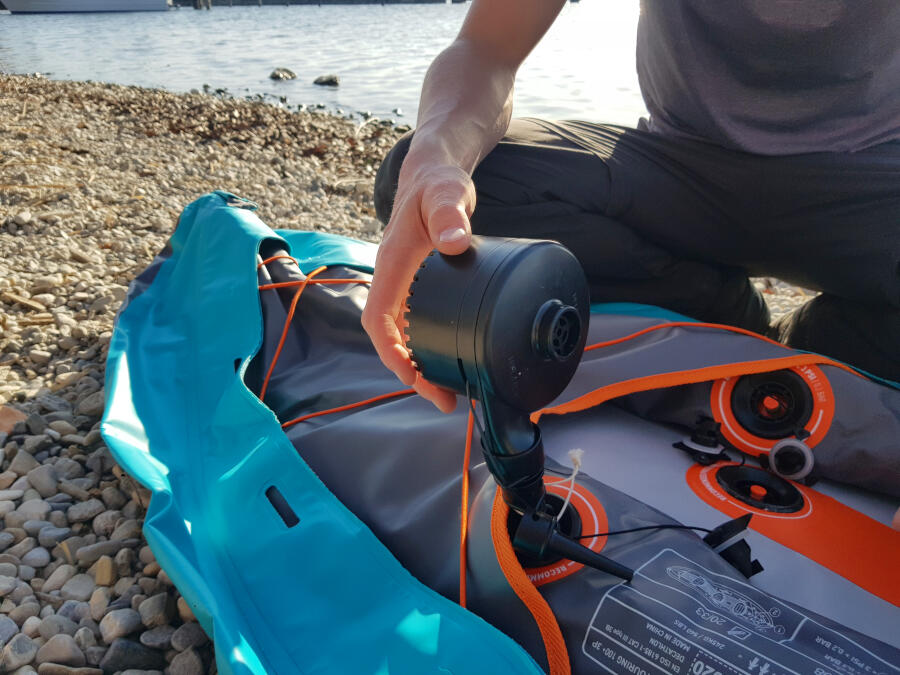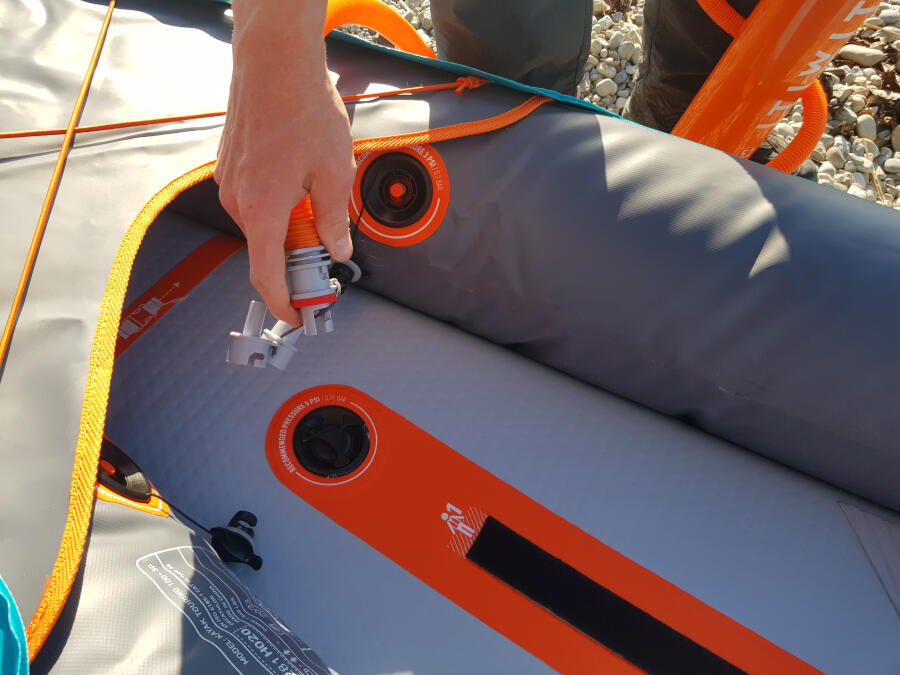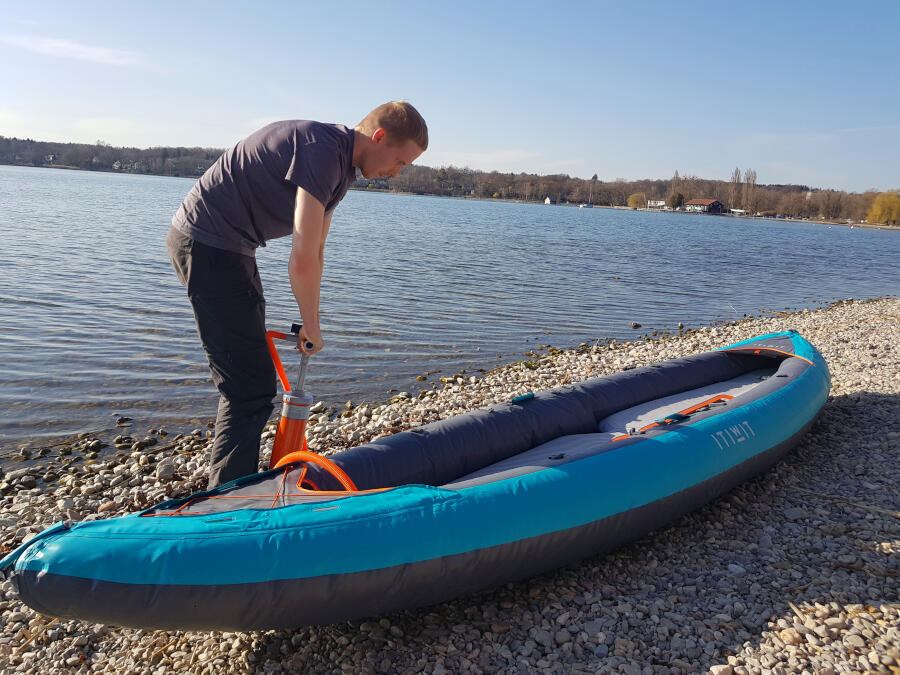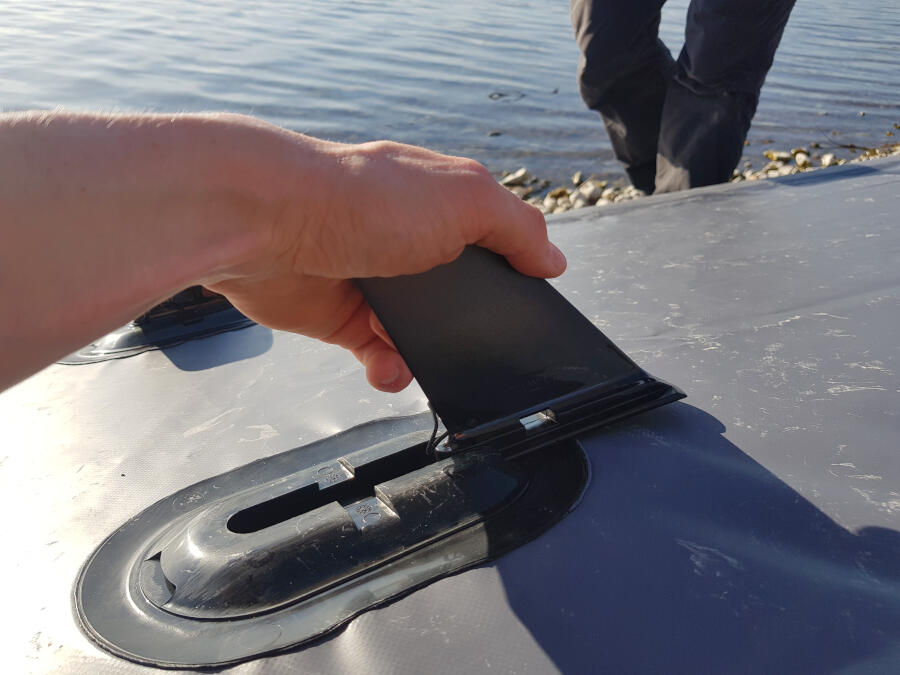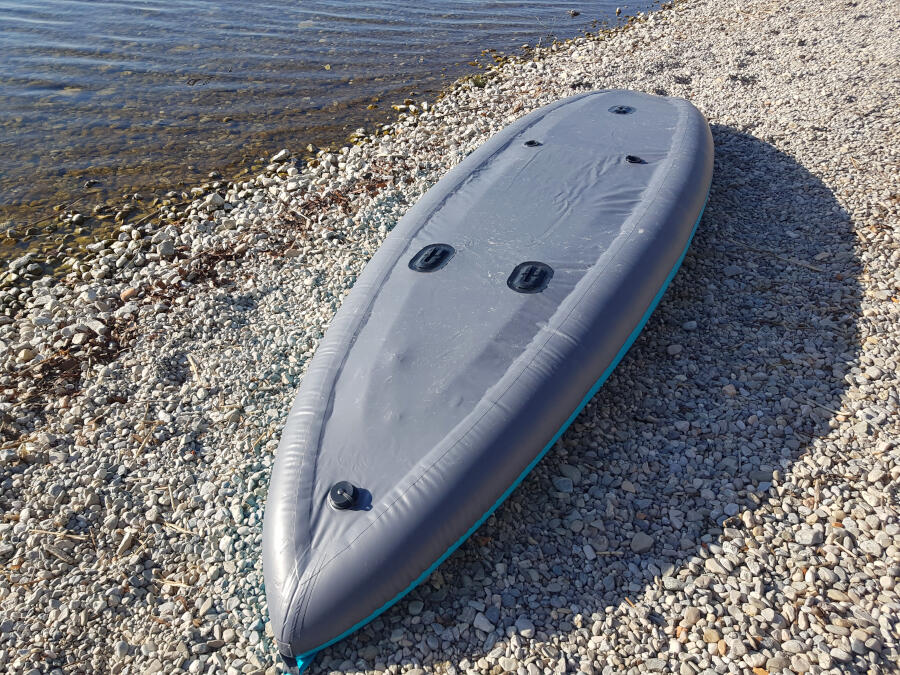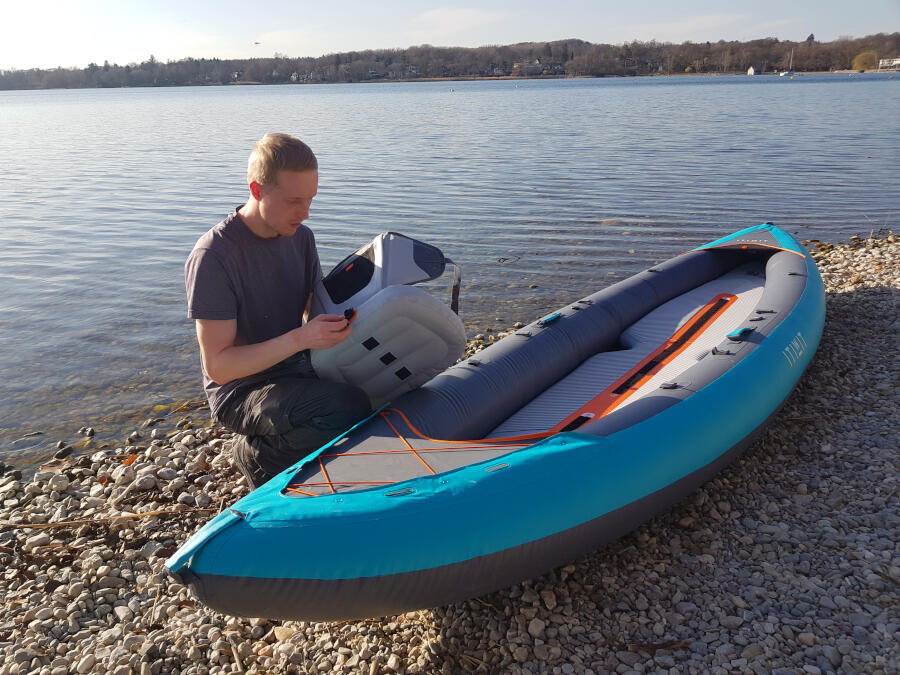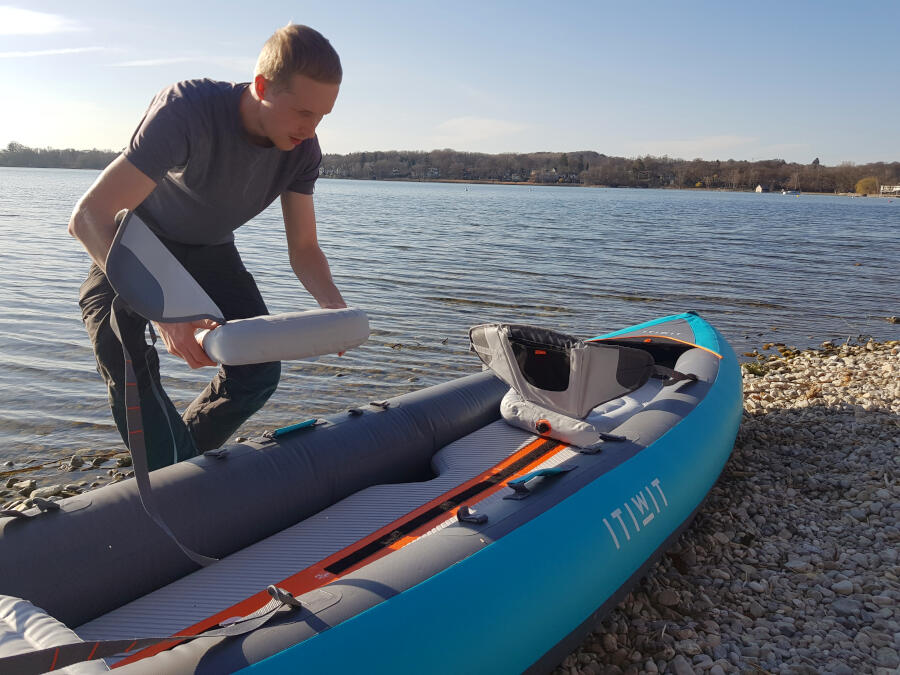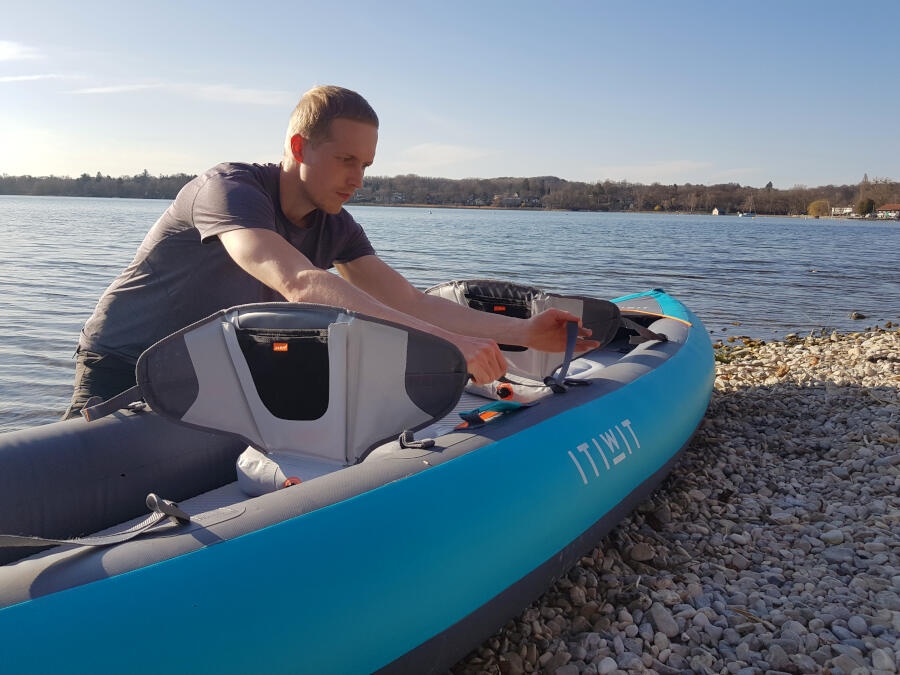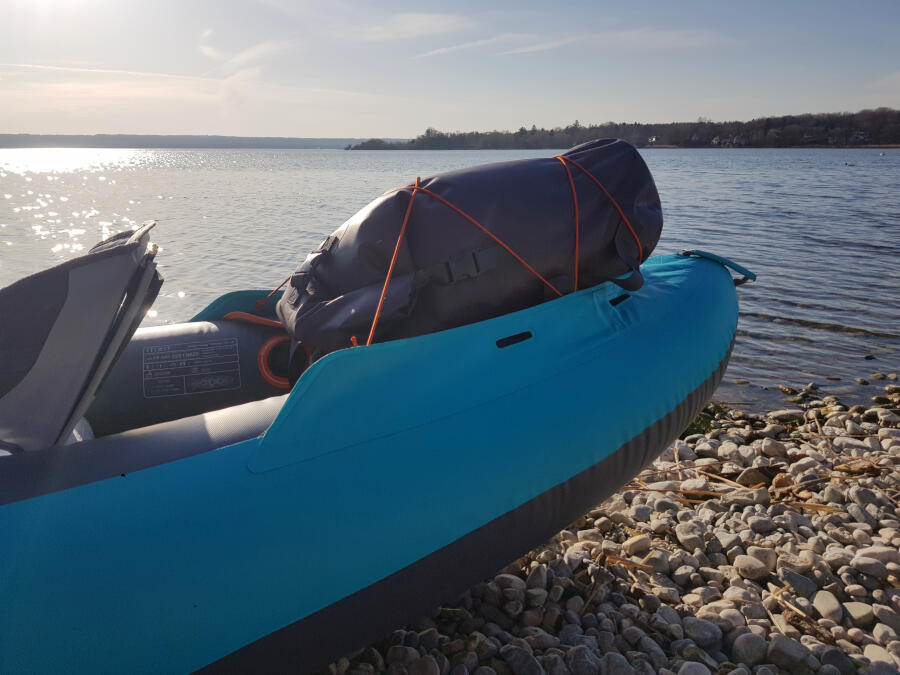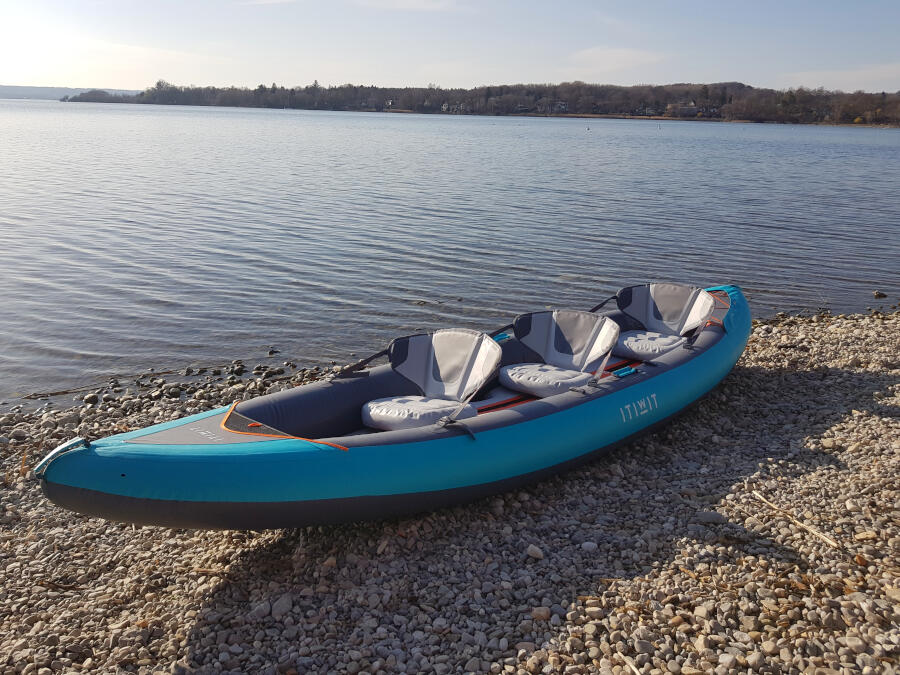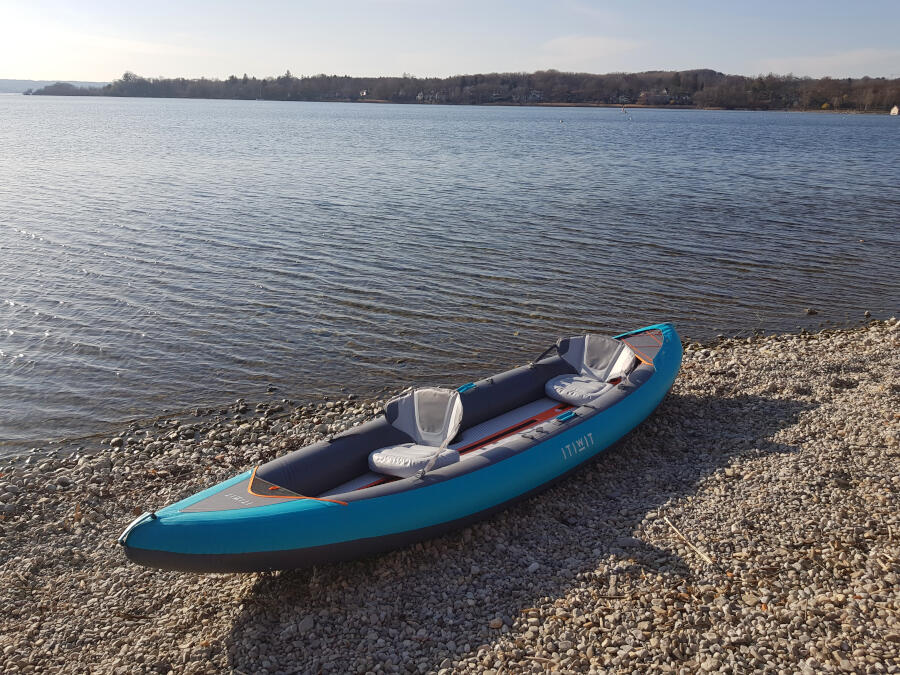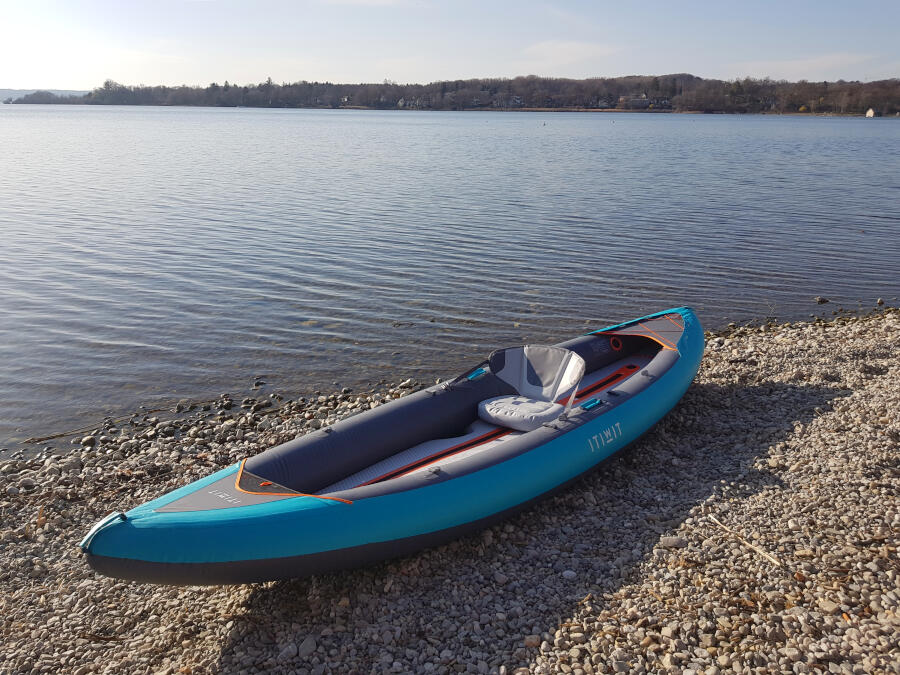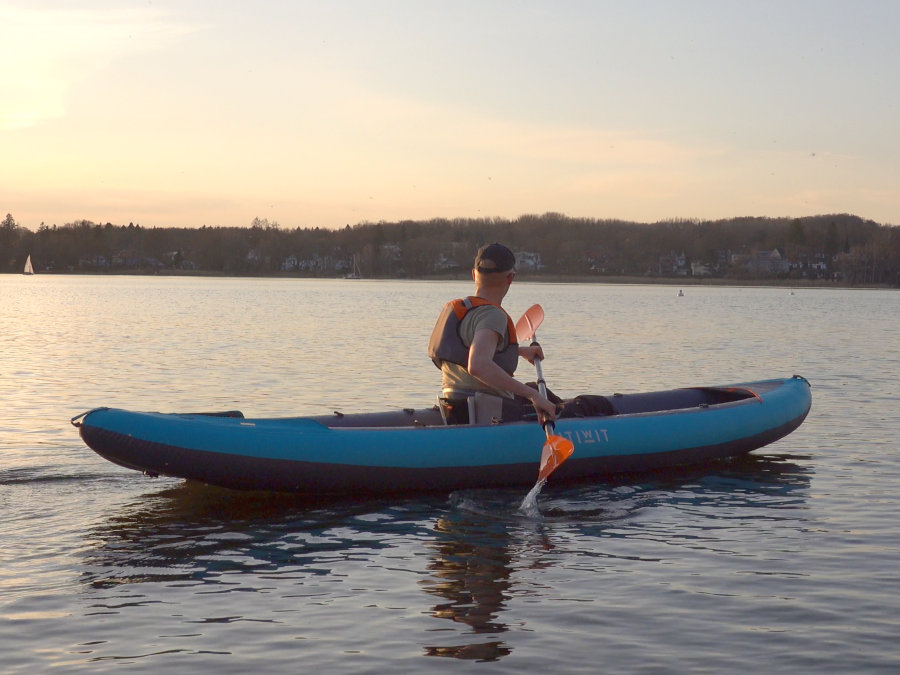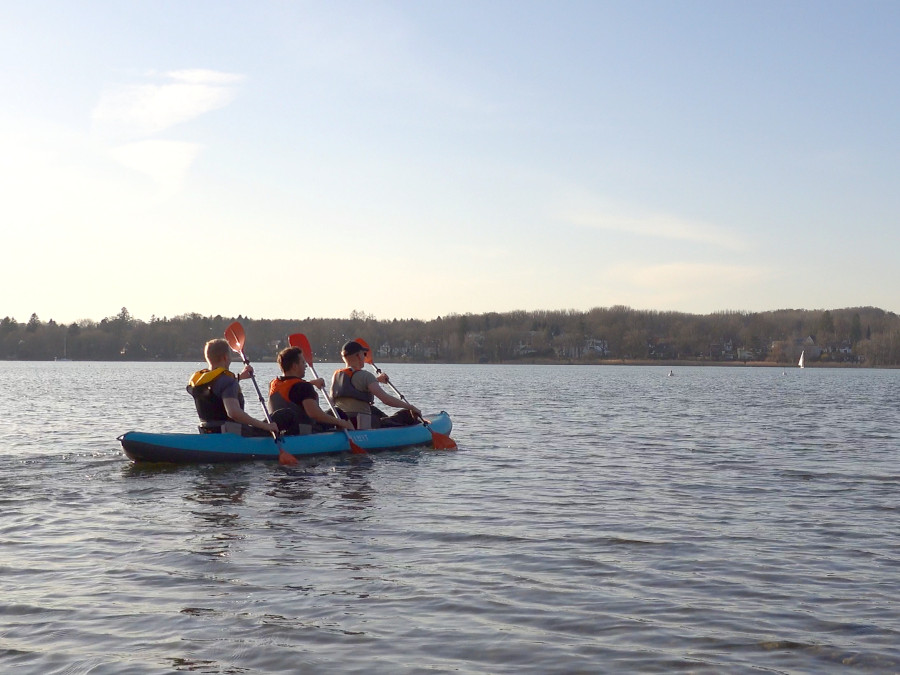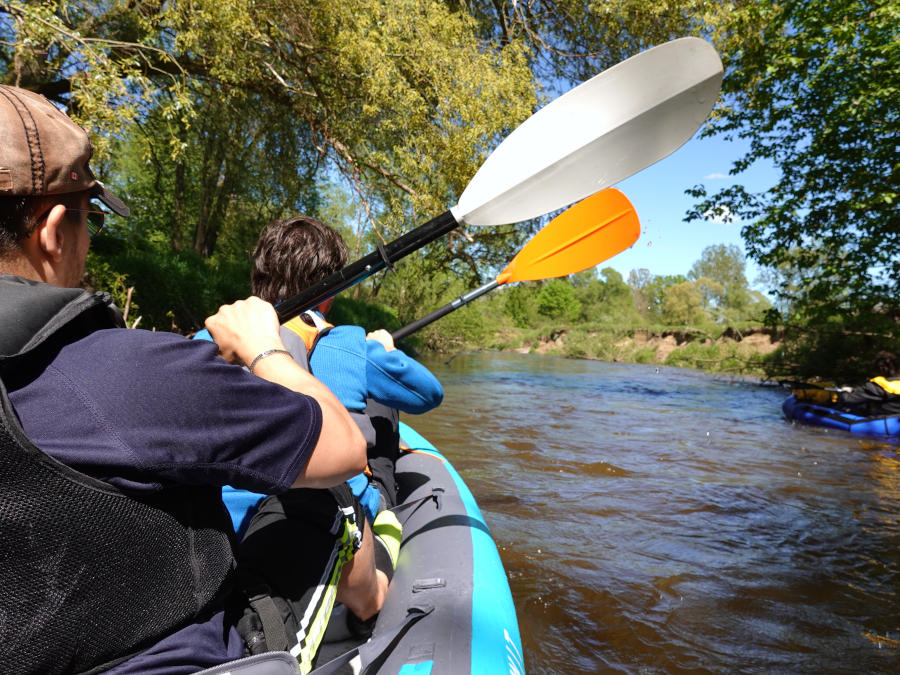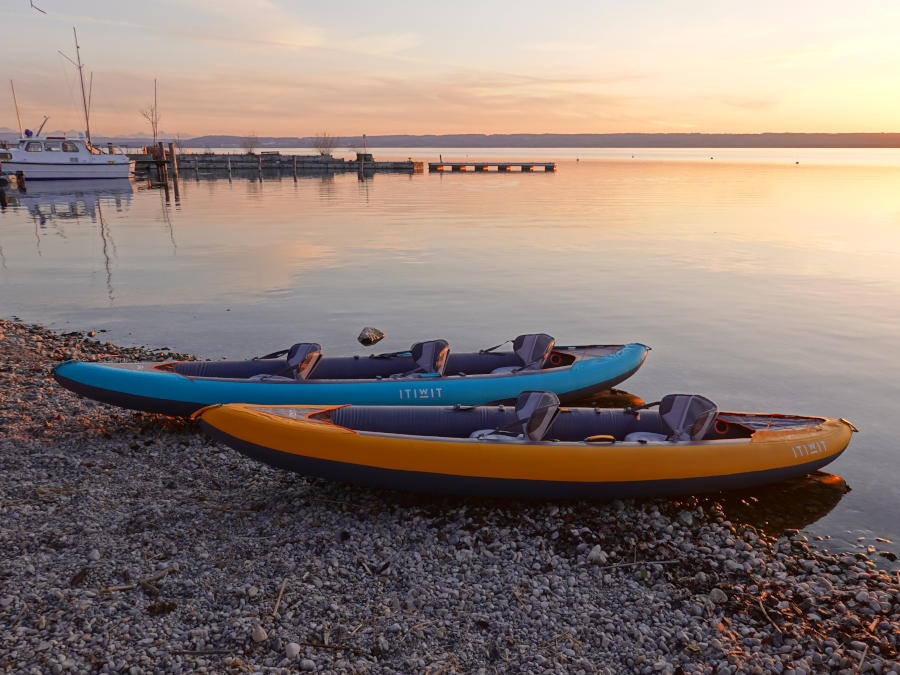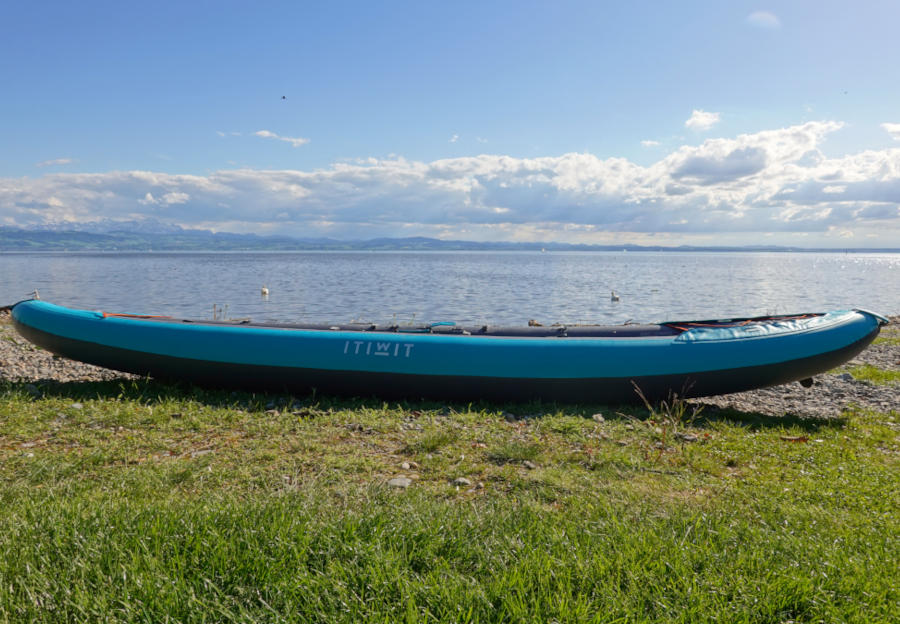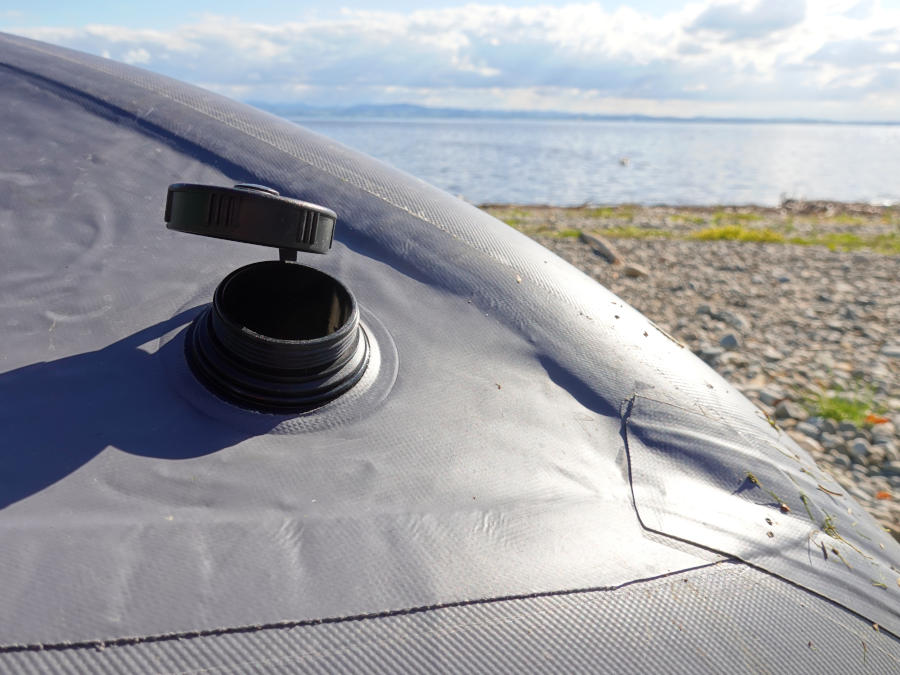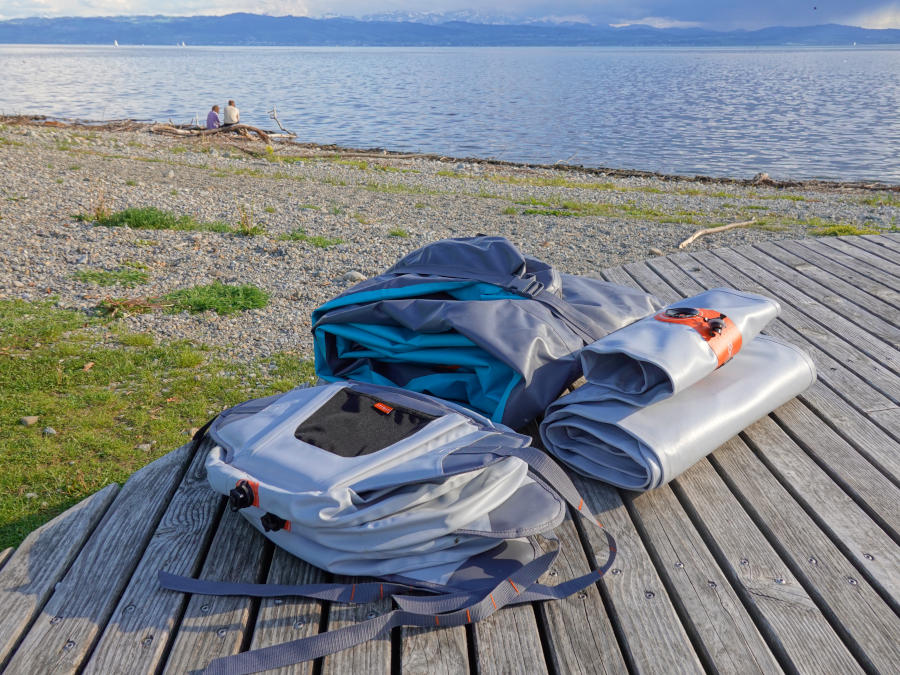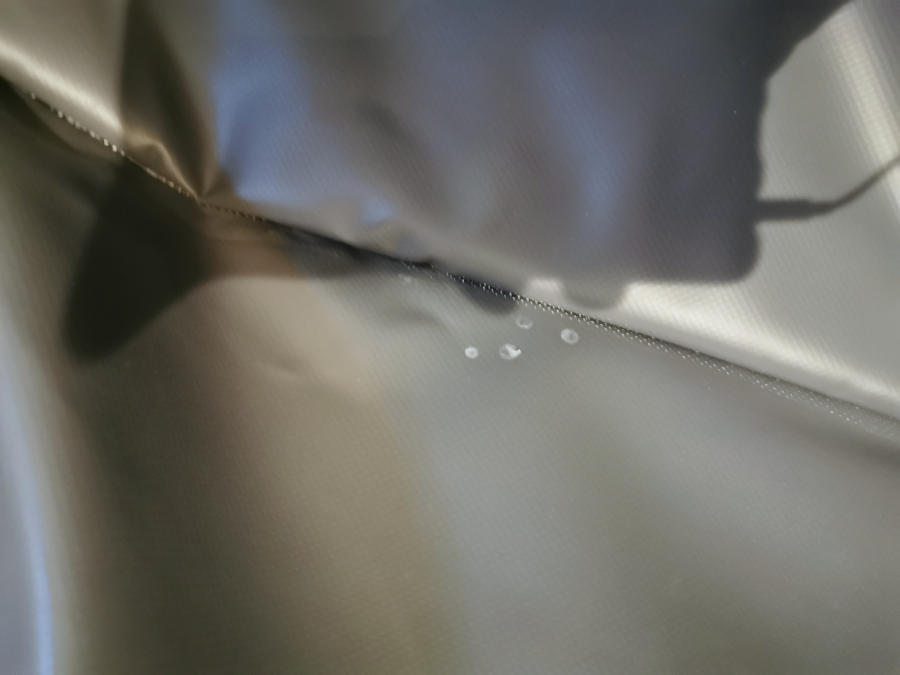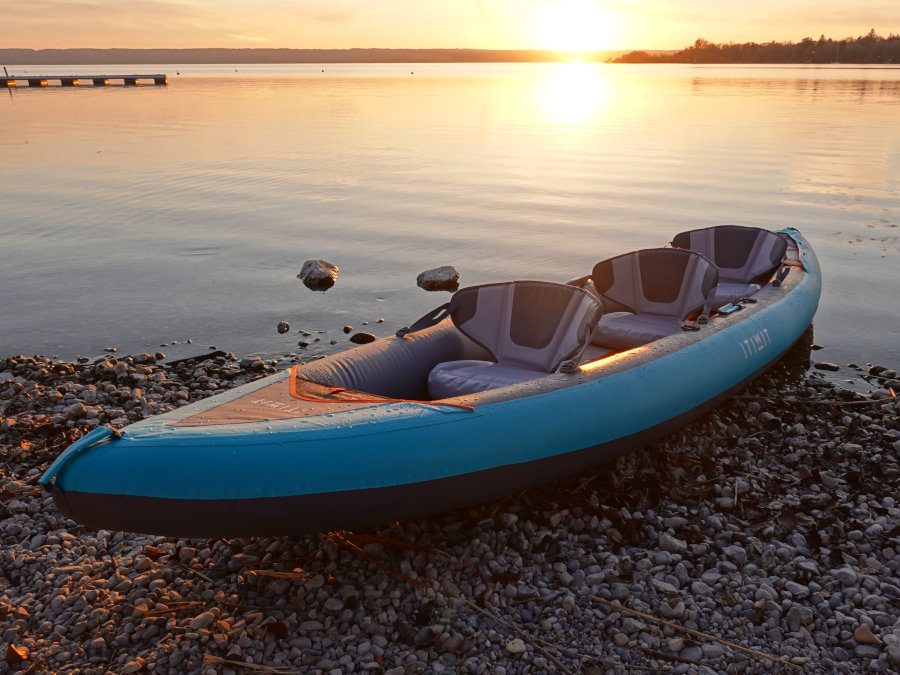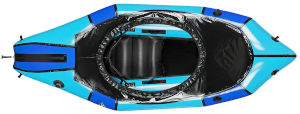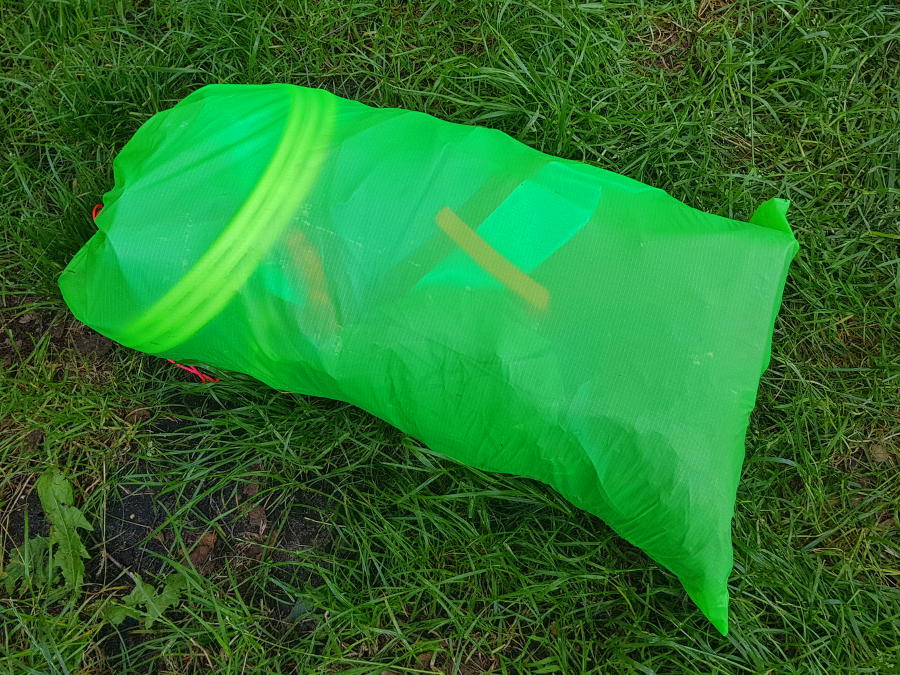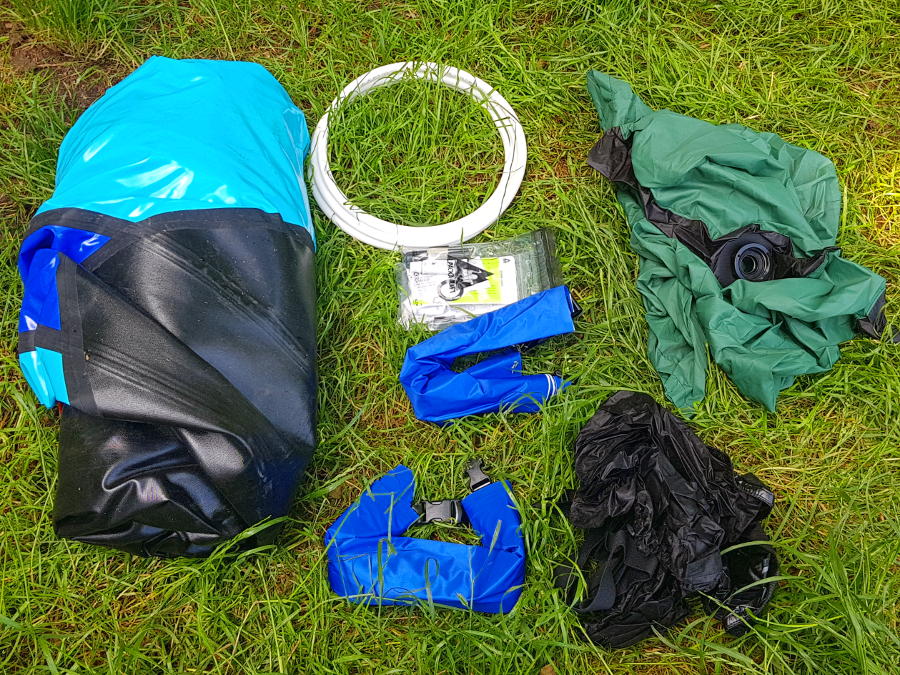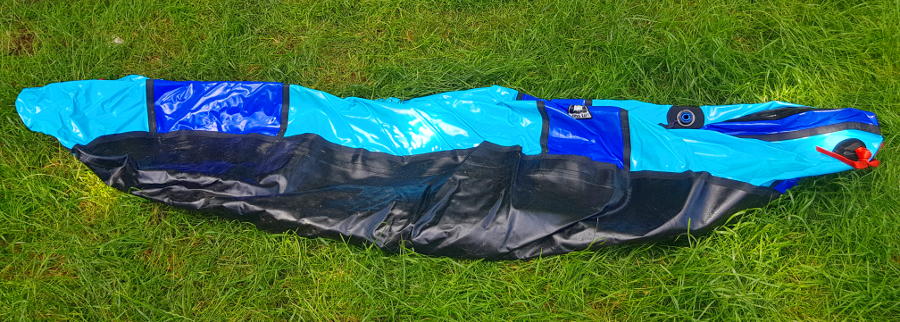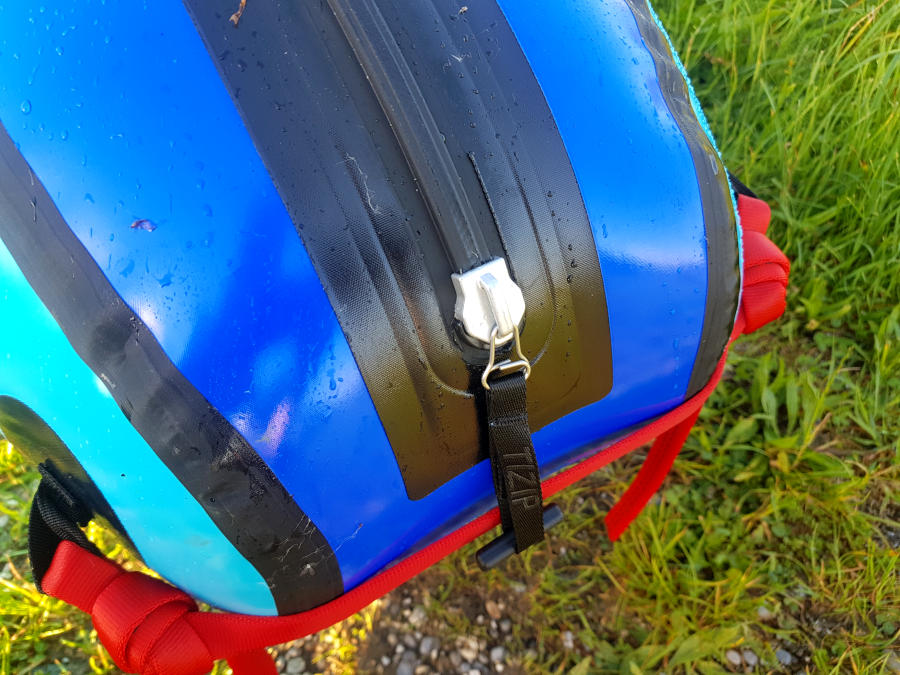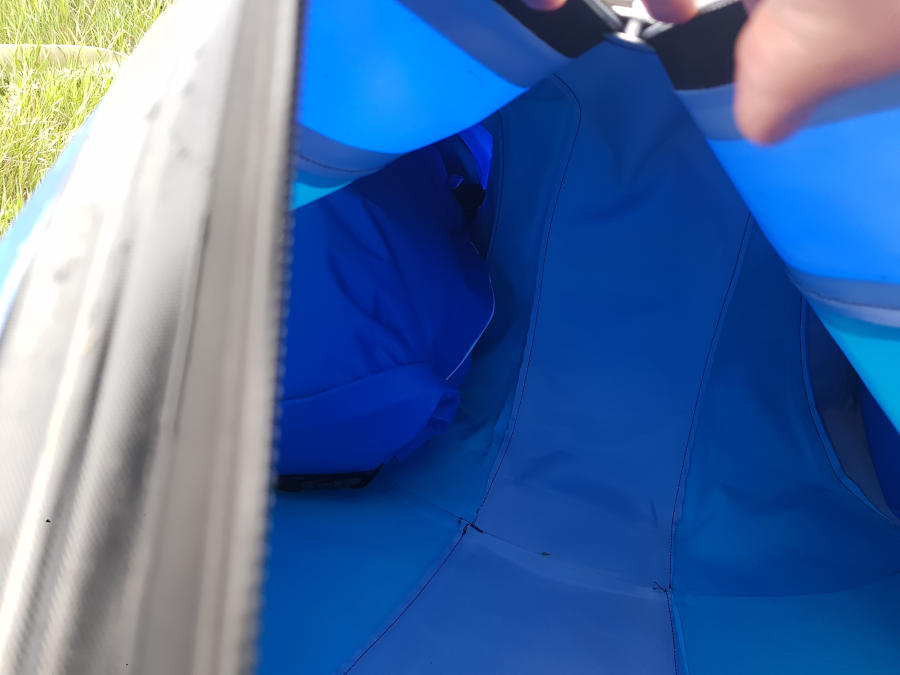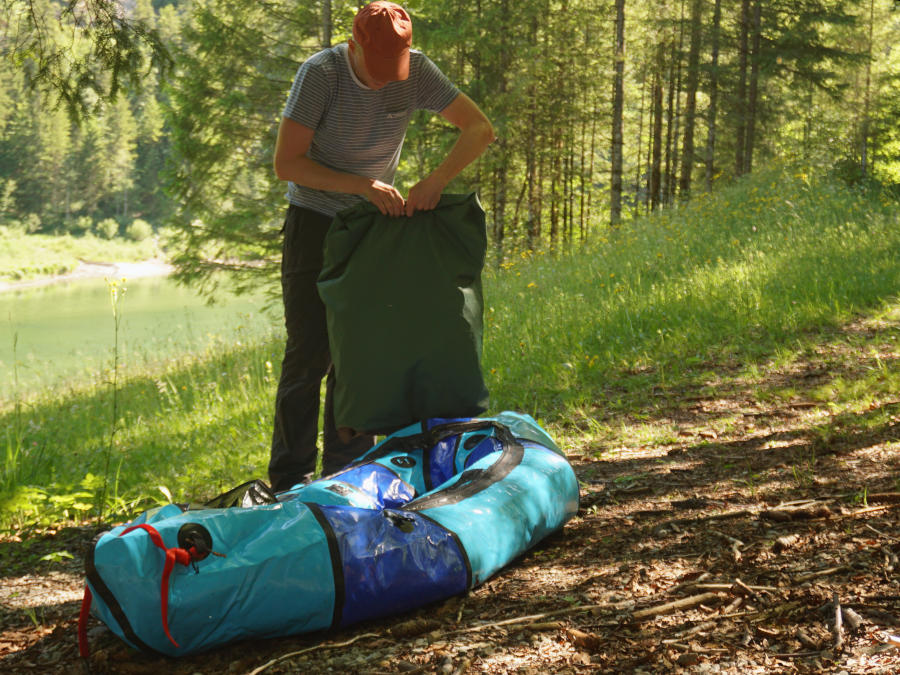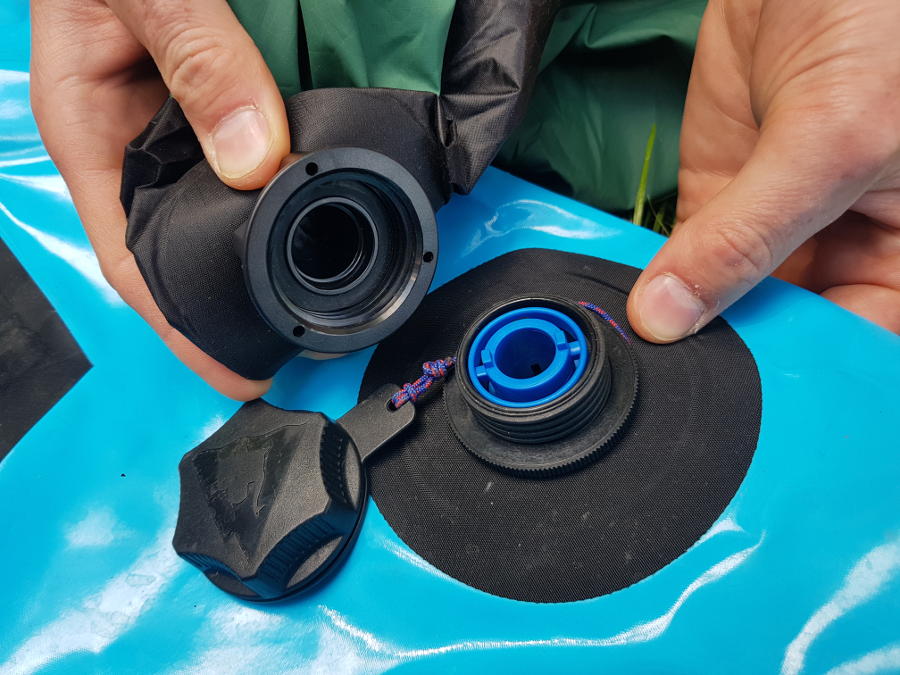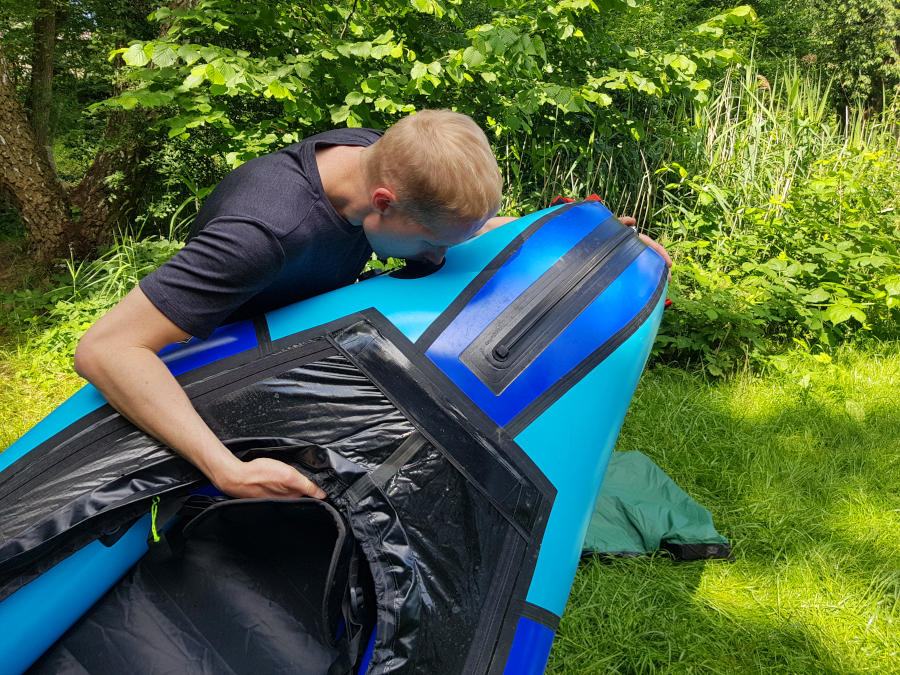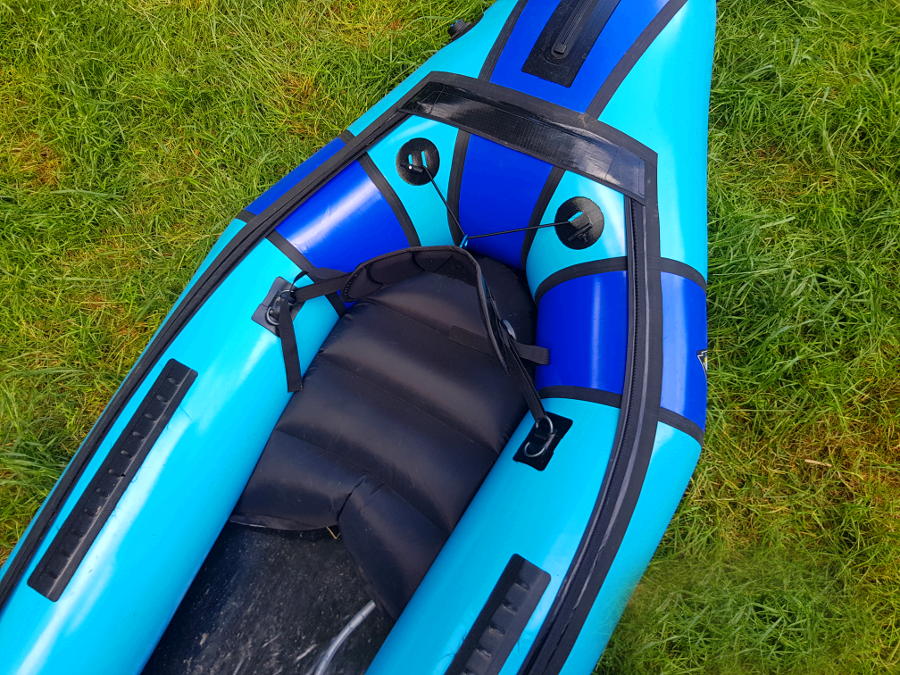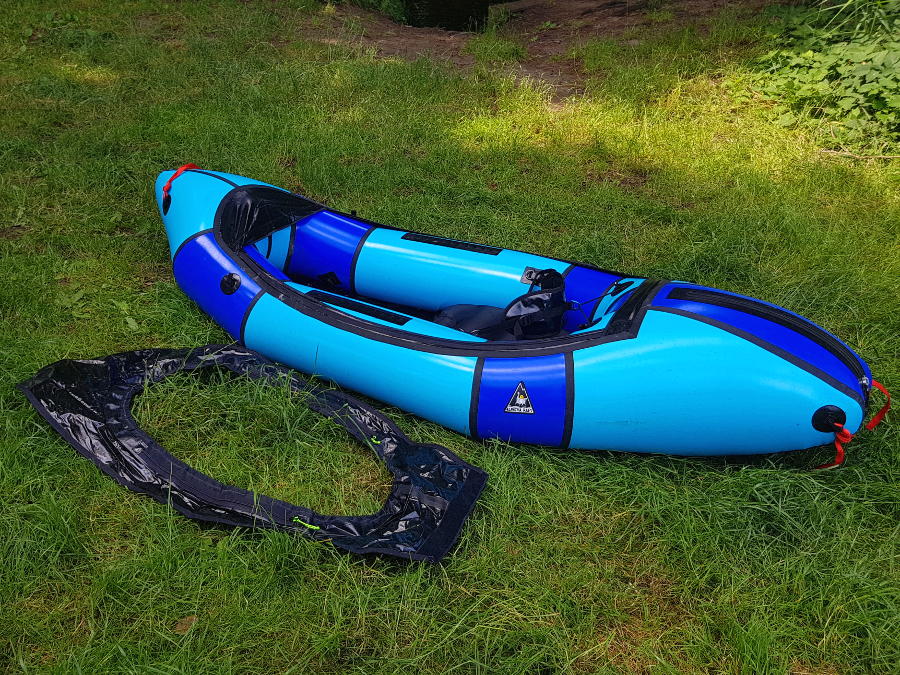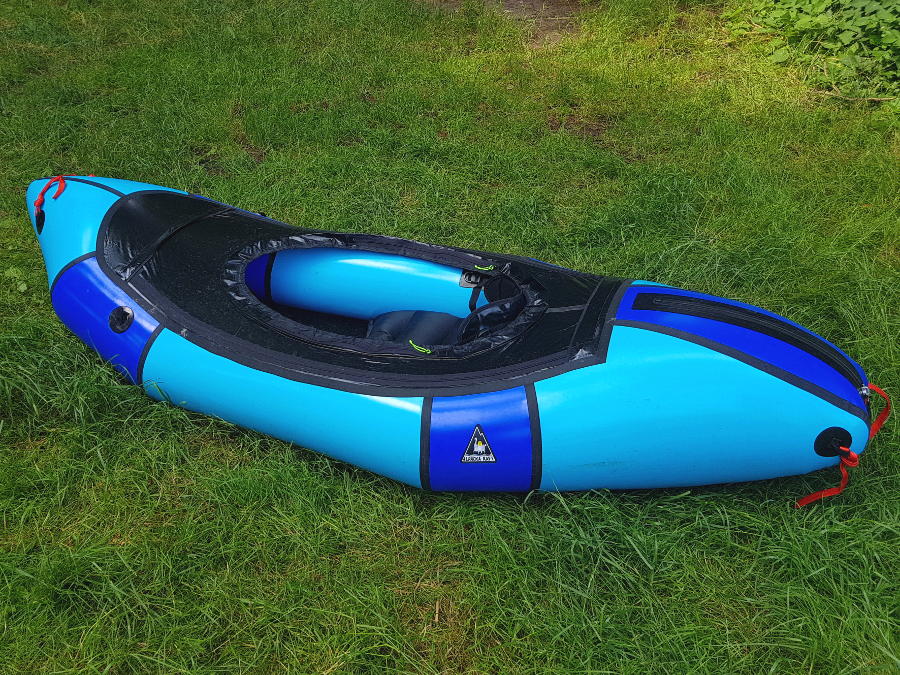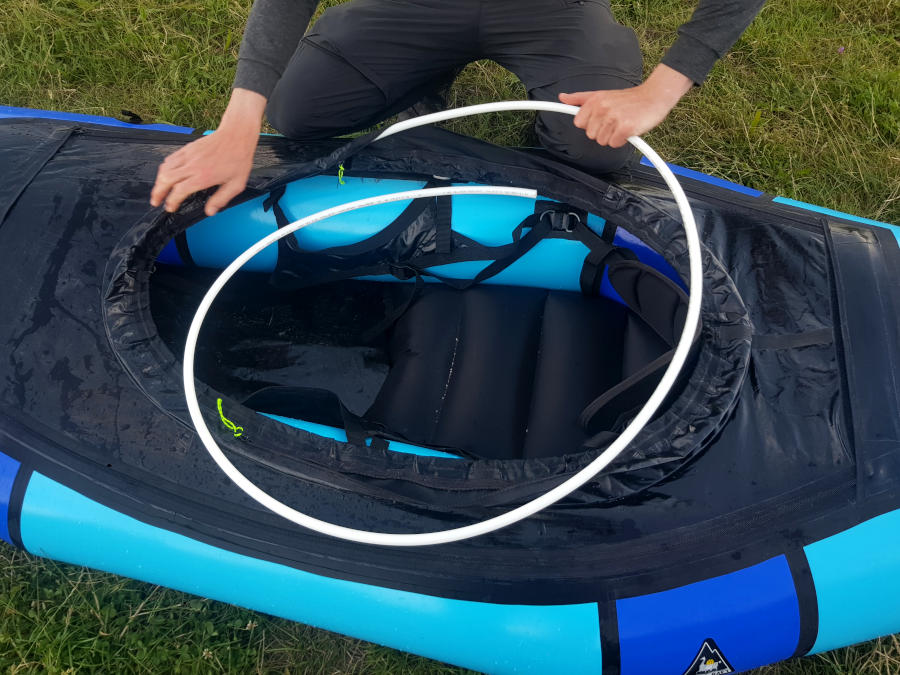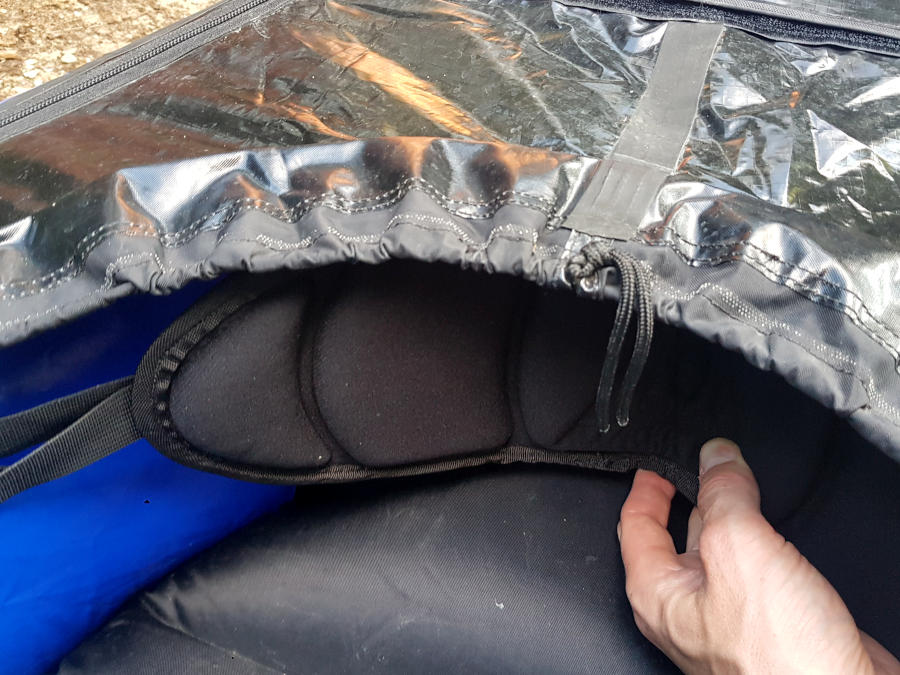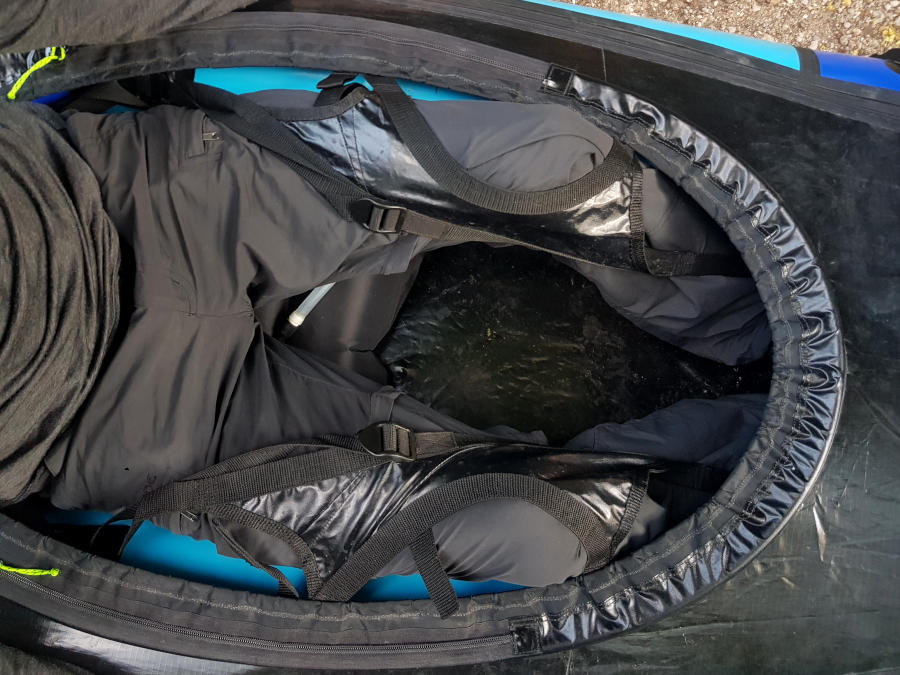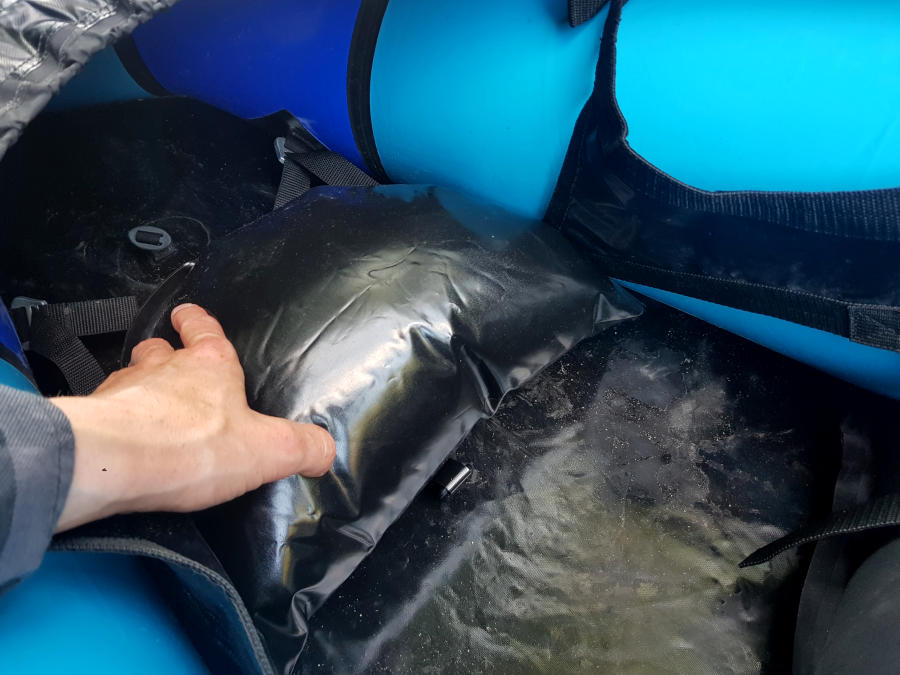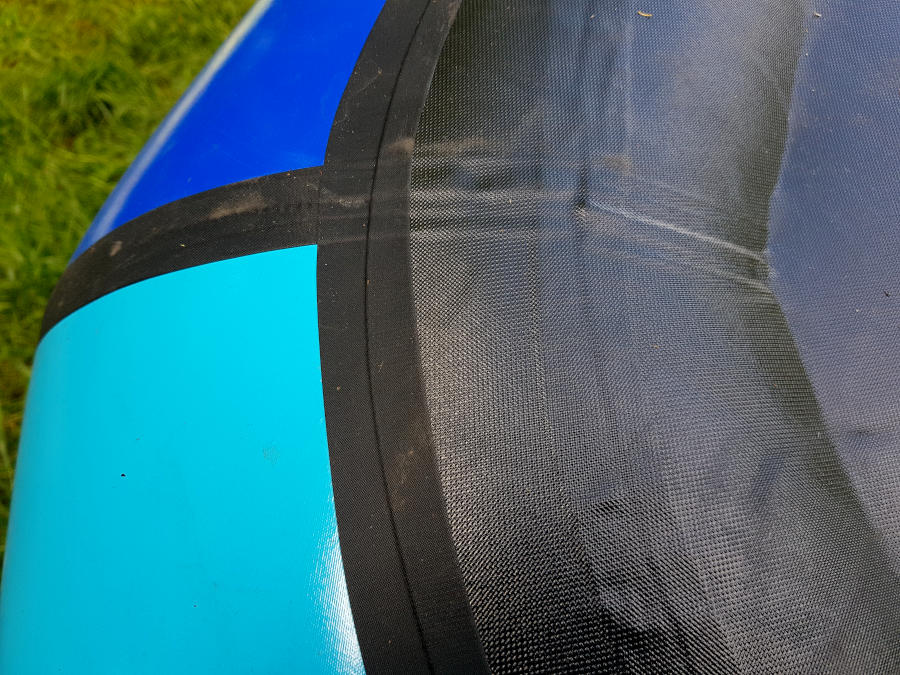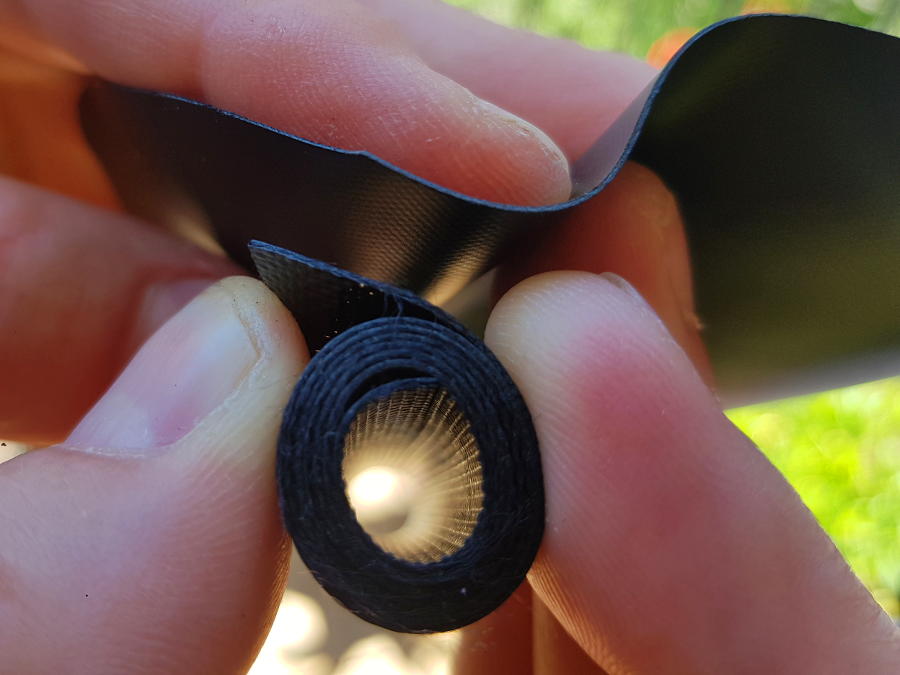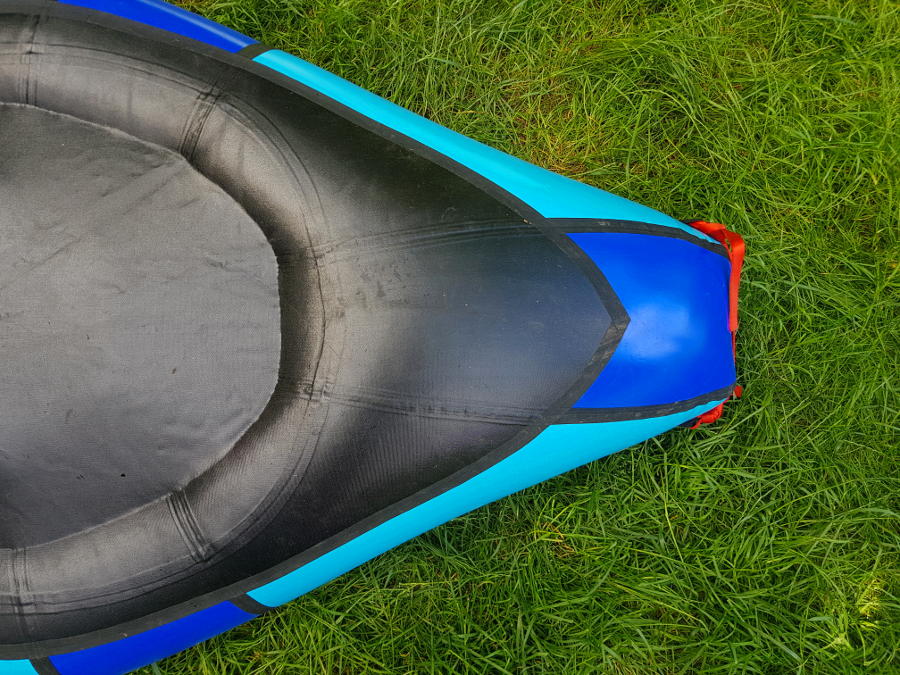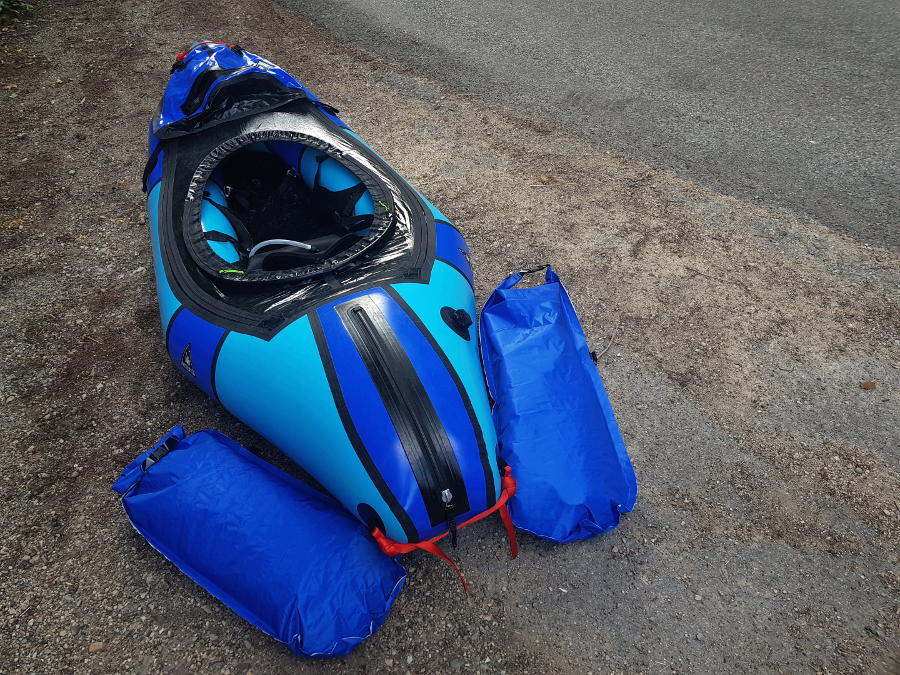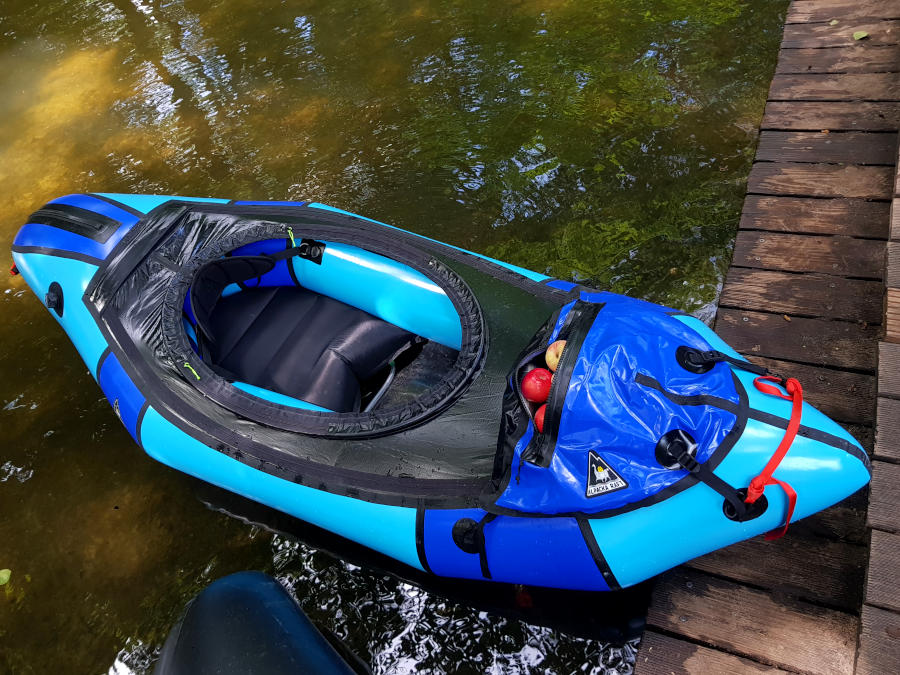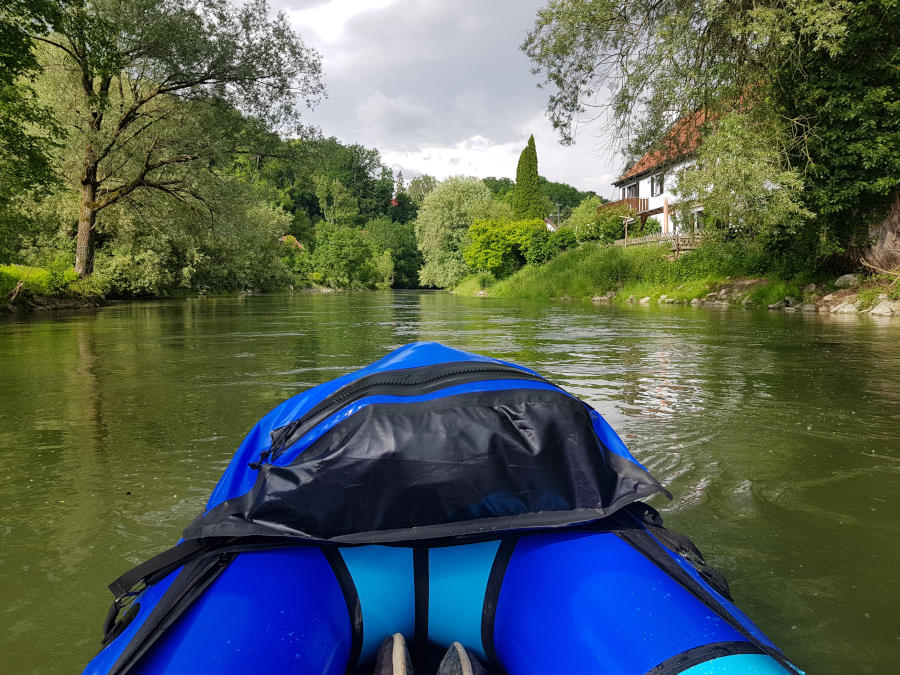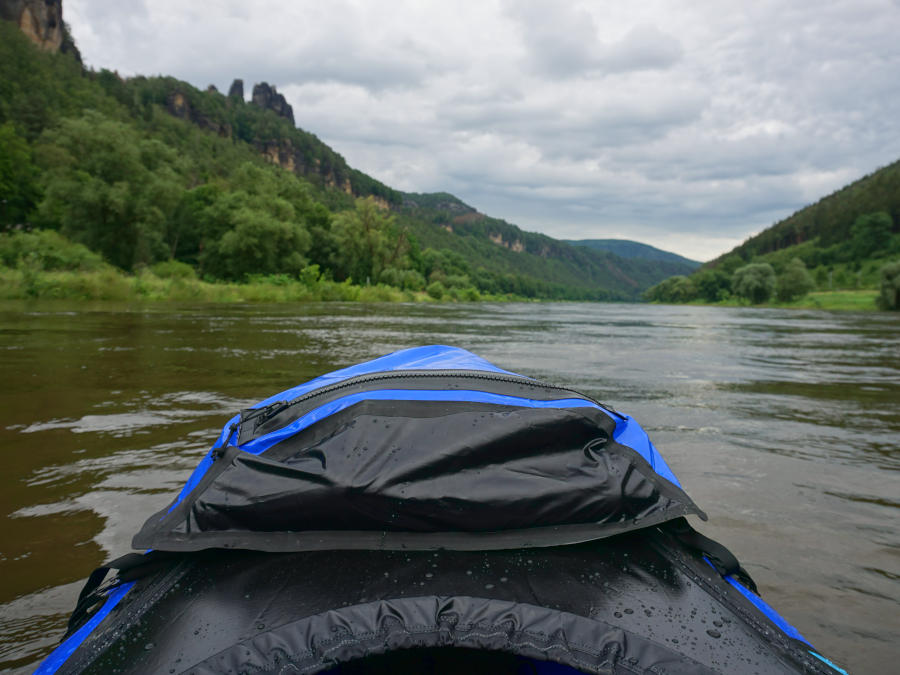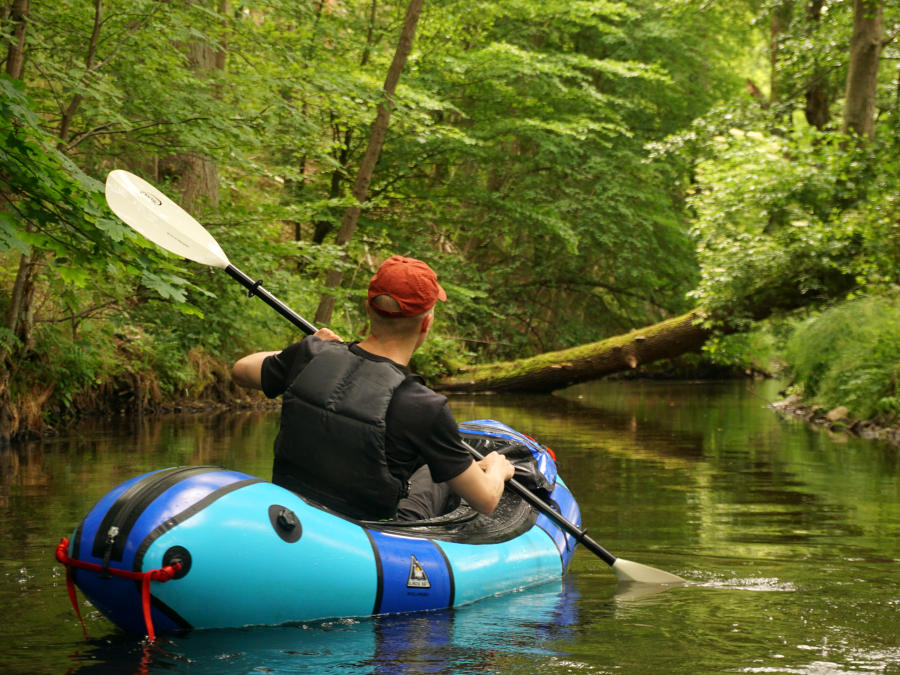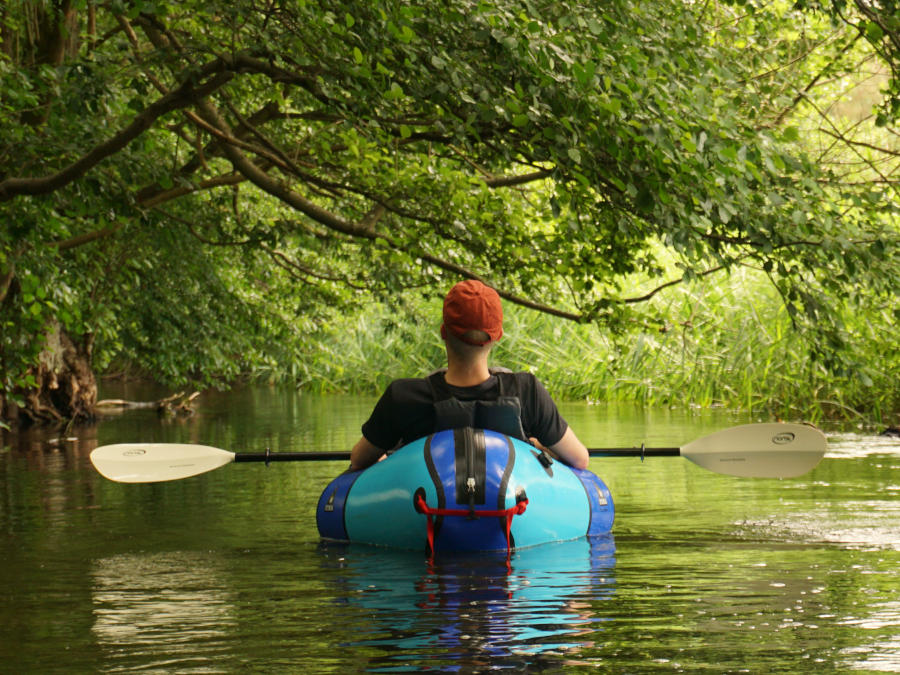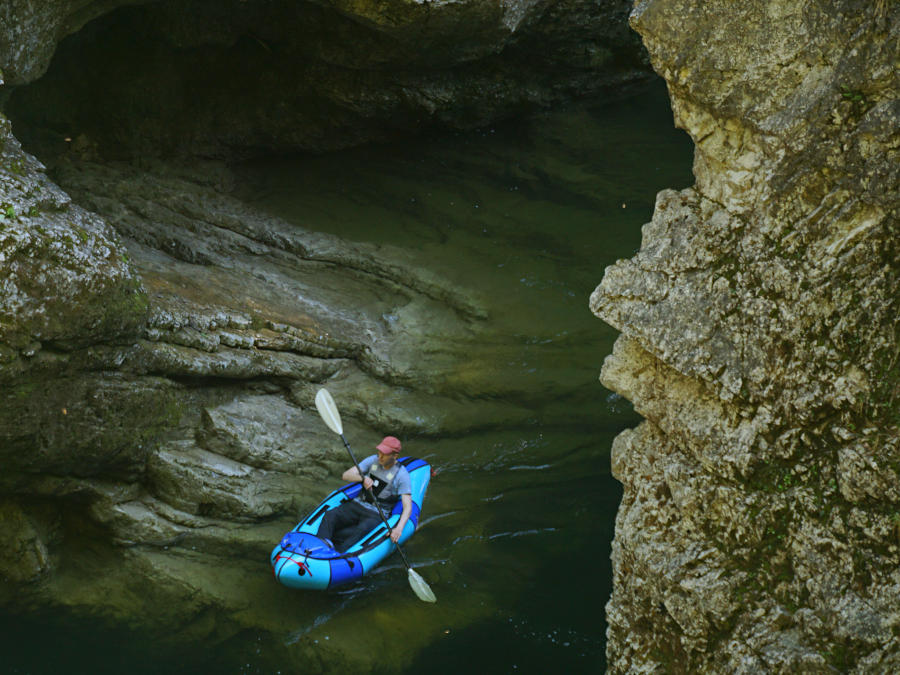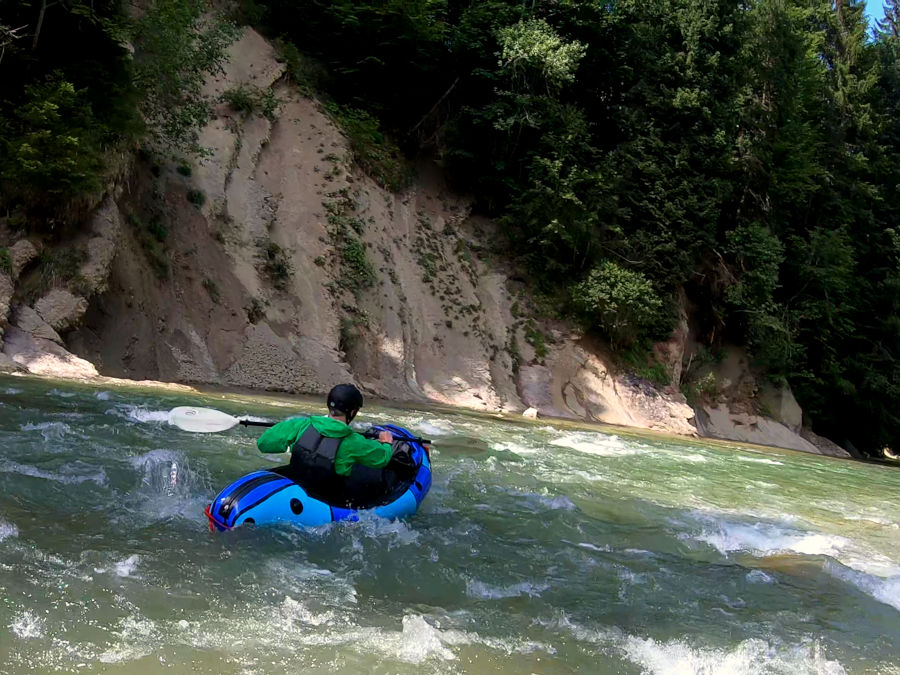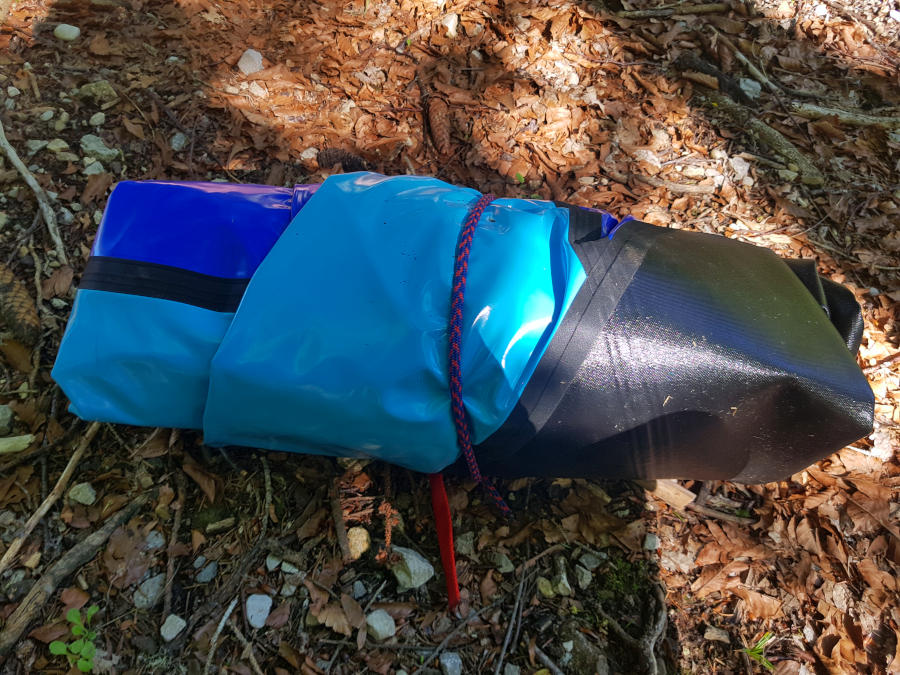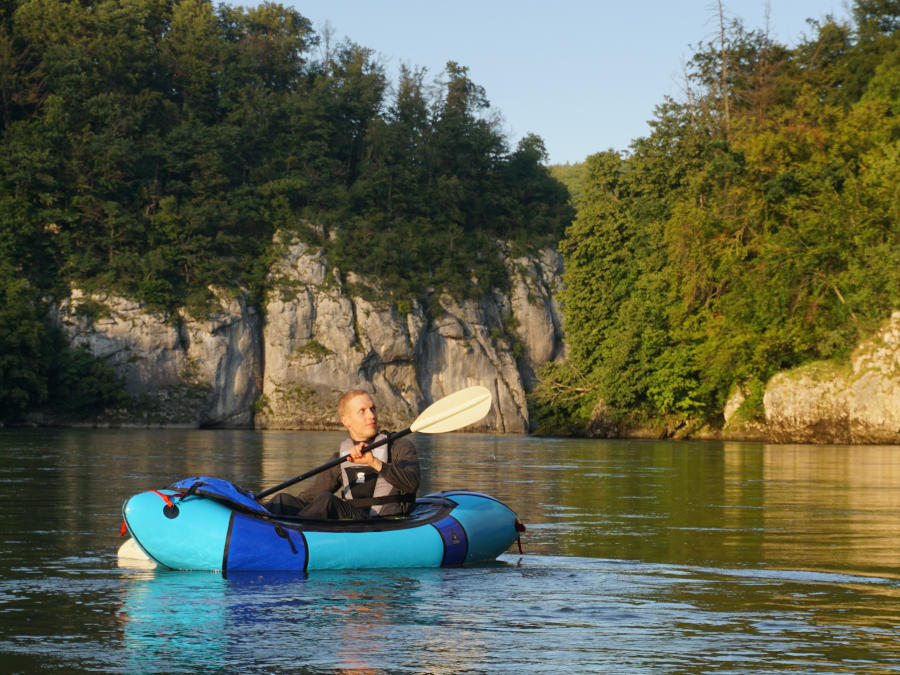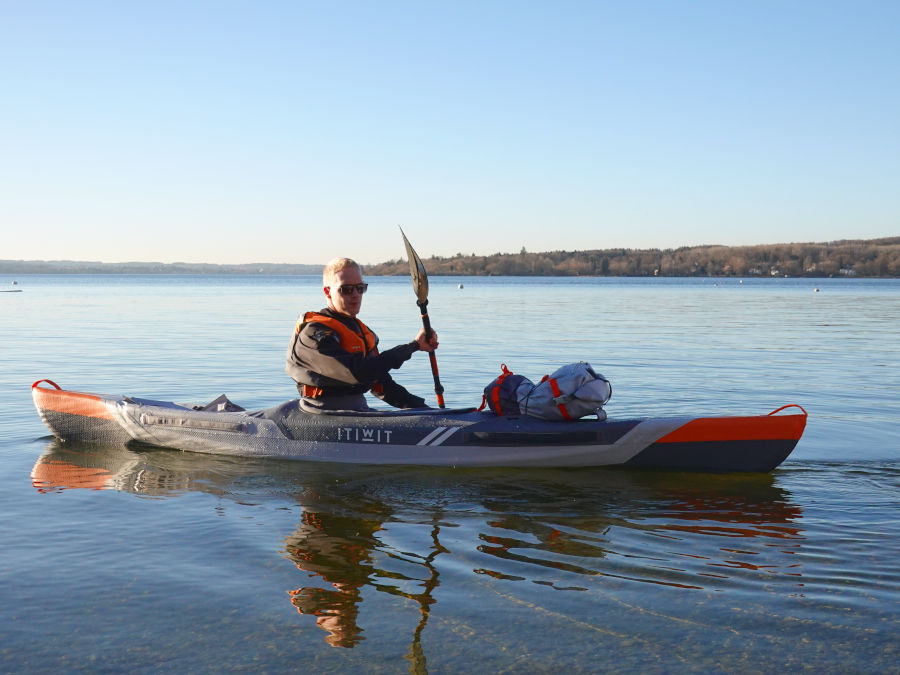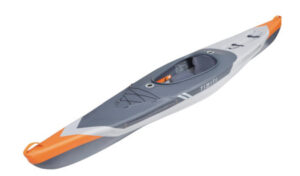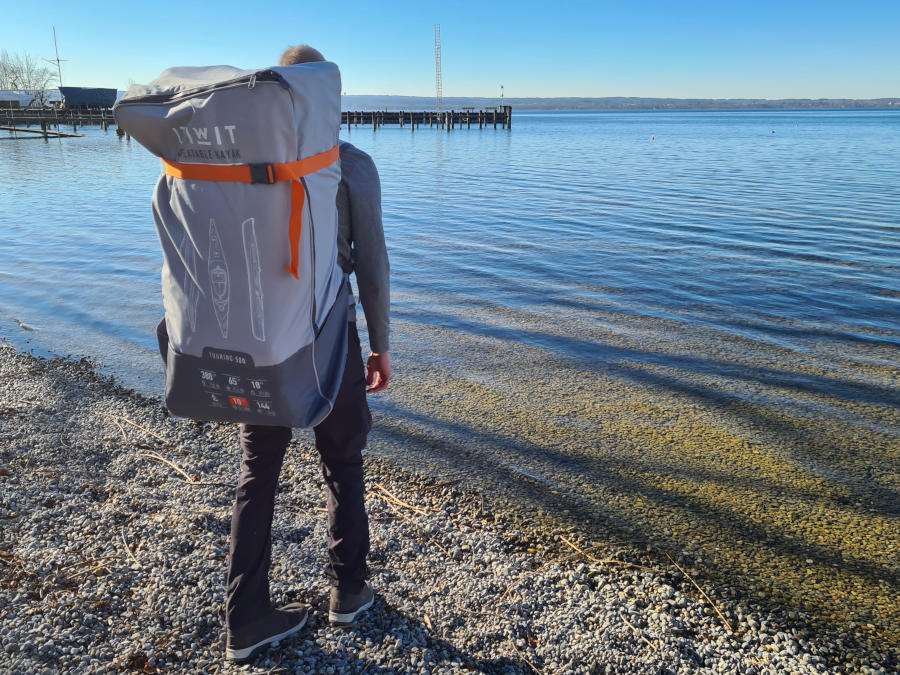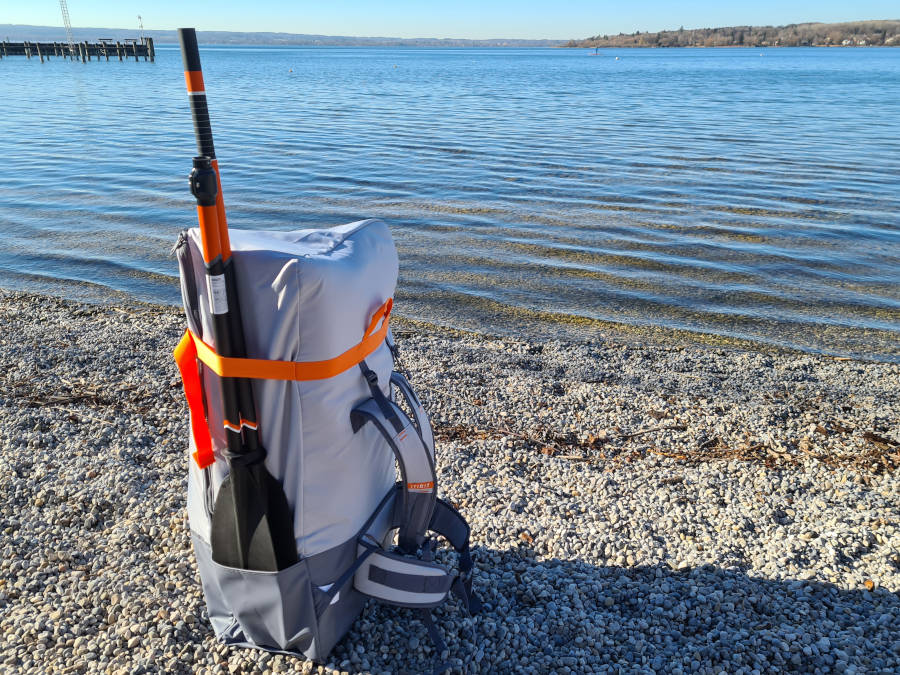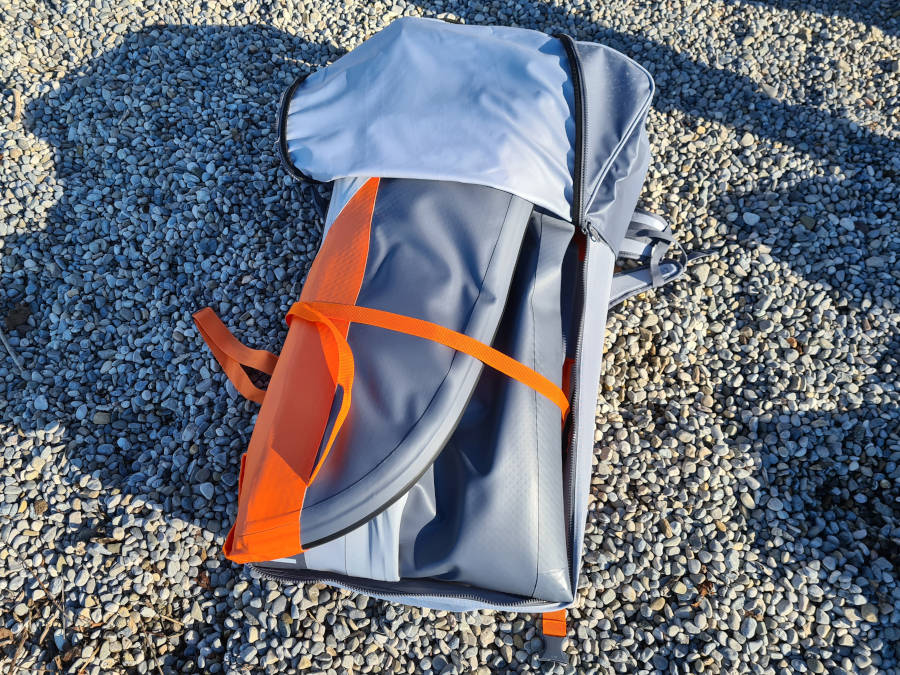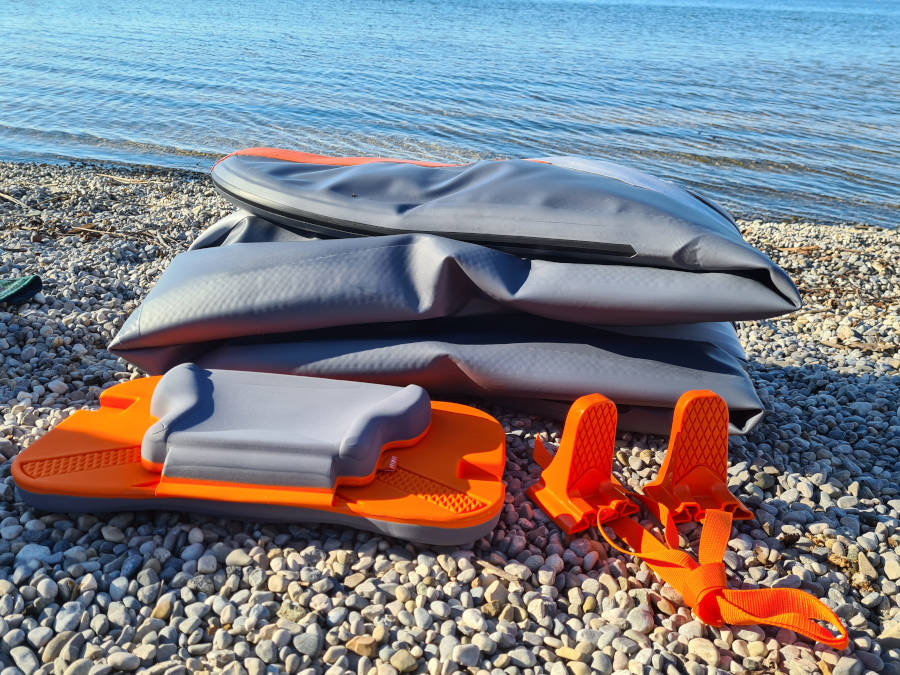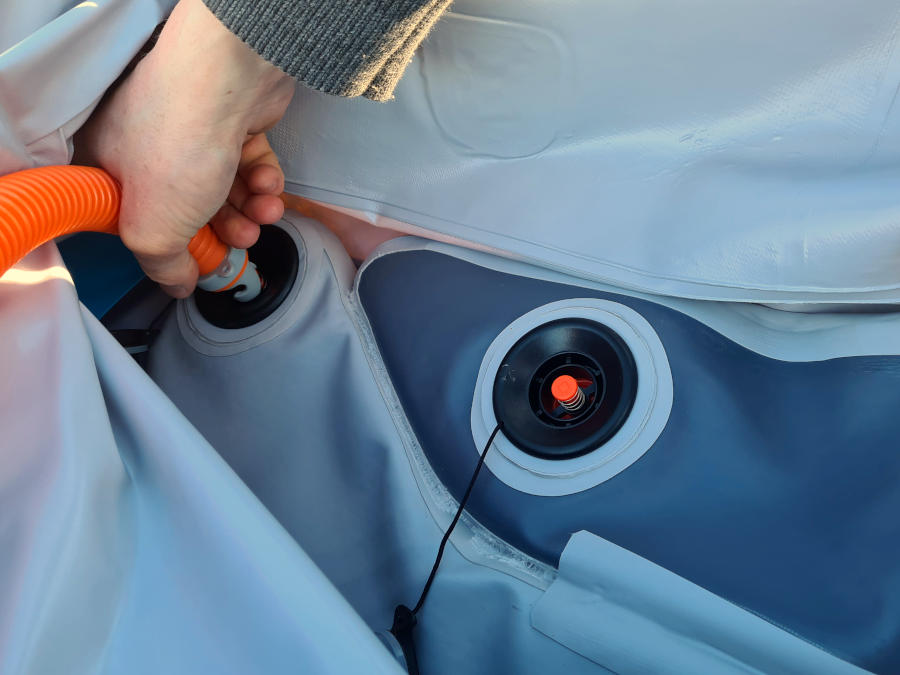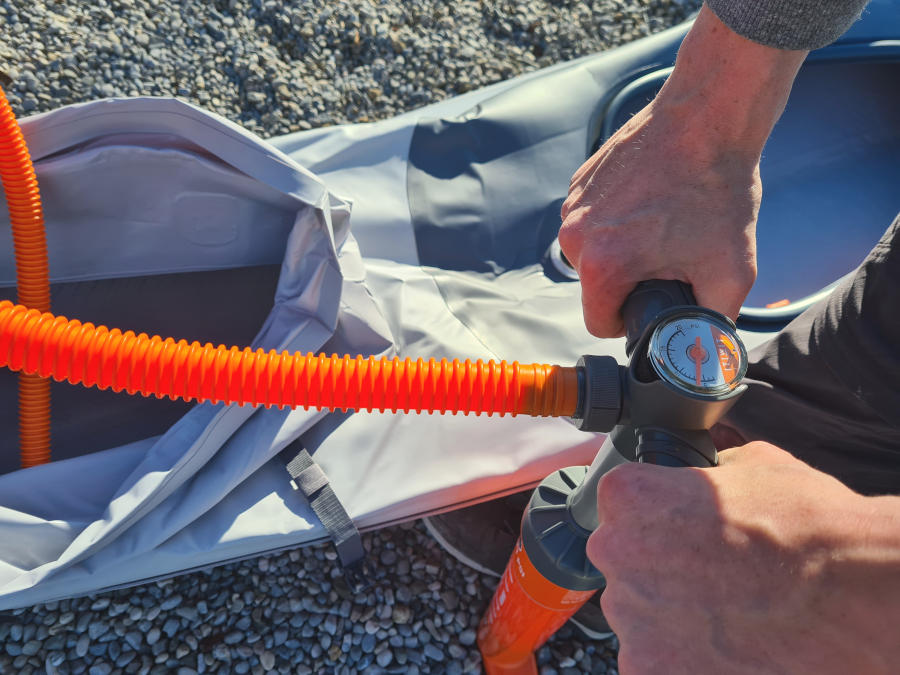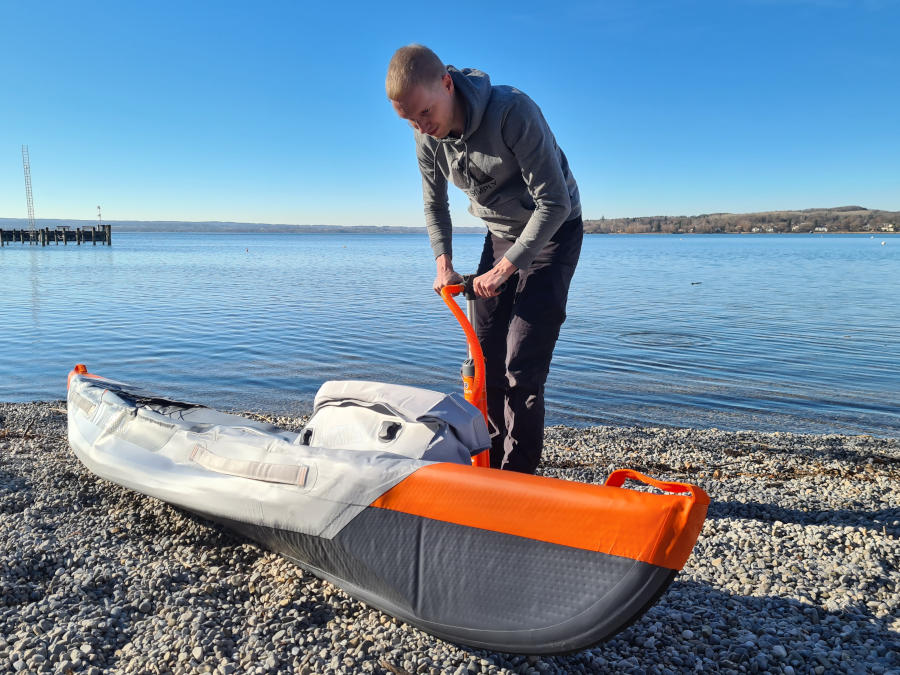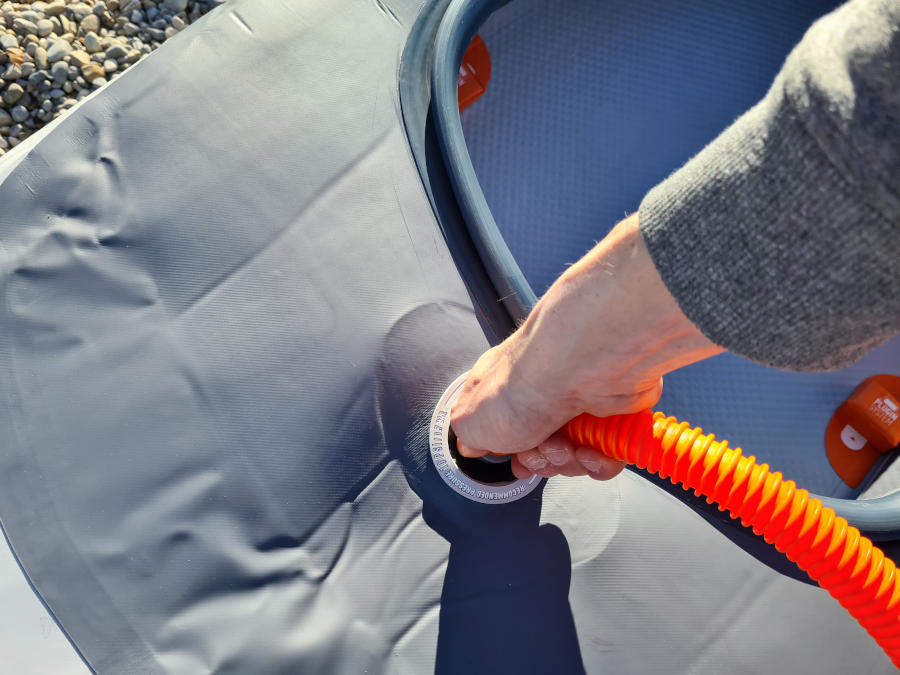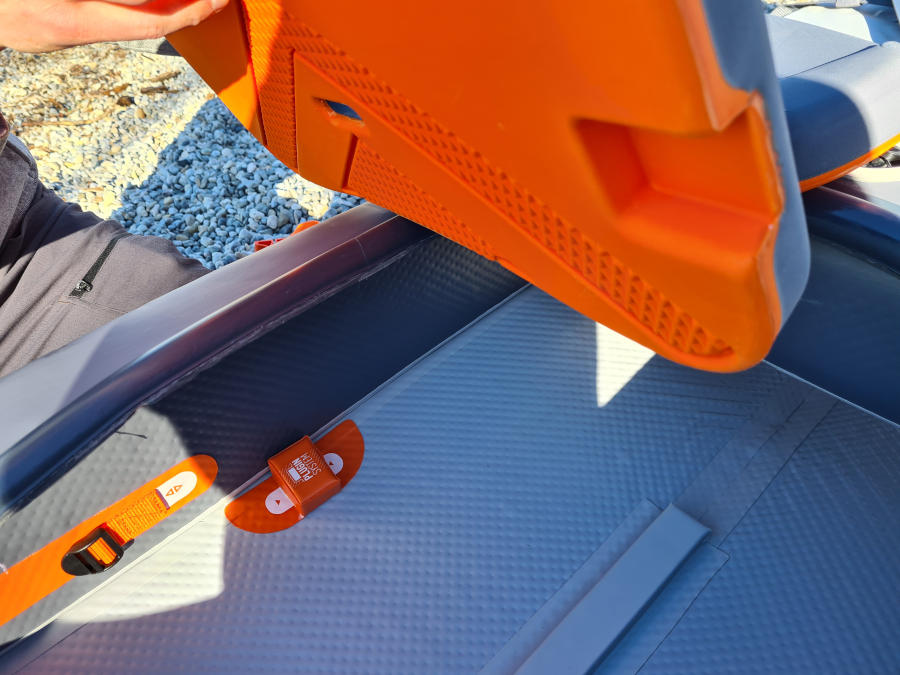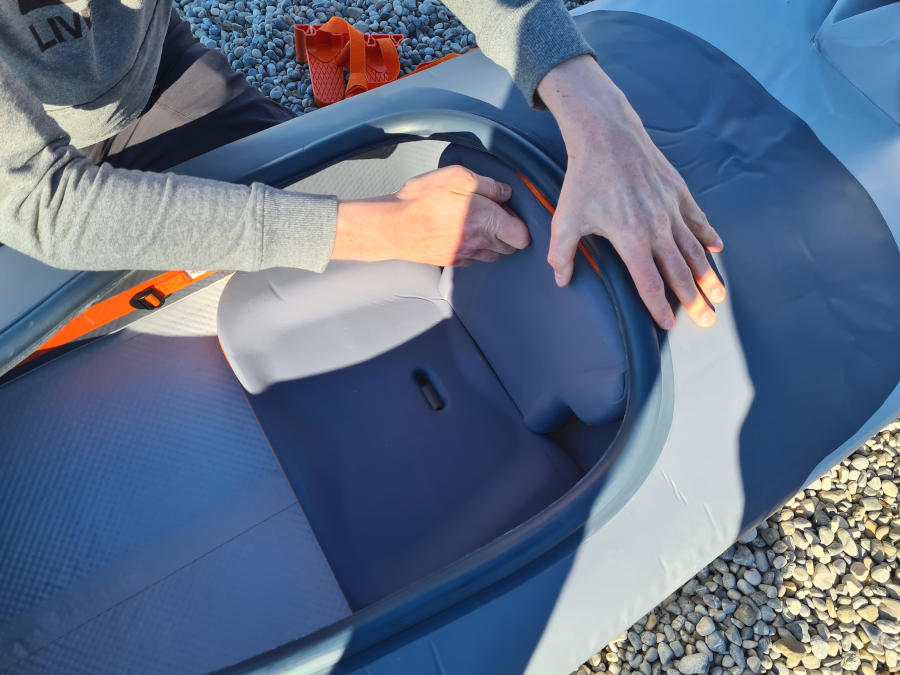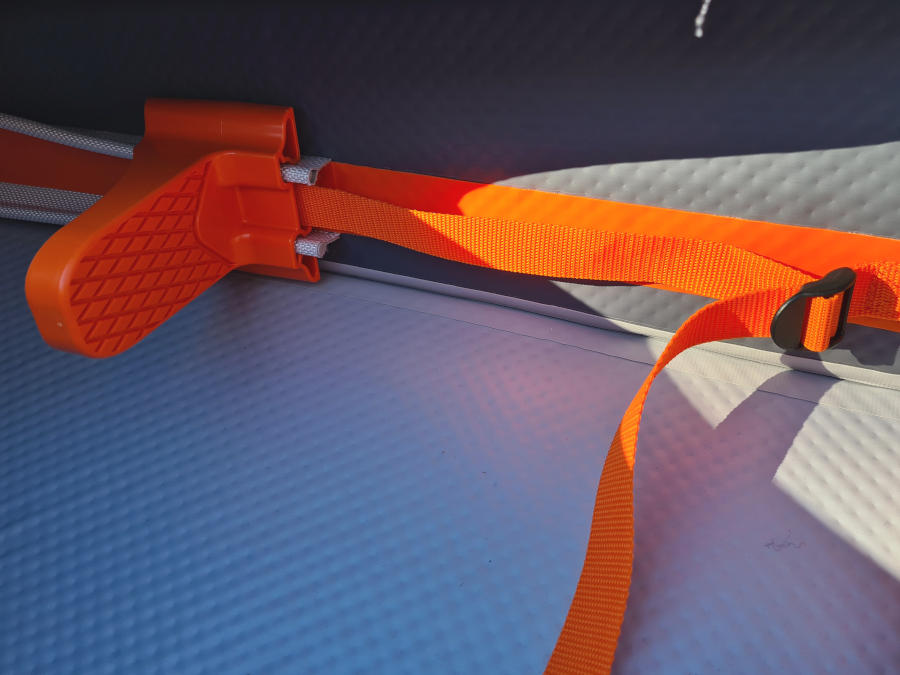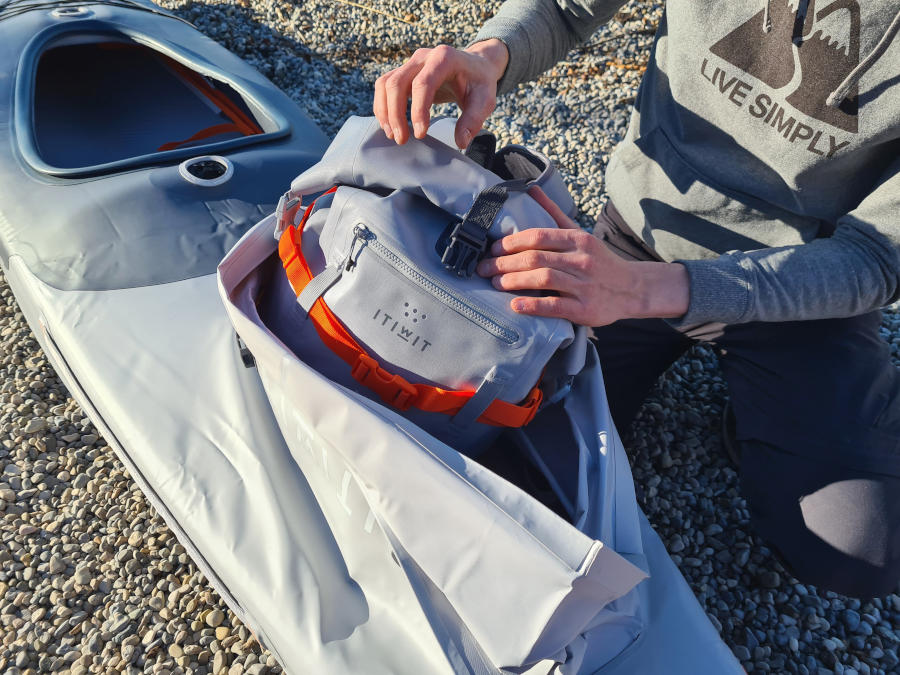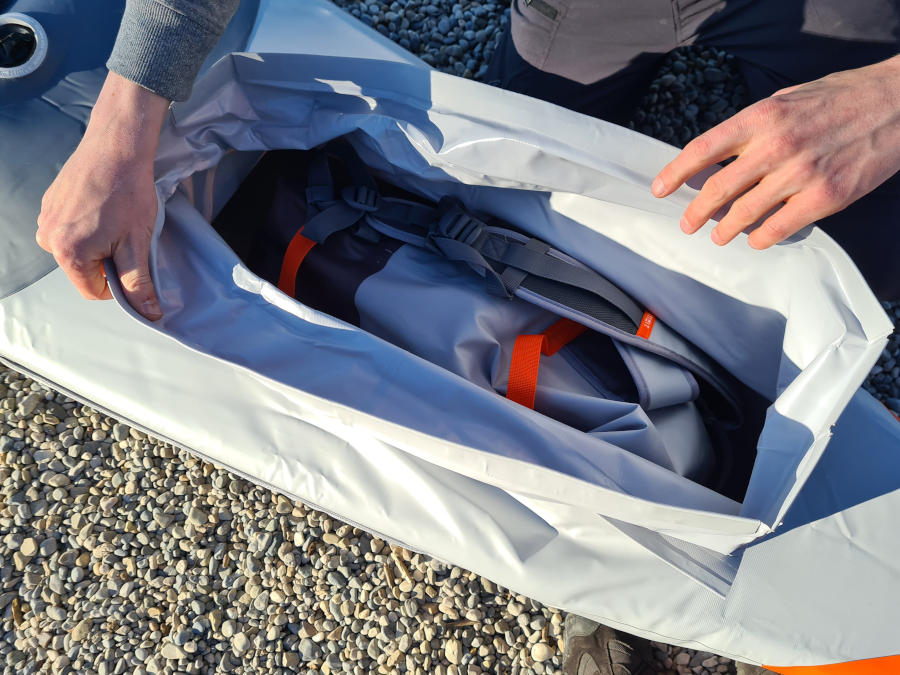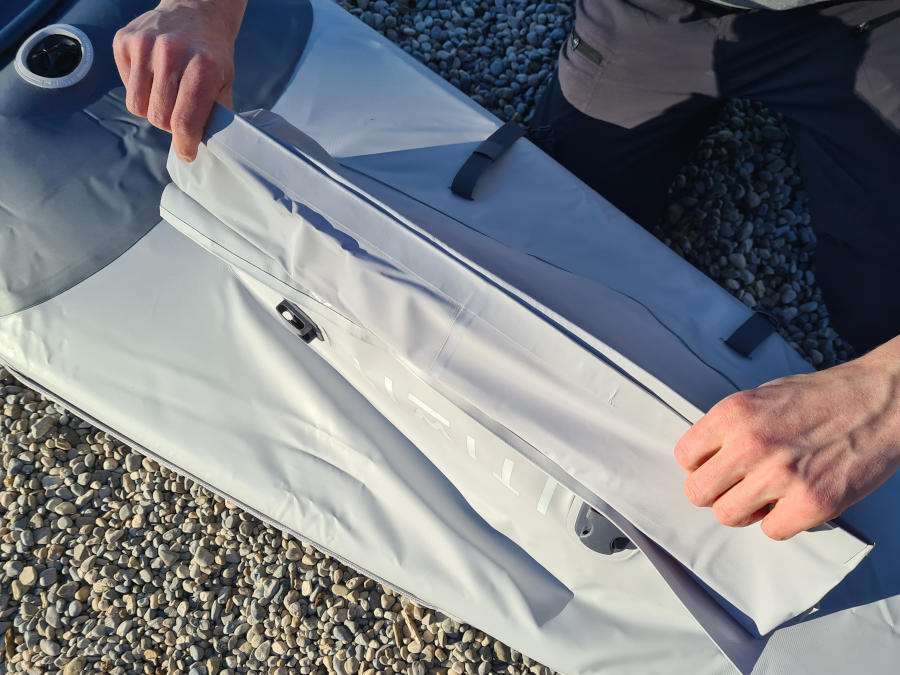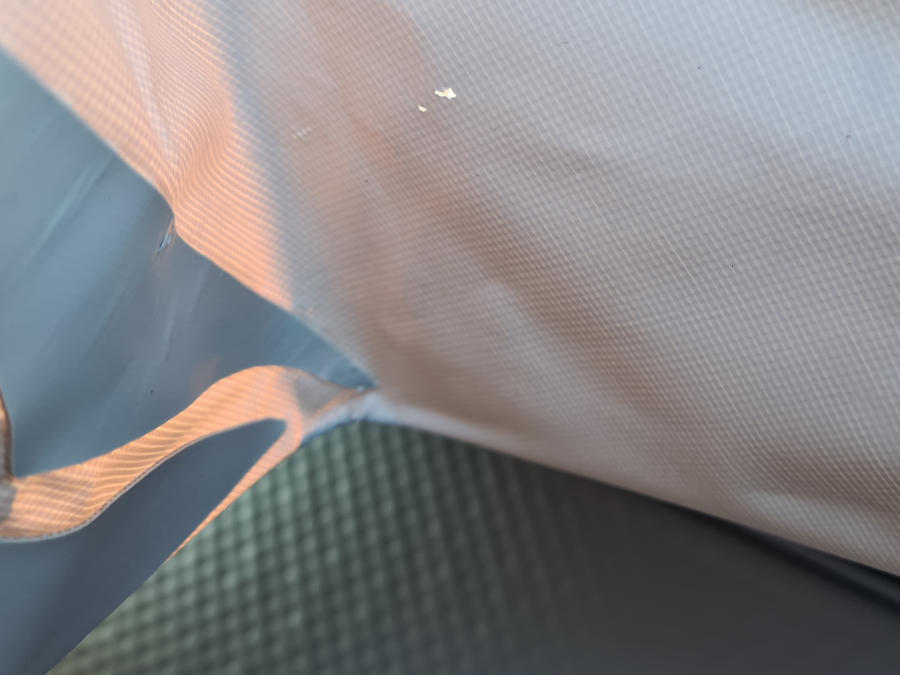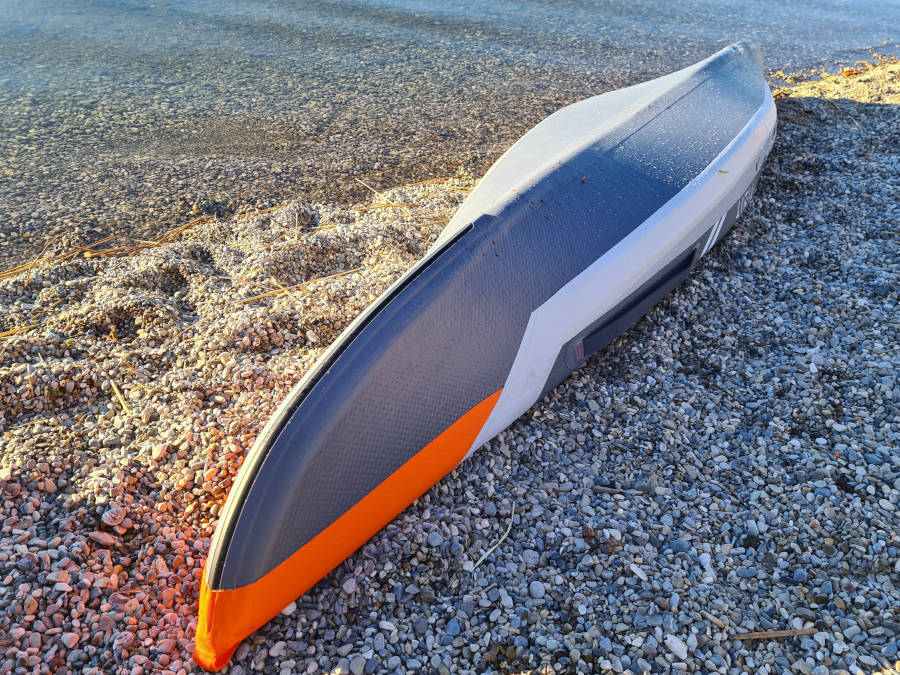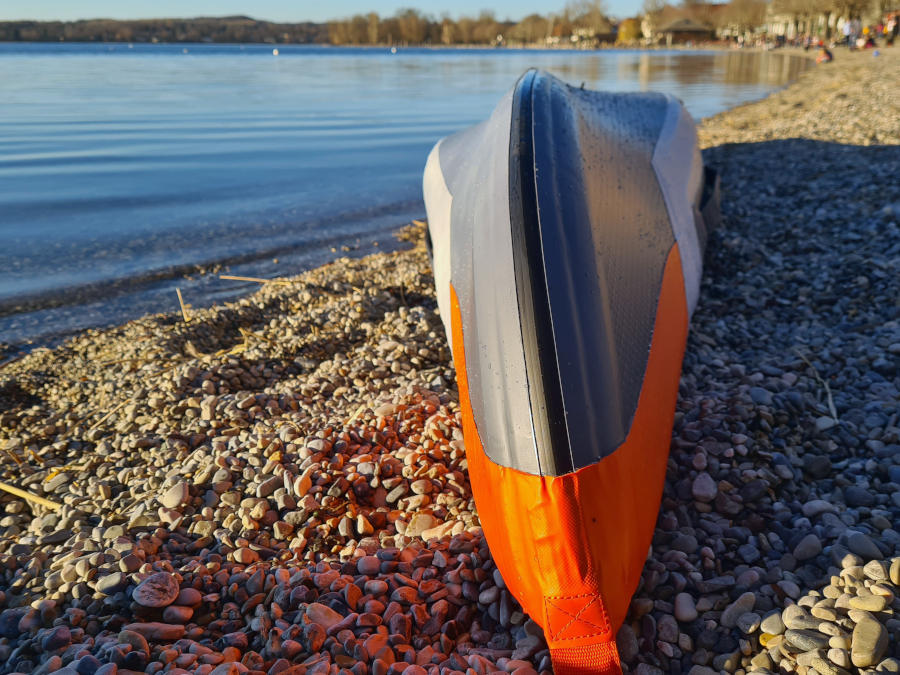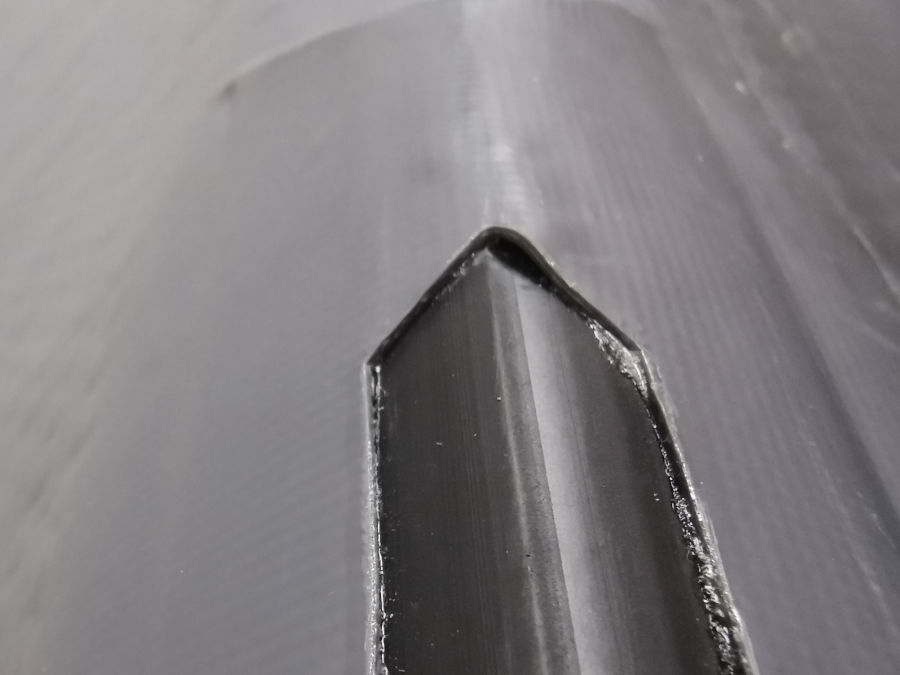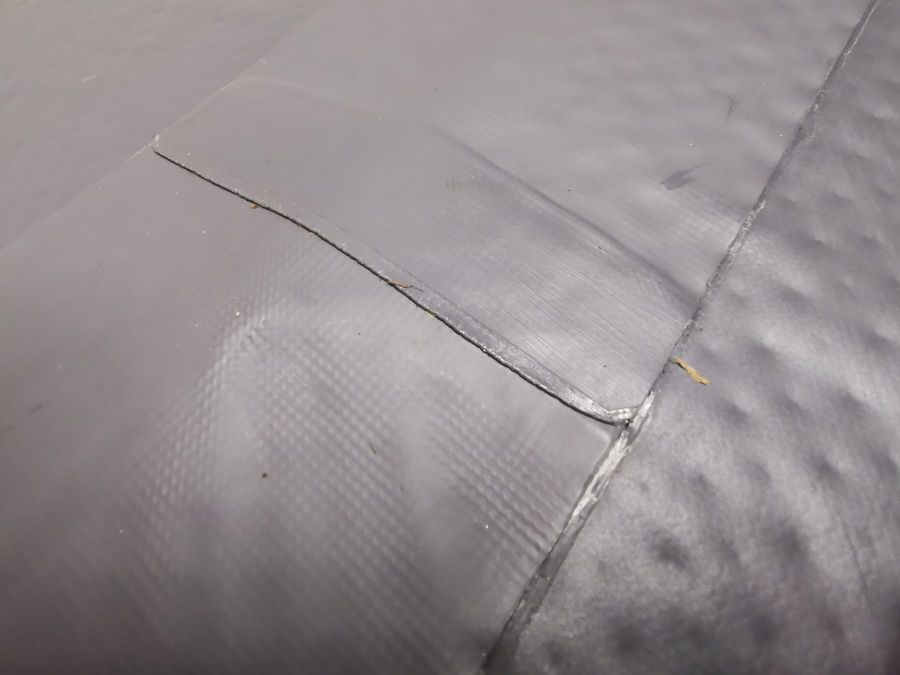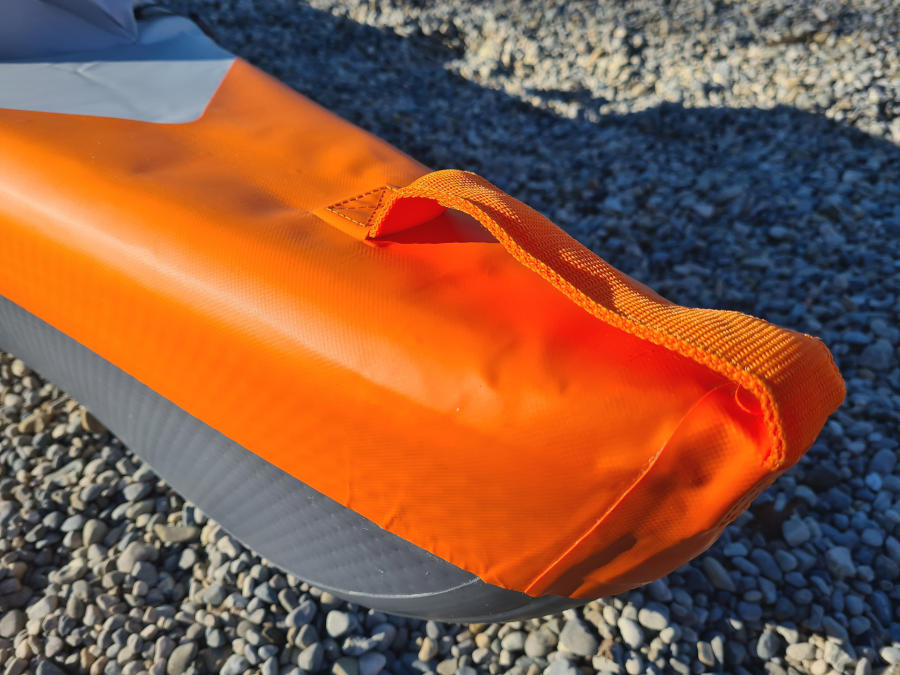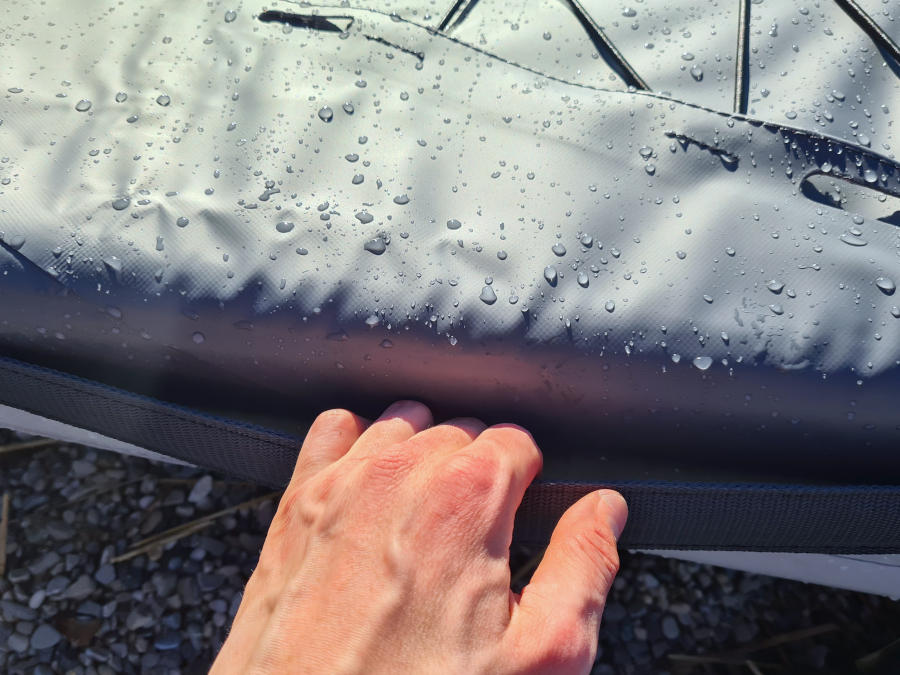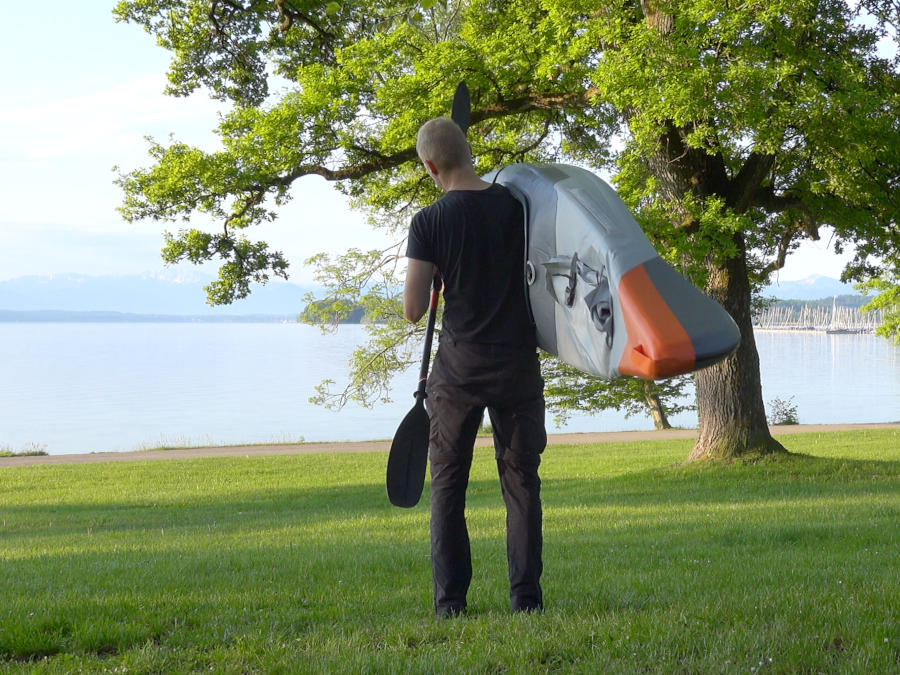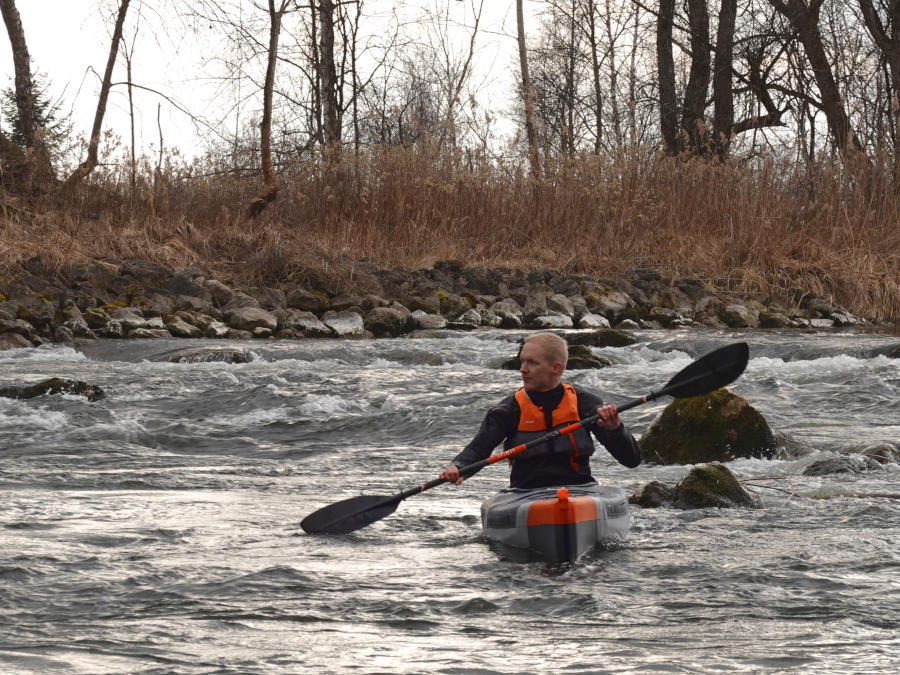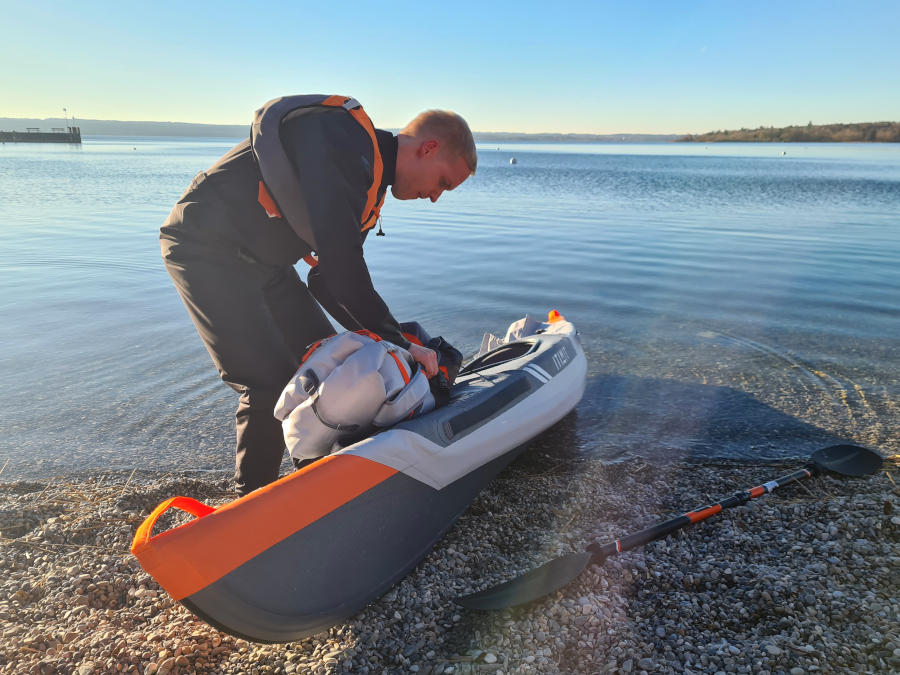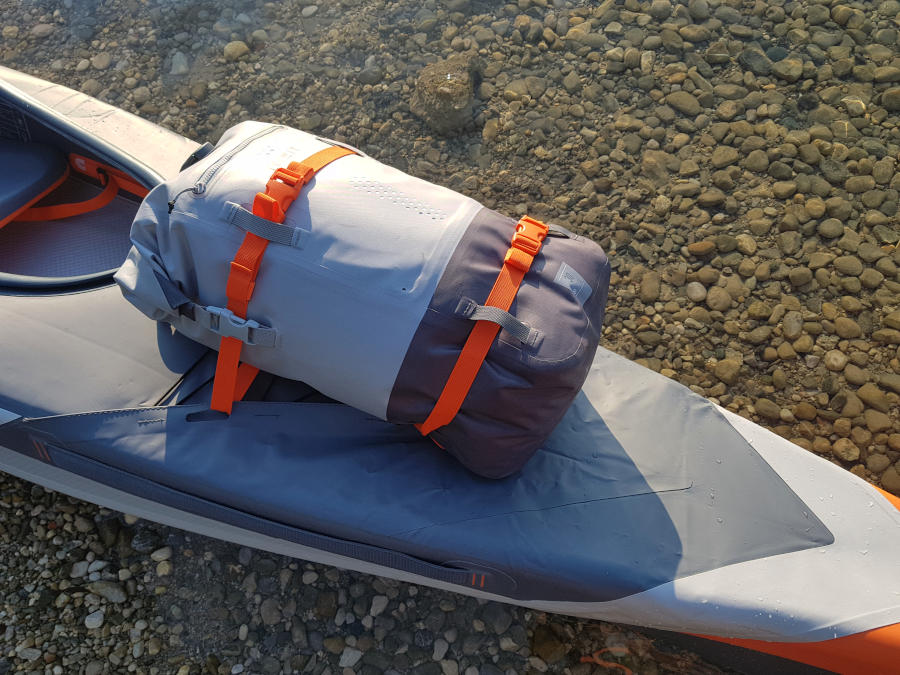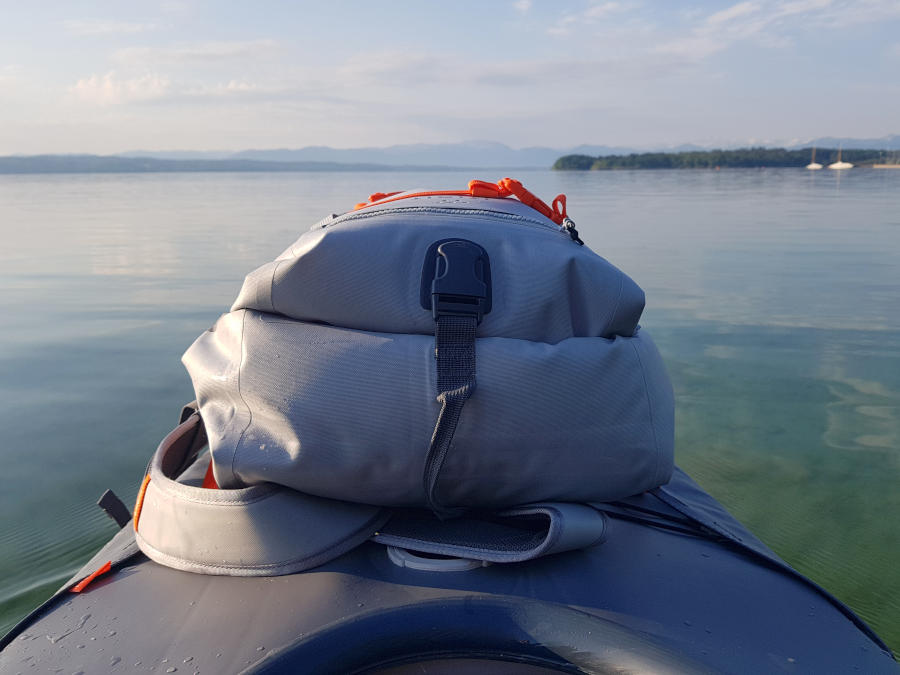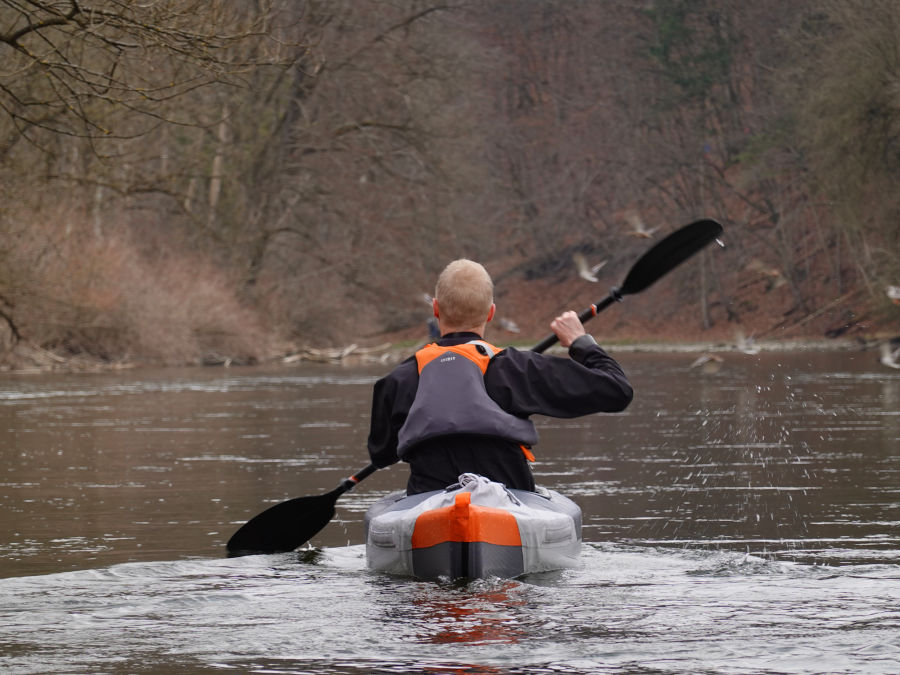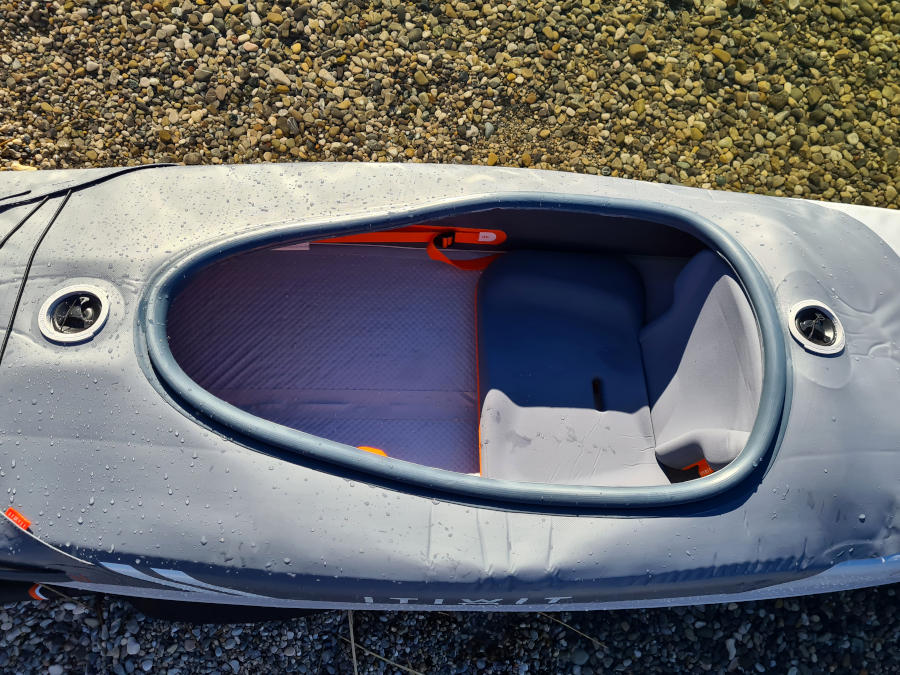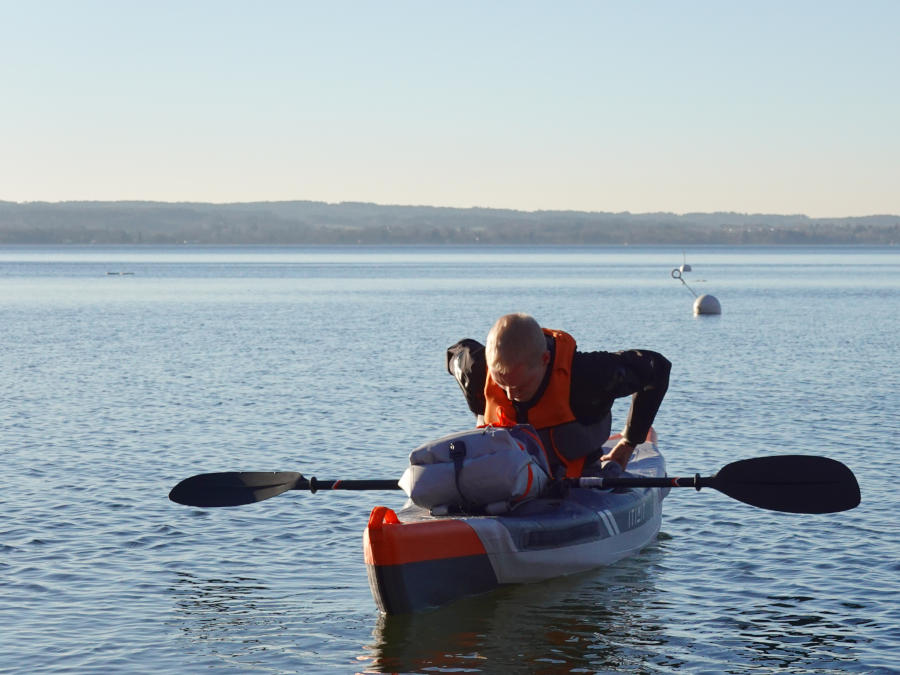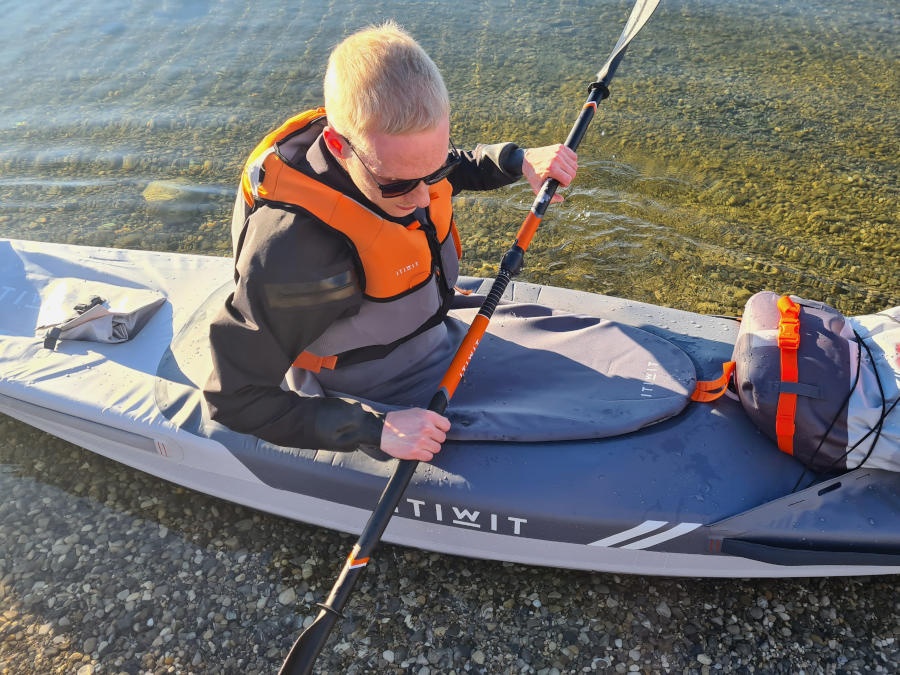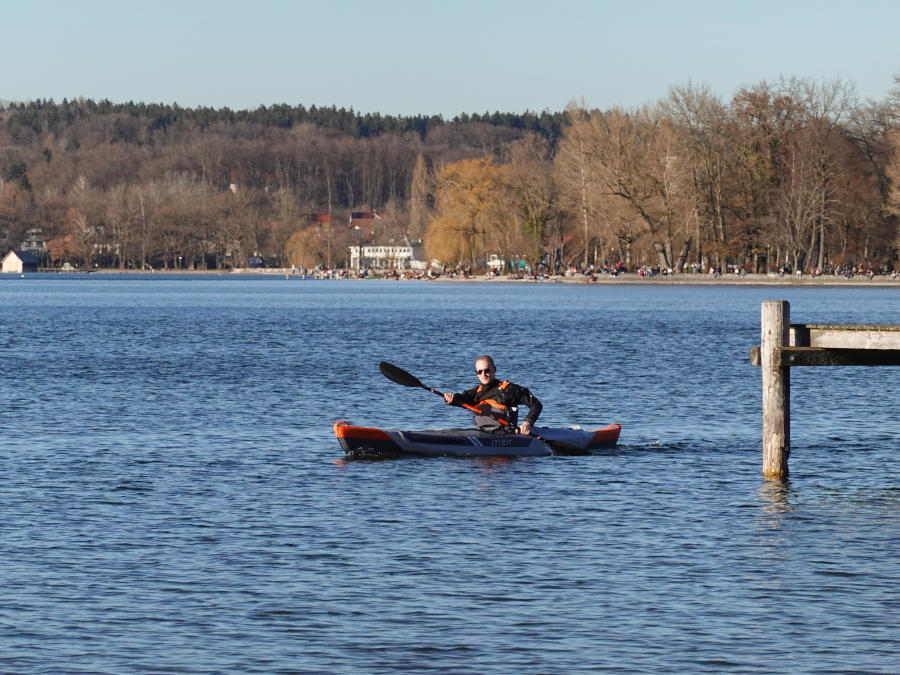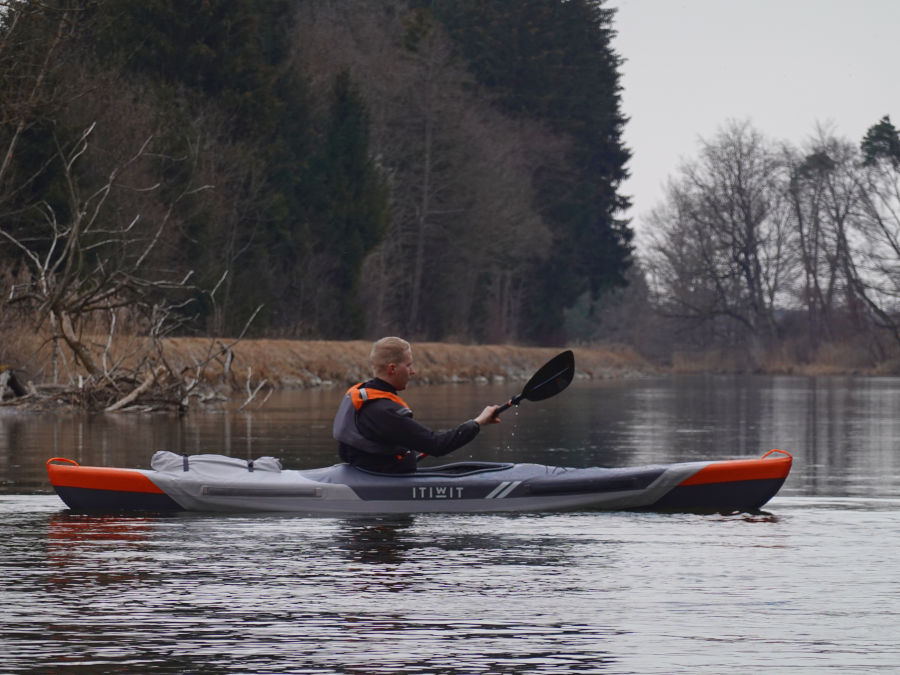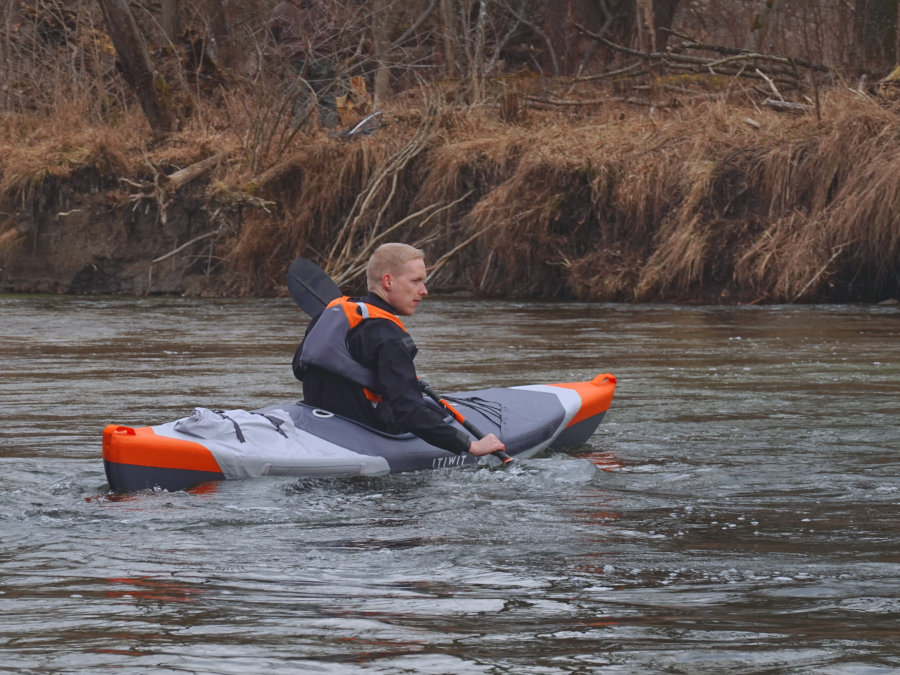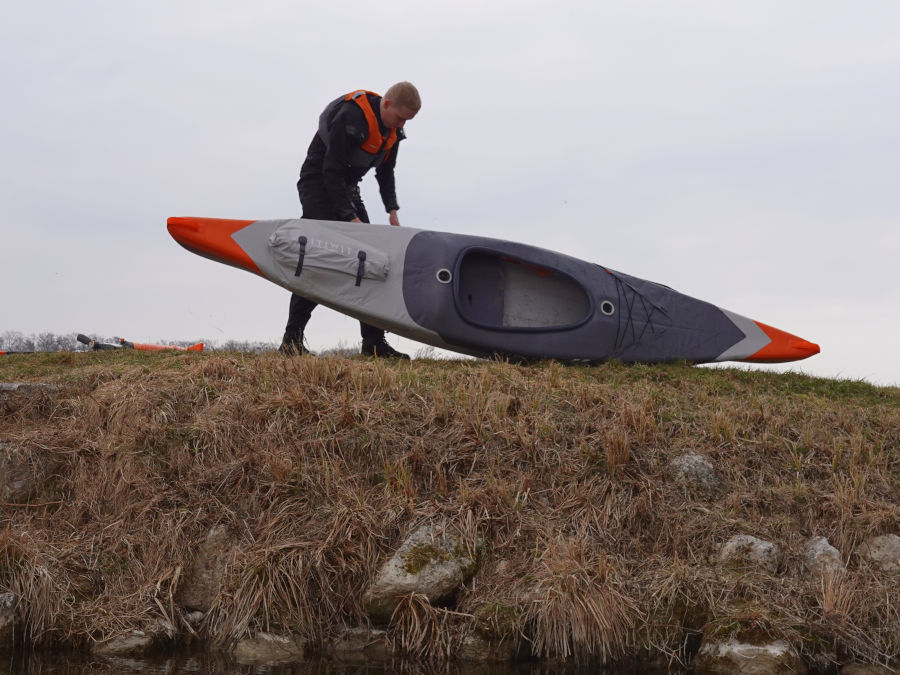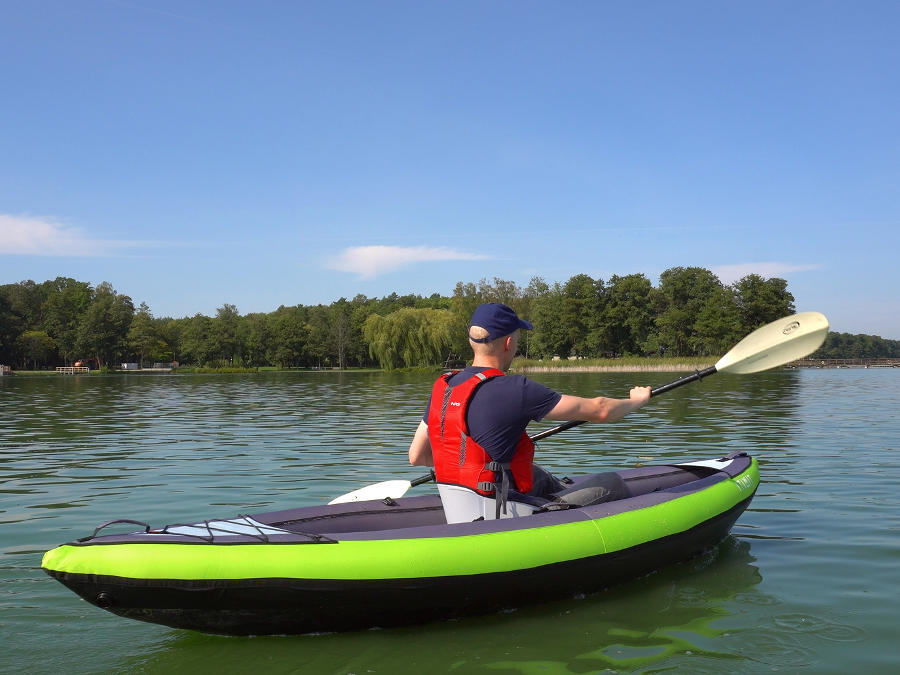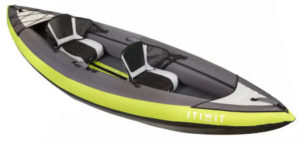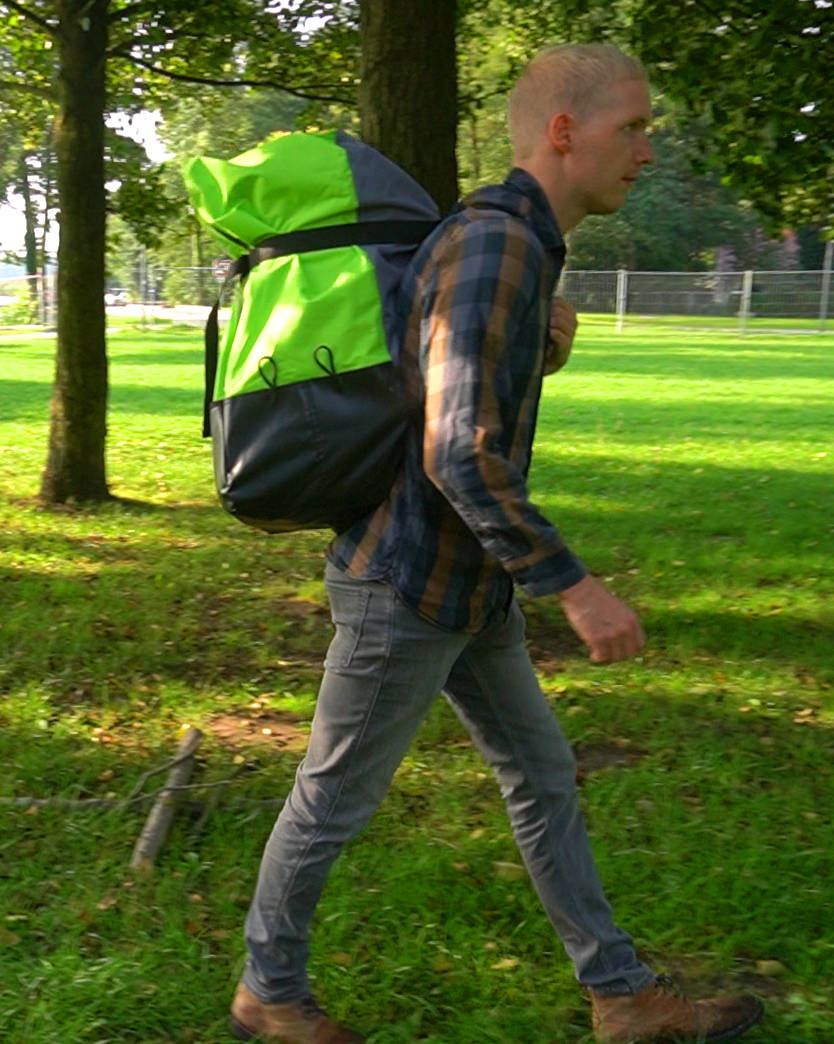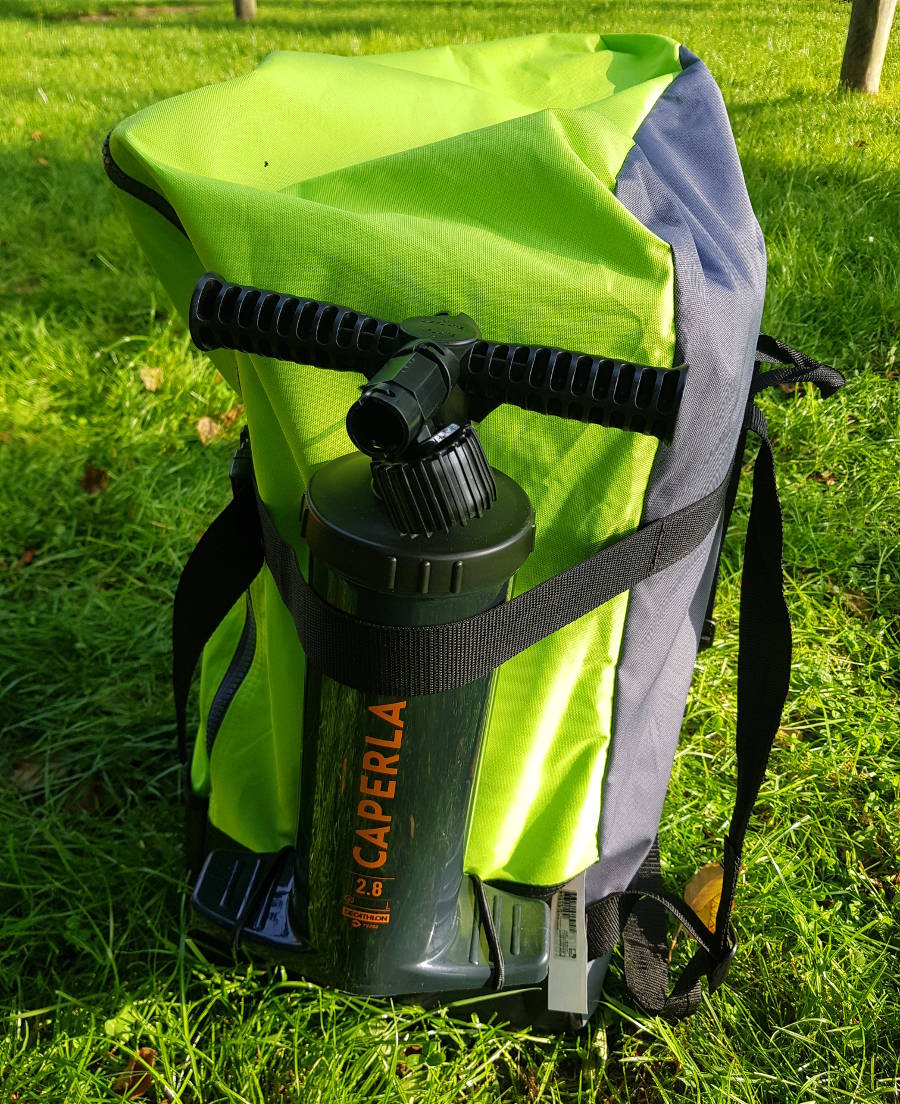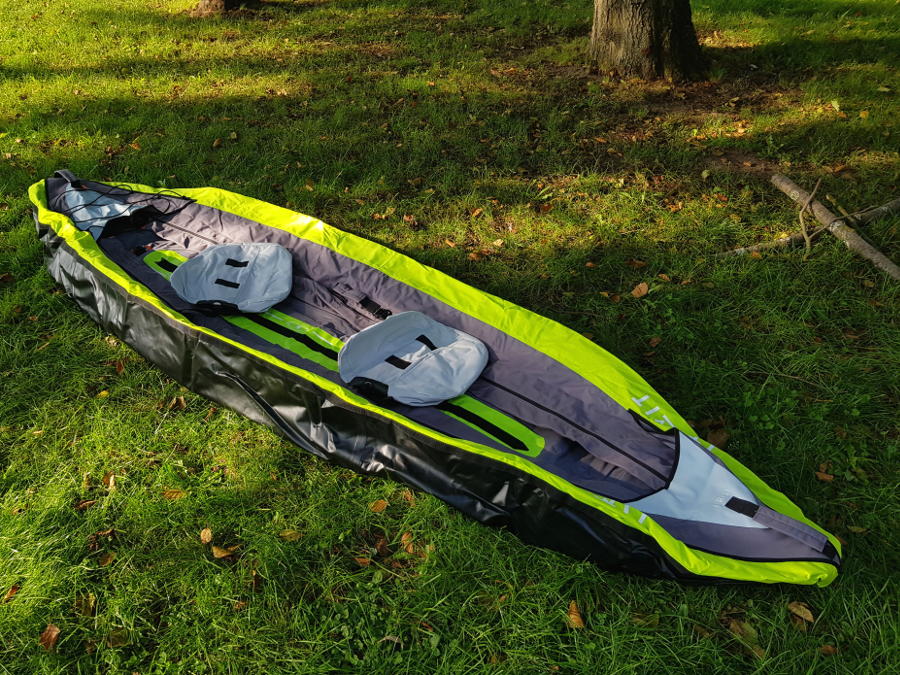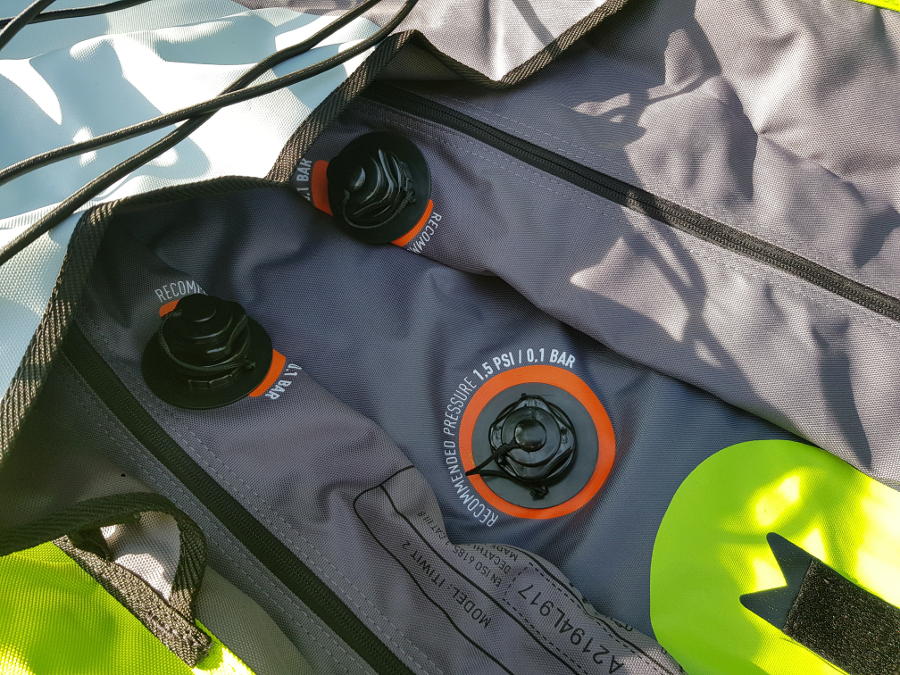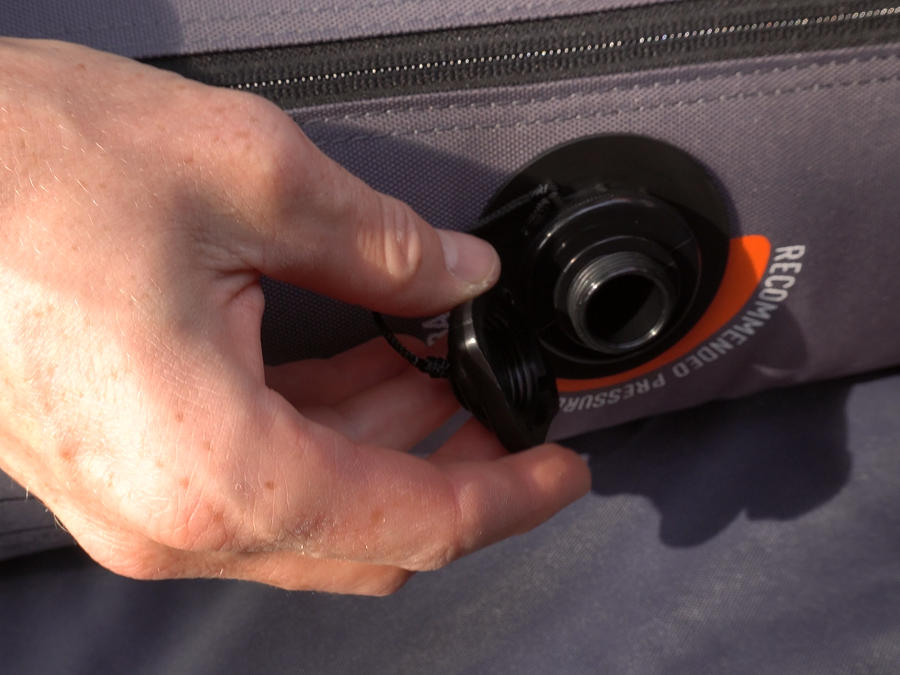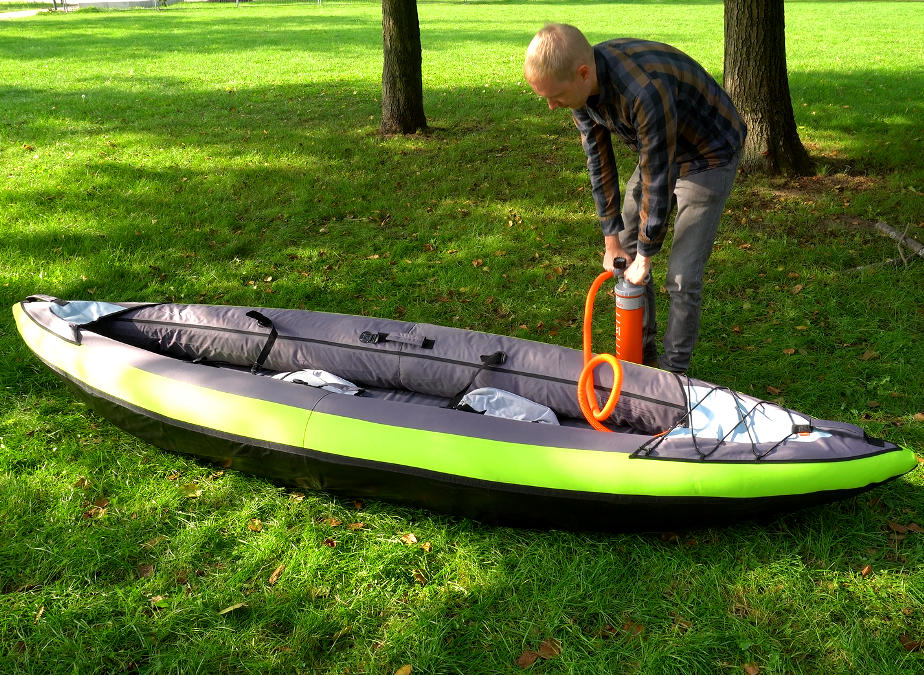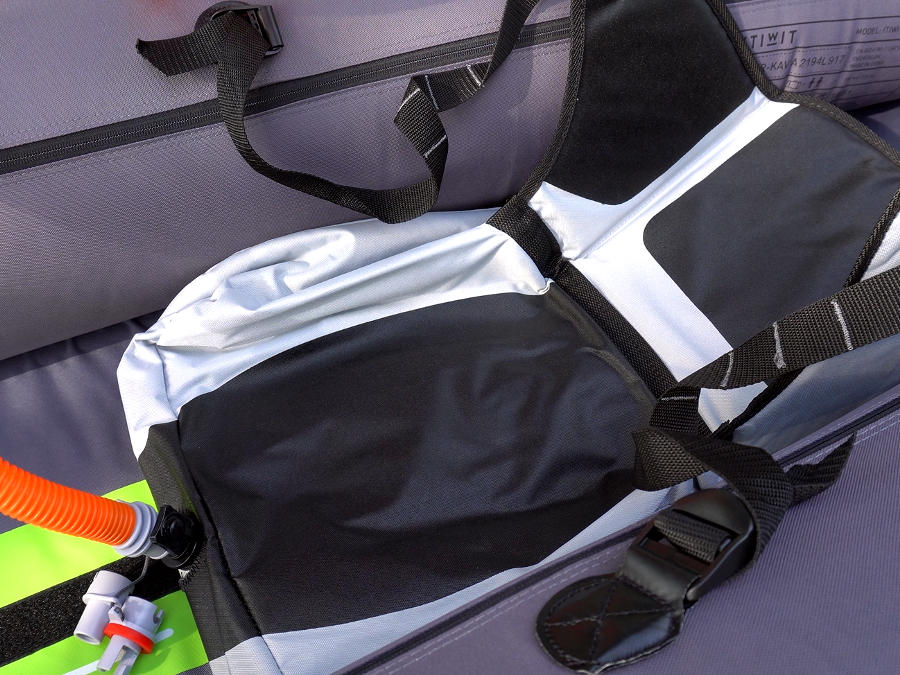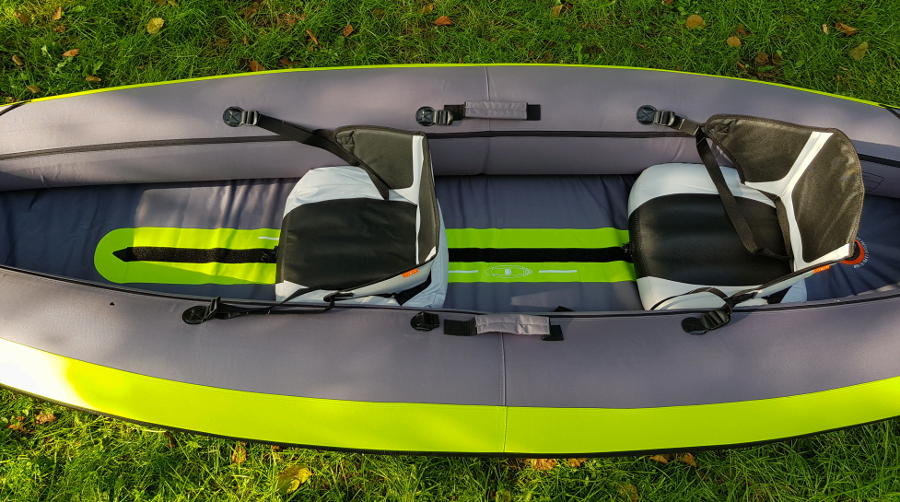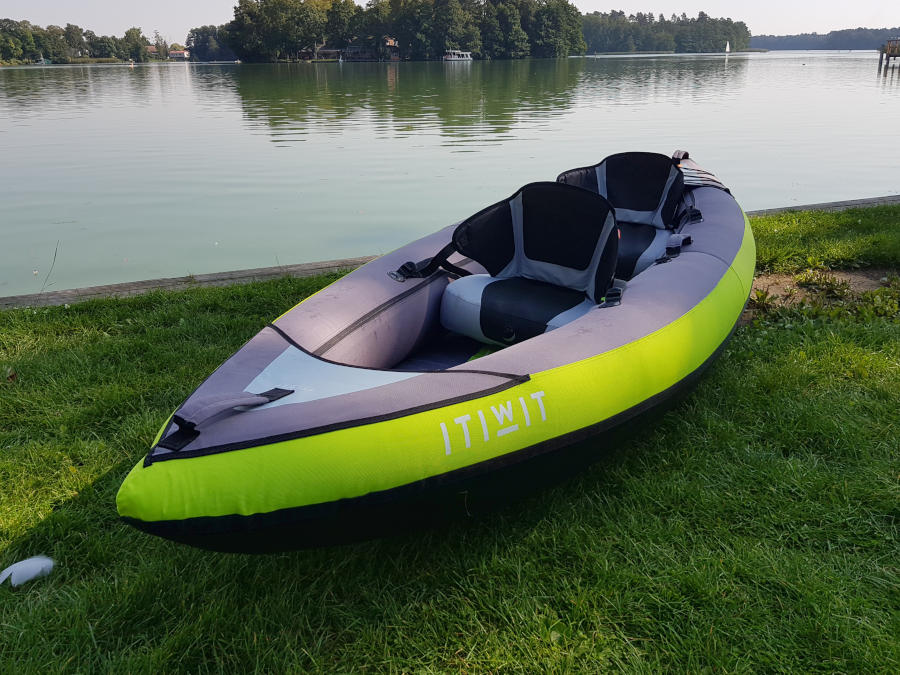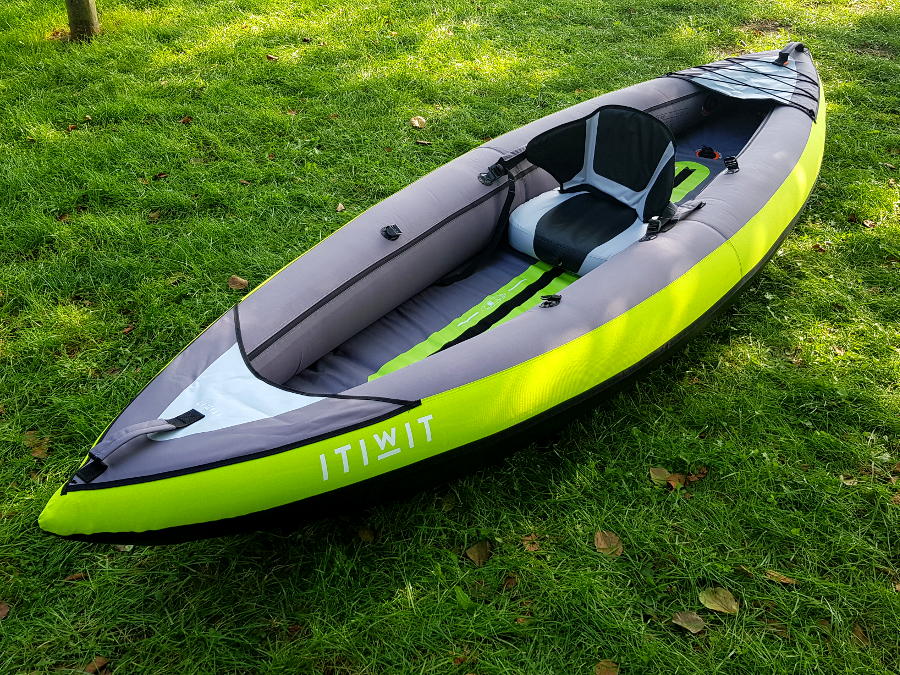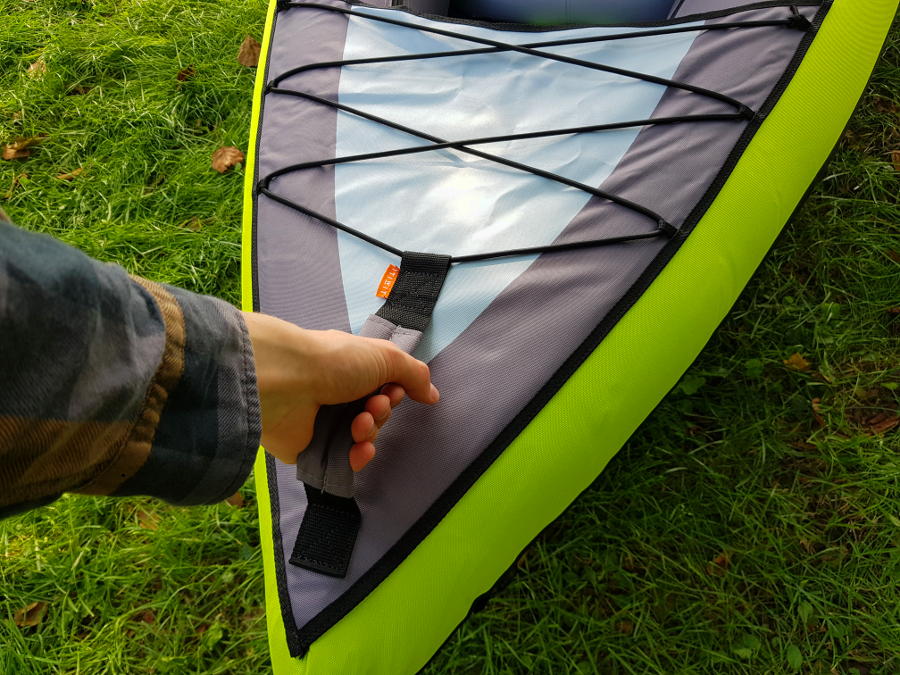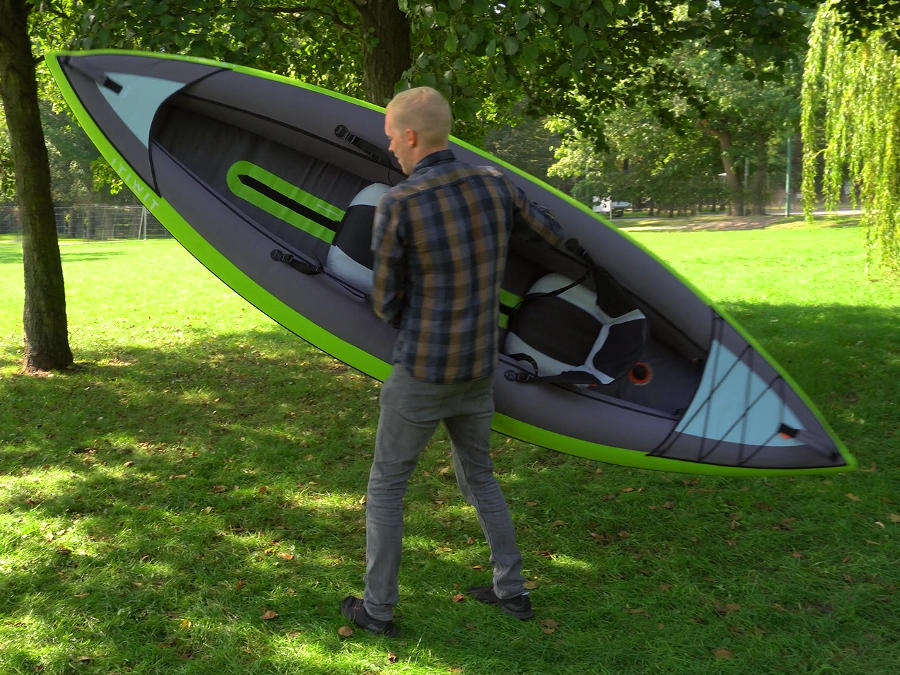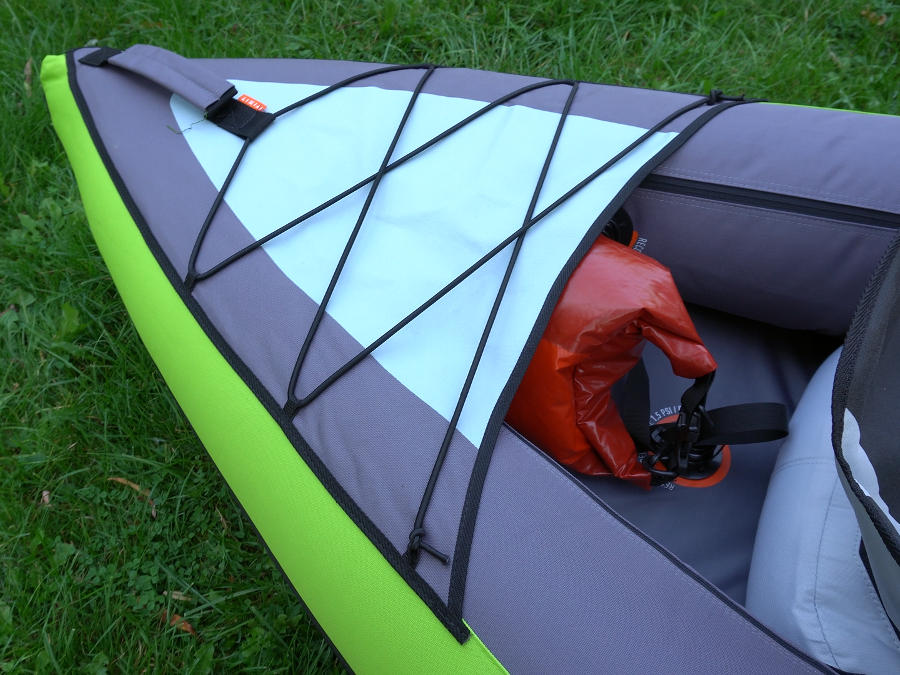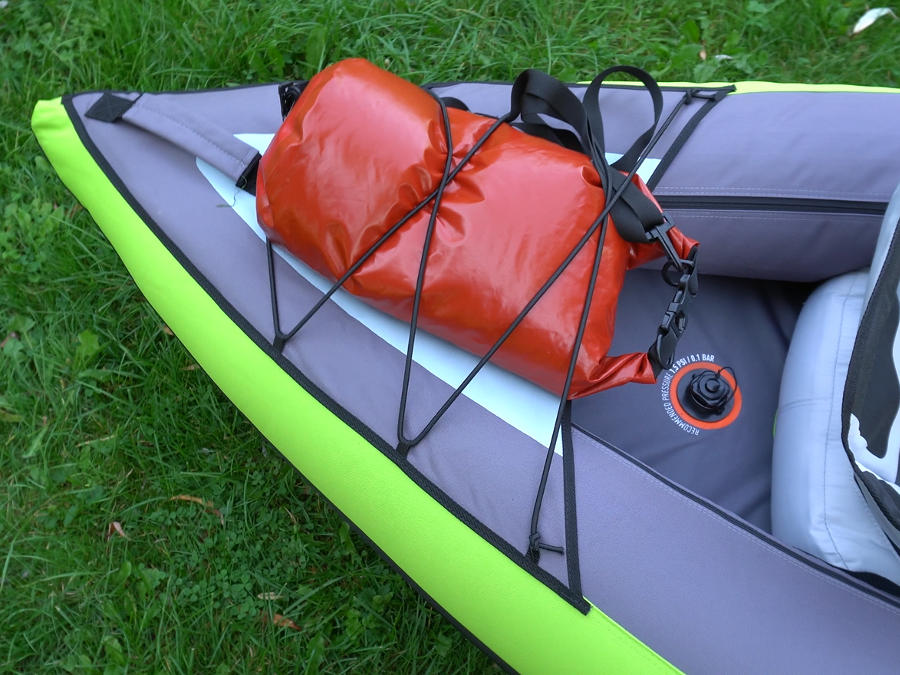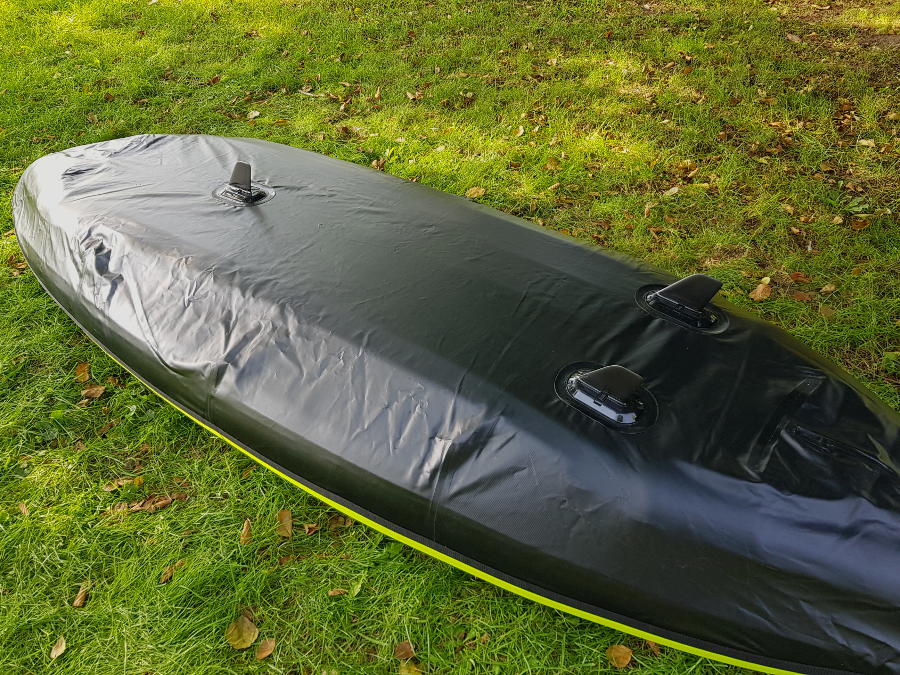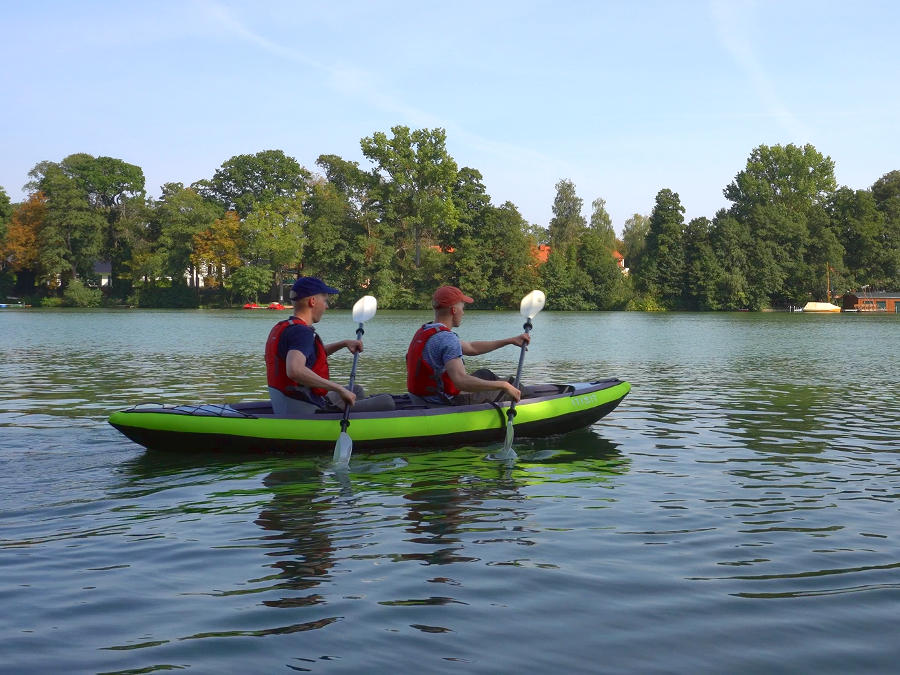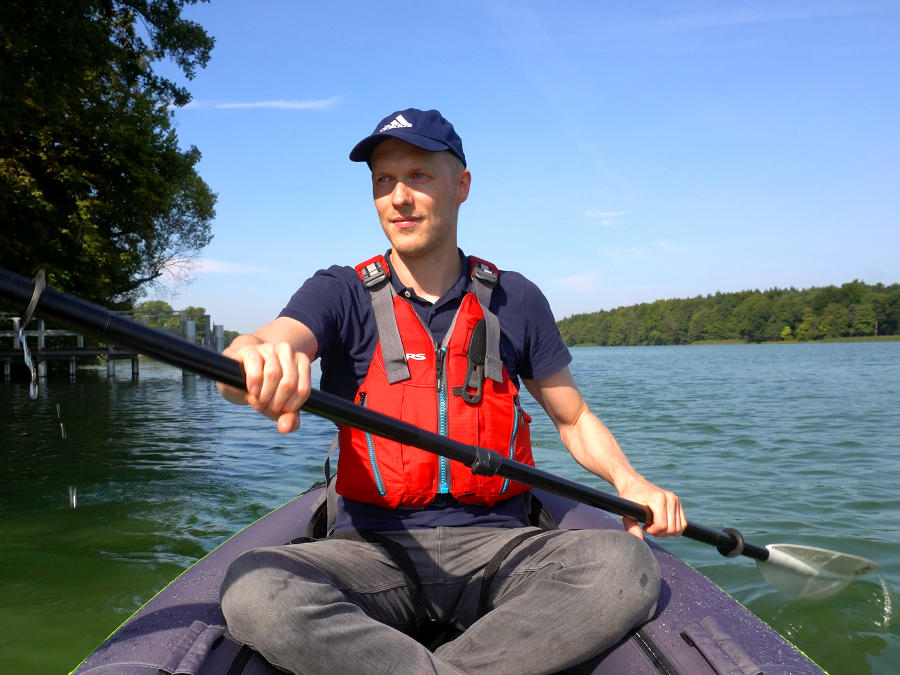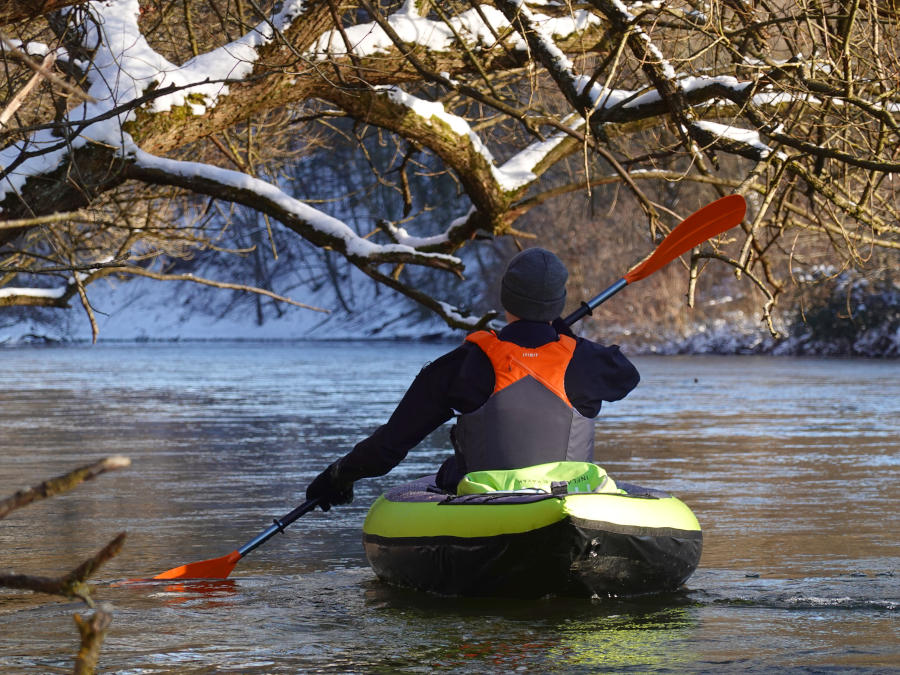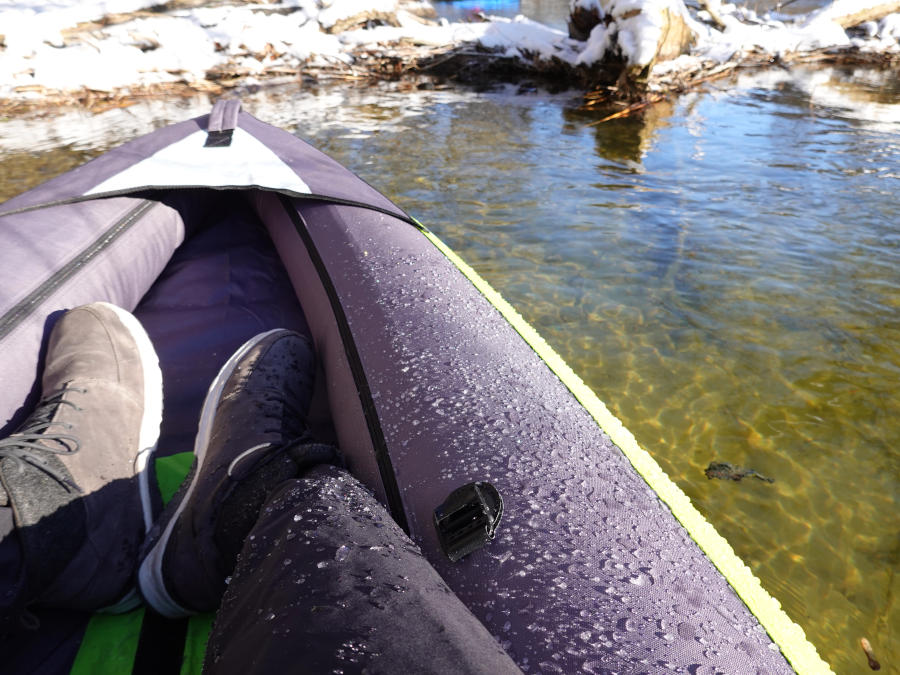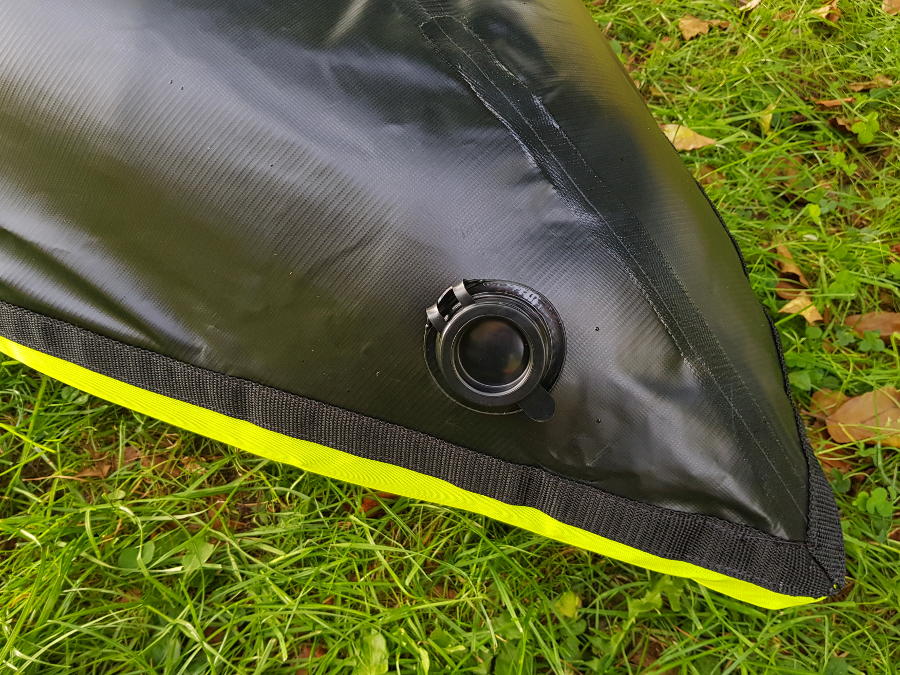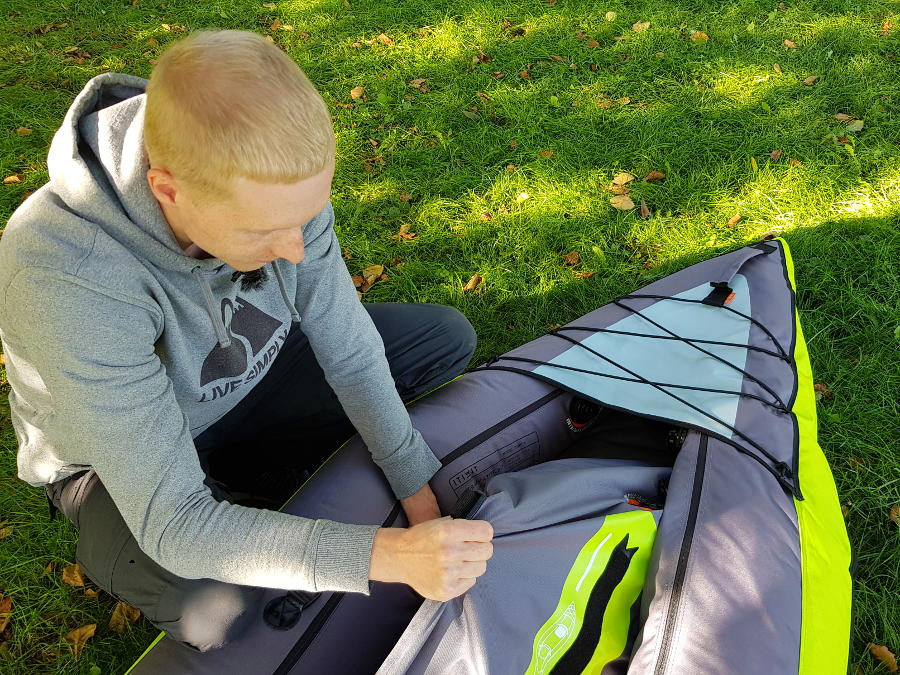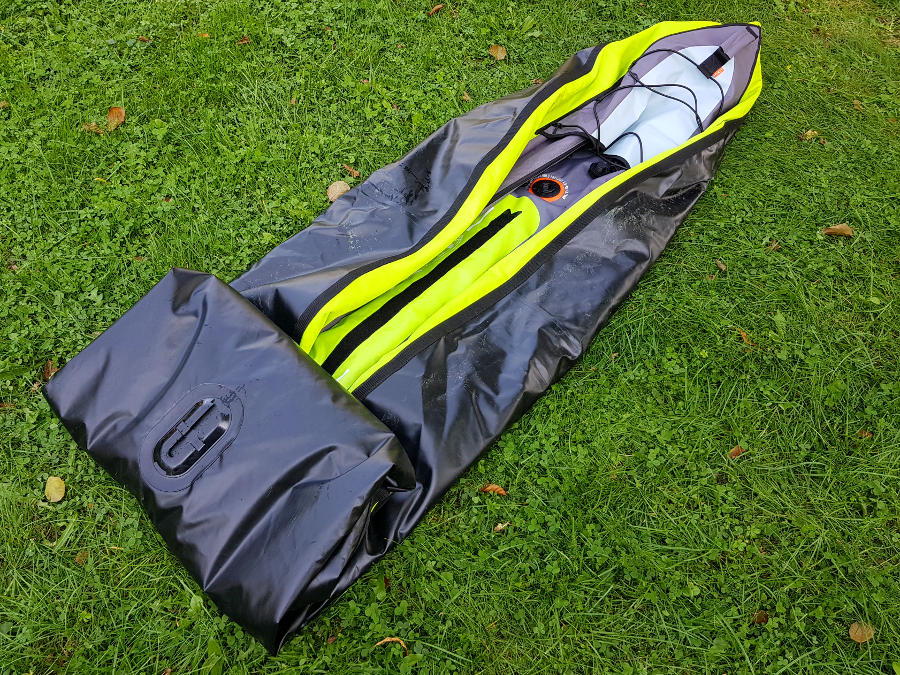The Oru Kayak Inlet is a folding kayak, or more precisely an origami kayak. Such a kayak consists of a single sheet of plastic that is folded into a kayak. The manufacturers of such boats promise their customers a boat that is hardly inferior to the rigid hull version in terms of its performance on the water. The complicated and time-consuming assembly of typical folding boats is not an issue for the Oru kayak. Thanks to origami technology and it is supposed to be quick and easy.
Oru Kayak is the best-known manufacturer of origami boats and has been active on the market for over 10 years. We had the opportunity to extensively paddle and review the Oru Kayak Inlet, which is advertised as a recreational and beginner kayak. In this review we share our experience and impressions of the kayak.
Technical Specs
Max. paddlers:
Length:
Width:
Capacity:
Packed size:
1
295 cm | 9’8″
75 cm | 2’5″
125 kg | 396,8 lbs
107 x 25 x 46 cm |
42″ x 10″ x 18″
Material:
Plastic
Weight:
9 kg | 20 lbs
Produced in:
Mexico
Which model has been reviewed?
Oru Kayak from 2023
How did we organize the review?
The Oru Kayak Inlet was provided to us on a rental basis by the manufacturer Oru Kayak. Our review is independent of the manufacturer or store and reflects our own opinion of the boat.
How intensively has the product been tested?
low
2 bars = min. 1 day/ 2 half-day tours
3 bars = min. 4 tours
4 bars = min. 8 tours
5 bars = min. 12 tours (very intense)
Where have we tested the product?
Whitewater
Calm rivers
Lakes
Table of Contents
Assembly and first impressions
The Oru Kayak Inlet is characterized by its exceptional compactness and lightness for a folding kayak. When folded, it can be carried like a bag and is therefore very convenient to transport over short distances. Typical uses cases here are transportation by public transport or by car. It should be noted that only a 4 piece paddle would fit when the boat is folded. You would have to carry the life jacket and other equipment in the other hand or in a separate bag or backpack.
However, if you want to cover longer distances on foot with a portable boat, you will usually use a large backpack. Unfortunately, the Oru Kayak Inlet does not fit into any of the usual transport backpacks due to its packed size. Only transportation with a boat trolley would be conceivable for longer distances. So if you don’t want to use a boat trolley and definitely want to transport the boat on foot for longer distances, you should look for a lightweight inflatable kayak (e.g. Advanced Elements AdvancedFrame Ultralite) or packraft (e.g. Itiwit Packraft 500). These boats are much more compact and can be transported in a backpack.
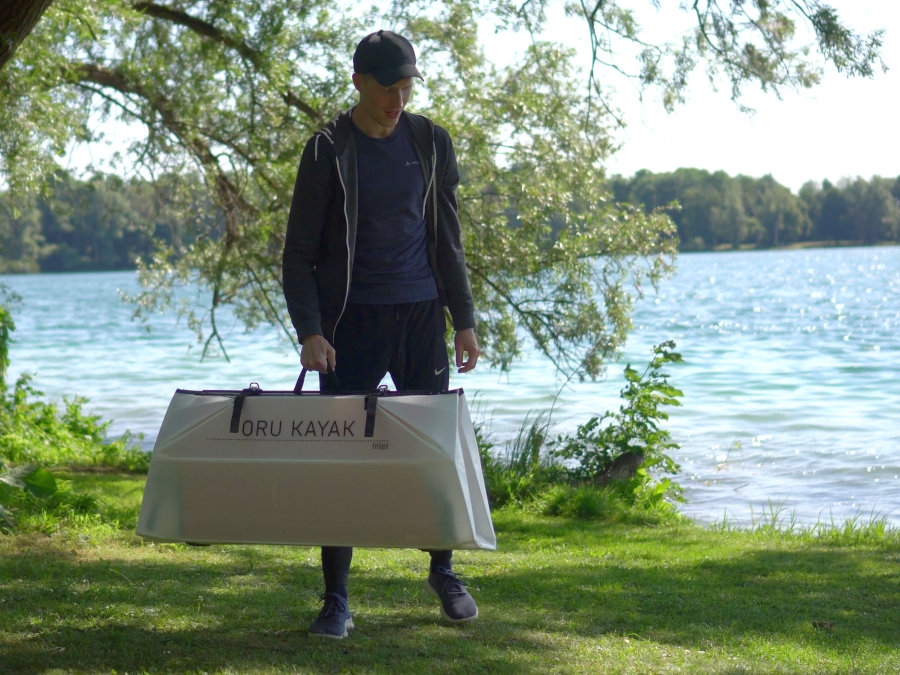
When storing the boat, however, the folded boat as a bag is very practical. It can be conveniently stored in the cellar or in a larger cupboard or corner in the home.
The first question that arises for us is: Can the Oru Kayak Inlet score over conventional folding kayaks thanks to its quick and easy set-up? The simple answer is yes. The kayak impressed us with its quick and easy set-up. If you’ve already set up the boat more than a few times, it’s actually really fun because it’s so quick and easy. A good and detailed description is included in the scope of delivery for the first assembly, which provides you with good support during the first assembly. It takes a little longer to set it up the first time, as you first have to familiarize yourself with the folding technique. At the beginning, you don’t have the confidence to fold the boat with full force. Over time, however, you learn that the material can withstand this effort without any problems. It only takes a few minutes and the manufacturer’s stated assembly time of 3 minutes is completely realistic.
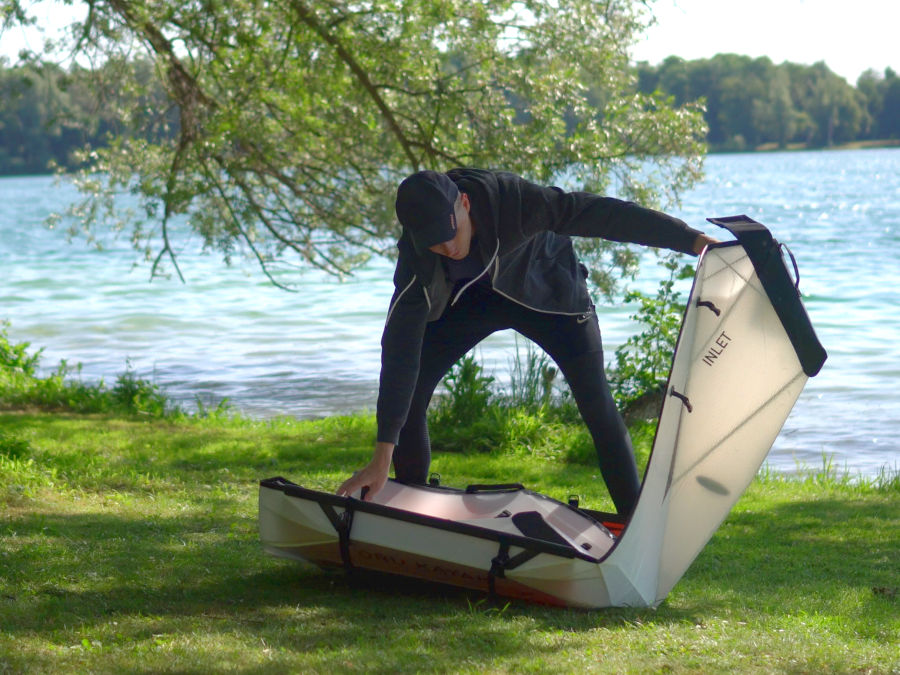
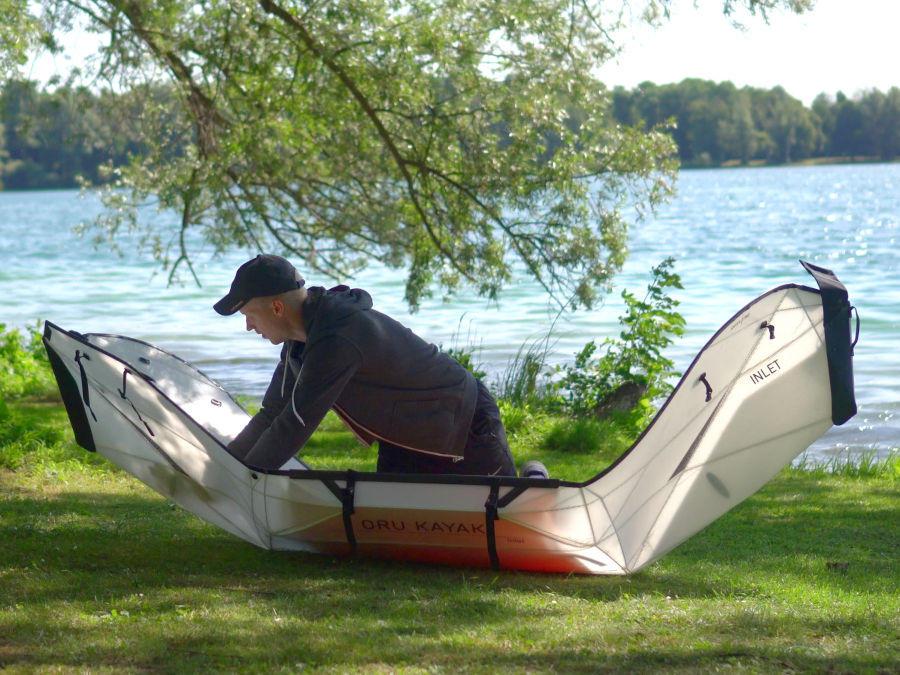
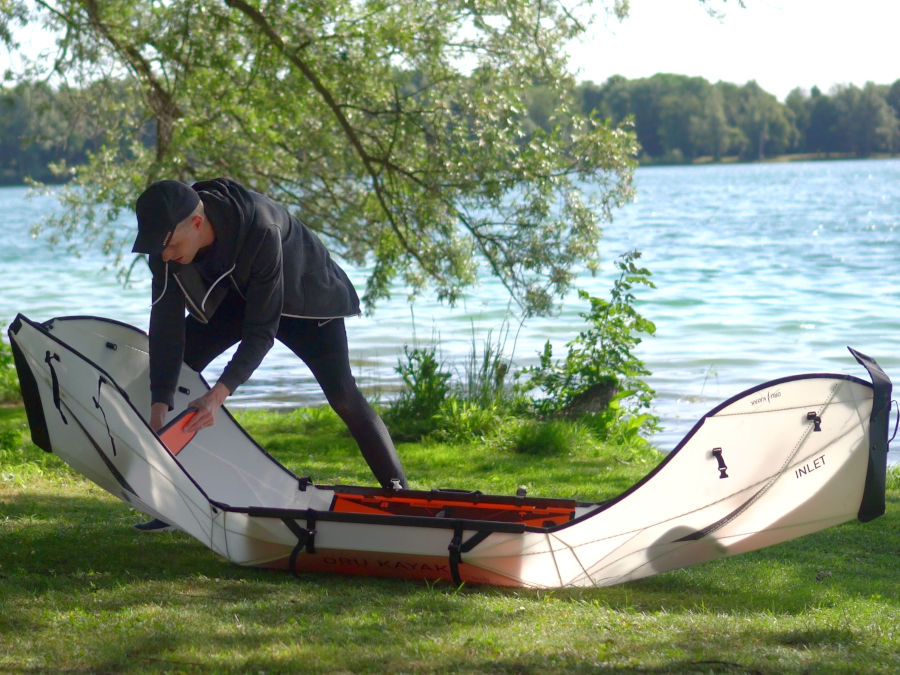
For the main structure of the boat, the main plate is first bent in the main folds to create the rough hull shape. Small plates are then inserted at the bow and stern. The bow plate is also used to attach the footrest suspension. As soon as these plates are correctly positioned, the main plate is folded further at the bow and stern and closed with click fasteners. This gives the kayak its final hull shape.
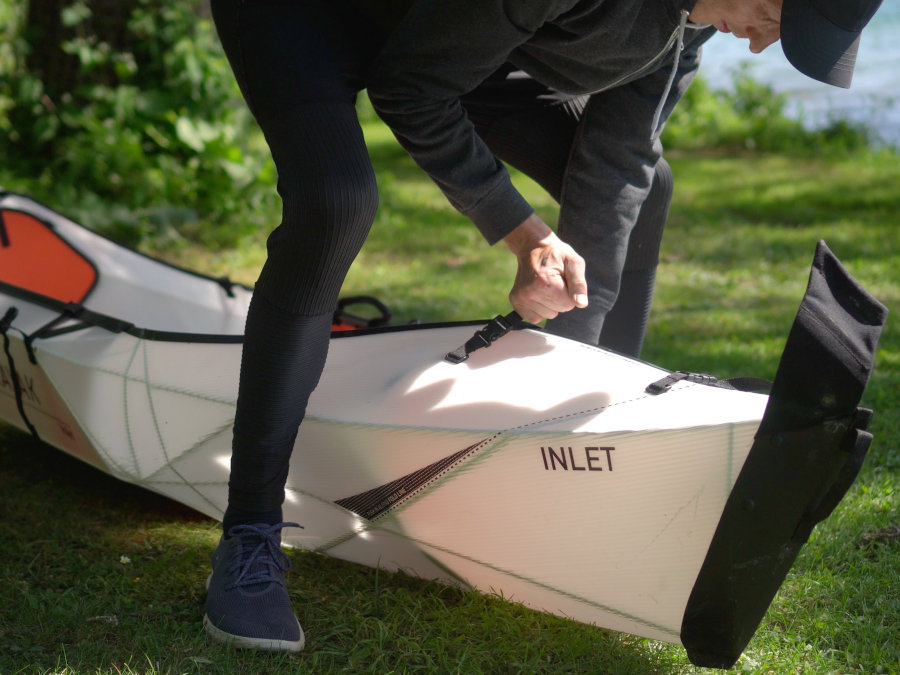
Finally, the footrest and seat are attached. The footrest is attached to the inside of the kayak using click fasteners. This also makes it very easy to adjust the position of the footrest.
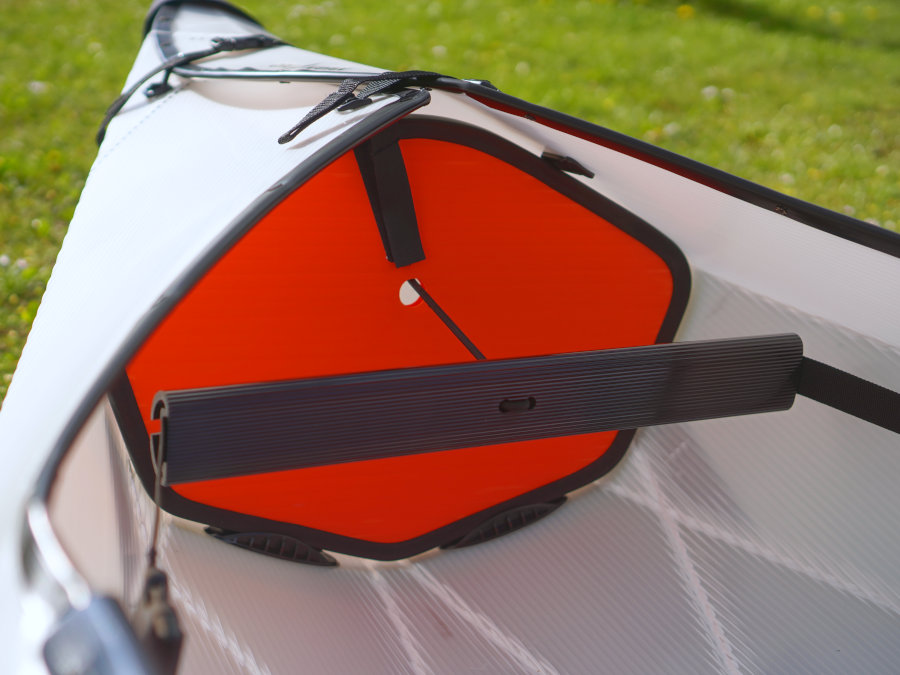
The seat cushion is attached to the floor with an elastic band and can therefore not slip when paddling. Behind the seat cushion there is a slot in the bottom of the boat into which the backrest is inserted. The backrest is also attached to the inside walls of the boat with click fasteners.
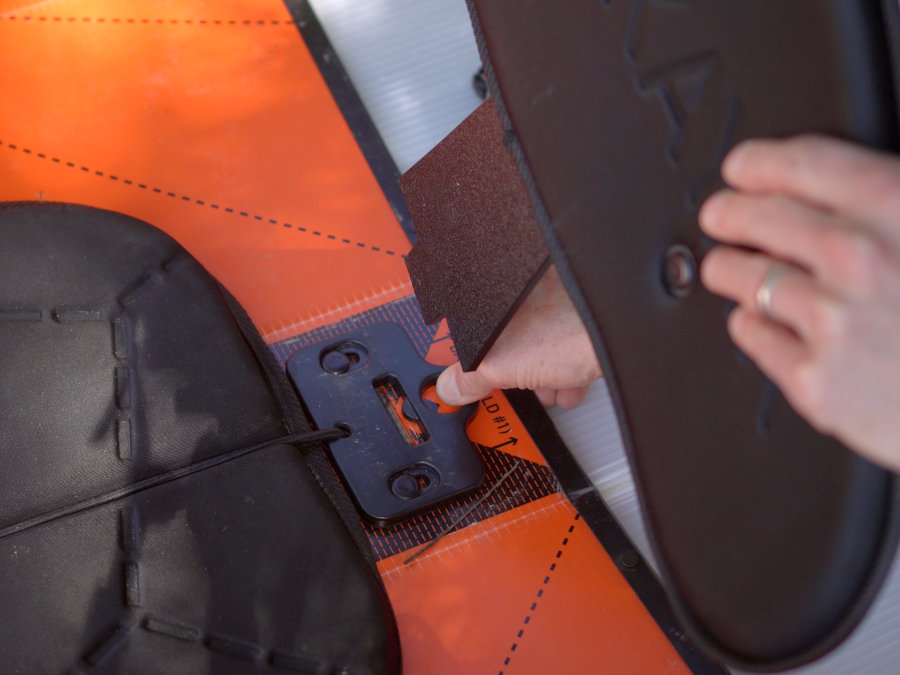
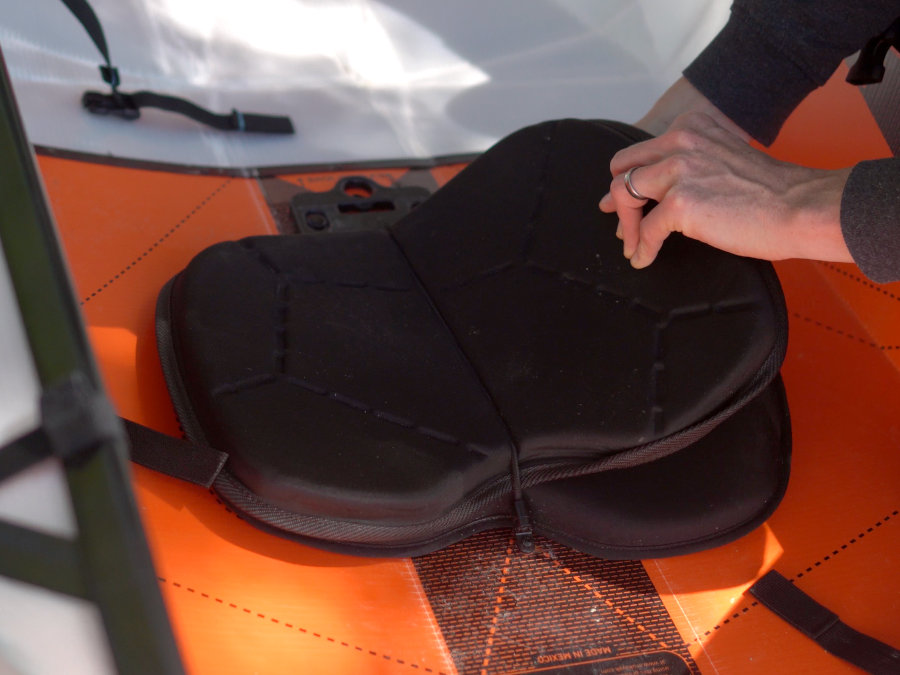
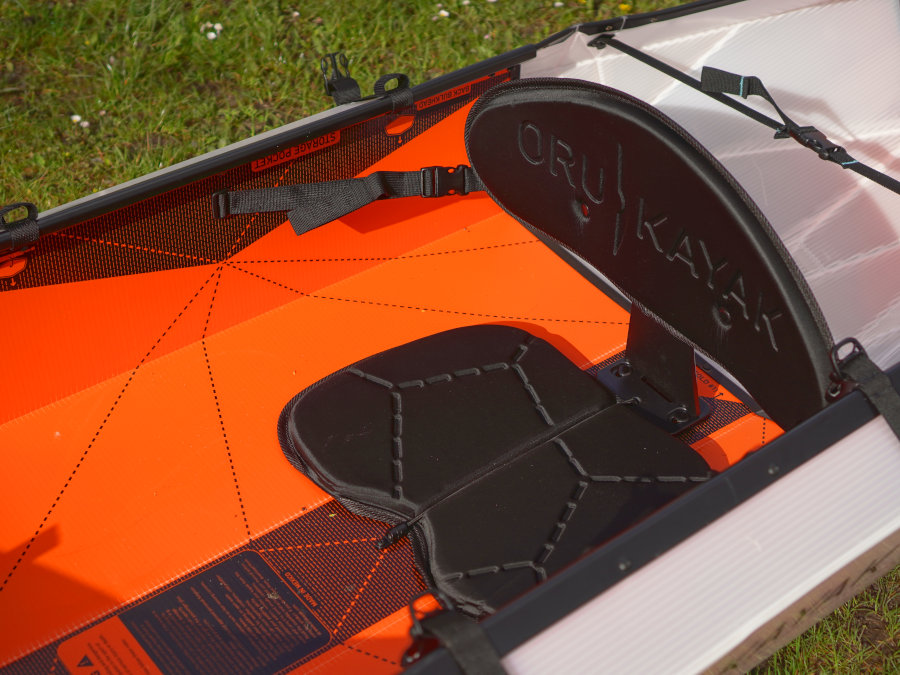
Overall, the seating system makes a very good and well thought-out impression. However, it is immediately noticeable that the seat position in the boat is fixed and therefore cannot be moved backwards or forwards. Variable positioning of the seats is particularly common in inflatable kayaks and allows tall paddlers in particular to position the seat further back if necessary to gain more legroom. Compared to rigid hull boats and many other folding kayaks, however, it must be said that a fixed seating position is not a characteristic of Oru Kayak, but rather the norm. The manufacturer wants to ensure that there is an ideal weight distribution in the boat and that the boat lies on the water in such a way that it can perform optimally. However, the footrest can be easily moved backwards and forwards so that you can adjust it to the required leg length.
What is adjustable on the seat, however, is the backrest. This allows you to adjust the angle depending on how upright you want to sit when paddling. The height of the backrest can also be adjusted. This allows you to choose whether you want to position the backrest in the lower or middle back area. As the backrest is quite narrow, a highback life jacket (with a high-positioned buoyancy chamber on the back) is generally recommended.
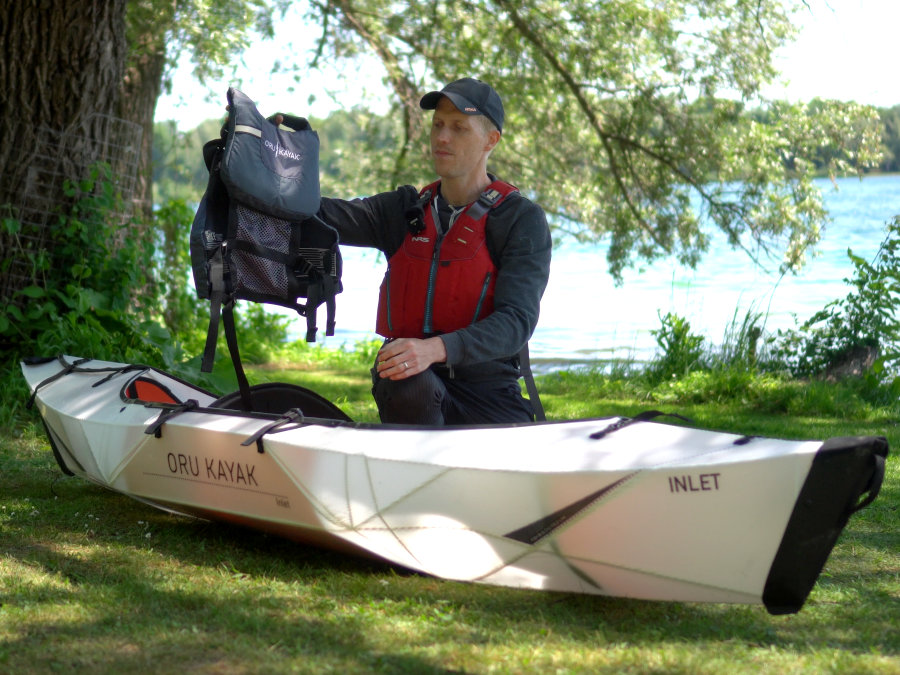
Apart from the good seating system, all other details on the boat also appear well thought out and of high quality. For example, the material edges are protected with additional strips and the bow and stern have been fitted with an additional plastic cap to prevent material damage in the event of minor collisions.
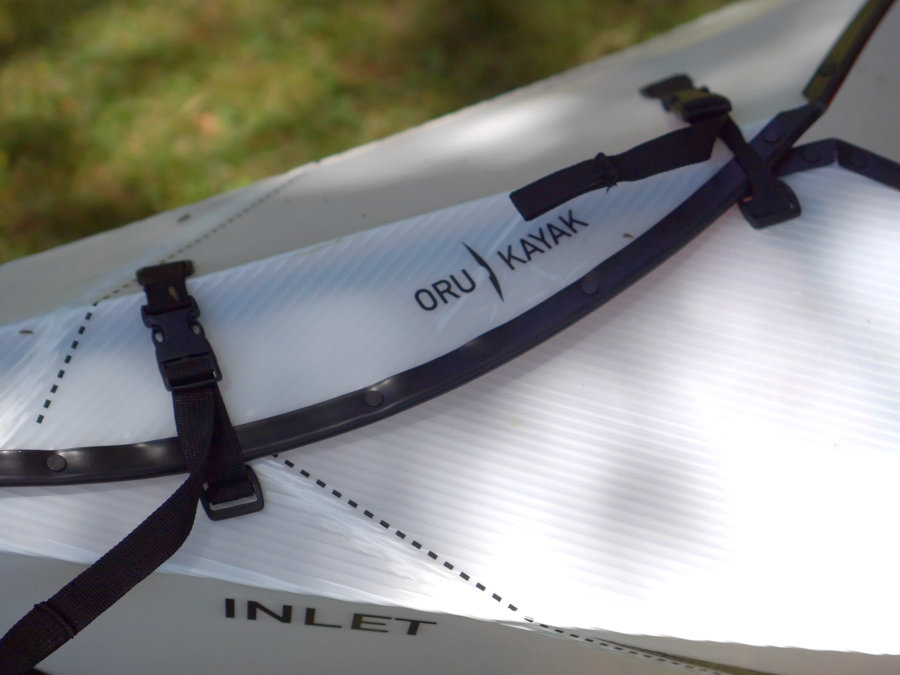
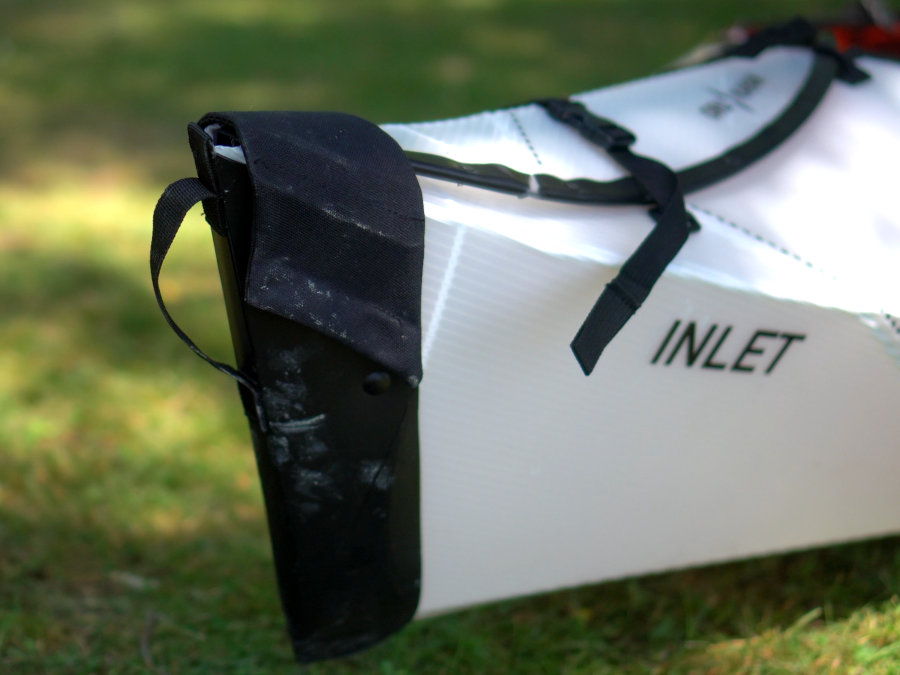
The same applies to the overall material of the boat. It looks robust and gives the impression that it will last a very long time. Only the folding edges are the parts of the boat that have the potential to damage the quickest due to folding. Fortunately, the manufacturer states that the boat can be folded up to 20,000 times without any problems. This is more often than you would ever do in recreational use and therefore eliminates this concern in advance.
However, we cannot judge how well the boat would tolerate major collisions or too frequent grounding over time. In our use, pulling over pebble banks did not leave any marks. Nevertheless, you should bear in mind that this is a recreational kayak. This means that the Oru Kayak Inlet is primarily intended for use in shallow, calm and sufficiently deep water. If you want to paddle in white water, this boat is not the right choice (due to the many groundings and possible collisions).
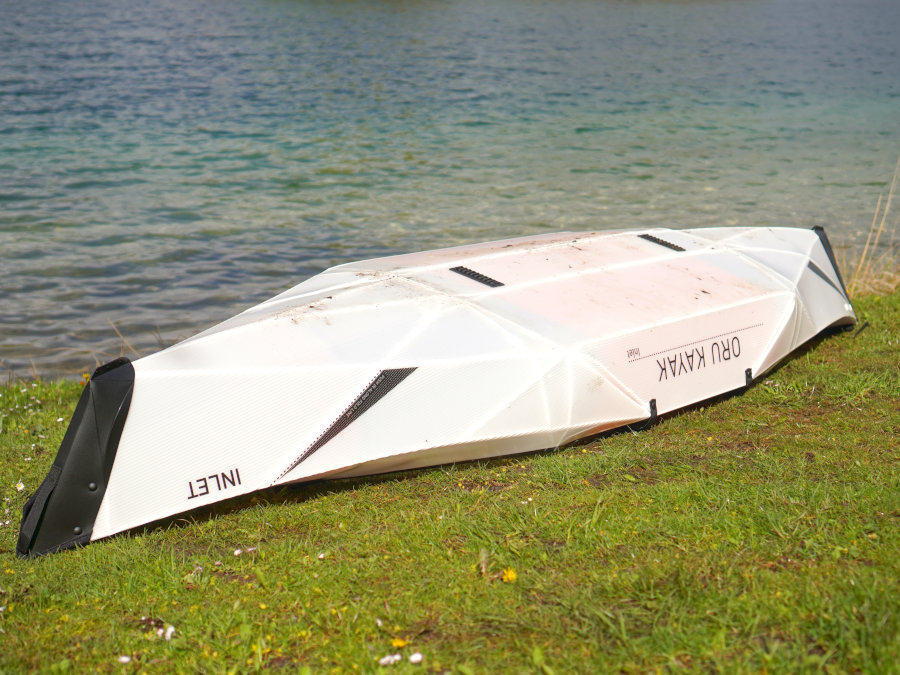
Rewiev on the water of the Oru Kayak Inlet
The low weight not only pays off when transporting the boat, but also when you want to carry it to the water. You can carry the 20 lbs (9 kg) kayak without any help, even when assembled. This is a real advantage over many other folding kayaks, which are significantly heavier.
The fact that the kayak is primarily aimed at beginners and recreational paddlers is also revealed by the boat’s wide cockpit opening. This makes it very easy to get in and out. This open design also gives you maximum freedom of movement on the water.
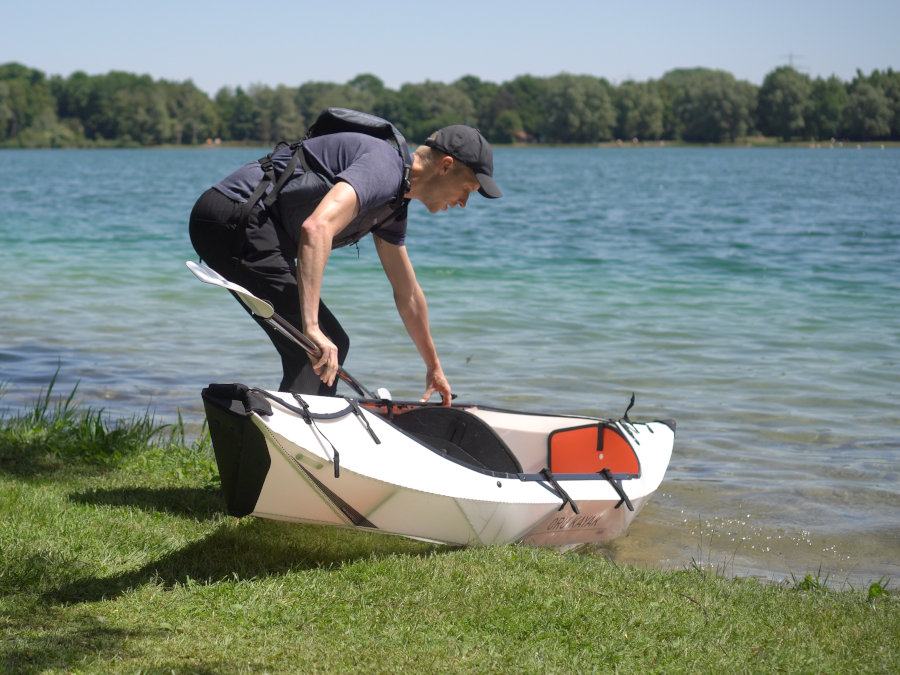
As a beginner and recreational kayak, the boat must also perform well in terms of tipping stability. Thanks to the flat and wide hull shape, the Oru Kayak Inlet is also fully convincing here. The boat feels very stable when getting in and out of the water and we never once had the feeling that we would capsize while paddling.
However, if you are used to paddling with inflatable kayaks, which are very stable on the water due to the wide side tubes and every hasty movement is balanced out immediately by the side tubes, you will have to get used to it a little. In the Oru Kayak Inlet, you notice the movements much more, but you soon realize that it is very difficult to reach the tipping point with the boat. Because once you lean to the side, you realize how well the boat is balancing it out
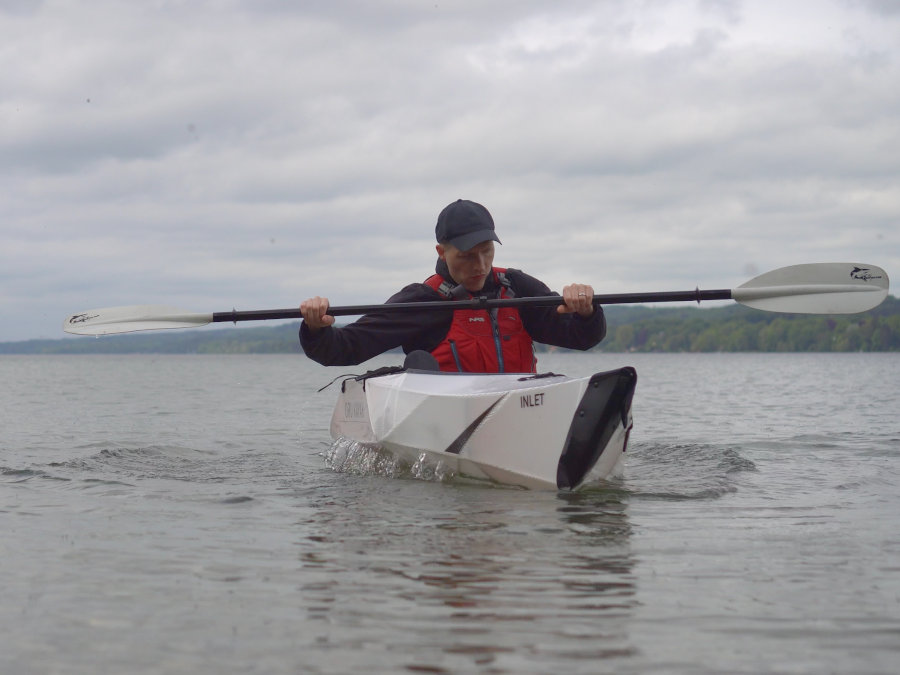
However, you should not forget that a very stable kayak cannot be the fastest kayak and that you have to compromise on performance on the water. But that should be fine for a recreational kayak.
However, the exciting question is how good the balance is between tipping stability and driving characteristics. And with the Oru Kayak Inlet, the folding boat technology pays off. Although the boat is quite short, thanks to its design it sits very nicely in the water and can make good use of its hull length. The shaped ends of the bow and stern also ensure good handling characteristics. This means that the kayak accelerates well for its length of just 9’8” (295 cm).
Typical for the dimensions of the kayak (short and rather wide) is the very good maneuverability. This means that the boat can be turned very easily and just a few paddle strokes are enough to change course. For us, this makes the kayak also a good choice for calm rivers that have sufficient draught but can also be narrower at times. The straight-line stability is also impressive, even without a fin. The kayak holds its course well and even if you stop paddling, it doesn’t immediately drift to one side.
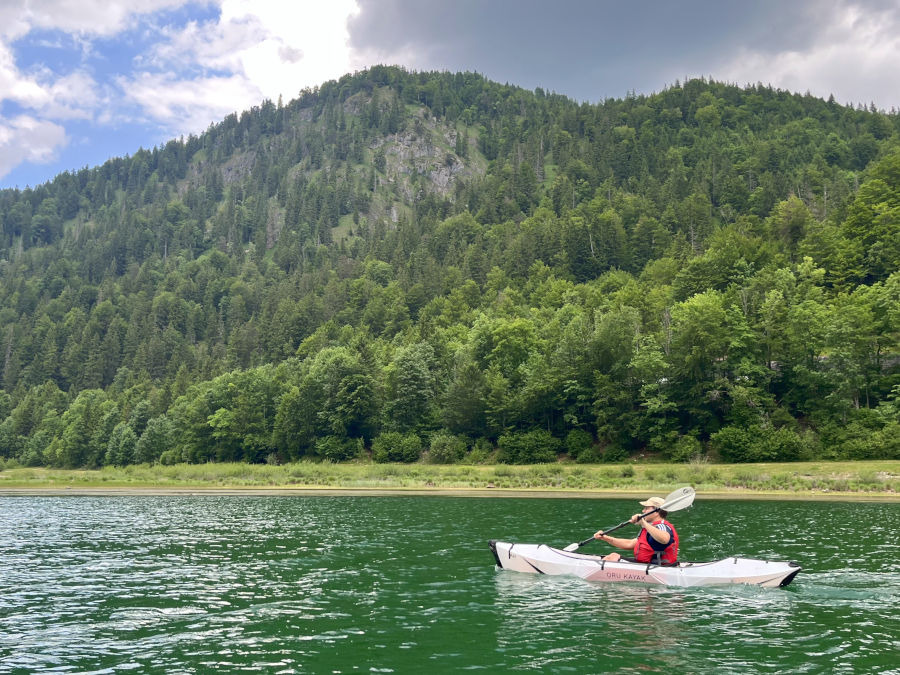
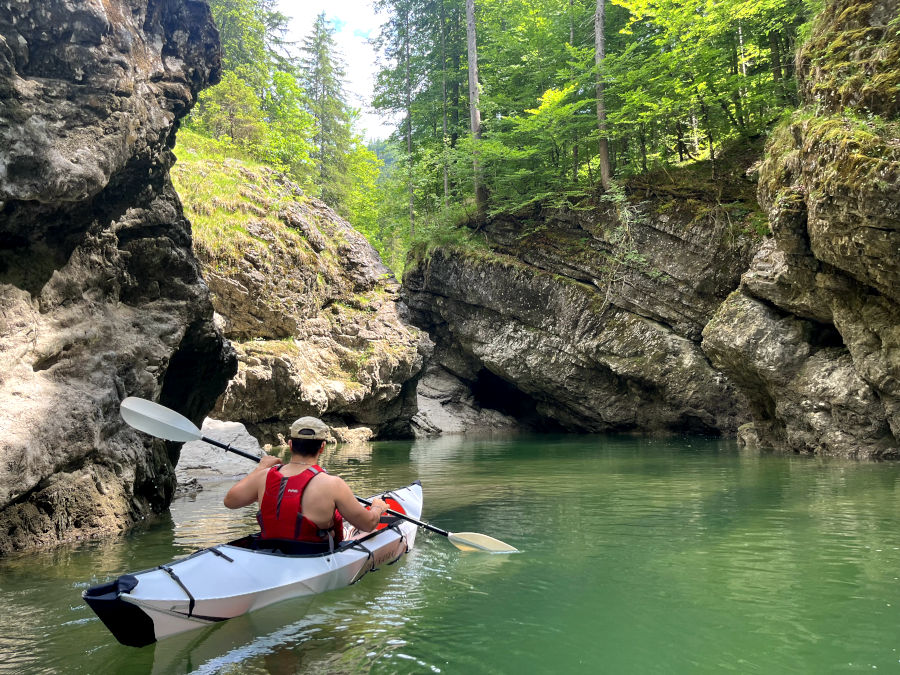
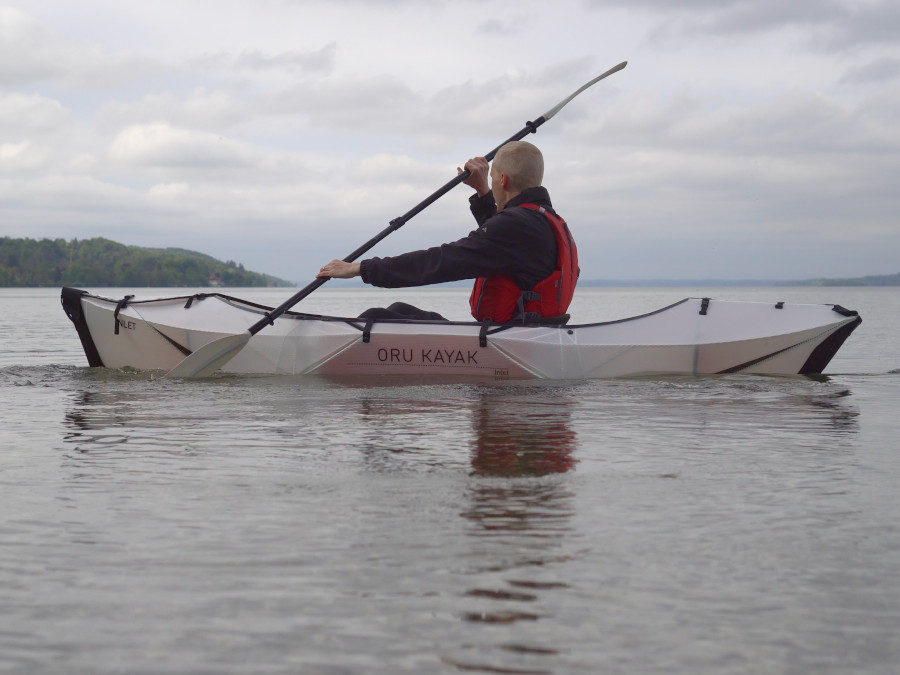
Overall, we would attest to the kayak’s good driving characteristics and solid speed for recreational use. You shouldn’t expect any speed miracles from such a boat. If you want to be sportier and faster on the water, you should take a look at the Oru Kayak Beach LT or Bay ST, for example, which are significantly longer and narrower and can therefore perform even better on the water.
However, due to the wide cockpit opening at the bow, some spray water quickly gets into the boat. In a good swell, the front canopy would not keep much water out. And even if you paddle longer tours, depending on your paddling technique, some water quickly collects in the boat. The flat seat cushion means you can quickly end up sitting in the water. This may not be a problem in summer when paddling in swimwear, but otherwise it can be annoying. Here we recommend using the additional seat pad from Oru Kayak. This allows you to sit a little higher and not get wet so quickly. If Oru Kayak had made the cockpit opening smaller, the model would look too much like the manufacturer’s other models and lose its recreational character. The design decision is therefore understandable, but you should be aware of the disadvantages.
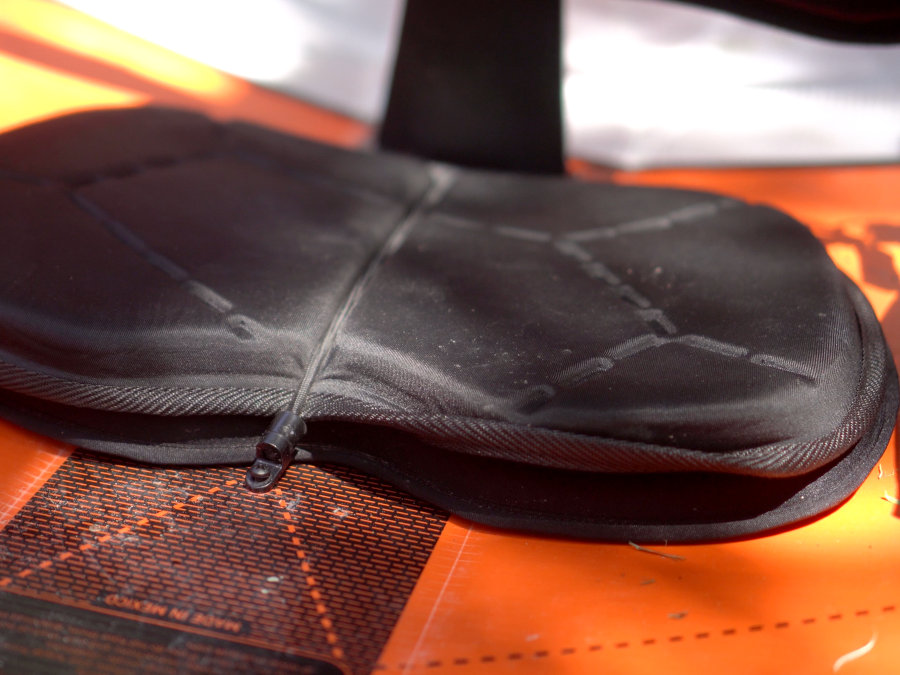
In addition to the handling characteristics and tipping stability, the space and seating comfort are of course also crucial for a recreational kayak. As mentioned at the beginning, the position of the seat cushion is fixed. However, as the footrest is variably adjustable, the interior also offers enough space for tall paddlers, as it can be adjusted according to the space required.
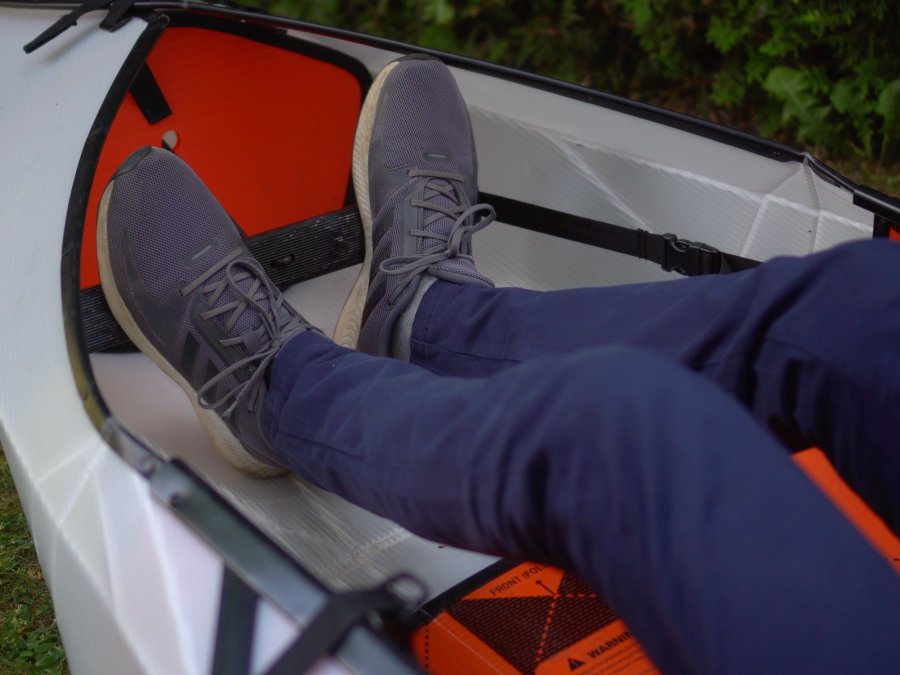
The manufacturer recommends the inlet for people with a maximum height of 6’2” (188 cm). This is a good guideline, but we believe that you can also be a little taller for the boat. In the end, the decisive factor here is probably not only your overall height, but also the length of your legs.
The boat not only offers sufficient space for the paddler in length, but also in width. It is even possible to sit cross-legged and paddle. I even paddled in the Oru Kayak Inlet with my daughter. I was able to sit her between my legs and we sat very comfortably and I was able to paddle without any problems. I folded a towel several times so that she could sit on it without immediately getting wet if splash water collected inside. I can well imagine that some dog owners (depending on the size of the dog) who would like to take their four-legged friend paddling with them will also make a good decision with the Oru Kayak Inlet.
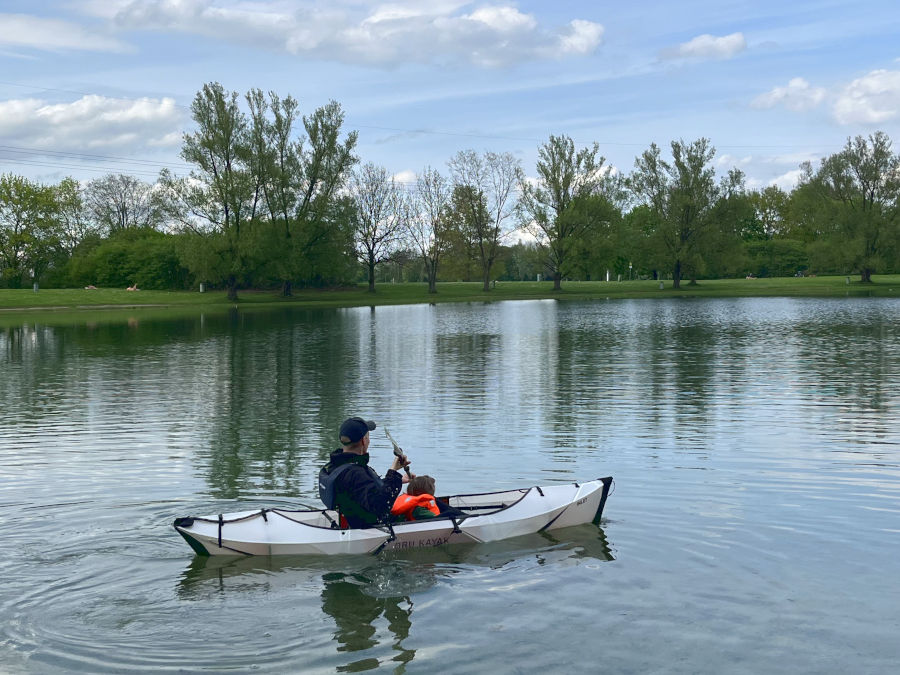
In terms of space for luggage, the options are rather limited. There is still enough space behind the seat for a small to medium-sized dry bag. However, there is no more space or options for stowing luggage. Therefore, you won’t be able to go on multi-day trips with the kayak, only day trips. But that’s perfectly fine for a recreational kayak. Nevertheless, a small luggage net on the bow would have been very practical. This would have made it possible to attach a small dry bag so that you could easily access important items while paddling.
Disassembly the Oru Kayak Inlet
Dismantling the boat is just as easy as setting it up, if not easier and faster. This is because no great effort is required to dismantle the boat. You open the buckles, take out the bow and stern plates and remove the seat system and footrest. The kayak is then folded back into a bag and secured with the buckles so that it stays in shape.
It is definitely advisable to wipe the boat dry with a towel after paddling. As the boat is unfolded, this is also very easy to do as, unlike a conventional rigid-hull or inflatable kayak, you have no problem getting into any hard-to-reach corners or tight places. At home, I always open the buckles so that the boat is slightly open and even the last bit of water has a chance to dry off.
Strengths and weaknesses of the Oru Kayak Inlet
The greatest strength of such an original kayak is undoubtedly the combination of good handling characteristics, easy transportability as a foldable bag and uncomplicated assembly and disassembly. The only major disadvantage of the boat is that water quickly collects in the interior and the low seat cushion means you quickly end up sitting in the water. However, this can be remedied with an additional seat pad. All other weaknesses are more due to the construction of a leisure kayak and do not carry too much weight in the overall rating.
Advantages
very easy to assemble and disassemble + low boat weight + can be carried as a bag when folded + well thought-out concept and details + robust material + good workmanship + good legroom + good driving characteristics for a recreational kayak + good tipping stability + wide cockpit opening allows easy entry and exit + good seating system + very good footrest
Disadvantages
high-priced entry-level kayak – little splash protection due to wide cockpit opening – no possibility to attach luggage to the canopy at the bow and stern – thin seat cushion offers little protection against water in the boat – large pack size compared to other portable 1-seater kayaks
Conclusion on the Oru Kayak Inlet
The Oru Kayak Inlet is a successful recreational kayak for beginners but also for experienced paddlers who are looking for a portable and lightweight second boat for an uncomplicated and leisurely paddle tour on an afternoon. The manufacturer keeps all its promises with this boat. The rather annoying disadvantages of rigid hull kayaks (high transportation costs and high space requirements for storage), typical folding kayaks (high weight, time-consuming assembly and disassembly) and inflatable kayaks (compromises in driving characteristics and high susceptibility to wind) are eliminated with the origami kayak. The Oru Kayak Inlet really impressed us in recreational use and gave us a lot of fun on the water. Anyone who is prepared to spend around €1000 on such an innovative boat in the recreational segment will certainly not be disappointed in the end. Above all, it is a recommendation for all those who have held back from buying a portable boat due to the disadvantages of other boat types mentioned above.
